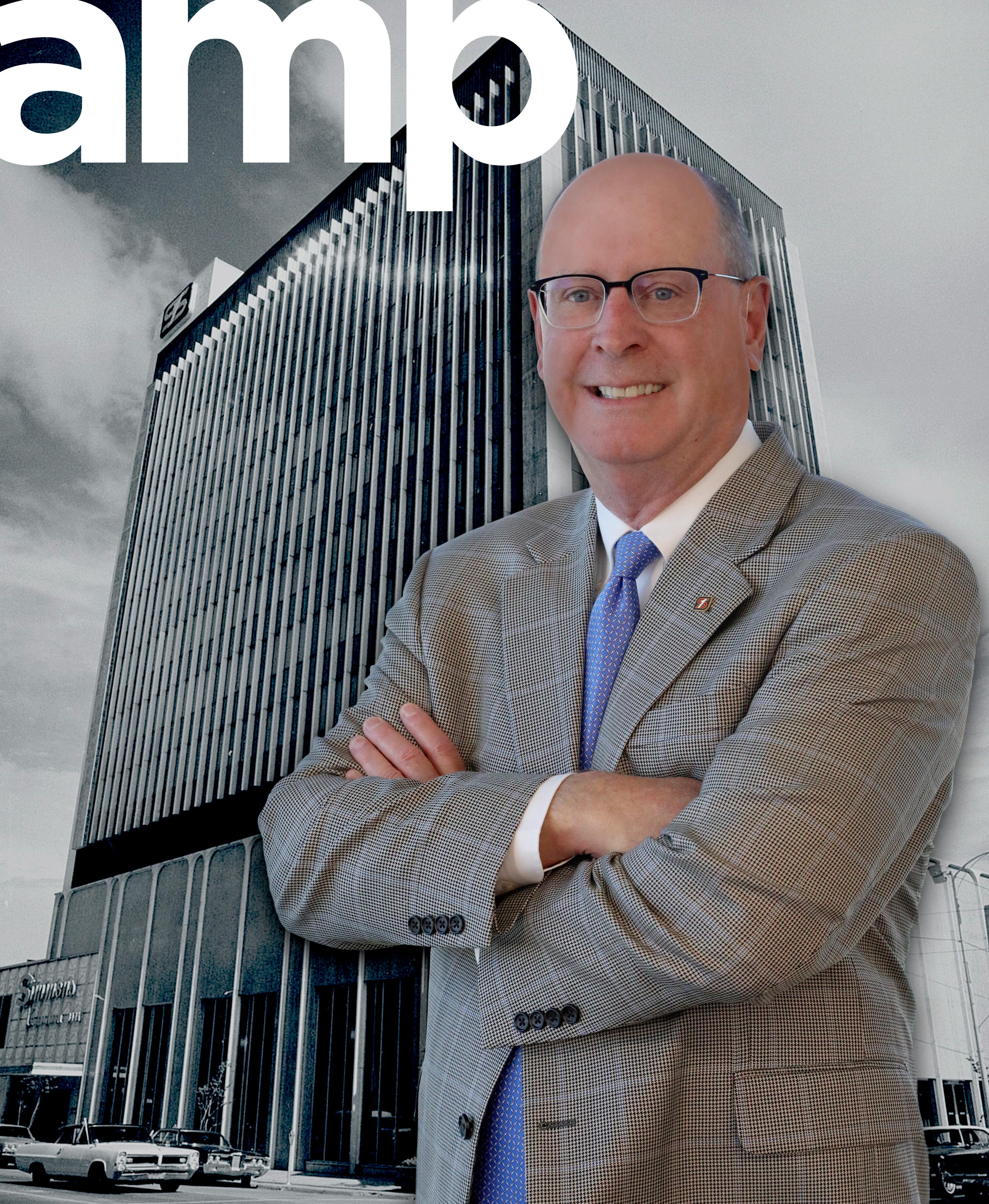
SEPTEMBER 2023/armoneyandpolitics.com $5 USD INSIDE: Achievers in Their Forties | Best Financial Advisors | Women in Banking
growth, iconic Arkansas bank maintains community spirit
Chairman George Makris @120 Simmons
Despite
Executive







2409 West Dewitt Henry Drive //P.O. Box 1113 //Beebe 501.882.2600 // 800.597.2425 // resumes@stalliontg.com DELIVERING AMERICA














ArkansasStateFair.com







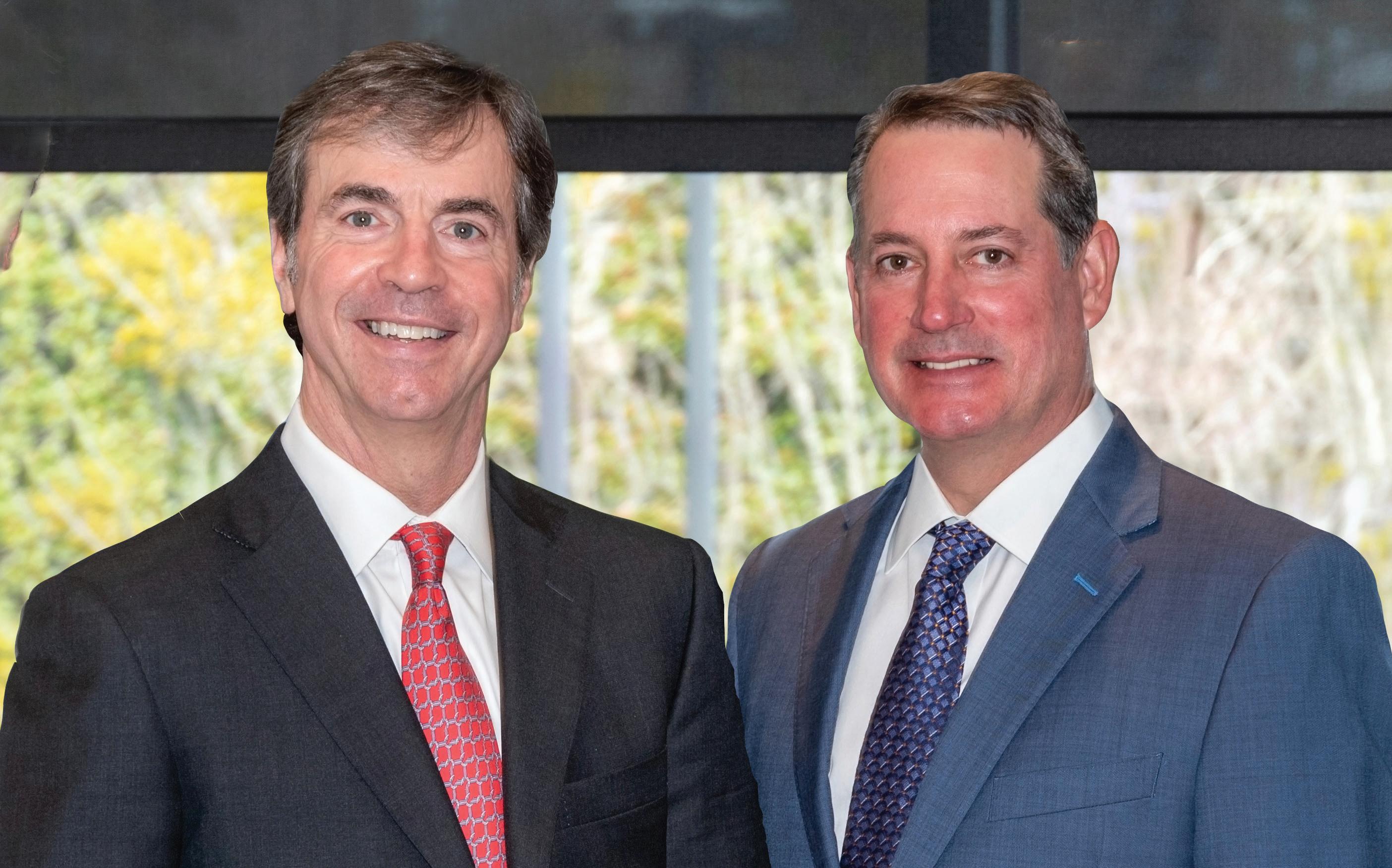 Jason Prather, JD, LLM
Matt Jones, JD, CFP ®
Jason Prather, JD, LLM
Matt Jones, JD, CFP ®
Generations of farmers, ranchers, homeowners and ag investors have relied on AgHeritage Farm Credit Services for loans and financial services.




We can help you live the life you’ve chosen.
AgHeritageFCS.com





FARM | CONSTRUCTION | AGRIBUSINESS | LIVESTOCK | LAND | HOME
THAT TIME OF YEAR
The State Fair is just around the corner, and while its lights and glitz grab the attention, the annual fall kickoff packs an economic punch as well.

LET’S HEAR IT FOR THE GIRLS
While the money sports like football and basketball dominate the headlines, Jordyn Wieber’s Gymbacks are cultivating their own strong following.


5 ARMONEYANDPOLITICS.COM SEPTEMBER 2023
FEATURES SEPTEMBER 2023
SIMMONS AT 120 Simmons Bank hits 120 years this year, and Dwain Hebda looks at the iconic institution’s history and impact on Arkansas and the region.
16
152
140
The banking and finance industries are more open to women, especially in leadership positions, and Arkansas is home to many strong female execs.
AMP’s list of Achievers in Their Forties shines a light on those professionals at a midpoint in their careers who are positioned for more.
PRESIDENT & PUBLISHER
Heather Baker | hbaker@armoneyandpolitics.com
EDITOR-IN-CHIEF
Dwain Hebda | dwain@armoneyandpolitics.com
SENIOR EDITOR
Mark Carter | mcarter@armoneyandpolitics.com
ASSOCIATE EDITORS
Sarah Coleman | scoleman@armoneyandpolitics.com
Mak Millard | mmillard@armoneyandpolitics.com
EDITORIAL COORDINATOR
Darlene Hebda | darlene@armoneyandpolitics.com
STAFF WRITERS
John Callahan | jcallahan@armoneyandpolitics.com
Sarah DeClerk | sdeclerk@armoneyandpolitics.com
MANAGING DIGITAL EDITOR
Kellie McAnulty | kmcanulty@armoneyandpolitics.com
ONLINE WRITER
Kilee Hall | khall@armoneyandpolitics.com
PRODUCTION MANAGER
Mike Bedgood | mbedgood@armoneyandpolitics.com
GRAPHIC DESIGNERS
Lora Puls | lpuls@armoneyandpolitics.com
A memo to women looking to have a seat at the Arkansas legislative table at all levels of government: your time is now.
Jenna Kelley | jkelley@armoneyandpolitics.com
SENIOR ACCOUNT EXECUTIVE
Greg Churan | gchuran@armoneyandpolitics.com
ACCOUNT EXECUTIVES
Mary Funderburg | mary@armoneyandpolitics.com
Colleen Gillespie | colleen@armoneyandpolitics.com
Karen Holderfield | kholderfield@armoneyandpolitics.com
Jona Parker | jona@armoneyandpolitics.com
Dana Rodriquez | dana@armoneyandpolitics.com
EXECUTIVE ASSISTANT
Jessica Everson | jeverson@armoneyandpolitics.com
ADVERTISING COORDINATOR
Bethany Yeager | ads@armoneyandpolitics.com
CIRCULATION
Ginger Roell | groell@armoneyandpolitics.com
ADMINISTRATION
billing@armoneyandpolitics.com
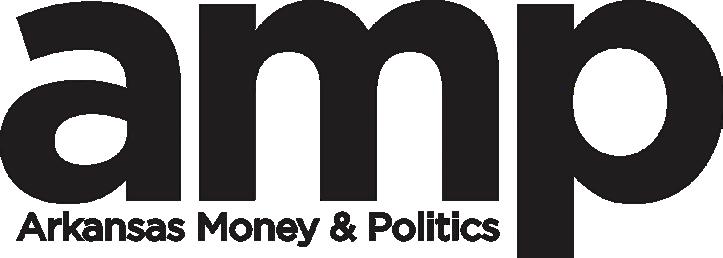
In Northwest Arkansas, Signature Bank’s Spanish-first offshoot is pacing right along with the region’s growing Hispanic community.
On the outside, there’s not much that differentiates traditional banks and credit unions, but the latter remain under the radar in Arkansas.

The Arkansas staff was on a recruiting roll heading into September, harkening back to Sam Pittman’s days as
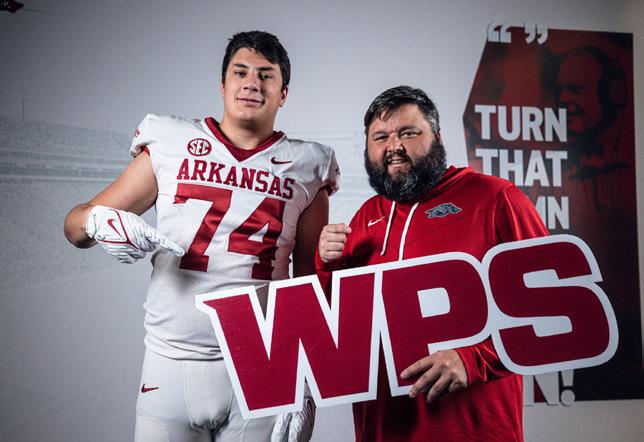
CEO | Vicki Vowell
TO ADVERTISE call 501-244-9700 email hbaker@ armoneyandpolitics.com
TO SUBSCRIBE | 501-244-9700
ADVISORY COMMITTEE
Susan Alturi, Scott Hamilton, Tommy Keet, Bobby Martin, Shannon Newton
CONTRIBUTORS
Angela Forsyth, Becky Gillette, K.D. Reep, Nichole Singleton, Kai Caddy, Jason Burt, DeWaine Duncan, Kenneth Heard, Dustin Jayroe, Steve Spencer, Brian Umberson
An influx of diverse professionals, generational changes and new tech have ensured that the financial planning industry is not the same as it used to be.
The UA debuted Big Red’s Club this month in the Fayetteville opener. The north end zone rooftop bar is expected to be a big hit with fans.

6 ARMONEYANDPOLITICS.COM SEPTEMBER 2023 AMP magazine is published monthly, Volume VI, Issue 5 AMP magazine (ISSN 2162-7754) is published monthly by AY Media Group, 910 W. Second St., Suite 200, Little Rock, AR 72201. Periodicals postage paid at Little Rock, AR, and additional mailing offices. Postmaster: Send address changes to AMP, 910 W. Second St., Suite 200, Little Rock, AR 72201. Subscription Inquiries: Subscription rate is $28 for one year (12 issues). Single issues are available upon request for $5. For subscriptions, inquiries or address changes, call 501-244-9700. The contents of AMP are copyrighted, and material contained herein may not be copied or reproduced in any manner without the written permission of the publisher. Articles in AMP should not be considered specific advice, as individual circumstances vary. Products and services advertised in the magazine are not necessarily endorsed by AMP. Please recycle this magazine.
Generational farms, in Arkansas and across the nation, are declining in number as individual farms get bigger and require fewer workers. Women in banking Credit unions Financial planning Growing with its community #ARGirlsLead More to come Open for business Recruiting rush Financing the farm 36 60 64 52 132 91 148 144 30 8 | Plugged In 10 | Viewpoint 12 | Discovery Economics 136 | Arkansas Visionaries 160 | The Last Word
OL coach on the Hill.
BANKING ACHIEVERS IN THEIR FORTIES POLITICS SPORTS
September 2023


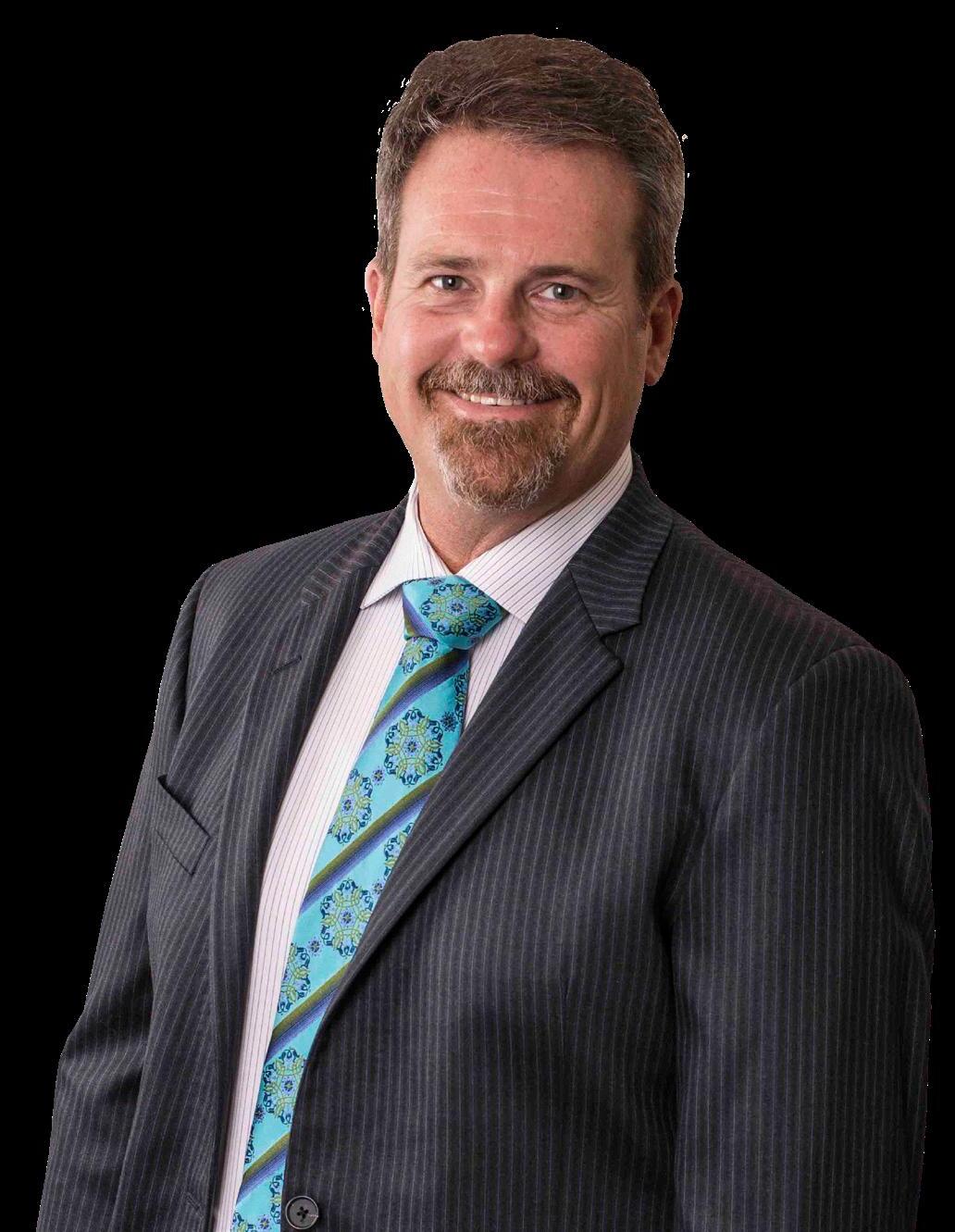
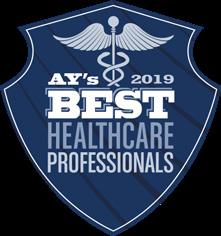






12501 Cantrell Rd., Little Rock • 501-223-3838 2001 South Buerkle St., Stuttgart • 870-683-2687 heathmanfamilydental.com • HeathmanFamilyDental Thank You for honoring us through the years as one of AY’s Best Healthcare Professionals! HEATHMAN FAMILY DENTAL 7 2021 Are You Smiling? Since 2000, our team has been 100% focused on your oral health. We offer our patients the very best that dentistry has to offer through advanced technologies and procedures. We provide personalized dental care with compassion and skill in order to provide a great treatment experience. Transform your smile at Heathman Family Dental WE OFFER: • Veneers • Crowns • Smile Makeovers • Implant Restorations & Restorative Services • Family & Cosmetic Dentistry for All Ages • Adult & Pediatric Services • BOTOX Injections and more!
ON THE COVER
Banking is the focus of the September issue, and one of Arkansas’ largest and oldest banking institutions, Simmons Bank, is celebrating 120 years.

Page 16
FEEDBACK
PGA TOUR CHAMPIONS TO DEBUT 2024 EVENT IN LITTLE ROCK
“I don’t think people understand how great this is. The Champions Tour is who we all grew up watching!”
Aaron Deitz
BOYS & GIRLS CLUB CHOOSES YURACHEK AS 2023 LEADER OF THE YEAR

“Congratulations. Well deserved. Thank you Hunter.”
Randall McChristian
ARKANSAS VISIONARY: JOHN FLAKE - UPON THIS ROCK, HE DID BUILD
“Great article on John Flake admire him so much.”
Jane Phillips
DIGS OF THE DEAL: MAXINE’S TAP ROOM — A LIVING HISTORY
“I wish I could have met her. My parents were regulars in the early 60’s. My Mom named me after her. My middle name is Maxine.”
Hope Manwarren
JAYLIN WILLIAMS, ISAIAH JOE LEAD BASKETBALL CAMP FOR FORT SMITH YOUTH
“My son got to go to one of the basketball camps and got to play and talk with Jaylin. He said he was really nice and funny!”
Felicia George Leister
ARORA NAMES FLOWERS AS FIRST FINANCE OPERATING OFFICER

“Excellent! Congratulations Tasha!”
Felicia George Leister
TOP ONLINE ARTICLES
May 23 - June 23 1
8 ARMONEYANDPOLITICS.COM SEPTEMBER 2023
Digs of the Deal: Maxine’s Tap Room 2 Little Rock Woman Now Highest-Ranking Female in ATA International 3 Sportsman’s Warehouse Opens First Arkansas Location 4 Little Rock Touchdown Club Reveals 2023 Speaker Lineup 5 Best of AMP 2023 6 Silver Dollar City Superfan Canaan Sandy 7 Walton Medical School to Apply Holistic Approach 8 Arkansas Game and Fish Foundation Banquet Honors Conservationists 9 PGA Tour Champions to Debut 2024 Event in Little Rock 10 Jaylin Williams, Isaiah Joe Lead Basketball Camp for Fort Smith Youth PLUGGED IN @AMPPOB INSTAGRAM
The Boys & Girls Clubs of Central Arkansas have selected University of Arkansas Athletic Director Hunter Yurachek as the Club’s 2023 Leader of the Year.
SEPTEMBER 2023 armoneyandpolitics.com INSIDE: Achievers in Their Forties Best Financial Advisors Women in Banking Despite growth, iconic Arkansas bank maintains community spirit Executive Chairman George Makris @120 Simmons
The Clinton Foundation has welcomed Joy Secuban back to the Clinton Presidential Center to serve as director of programming and exhibitions.
By Mark Carter
REMEMBERING ALEX COLLINS
My favorite memory of Alex Collins comes from the Liberty Bowl in December 2015, his last game as a Razorback and the Hogs coming off big road wins over Ole Miss and LSU.
This was the best of Bret Bielema’s Arkansas teams, and the future looked oh-so-briefly bright.
The last of Collins’ three rushing TDs that night was testament to his talent. If a Georgia or Alabama back had made the same play in the same manner in a national playoff game, ESPN would still be running replays a decade later.
The Hogs had flirted with breaking the game open all night, but Kansas State was a pesky gadfly. Collins capped a long fourth-quarter drive by running through and outfighting three K-State defenders inside the 10. Simply refusing to be denied, he crossed the goal line standing up, and his final score as a Razorback iced the game.
Collins’ trademark move after a score had always been to immediately jog to
PUBLISHER’S LETTER
the official in the back of the end zone and hand him the ball before heading to the sideline. You know — act like you’d
something out of character for his affable yet low-key self. After handing the ball to the ref, he flashed a dab. A much deserved one. A framed photo hangs in the man cave.
Alex Collins wouldn’t be denied. Not in Oxford that 2015 season, when Collins scooped up a backwards, fourth-down desperation “heave” from Hunter Henry and converted a first down that enabled the Hogs ultimately to escape with an overtime win. Not a week earlier in Baton Rouge. His second-quarter, 80-yard scamper up the gut set the tone in what would be a 31-14 rout in an empty-but-for-Hogfans Tiger Stadium. And not when his distraught mom pulled the letter of intent to Arkansas off the fax machine on signing day in 2013.
been there before. It’s a move he took with him to the NFL and a big part of what endeared him to me and many others.
But that December night in Memphis, No. 3 altered his post-score routine after that final touchdown and did
Thinking of former Razorback greats in the past tense, of course, became a sad exercise this summer. Let’s hope we’re done with it for a while.
Alex Collins was one of my favorite all-time Razorbacks, and we lost him much too soon.
 By Heather Baker
By Heather Baker
COME FOR THE BANKING; STAY FOR THE FINANCE
It’s hard to believe after the August we just endured, but fall is right around the corner. For Arkansas Money & Politics, that means banking and finance in the September issue.
We’re lucky to live in a strong banking state with such quality institutions — large, medium and small. Lucky to have banking legends like George Makris, executive chairman of Simmons Bank, which celebrates its 120th anniversary this year.

Mr. Makris was gracious enough to have his picture taken for me at the announcement of the Simmons-sponsored PGA Champions Tour event that will take place at Pleasant Valley in Little Rock starting next year. Simmons sponsors the field at War Memorial Stadium, has the naming rights to Central Arkansas’ magnificent multipurpose arena, and now it will have its name attached to a PGA event. To put it simply, pretty cool.
Also inside this issue, we list FDICinsured banks in the state by market share and the state’s largest credit unions, visit Pine Bluff to chronicle 120 years of Simmons
Bank and look at how Signature Bank of Arkansas is serving Northwest Arkansas’ growing Hispanic community through Banco Sí.
We’ll also feature our annual list of Achievers in Their Forties and the state’s top financial advisors, as voted by AMP readers; talk to some of those advisors about the volatile market and what to expect; and we’ll shine a spotlight once again on women in banking.
Plus, it’s almost State Fair time, and the September issue goes behind the scenes of the business of the fair. We’ll take a look at the new Big Red’s Club, which debuts this month at Razorback Stadium in Fayetteville.
There’s so much more packed into this September issue of AMP. Get your banking and finance fill inside and enjoy the magical run of football, fairs and cooler temps as we get closer to fall proper.
Thank you for reading. We appreciate your faith in us. Hit me up with story ideas, questions or comments anytime at HBaker@ARMoneyandPolitics.com.
9 ARMONEYANDPOLITICS.COM SEPTEMBER 2023 FROM THE EDITOR’S DESK
Heather Baker and George Makris
LITHIUM BOOM HEADED OUR WAY
By Brian Umberson
I’ve spent time in south Arkansas selling new technologies, lab testing and products to the oil field and aerospace companies, so I’m grinning with Arkansas pride that a new energy storage material — lithium — could improve the state and even the world.
Lithium is the new efficient energy to store solar- and wind-generated electricity in your house. Lithium batteries are more efficient and lighter than typical batteries, thus they will improve electric cars just like they improved cell phones. ExxonMobil thinks Arkansas contains 4 million tons of lithium that could create batteries for 50 million electric vehicles (EVs). Let that sink in.
Historically, lithium was derived from various brine and ore sources. The oldschool processes of strip mines or evaporation of large pools of brine water typically threaten the environment to varying degrees. The typical evaporation pools require 18 months to process and extract the lithium, thus the process cannot respond to moderate demand increases. Environmental issues have limited most projects and processes because of the unknown impacts of these new greenfield projects. Recently, an environmentally friendly process has emerged that utilizes brine from wells to extract lithium.
The new brine well-based process is how Arkansas becomes a major player in lithium. We are the global leader in bromine production, which is related to south Arkansas’ oil and gas wells. The 100-yearold Smackover formation has existing oil, gas and brine/bromine infrastructure that is going to be used to energize the lithium boom. Arkansas has an existing system of wells and pipelines for bromine that are a known quantity and proven. Since the 1950s, Arkansas companies have developed protocols and systems to protect the environment from bromine production.

Arkansas could change our nation’s energy dependency. About 95 percent of the world’s lithium comes from Australia,
Chile, China and Argentina. The National Renewable Energy Laboratory (NREL) says only 1 percent of the lithium used in the United States currently comes from a domestic source (a lithium brine operation in Nevada).
The legitimacy of the boom appears to be confirmed now that ExxonMobil has joined Standard Lithium (SLI) and Tetra in announcing projects in El Dorado and Magnolia. SLI’s Southwest Project alone is estimated to have total capital expenditures of $1.3 billion. SLI is ahead of the pack by validating a proprietary process of direct lithium extraction (DLE) and should be first to reach commercialization. SLI has 150,000 acres of leases, a Koch Industries technology license and the Lanxess agreement and the top bromine field in the world. Lanxess Corp. owns Arkansas’ largest brine processing facilities, and the agreement enables SLI to reduce risk by using existing permitted processing infrastructure to fast-track commercialization.
Tetra Technologies announced plans to build a $500 million lithium production facility. It is not unreasonable to expect Exxon to spend as much as SLI for capital expenditures. The main players are already connected in various ways. First ExxonMobil paid $100 million for 120,000 acres of leases in the Smackover play. Then it joined Tetra to develop more than 6,100 acres in Arkansas. Tetra had already leased more than 27,000 acres in Arkansas to Standard Lithium and also is working with Saltwerx, a subsidiary of ExxonMobil. The SLI connectivity continues as Tetra currently buys bromine from SLI partner Lanxess.
Furthermore, Standard Lithium has proven two concepts of direct lithium extraction in Arkansas — SLI’s proprietary LiSTR process and a co-developed process with Koch Technology Solutions (KTS). The Lithium Selective Sorption (LSS) process is the product of the SLI-KTS collaboration,
and Standard Lithium has regional exclusivity for the LSS process in the Smackover formation. SLI’s feasibility study of the production process will conclude in 2024, with construction commencing in 2025 and first production expected in 2027.
The SLI process starts with “brine entering the production facility to be pre-treated and then processed via the co-developed Koch Technology Solutions’ LSS direct lithium extraction process. After purification and concentration, final conversion to a lithium hydroxide product would use a modified chlor-alkali electrolysis process. After lithium extraction, the lithium-depleted brine will be returned to the resource area by a pipeline system to the network of brine injection wells.”
Spin-off initiatives
The new technology-induced lithium boom in Arkansas could spin off initiatives that create diverse values. We can increase the value for south Arkansas with the addition of battery manufacturing facilities for the likes of Tesla, EnerSys, Romeo Power, Clarios, A123 Systems, Microvast, Lithion, etc. Manufacturing of mobile phone batter-
10 ARMONEYANDPOLITICS.COM SEPTEMBER 2023 VIEWPOINT
Brian Umberson
ies account for a large portion of revenue for many companies. The manufacturing facilities are not always capable of running large batteries on the same production lines as the small batteries used for consumer electronics. Therefore, these companies may need to expand their facilities or build new facilities to produce battery “walls” for homes or batteries for EVs cars.
We can increase value with geothermal power from bromine wells that are twice as deep as average Arkansas oil wells with temperatures around 250 degrees Fahrenheit or more. We have numerous wells in Arkansas at 20,000-plus feet that could produce enough heat for electricity generation. Bromine-rich brines are typically recovered around 7,000 feet in the Smackover formation and still reach the surface at around 212 degrees. An experimental geothermal energy-recovery plant was built near El Dorado in the late 1970s to investigate the usage of waste geothermal brine from the Great Lakes Chemical Corp. for electrical power production. It is entirely possible that deeper wells and new technologies have emerged during the last 40 years to improve heat conversion.
Geothermal could make the Arkansas lithium zone as green as possible and provide revenues that reduce risk. Per the U.S. Department of Energy (DOE), geothermal brines beneath the Salton Sea in southern California are a domestic lithium source, but low lithium productivity and environmental concerns limit the potential. The Salton Sea’s commercial risk is reduced by 11 geothermal power plants generating green electricity.
The limiting factor for geothermal has been high upfront costs for drilling wells that may not be hot enough. Arkansas already has thousands of wells that negate the upfront costs, and we know which wells are hot enough. Data from the U.S. Greenhouse Gas Emissions and Sinks (GHGI) for abandoned oil and gas well activity shows the U.S. had about 2.2 million abandoned wells in the 2021 GHGI inventory.
Geothermal is green enough that the DOE Geothermal Technologies Office is investing in abandoned wells or co-production via its Wells of Opportunity initiative. Abandoned oil and gas wells need to be deep enough to heat water; active oil and gas wells often encounter extremely hot water, and co-production captures that heat to generate electricity.
Future considerations
The Murphy family deserves tremendous respect for what it has done to change El Dorado. The downtown has become cool for a small Southern town thanks to the Murphy Arts District, Haywood Hotel, restaurants, concerts, oil history displays, etc. Downtown El Dorado has become a cool environment with a great quality of life that is unique to the city. El Dorado’s upward trend comes at an opportune time to provide the best base camp for the energy companies investing in south Arkansas. El Dorado is nice enough that the execs and their expense accounts will flock to the area and the Haywood Hotel.
With all those acres of leases, the Lanxess agreement and the top bromine field in the world, SLI projects should commercialize faster, reducing upfront costs and providing more competitive marketentry pricing. SLI’s early revenues should enable evergreen financing or at least attract better investment and financing. Could the rural electric co-ops in Arkansas collaborate with the lithium producers to create electricity via geothermal energy?
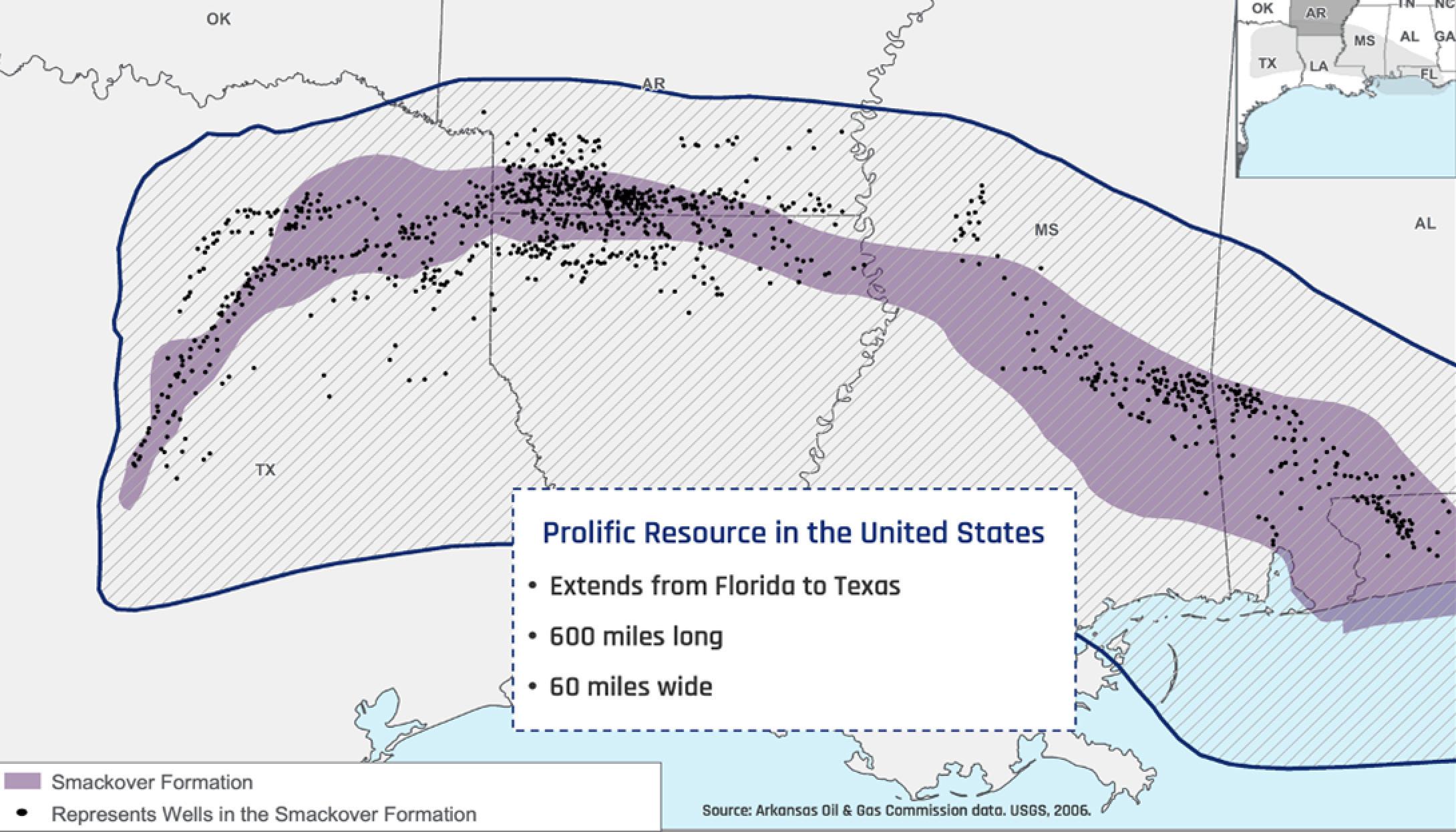
ExxonMobil has budgeted $17 billion through 2027 to invest in technologies for low-carbon emissions and develop lowcarbon technologies. What is its next move after spending $100 million on leased acreage? When does Exxon announce construction of a production site? On the other hand, does it use some of its large budget to buy SLI and get a turnkey production infrastructure, enabling it to get on the market first? Does Exxon see the value of the Lanxess agreement to use existing permitted wells, the co-developed IP and the Koch corporate name to de-risk investment?
Plus, the landowner in the lithium zone is going to benefit too. Lawyers in south Arkansas are going to be busy helping landowners benefit from the lithium boom via the Strohacker Doctrine. Arkansas oil and gas laws on file at the University of Arkansas at Little Rock documents Strohacker, which legally enabled mineral deeds: “…. the intention of the grantor should be ascertained by reference to ‘substances commonly recognized as minerals’ at the time of the conveyance.” The doctrine enabled landowners to get royalties for bromine after its discovery in the 1950s. It should apply to lithium, as well, and that is what lawyers will litigate.
History does repeat itself. Smackover was put on the map in 1922 when a wildcatter hit oil without geological engineering or seismology. The Union County town was nationally known for oil, but the best was yet to come with a new technology. In 1936, exploration teams using new seismic-enhanced technology discovered a great oil and gas formation that came to be known as the Smackover Formation. Today, the formation isn’t as productive as it was, but another new technology is going to resurrect the Smackover formation for round 3.
Brian Umberson is a native Arkansan who has worked with startups in the fields of biotech diagnostics, foodborne pathogens, oil and gas microbes, medical devices and diagnostics, as well as the automotive, steel and aerospace segments. A National Science Foundation ICorps mentor, he works with the Arkansas Association for Food Protection, the International Avian Influenza Summit and Bio+Nano+Ark.
11 ARMONEYANDPOLITICS.COM SEPTEMBER 2023
BUILDING THE RESEARCH COMMUNITY
BY INTRODUCING
SCIENCE TO THE UNDERSERVED
By AMP Staff
Dr. Antiño Allen’s path to becoming a world class physician, scientist and researcher at the University of Arkansas for Medical Sciences was anything but conventional. When he was in college, a mentor recommended that he shift his focus to biology, a suggestion that has provided Allen with a lifetime of greater purpose.
After graduating cum laude from Jackson State University and earning his master’s and doctorate degrees at Indiana University, Allen served tours of duty with the U.S. Army between 2004 and 2010. He would draw on that real-life experience as a postdoctoral fellow at the University of California at San Francisco.
It was his military experience that opened Allen’s eyes to the value of diversity. “The Army brings people together from all kinds of backgrounds,” he said. “Not only did I learn how to work with a diverse group of people, I came to understand the value of how a variety of perspectives can help solve problems.”
An Arkansas Research Alliance (ARA) Academy member, Allen’s research focuses on the effects of radiation on brain function, specifically on normal tissue response, cognitive impairment and neurogenesis. But his passion is building a research and science community comprised of talented people who do not always receive opportunities to develop their interest in innovation and discovery.
Allen leads the Summer Research Institute (SRI), a program administered by the UAMS Division for Diversity, Equity and Inclusion that provides practical laboratory and science experience to underserved high school juniors, seniors and college students who are interested in pursuing careers in research and health care. While SRI gives young scientists valuable experience in the laboratory, the program curriculum extends well beyond microscopes and petri dishes.
“Science is so much more than what happens in the lab,” Allen said. “We teach you how to write an abstract. How to create a poster. How to give a talk. The essential skills needed to become scientists.”
Allen noted that while these skills are useful for a career in science, they are also critical to succeeding in business, which is why it is important for students to have mentors from a variety of positions and perspectives.
Mentors participating in SRI are UAMS faculty members spanning a variety of departments, from cancer biology and nursing to public health, pharmaceuticals and bioinformatics. Allen underscores how important it is to show SRI students the rich diversity of career opportunities in science.
“I love working in the lab. It puts a smile on my face,” he said. “But the lab isn’t for everyone. There are so many career fields in Arkansas that require a background in science, and a key aspect of SRI is to expose young people to those opportunities.”
Through SRI, Allen, whose research is recognized with numerous awards and grants, is helping to build a stronger science community in Arkansas and populating that community with Arkansans who do not always have the clearest path to a science degree or training.

“Think how difficult it is for a first-generation college student to pursue a post doctorate without resources, without mentorship,” Allen said, recalling the mentor who directed him to biology so many years ago. “There are many science careers in Arkansas. We just want to make sure that everyone has the chance to seize those opportunities.”
As the name implies, the Summer Research Institute is made available to students every summer. Online applications open in November. Each student receives a stipend, and the program starts in May and concludes in August.
Discovery Economics is a monthly feature highlighting the work of the Arkansas Research Alliance (ARA) Academy of Scholars and Fellows, a community of strategic research leaders who strive to maximize the value of discovery and progress in the state. ARA recruits, retains and focuses strategic research leaders to enhance the state’s competitiveness in the knowledge economy and the production of job-creating discoveries and innovation. Learn more at ARalliance.org.
12 ARMONEYANDPOLITICS.COM SEPTEMBER 2023 DISCOVERY ECONOMICS
Dr. Antiño Allen
Know Your Worth and Show Your Work: A
Why You Should Have Routine Business Valuations
lmost every business owner I know understands that their business is the largest asset they will ever own. Seeing as it’s often the truth, that’s good. The shocking thing, however, is that most of those same people will never have that business valuated to determine exactly what it is worth.
When you think about it, this makes no sense at all. We live in a world where we can check our retirement and investment accounts by the minute and get email updates on the value of our homes, but for some reason, we don’t think to monitor the value of an asset that can be worth much more than both of those combined.
I have performed hundreds of business valuations in my career. In my experience, almost every business owner thinks they know the value of their business, and in most cases, they are very wrong. Sometimes, they misunderstand the process of determining value. Perhaps they incorrectly assess the risks associated with their business. Either way, the end result is the same: a mistaken – and possibly dangerous – assessment of their overall financial situation.
The reality is that business valuation is a complex process because it attempts to ascribe value to an ever-changing and dynamic situation. Every business is unique and must be evaluated as such. I have seen multiple businesses whose structure, cash flow, assets and market were nearly identical, but whose values at the end of the day were very different. That is why my colleagues and I at Pinnacle Advisors go through such a rigorous analysis process in our engagements.
At this point, you might be asking yourself: How often should I have my business valuated? That too depends on your unique position. In general, you should assess the value at a regular interval as determined by the rate of growth you are experiencing. A business in a period of rapid growth might need a valuation every two or three years. By contrast, a business that has plateaued in its growth and is focused on maintaining its market position might only need to assess value every five to seven years.
In either case, this valuation process serves multiple important purposes. First, it provides feedback to the stakeholders regarding the effectiveness of the current operation. There is no stronger indicator of success than being able to show that your day-to-day decisions are having a tangible, positive impact on the value of the business.
Having a consistent rotation of “spot checks” will also help
tremendously if you find yourself in a position where you need to be absolutely sure of the value of your business. I am engaged regularly to perform valuations for civil and criminal litigation; unfortunately, that means I constantly encounter business owners who are completely in the dark about what their business is worth.

There is also the long term to consider. Every business owner dreams of the day when they have an opportunity to sell their business or pass it down to the next generation. However, studies show that 70 percent of business owners who sell their business report feeling strong regret within one year. While this is often the result of a lack of planning for the next phase of life, that seller’s remorse can also be driven by the lingering fear that you’ve made a bad deal or sold your business at a price below its actual value. If you have regularly updated valuations on the front end, you’ll be better equipped to make a deal you can be proud of – now and in the future.
Here’s the bottom line when it comes to your bottom line: Know the value of your business, and know the metrics that go into that value. Don’t let your largest asset become your largest regret.
Victor Werley CFP, ChFC, CDFA, CVA, MAFF, CFE, CEPA, is a financial consultant in Little Rock and the founder of Pinnacle Advisors. Werley has been practicing for more than 20 years and has managed hundreds of business transitions for himself and his clients. He has spoken to numerous groups in the business and legal fields about business valuation, how to structure good business deals and many other topics. He is passionate about small businesses and helping the economy of Arkansas.

SPONSORED CONTENT www.pinnacleadvisor.net | (501) 327-6277 LITTLE ROCK • CABOT
Victor Werley





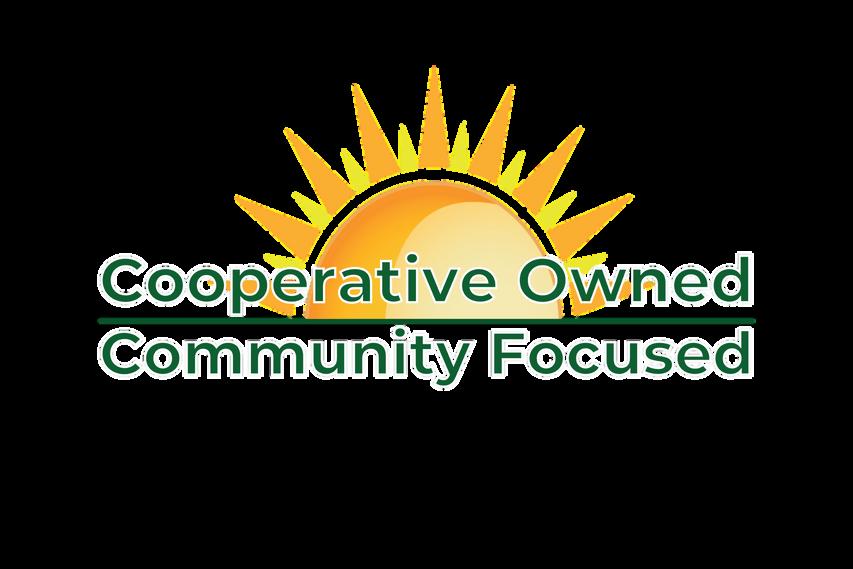






14 ARMONEYANDPOLITICS.COM SEPTEMBER 2023 IT Support You Can Trust Stress-Free IT Support that takes care of your Computers and Phones 501-758-6058 5105 McClanahan Dr., Suite J-3 North Little Rock The name you can trust to build The name you can trust to build quality, Renewable energy projects. quality, Renewable energy projects. Visit: armoneyandpolitics.com/nominations NOMINATE AMP’S POWER WOMEN 2023 Arkansas Money & Politics understands and appreciates the value of having women in positions of power. Our December issue will feature profiles on the Arkansas Power Women who are leading and making significant contributions in their careers, community and society. Nominate a woman in Arkansas who deserves to be recognized for her time, efforts and character.
rkansas is a strong banking state, home to banking institutions and industry professionals whose collective mission is to strengthen their respective communities. Inside, Arkansas Money & Politics shines a spotlight on banks, bankers, credit unions and financial advisors who make The Natural State such a strong banking state.

BANKING
A
UPER SIMMONS
Born in Pine Bluff, Simmons Bank celebrates growth and looks to the future
By Dwain Hebda
On a sun-washed day in Little Rock, George Makris is looking back through the past. Seated at a conference table in his glass-encased office overlooking downtown, the executive chairman and chairman of the board of Simmons First National Corporation examines with delight a couple of relics that have recently surfaced.
Both antiques — a pocket-sized passbook circa 1920 and a fragile hardbound notebook from 1903 containing the company’s original articles of incorporation — elicit a look of fascination bordering on delight. As testament to the story of
Simmons Bank, each tells, in its own way, of the faith and confidence behind the bank, beginning with its visionary founders, sustained by customers large and small through 120 good and lean years, and carried forward today by more than 3,200 Simmons associates.
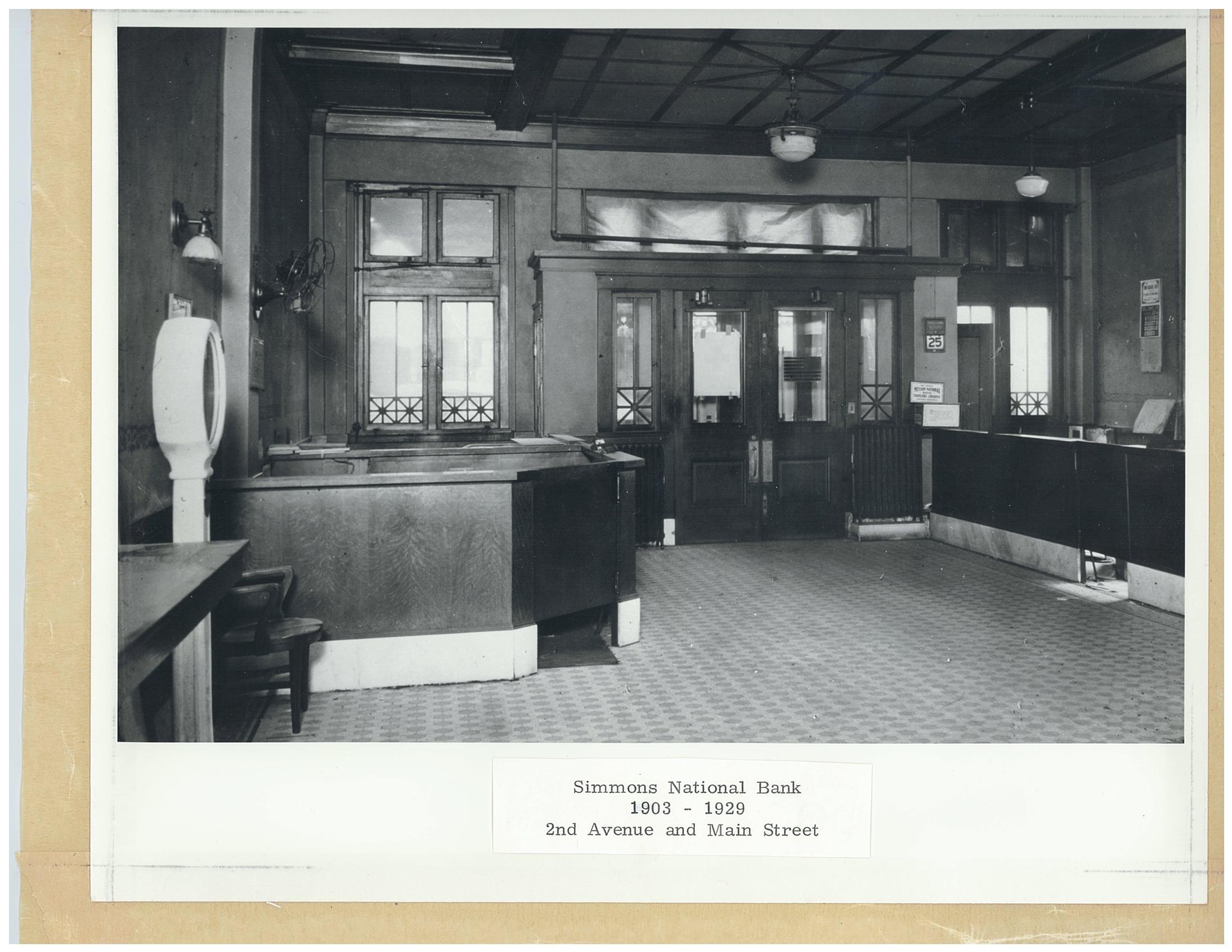
“The customers we have depend on stability, seeing the same people,” Makris said. “To sit across the table from someone and lay your entire financial life out in front of them and say, ‘Help me achieve my goals,’ is important to them.
“As we’ve grown, we’ve had to have that balance between this is where we are today, this is our base business, how do we take care of that? Then, how do we go out and offer our products and services to new customers? We can’t choose one or the other. We’ve got to have both.”
Simmons Bank has achieved that balance exceptionally well over its century-plus history, growing into an entity the founders might scarcely have imagined. Per the company’s 2022 annual report, Simmons reached $22.2 billion in total deposits, a number that has
ARMONEYANDPOLITICS.COM SIMMONS AT 120
Interior shot of original Simmons Bank lobby located in the Talbot Building, Second and Main streets, Pine Bluff.
increased nearly tenfold just since 2012.
Put in historical context, the bank that showed a $3,000 profit in its first year — about $104,000 today — reported $256 million in net income, $27.5 billion in total assets, $3.3 billion in total capital and $2.7 billion in market capitalization last year. It is the growth achieved in just the past decade that is perhaps most striking: Simmons’ average increase across those four categories is a staggering 735% since 2012.
Fueling that growth has been Simmons’ aggressive merger streak, which numbers 14 acquisitions over that time. Bob Fehlman, CEO, said Simmons’ success in M&A, as with everything else, is rooted in its small bank spirit.
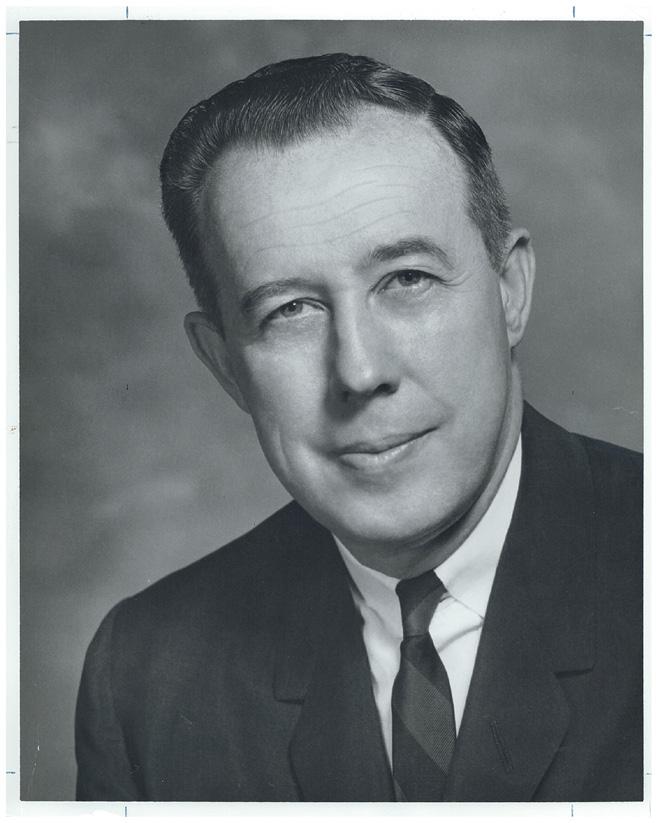
“One of the most important things is getting to know the people that own and run the [prospective merger] company, and that comes back to culture,” he said. “Before we talk price, before we get down into due diligence, we get to know the management team

17 ARMONEYANDPOLITICS.COM SEPTEMBER 2023
Simmons Bank leadership past and present includes (top photo, left to right) Bob Fehlman, Tommy May and George Makris. At left, Louis Ramsay Jr., the bank’s seventh president, who served from 1970 to 1983.
and some of the board members. The culture is critical.
“When we find a bank that fits in our footprint that really makes sense and that has culture that matches us, then we come in and look at whether it makes sense financially and how to pay for this and how to make it profitable. Those are things we can figure out as time goes on, but if the culture’s not there, that’s our biggest risk, I believe.”
On Monday, March 23, 1903, Simmons National Bank opened its doors for the first time at temporary quarters in the back of Cotton Belt Savings and Trust Co. in Pine Bluff. The first president, Dr. J.F. Simmons, was a longtime physician in town. He was joined by several prominent businessmen in the formation of the bank, as well as the

An accounting of the first year’s business showed $227,000 in loans, $38,000 in cash and an additional $15,000 in bonds purchased by the bank. By the end of the decade, the bank reported a $24,000 profit as
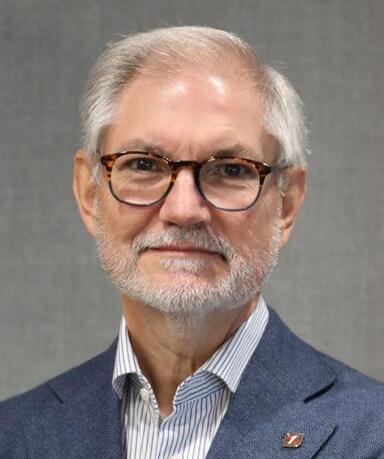
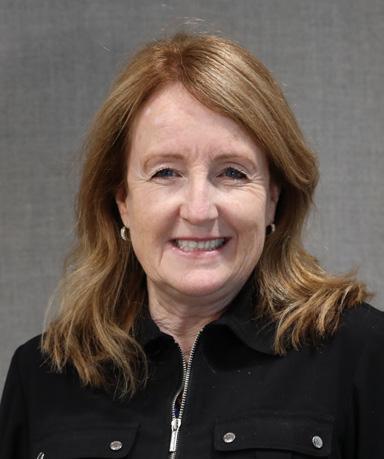
TECHNOLOGY
It had online banking and a mobile-banking platform that were extremely basic. The bank wanted to really make big changes in that.
“A lot of banks our size would’ve looked up
Madea said. “We need to have a story on how we can leverage these emerging technologies for the good of Simmons Bank. That’s the really fun part.”
18 ARMONEYANDPOLITICS.COM SEPTEMBER 2023
Alex Carriles, Executive VP/Chief Digital Officer
The “new” Simmons Bank headquarters at Fifth and Main streets in Pine Bluff, opened in 1930.
SIMMONS AT 120
Ann Madea, Executive VP/ Chief Information Officer
On January 25, 1930, the Pine Bluff Commercial printed its “Simmons Edition” commemorating the bank’s move to a grand new building at Fifth and Main streets in Pine Bluff. Described therein as a “magnificent new 11-story bank and office building,” the issue went to great lengths to extol the standing of Simmons Bank in the community and the lengths it took to erect its headquarters, announced in 1928 and completed in 1929. Among the juicy tidbits were that nearly 40 firms played a role in its construction and 3,000 gallons of paint were applied to its walls.
By the bank’s 50th anniversary in 1953, Simmons’ structure began to take on elements familiar to the banking industry today, including branches, acquisitions and even the company’s first drive thru. In January 1958, the first “computer” in Arkansas banking was installed, an IBM 407 Electric Accounting Machine, for handling the large number of cotton warehouse receipts handled by the institution. In 1964, thanks to the installation of a new IBM 1240, the first computer-generated and printed bank statements were mailed. The building itself got a modernization about this time, as news photos of the head-to-toe remodeled headquarters from 1971 attest.

Marketing the bank was always in high gear, but never to such lengths as in the 1970s, when it was common to award premiums, or merchandise, with the opening of new accounts. The first one Simmons rolled out, a wig promotion, was a resounding success. Reporting of the day noted women turning out in droves to open new accounts and, upon doing so, unabashedly trying on wigs right in the bank lobby. Various tableware items were next, and they were also a great success. Reproductions of famous paintings followed, as did a promotion that awarded grandfather clocks for large deposits.
By the mid 1980s, the bank had entered a difficult stretch, and the search was on for a leader to turn the institution around. They found it in Tommy
COMMUNITY BANKING/AG LENDING
Freddie Black and Chris White may have opposing surnames, but their backstories are cut from the same cloth. Both are products of smalltown Arkansas, where agricultural interests are the lifeblood of the community, and both were attracted to Simmons Bank for its support of Arkansas’ rural areas.
“We are different. We approach our business differently,” Black said. “Most banks have zero ag expertise and don’t even want to think about making an ag loan. We think we’re really good at it.”
In fact, Simmons ranks in the top 25 in the country in terms of ag loans, Black said, and there is plenty of runway for growth because the bank has entered new markets.
“There’s so much ag in Texas, and Missouri is also a huge ag state,” he said. “We’ve been welcomed in those spots because nobody else is talking to people about it.”
White said relationship-building in new areas has also been in overdrive to help customers in newly-acquired markets get acquainted with Simmons.


“We are very outbound now,” he said. “We want clients to know we’re in business with them. We’re going to be their partner, even during bad years.”
White said the bank demonstrated this commitment during the COVID-19 pandemic by processing PPP loans, an effort that often stretched staffers well past so-called “bankers hours.”
“Our bank really made a huge effort to help people in our communities,” he said. “I know I was scared to death if I didn’t stay up at night and do ten more PPP applications because somebody might not get their money. Where a lot of big banks said they didn’t have time to do them, we got a lot of new relationships out of it.”
19 ARMONEYANDPOLITICS.COM SEPTEMBER 2023
* * * * * * * *
Freddie Black, Community and Agricultural Chairman
Chris White, Executive VP/ Chief Community Banking Officer
The digital age dawned at Simmons Bank in the late 1950s and grew steadily into designated computer rooms in the 1970s (shown), personal computers in the 1980s and online, internet and mobile banking options today.
doubling your inventory. It wasn’t that we were going to save a lot, but we were wanting to send a message. A lot of what we did was sort of for show, but it worked. Even today, I have people say something to me about us tear-
RISK MANAGEMENT
Tina Groves, Executive VP/ Chief Risk Officer
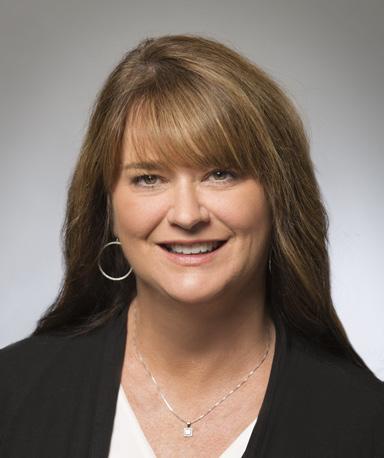
For 31 years at Simmons Bank, during which time she went from staff internal auditor to her current role four years ago, Tina Groves has had a front row seat to changing times and the changing tactics of bad actors.
“My department handles financial crimes, which would include fraud and money laundering,” she said. “It also deals with regulatory consumer affairs, risk management and quantitative analytics.
“One of the biggest risks we have in the bank are third-party relationships, where even if they are the cause of a problem, we’re held accountable for it. My department handles all of that.”
Many areas of criminality are far more sophisticated than they used to be, while others, Groves said, have reverted back to more analog tactics. This keeps the department on its toes to meet whatever the bad guys can try.
“The fraud area is a really interesting example,” she said. “We had really whittled our fraud down to very, very small numbers through a good transaction monitoring system, good controls in place on the front line and great fraud detection for our debit cards and credit cards.
“Then, in 2022, they started stealing all these checks out of the mail, and fraud went through the roof. It was very low-tech fraud. That’s kind of a flip; what’s old is new again.”
At its heart, risk management has not changed that much, Groves said — just the requirements that have to be met and the tools used to do the work. She said during her three-decades-long march to becoming Simmons’ top cop, she has not only grown her technical skill set substantially, but honed her leadership and communications skills, as well.
“Simmons feels like home to me, especially that building in Pine Bluff where I started,” she said. “It would make me happy to go to work there and made Simmons feel very much like family to me.”

20 ARMONEYANDPOLITICS.COM SEPTEMBER 2023
One of the things I learned, is it’s not always what you do it’s the message you send.
SIMMONS AT 120
W.E. Ayres, (left), 9th bank president (left) and Tommy May, 10th president.
ing those notepads in half and taking the coffee cups.”
May attacked the asset mix with similar ferocity, instilling a steely con servative attitude toward lending and investments. Within a few years, Sim mons’ balance sheet gained traction enough to allow it to get into the merg ers and acquisitions fray. Beginning in 1990, when Simmons purchased a string of failed branches of First American Federal Savings, the com pany went on a steady buying spree that slowly expanded its footprint in Arkansas. The little bank from Jeffer son County was starting to think and act like a bank several times its size.
In 1992, the bank’s credit card would unexpectedly push the in stitution into the national spotlight. The Simmons Visa charged an interest rate of just 8.5%, which led to features by the Wall Street Journal, New York Times, “Nightline” and “Good Morning America” all extolling the Delta bank with the big ideas. Calls skyrocketed after the exposure; in one 17-hour period following an appearance on “Primetime” with Diane Sawyer, call volume jumped from about 24,000 to more than 400,000.
“It was unusual for a bank the size and scale of Simmons to be a credit card issuer. Certainly that would not necessarily have been expected out of a bank headquartered in Pine Bluff, Ark.,” said Marty Casteel, Simmons board member, who spent 34 years with the bank and had a ringside seat to the phenomenon.
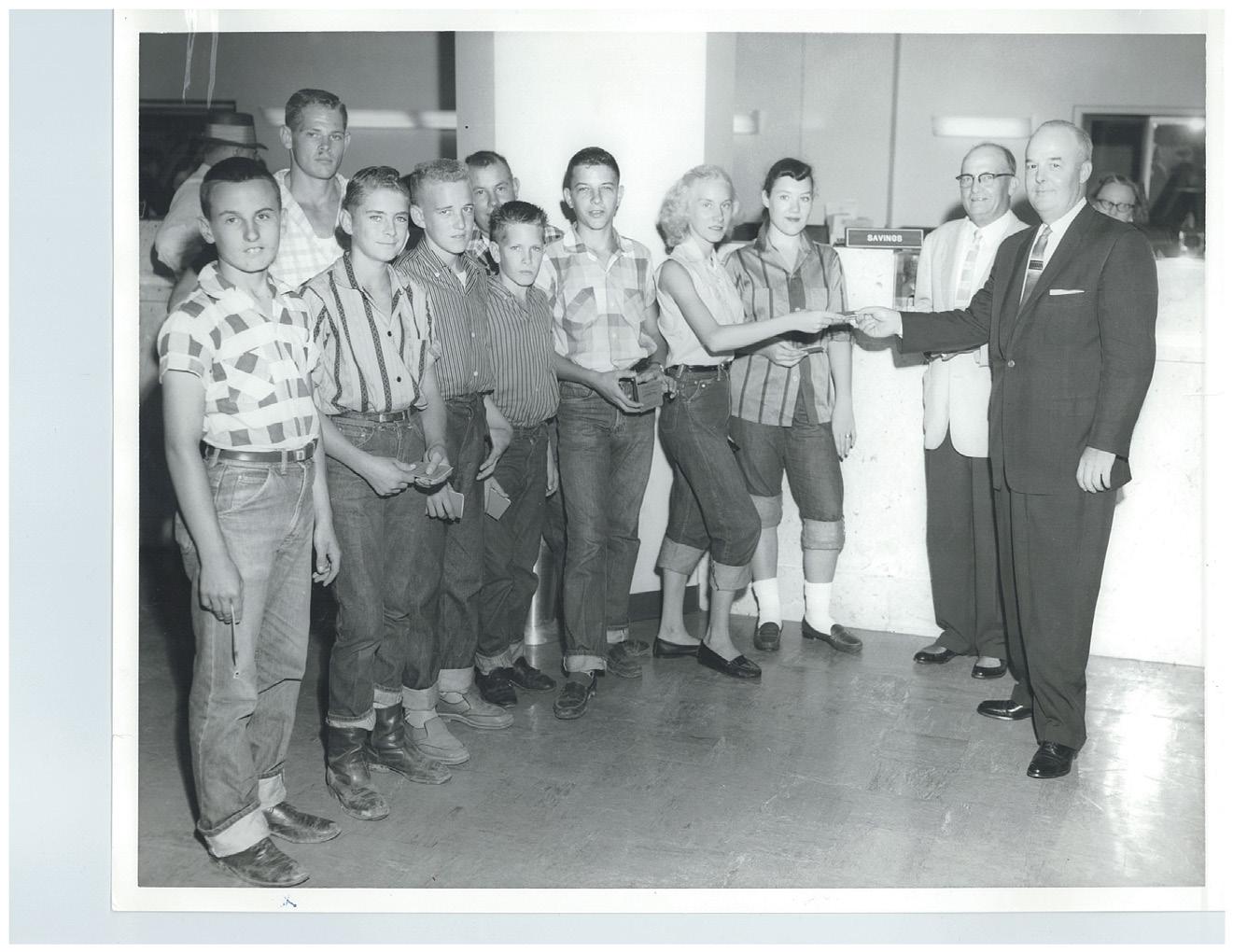

MARKETING & CHARITABLE/COMMUNITY EVENTS
On Aug. 31, Arkansas dignitaries joined Simmons Bank executives when they announced bringing a PGA Champions Tour to Little Rock. The tournament is slated to attract thousands of spectators who will spend millions during their visit, not to mention expose many visitors to the Simmons name.
It is the latest in a long line of events created to promote the brand while helping the community, something that, on Elizabeth Machen’s watch, has been raised to an art form.
“We pride ourselves on community,” she said. “A key part of our marketing structure is to empower local leaders to be able to respond quickly to those community requests that are important. Then we bring in nice air cover with our larger sponsorships.”
In just the 10 years Machen’s been aboard, Simmons Bank’s marketing has gone from a three-person department to a well-oiled and diversified corps
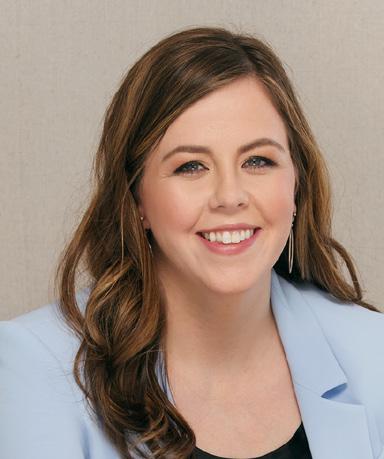
of expertise. The strategy blends Simmons brand promotion via marketing with alignment of spon sored events and properties that matter most in lo cal markets such as North Little Rock’s Simmons Bank Arena and Simmons Bank Liberty Stadium in Memphis, Tenn., to name a couple.
“It is important to us that we still maintain a healthy local allocation of marketing spend,” Machen said. “We want to empower local leaders because they’re the ones approached in the local coffee shop or getting hit up at lunch. We don’t want their answer to always be, ‘Let me check with corporate.’
“We’ve also supplemented our mergers and acquisitions with good core sponsorships to show we are a legacy brand, a strong brand that has a nice community aspect to it, as well. That’s community banking; that’s being there for the community organizations that depend on you and supporting the groups that need you.”
21 ARMONEYANDPOLITICS.COM SEPTEMBER 2023
Elizabeth Machen, Executive VP/ Chief Marketing Officer
At left, Wayne Stone (right) and R.A. Martin, greet a group of youngsters. Stone served as Simmons Bank’s 6th president and Martin was vice president and secretary of the board. Below, a mason does brickwork on the bank’s headquarters building.
DATA OFFICE DIVISION
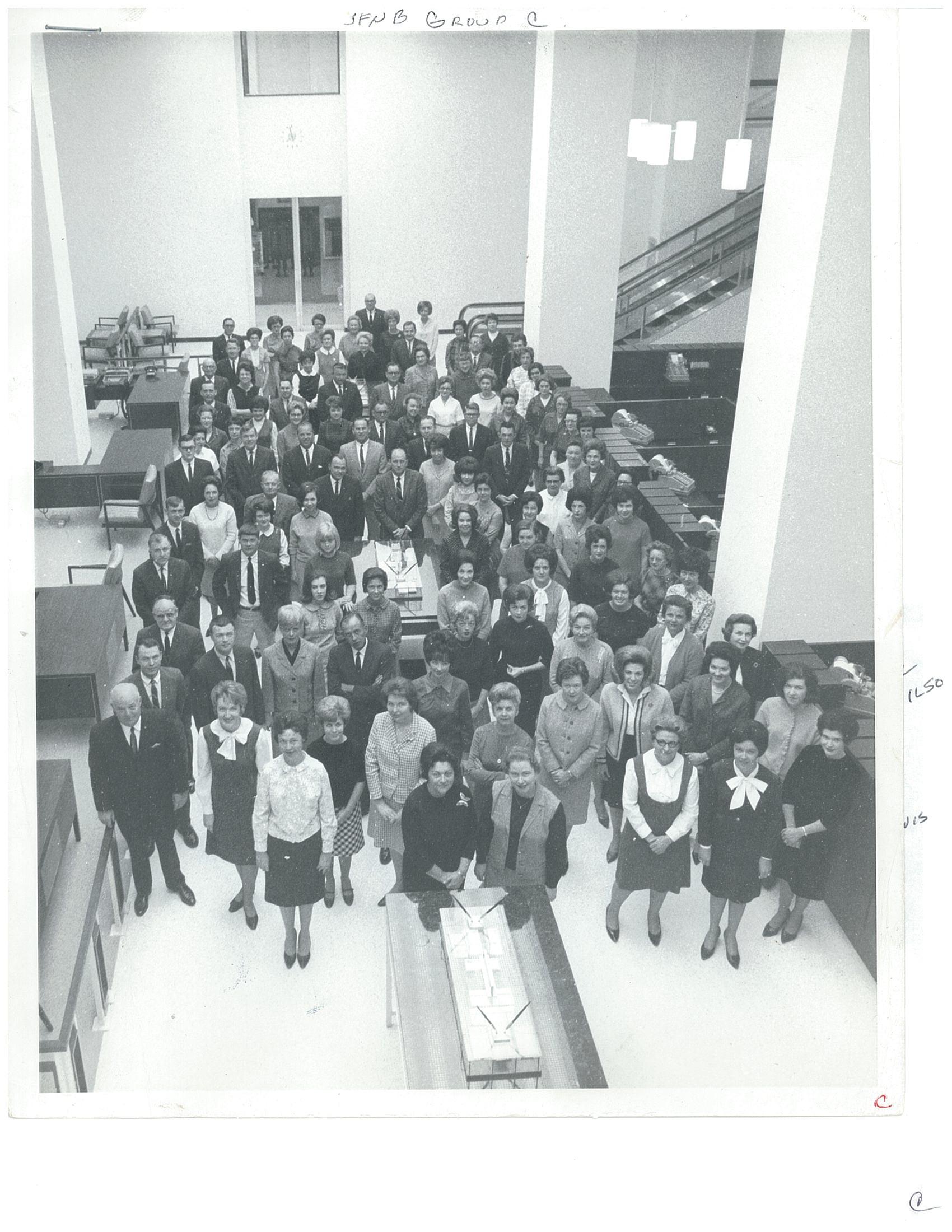 Lisa Hunter, Executive VP/ Chief Data Officer
Lisa Hunter, Executive VP/ Chief Data Officer
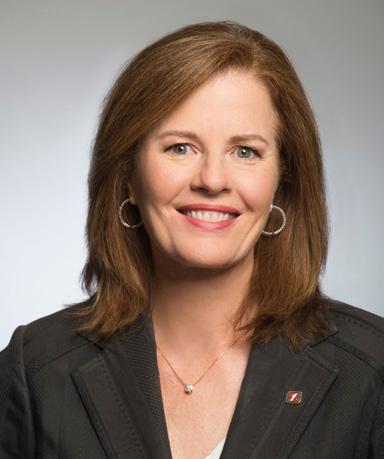
Technology is not only convenient; it is highly effective at gathering data. As industries continue to evolve in their understanding of this resource, technology has brought to the forefront a new category of executive tasked with strategically leveraging its data. Enter Lisa Hunter, a 27-year employee who became Simmons Bank’s first chief data officer in 2021.
“The role of the data office is to provide governance in the collection and use of our data,” Hunter said. “Once it’s clean and useful, we can ensure the decisions we’re making using that data are reliable, good and sound.”
Hunter said a number of misconceptions exist about her department’s function, and she is quick to note Simmons Bank neither sells its data nor uses it to target single account holders. Rather, data is viewed in such a way as to help decipher trends and opportunities.
“We are focusing on our core banking data more than anything,” she said. “We use it from a product and services standpoint, analyzing how our customers use our products and services, and then trying to improve upon them for the customer.”
Data can also evaluate internal processes, such as gauging traffic at a given drive thru or branch to assess if more resources are needed to cut wait times. These are also studied by Hunter’s department in the ongoing quest to boost the customer experience.
“If we know how we’re spending our time with customers, it can help us be a better advisor to them, which is really what the bank wants to be,” she said. “This is what that data allows us to do, anticipate customers’ needs, and then respond to those needs.”
22 ARMONEYANDPOLITICS.COM SEPTEMBER 2023
A common thread that runs through many employees’ stories is that of a culture of hiring the best people, empowering them
SIMMONS AT 120
Simmons Bank’s employees have always been at the heart of the company’s success. Here, associates gather for a group shot in the company’s remodeled headquarters.
“[Credit cards] offered a high-yielding asset. It offered an opportunity to build our loan portfolio throughout Arkansas and beyond, and it’s proven beneficial to us with goodwill and name recognition. It also says a lot about Simmons in that we did something you wouldn’t necessarily have expected us to be able to do.”
Casteel, who served as chairman and CEO of Simmons First National Bank from 2013 until 2020, said the credit card venture was representative of the executional skill the bank has always demonstrated, adhering to a simple fundamental operating philosophy. He described the underlying strategic vision as having the self-control to stick to core beliefs balanced with the boldness to act decisively when opportunities came along that fit the big picture.
“[Our philosophy] talks to the importance of having a solid bal-
ance sheet first,” he said. “That matters, as does every decision as it applies to building a strong balance sheet, which is paramount to long-term survival and the success of any organization.

“At the same time, as in the instance of offering credit card products and the other opportunities Simmons has taken advantage of on our acquisition track in recent years, I think we have proven to be conservatively aggressive. We are not afraid to be aggressive, but we’re going to be aggressive within conservative metrics that are in place and that we are going to manage and control.”
May retired in 2013 after being diagnosed with ALS, having grown the once-struggling Simmons Bank to about $4 billion in assets. Since then, he has continued to play an integral role as chairman of the Simmons First Foundation. In this way, he is creating a charitable legacy for the Simmons brand in much the same way his “Do Right” rule continues to serve as a mantra for bank employees.
23 ARMONEYANDPOLITICS.COM SEPTEMBER 2023
* * * * * * * *
Bank officials recently unearthed a ledger containing the bank’s original Articles of Incorporation and various meeting minutes. The dates on these pages are from 1910, the year the bank exceeded $1 million in resources.
REGULATORY COMPLIANCE
Before riding herd over 35 Simmons employees sifting through mountains of regulatory requirements, Sharmane Andrews was on the other side of the process as a bank examiner. Almost eight years ago, she joined Simmons Bank, an institution she reviewed and audited in her previous professional role.

“My unit deals with everything regulatory, from the Community Reinvestment Act and Fair Banking to regulatory data collection,” she said. “I have a complianceoperations team, which is the regulatory check-the-box-as-they-go-down [group]and makes sure we comply with all the regs. I also have what I call my compliance-policy group, and they are like my business-loan liaisons. They help the business loans design their procedures and their policies to meet any kind of regulatory questions.”
Under the Community Reinvestment Act, Simmons is required to invest time, resources and expertise in any part of the community
where it takes in deposits. This has led to financial literacy classes and bank accounts specifically developed for the underbanked and unbanked.
“We typically assess the needs of the community, and from that, we sometimes design products specifically for that community,” she said. “Meeting our obligations through CRA makes sure we are addressing the needs of low-to-moderate income geographies and individuals.”
Andrews’ department dovetails into a larger attitude of community service at Simmons, which has resulted in company programs and benefits that allow employees to volunteer. An active supporter of Ronald McDonald House Charities of Central Arkansas, Andrews said this perk is particularly meaningful to her.
“I just love what I do. I love community service, and I love working with the organizations that I volunteer with personally,” she said. “I also love the fact that this bank supports that.”
“I believe that every institution in the city is important, but none are more important than banking, not only for your contributions, but for being willing to invest in the community,” he said. “I brag on Simmons because our philosophy is we’re going to make a difference in the communities that we are in today.
“‘Do Right’ was sort of a thesis statement. I don’t care where an idea comes from; if it’s not the right thing, don’t do it. If you’re the CEO, you’ve got to send the message not only verbally, but in your own actions. I truly tried to do that.”
Also in 2013, longtime director George Makris succeeded May in his current role and, like his predecessor, found the bank at a crossroads of whether to advance through acquisitions or succumb to other suitors. The $53.6 million cash purchase of Arkansas-based Metropolitan Bank, which completed in November of that year, left no doubt as to what side of that decision the Pine Bluff institution had come down on.
“Scale matters in most every business, and banking is not immune to that theory. I would say though, at our size and in the markets we serve, we have all the capacity we need to be extremely successful,” Makris said. “I’m very comfortable we can accomplish what we need to at Simmons Bank at our current size. I think we’ll grow when we get back to a normal marketdriven economy at double digits a year, whether we buy banks or not. And when we do buy banks, we’re going to take that line, and it’s going to move up to a new plateau, and then we’ll start up again. We could be $50 billion in five to 10 years.”
Makris said growth is sometimes addition by subtraction, bypassing certain services today to maintain other, longer-lasting relationships that are more profitable over time. National lending, for example, provides a short-term opportunity for revenue but falls short of Simmons’ cultural yardstick for customer relationships.
“A lot of banks our size and even smaller buy participation in national shared credits,” he said. “Think about Tyson Foods. They have a credit line with I don’t know who, but let’s say JPMorgan Chase. Well, JPMorgan Chase parcels out a piece of that business to small banks. Those small banks don’t have any say-so. They just put it on the books, and when they draw on the line of credit, they make some money.
“Well, we don’t do that. We are face to face with our customers. We’re their financial advisors. We understand their business. We understand their growth plans. We have plenty of capacity for companies who want to do business that way.”
Simmons’ array of potential opportunities continues to widen as its acquisitional activity broadens its reach in out-ofstate markets. Its acquisition of Houston-based Spirit of Texas Bank, which completed last year, was a particularly good get as it brought one of Fortune’s 100 Fastest-Growing Companies into the fold, bringing in $2.7 billion in deposits and $2.3 billion in loans. It also gained 37 branch locations and strong representation in growth-rich metros Dallas, Fort Worth, Houston, San
24 ARMONEYANDPOLITICS.COM SEPTEMBER 2023
* * *
*
Sharmane Andrews, Senior VP/ Chief Compliance Officer
* *
* *
Antonio and Austin.
In one fell swoop, Simmons doubled its presence in Texas without sacrificing culture or ethos in the process, and the industry has taken note. As Fehlman observed, the highprofile deal has kept a line of potential merger partners at the company’s front door.
“What we really want is to be the acquirer of choice, and over the last 10 years, most all of the acquisitions came to us, or it was mu tual,” he said. “We’ve got, especially in our markets, a good reputation of coming in and really working with the management team and keeping their culture because it matches our own. Those are the banks we’re looking for, not somebody looking to cash out a deal.
“I think going forward, we’re going to be more opportunistic. Troubled banks mean having to clean things up, so it would have to be of significant financial benefit for us to take over a troubled bank. We would rather take over a healthy, strong bank, and I think there’s going to be pent-up demand as soon as we get on the other side of this economy.”
A common thread that runs through the Simmons story is its penchant for hiring the best people, empowering them to do their jobs today and preparing them for the challenges of tomorrow. There are many backstories to be found among employees, and not all of them trend along the lines one might expect. Pat Anderson, who has worked there 44 years, is a prime example of the company’s long-held attitude of hiring talent in whatever field it can find it.
“When I went to work here, I had never taken a finance class or banking class,” he said. “We had a government-guaranteed lending program, and that was where I started. Got some commercial back ground training, did some single-family residential lending for a while. Then I went into commercial loans, and I ended up over our commercial loan department.”


Anderson ascended to the level of regional chairman and commu nity president for various markets before attempting to retire a few years ago. Company leadership would not allow it, making him Sim mons’ first athletic director in charge of its suite at Baum Stadium in Fayetteville. There, he puts his considerable personality to use host ing bank guests at Razorback baseball games.
“It’s been a wonderful place to work because of the culture,” he said. “The people I worked for coming up gave me the freedom to try things, to make mistakes and learn from my mistakes. Just the fact that I was given some leeway to do my job with guidance as I needed it made a huge difference in my life. I still keep in great communication with my mentors, and they still help me. I’ve been really blessed.”
25 ARMONEYANDPOLITICS.COM SEPTEMBER 2023
*
* * * * * * *
we understand their growth plans and we have plenty of capacity for companies we do business with.
Drive-thrus were another banking innovation. Simmons Bank’s first one opened in 1953 (top) and soon became a standard feature at branch locations.
Amna Osmankovic, financial analyst, and Nedima Kamberovic, commercial portfolio manager, have a lot in common. Both were volleyball prodigies in their native Bosnia and Herzegovina, where they played against one another, and both earned scholarships to play for the University of Arkansas at Little Rock. There, they both learned of Simmons Bank’s reputation as a good place to work, and today, they are starting their careers as Simmons employees.

“I had no idea where I was going to be, and I didn’t see myself being in banking,” said Kamberovic, “but this opportunity widened my horizons and made me realize there is more to banking than taking deposits and giving out money. This opportunity is helping me understand where I want to be.”
Osmankovic got her first glimpse of Simmons from the inside through a
HUMAN RESOURCES
special internship program Simmons has for female athletes in the 10 schools in markets where it maintains a sponsor agreement. Tim McKenna said the threeyear-old program has resulted in numerous interns and several hires.
“We set a goal to try to have at least one hire out of each university,” he said. “We had offers to athletes from every one of the 10 schools. We’ve had hires, at least one, in eight out of the 10. We have several universities where we’ve had multiple hires, such as UA Little Rock.”
McKenna said the drive to encourage participation in the program stems from the positive qualities athletes tend to bring to the workplace.
Tim McKenna, Senior VP/Talent Acquisition & Human Resources Operations
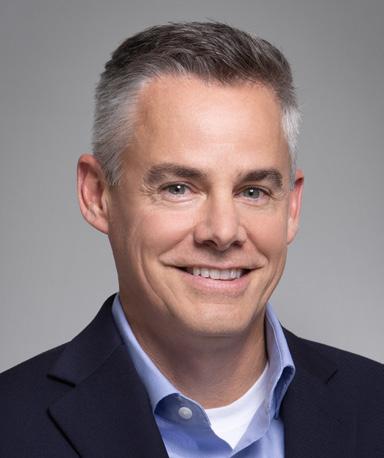
“Some of the top characteristics we look for in a good hire are things that definitely stand out with athletes,” he said. “Time management is pretty important, being able to juggle many things happening at one time. We see scholarship athletes as used to having to manage tough class loads, multiple workouts a day and interning on top of that. The ability to deal with adversity is another definite plus. Both Nedima and Amna had to deal with some tough injuries and bounce back, and that translates well to the business world.”
Osmankovic praised the internship program for getting her career on track by giving her a chance to utilize the intangible skills she developed on the volleyball court.
“Being an athlete really takes a lot of your time in college,” she said. “A lot of companies don’t like to hire for just the technical skills that you have. Being a good employee is much more than having those technical skills because most of them can be taught on the job. The important thing is the soft skills that you gain that not all people have. I think that’s a big part of life.”
26 ARMONEYANDPOLITICS.COM SEPTEMBER 2023
Simmons Bank associates and former collegiate athletes Nedima Kamberovic (left) and Amna Osmankovic.
The same mentality that brought Anderson into the fold in 1976 is still there today. Kaylei Gober originally came aboard as an intern with a program the company has for female collegiate athletes. After earning her degree in marketing and management from the Univer sity of Central Arkansas, where she ran track, she came to work there full time in 2022.
“I did have a plan in college, and it was not banking,” the Prescott native said. “Once I found out more about Simmons and I was in formed about all the different opportunities, it completely changed my mind.”
Now part of the banker foundation program, Gober rotates through different departments to figure out which provides the best career fit. She has also been assigned a mentor and has access to an executive sponsor with whom she meets regularly to talk about career mapping and gain advice on professional development.
“Simmons has so much to offer, and there are so many people wanting to help,” she said. “I love how ea ger they are to help me succeed. I’ve come to learn that banking isn’t just about loans and deposits; there’s so much more oppor tunity. I know I have a lot of room to grow.”
Sandwiched between the old guard represented by Ander son and the fresh faces of Gober’s generation are thousands of Simmons employees who perform the day-to-day work in the trenches to advance the bank’s reputation and bolster its legacy. Those people include Roshelle Brown, assistant vice president/ branch manager, who has worked there for 23 years and whose voice still rings with pride when talking to her customers.
“The first thing I have to brag about is Simmons has been Simmons Bank since 1903 and has never changed hands,” she said. “We’ve never gone under. There’s never been a negative report about Sim mons Bank. Simmons is a very strong bank that cares deeply for the customer base.”
Brown said she has seen a lot come and go, but she still sees her role as a leader as fundamentally unchanged. That is, take ownership of the cus tomer’s needs with a helpful, servant-like attitude and an entrepreneurial mindset while teaching others to do the same.
“What I tell people all the time is, the main thing that you’re gonna get when you come to Sim mons, the thing that sets us apart from everybody else, is me as your personal banker,” she said. “I stand behind what I do, and I have customers who have been my customers for 20-something years as a result. It doesn’t get any better than that.”
Technology, branch ing amenities have all changed through the years, but not Simmons Bank’s drive for growth and commitment to the
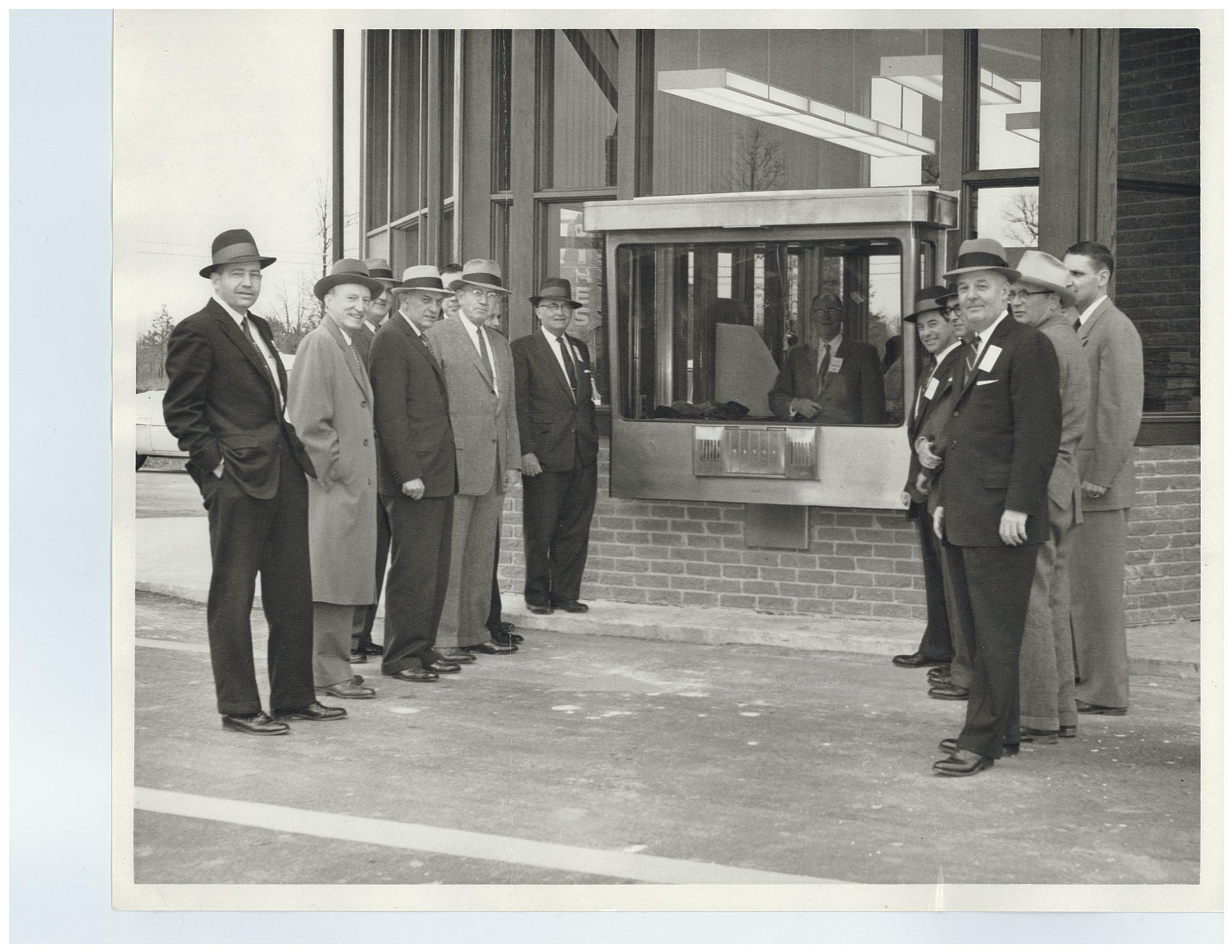
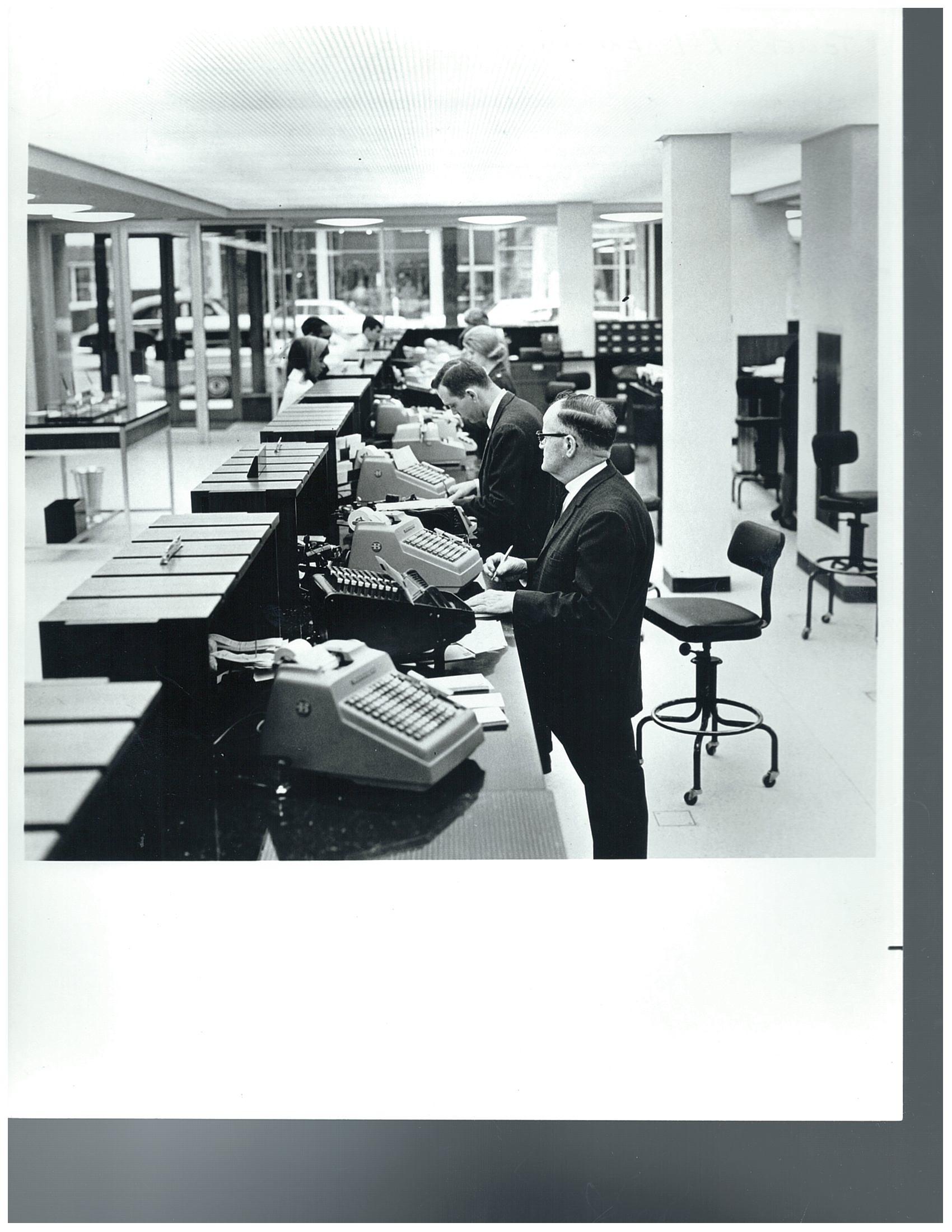
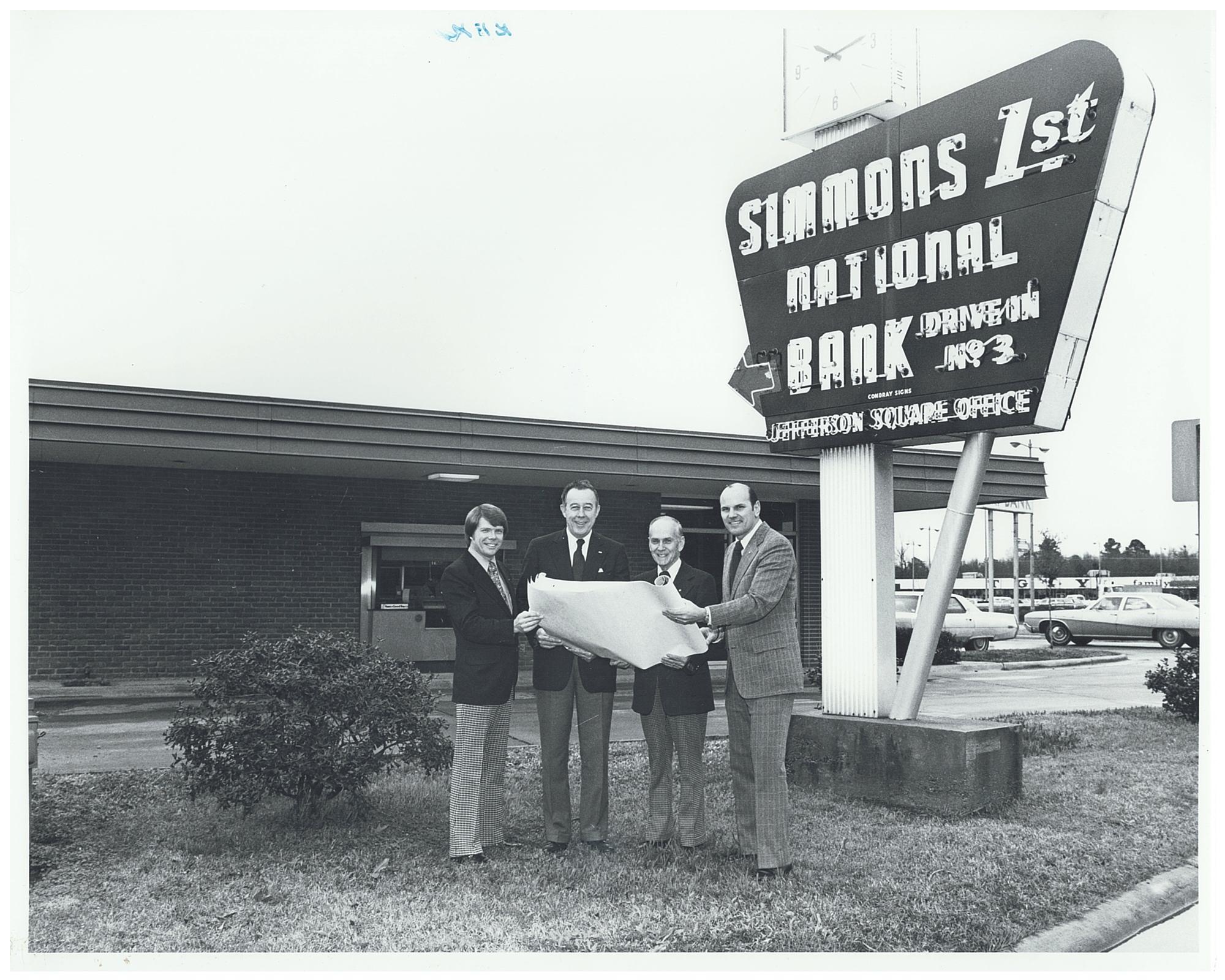
ARMONEYANDPOLITICS.COM

CUSTOM BUILT WEBSITES We can give you a MILLION DOLLAR LOOK without breaking the bank. 3948 Central Avenue | Suite D | Hot Springs (Dogwood Landing Shopping Center next to Starbucks) 501.282.3927


Trusted by five generations. And counting. For 120 ye ars, we ’ ve wor ked ha rd to ma ke ou r c u s tom e rs’ fi n a n cial goals be c o m e re alit y, wh e t h e r t hose goals look li ke b uying a ho m e , s t a r t i n g a busin e ss , se n din g a chil d to c olleg e – or simply h av i n g g rea ter c onfid e n c e w he n it c o m es to m anagi n g yo u r mon ey. Stop by a branch to talk with an advisor. simmonsbank.com/locations Subject to credit approval. Simmons Bank NMLS #484633.
FARMING FOR

Dillon Butler produces nearly 15 million pounds of chicken a year at his family poultry farm in Northwest Arkansas.
A fourth-generation farmer, Butler has seen his operation grow over the years, going from a few chicken houses when his great-grandfather ran the business to 109 houses on 16 farms spread across a 40-mile radius in Siloam Springs.
They used to raise 26,000 chickens per house but have expanded the sizes of the houses to hold between 45,000 and 50,000 in each chicken house.
He has to expand, Butler said, in order to make a living.
Higher interest rates on loans, rising equipment and maintenance costs, and increased utility bills have all put a crimp in the farming economy. As a result, new small startup farms are dwindling in the state and being replaced by multiple-family-owned businesses or corporate farms.

According to the Arkansas Department of Agricul- By
Kenneth Heard
30 ARMONEYANDPOLITICS.COM SEPTEMBER 2023 BANKING
More than ever, bigger operations necessary to succeed
Generational farms like those found in the

ture, farmland has increased across the state, but the number of farms has decreased over the past 10 years, indicative of the trend of larger farming operations.
In 2011, there were 46,000 farms in Arkansas farming on 13.7 million acres. Ten years later, the numbers show 42,000 farms toiling on 14 million acres.
“It’s more difficult now than it ever was,” Butler said. “It’s getting so tight. It used to be you could work at a chicken house and work another job in town. Now we’re seeing more and more fulltime operators. You have to do that to make a living.
“You’re starting to see the ‘mom and pop’ grocery stores fading out,” he said. “The same is happening with the smaller familyowned farms. They’re getting larger.”
Butler said while some farmers he knows have considered selling their farms and getting out of the business, he will not. His great-grandfather began his poultry farm in 1958 with two chicken houses.
“I’ve been in it since I was born,” Butler, 31, said. “There’s an opportunity here, but you’ve got to work it.
“We’re not getting out of it,” he said. “It can be debt-heavy, and farmers can owe banks a lot of money, but this is what we’ve wanted to do.”
Jim Whitaker, co-owner with his brother Sam Whitaker of a fifth-generation rice, soybean and corn farm in
McGehee, said farming has to be run more like a business now than ever.
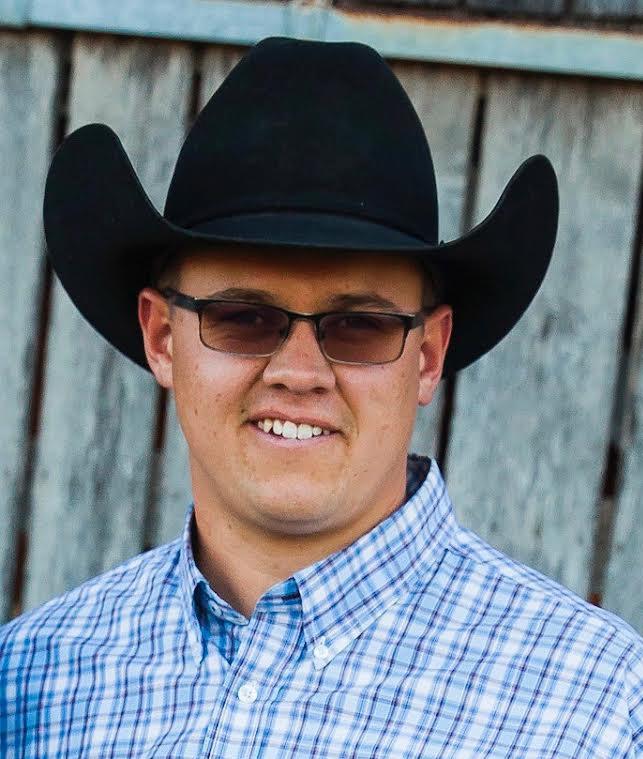
“It’s not just a lifestyle,” he said.
In the 1980s, people could begin with a loan of about $100,000 to purchase land and the needed equipment to start farming.
“That same amount now wouldn’t buy one tractor,” Whitaker said. “There are so many costs that have gone higher. Seed, fertilizer, equipment. We all feel it. The cost of living is going up, but the margin of profit isn’t.”
31 ARMONEYANDPOLITICS.COM SEPTEMBER 2023
Arkansas Delta are becoming more scarce.
“YOU’RE STARTING TO SEE THE ‘MOM AND POP’ GROCERY STORES FADING OUT. THE SAME IS HAPPENING WITH THE SMALLER FAMILY-OWNED FARMS.”
Dillon Butler
National figures also reflect the change in farming. In 1935, there were 6.8 million farms in the U.S. In 2021, the latest U.S. Department of Agriculture figures available, there were 2.01 million farms. However, the average size of farms is now 445 acres, up from 440 in 1970.
“We’ve been seeing this for a long time,” said Ray McCartney, a commercial lender with Centennial Bank in Fayetteville. “Most prices have not gone up much in 50 years, but expenses have.
“Starting up in farming is really difficult,” he said. “Fifty years ago, banks did a lot of agricultural lending. Now, we see fewer people dedicated to agri lending. Fewer banks do that.”
Interest rates range between 7 percent to 10 percent on farm loans, he said, with land being the biggest expense. In previous years, the rates were between 3.5 percent to 4 percent.
According to a University of Arkansas Division of Agriculture study, mid-sized family farms with annual sales between $350,000 and $1 million had the largest share of Farm Service Agency funds going out to beginning farmers.
Butler said it could cost a poultry producer between $1 million and $5 million to get started, based on the size and number of chicken houses needed. Houses generally are 60 feet wide by 300 feet long.
Still, McCartney said, farmers are continuing to go out of business. Years ago, he said, there were almost 300 cattle farms in the four Northwest Arkansas counties he worked in. Now, he added, there are only a “handful” remaining.
“The only way to make it is to get bigger to make more sales,” McCartney said.
Gar Lile, a land broker with Lile Real Estate in Little Rock, said farmers feel the need to buy more land in hopes of getting better yields and making more revenue to pay farm loans.

“When I was a kid, you could farm on 500 to 700 acres successfully,” Lile, 61, said. “Now, farmers feel pressure to get 3,000 to 5,000 acres.
“The lion’s share is still a way of life, but that way of life is only doable if they can carry that level of debt over every year.”
The best way to get into farming is through the multi-generational farms in which owners inherit the land from their relatives, he said.
Butler said when he was in high school, he would put a 40hour work week at the farm.
“When you got home from school, working on the farm was like a break from homework,” he said, “but that was the way it was when I was growing up.”
That kind of on-the-job experience suits farmers better than those who earn agricultural degrees and start up farming.
“Now you have to know where every dollar is going,” he said. “Sometimes, you have to prioritize your needs in order of importance. Upgrades to our house or the roads may have to be secondary. You have to be careful.”
Utility expenses used to take up about 30 percent of a farm’s profits, Butler said. Now it is more like 40 percent to 50 percent.
32 ARMONEYANDPOLITICS.COM SEPTEMBER 2023
“FARMING HAS BEEN A WAY OF LIFE, NOT A JOB.”
Parts and maintenance costs have also increased. Butler said it recently cost $2 to buy an o-ring for his water pumps. Now, those same rings cost $8 each.
Other, unpredictable factors also play havoc with farmers. The market prices fluctuate or the government may place tariffs or embargoes on some products, limiting what farmers can make from their crops.
And there’s weather. Arkansas has seen severe droughts over the past decade, along with heavy, crop-flooding rains.

In 2018, a tornado ripped through one of Butler’s farms, destroying five of his six chicken houses.
“You can’t be a farmer without having faith,” he said. “If the Lord wants you to do something, he’ll find a way for you to do it.”
Lile sees a silver lining. He said the federal government is supportive of farmers and has helped farmers through hard times with crop subsidies and some lower-interest loans as incentives to remain in the business.
“Farming still has a good connotation,” he said. “I’d rather be introduced as a farmer than a real estate broker. There’s so much pride in being a farmer.”
There are solid loans available, McCartney said, provided farmers can maintain some level of profitability. Farming apprenticeships are available to help give beginning farmers that needed on-the-job experience.
“The only way to do it is to get bigger to make more sales,” he said. “I don’t see farms getting any smaller.
UNPREDICTABLE FACTORS ALSO PLAY HAVOC WITH FARMERS. THE MARKET PRICES FLUCTUATE, OR THE GOVERNMENT MAY PLACE TARIFFS OR EMBARGOES ON SOME PRODUCTS, LIMITING WHAT FARMERS CAN MAKE FROM THEIR CROPS. AND THERE’S WEATHER.
“It’s a shame,” McCartney added. “All a guy wants to do his whole life is to farm. His life is his farm. If there’s no one to help and provide land, like family members, it will be tough to start. Farming has been a way of life, not a job.”
33 ARMONEYANDPOLITICS.COM SEPTEMBER 2023
From 1935 to 2021, the number of U.S. farms decreased from 6.8 million to 2.01 million, and the costs to run them — to maintain hay balers or irrigate rice fields — have risen dramatically.
At First Security, we’ve been investing in our home state since 1932, growing deep roots and even deeper relationships. So we are especially proud to have members of our team recognized for the outstanding work they do in our communities. Congratulations, Andrea and Michelle, on your dedication to helping Arkansans bank better!
Bank
recognizes Robyn Staggs, Global Commercial Banking Senior Relationship Manager, for being honored by Arkansas Money & Politics among their annual Women in Banking cohort.
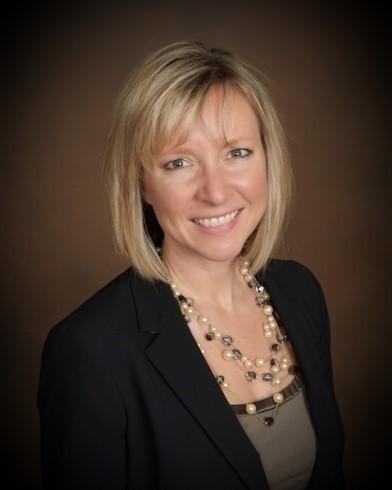

At Bank of America, our purpose is simple – to help make financial lives better, it’s who we are and what we do. It’s what Robyn does every day as she extends her abilities and resources within our local community.

We’re proud to call Robyn our teammate and celebrate her well-deserved recognition as a one of Arkansas Money & Politics 2023 Women in Banking honorees.

34 ARMONEYANDPOLITICS.COM SEPTEMBER 2023
Member FDIC
Michelle Phillips Commercial Loan Officer NMLS 2486921 Conway
Congratulations
Andrea Lewis Assistant Vice President Community Reinvestment Act Officer Business Development Little Rock
Visit us at bankofamerica.com/about. ©2023 Bank of America Corporation | MAP522931 | ENT-217-AD
of America
Arkansas Banks support Arkansas Communities

Banks across Arkansas touch every community in a variety of ways.
Banks are economic drivers with 80,805 employees and $8.5B in total compensation and benefits, in fields ranging from finance to customer service to information technology. There are 113 banks operating in Arkansas with over 1,299 branches.

Financial expertise from Arkansas’ community bankers helps the smallest businesses and the largest corporations. Banks made $6.6B/447.4K in small business loans and $546.9M/11,960 in small farm loans last year.
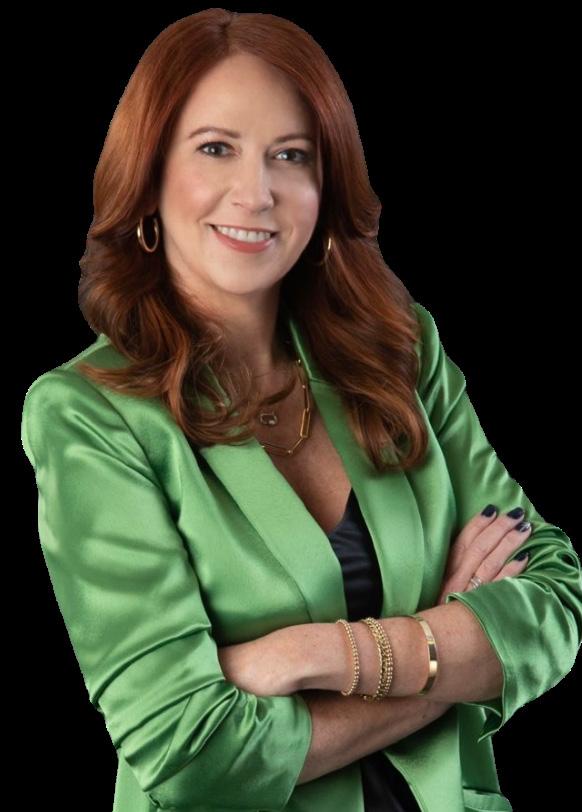
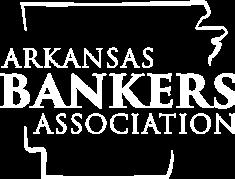
And when we give back to the communities we serve, we really give back. In 2022, our bank employees contributed over 132,400 volunteer hours to local projects and banks made $47.1M in community donations.

Congratulations! Scan or visit hopecu.org/makeithappen to open your account today.

35 ARMONEYANDPOLITICS.COM SEPTEMBER 2023
The ABA is proud to do its part to make Arkansas communities strong. www.arkbankers.org Federally Insured by NCUA Equal Housing Lender NMLS #653874 All Loans Subject to Approval Insured All Loans Subject to Approval Housing
Industry sees focus on Banking 2023
community, tech, women execs
By Mark Carter
Banking has enjoyed quite an evolution over the millennia. From barterers, money changers and Knights Templar to marble floors, smartphone apps and, for you Harry Potter nerds, security dragons.
While no one foresees the massive stone columns and marble floors of old making a comeback, much less the giant steel vault doors behind which sat bundles of cash, the immediate post-COVID era has hastened a return to banking in person, and at least in states like Arkansas, a return to true community banking.
Overall bank branch usage in the United States has grown to just below pre-pandemic levels seen from 2017 to 2019, according to a 2023 study and survey from J.D. Power, and that growth is expected to continue. Plus, 72 percent of respondents indicated their expected use of bank branches would not decrease over the coming year, while 38 percent described branches as essential. Somewhat surprisingly, more customers under 40 said they were more likely to visit bank branches more often (21 percent) than less often (12 percent.)
Arkansas shares another national banking trend. More than ever before, bank leadership roles are open to women. Not only are there more women than ever working in banking, but most financial-service industry employees are women, per banking nonprofit BAI.
In addition the number of female executives who occupy the industry’s C-suite is on the rise.
Women made up 21.1 percent of C-suite level jobs in the banking industry in North America in 2021, per research from Deloitt Insights, and the data projects that number to grow by more than 6 percent to 28.3 percent by 2030.

Indeed, the vault door to one of the more historically male-dominated industries has been opened to women. Writing for BAI, national banking executives Jill Holman (DeepTarget) and Dede Wakefield (Alogent), espoused the benefits of diversity.
“By having a diversified team, these institutions can better reach and engage with each and every customer — increasing the ability to cross-sell products, boosting customer loyalty, as well as growing customer acquisition and retention,” they wrote. “Good leadership is the ability to influence teams and achieve goals, which makes understanding the qualities of a good leader mission critical to a company’s overall success.”
Leadership qualities, of course, are not unique to a specific gender, and the banking industry in Arkansas has reflected this trend.
Arkansas Money & Politics caught up with three Arkansas banking executives to gain their perspective on these trends — from remote versus branch banking, more women in lead-
WOMEN IN BANKING
ership roles, volatile rates, the state of the industry in Arkansas and more.
Sandy Straessle was promoted this summer to chief retail banking officer at Stone Bank; Lorrie Trogden took over as the president of the Arkansas Bankers Association in 2018, and is the first woman ever to hold the post; and industry veteran Kim Whedbee is mortgage president at Signature Bank of Arkansas.
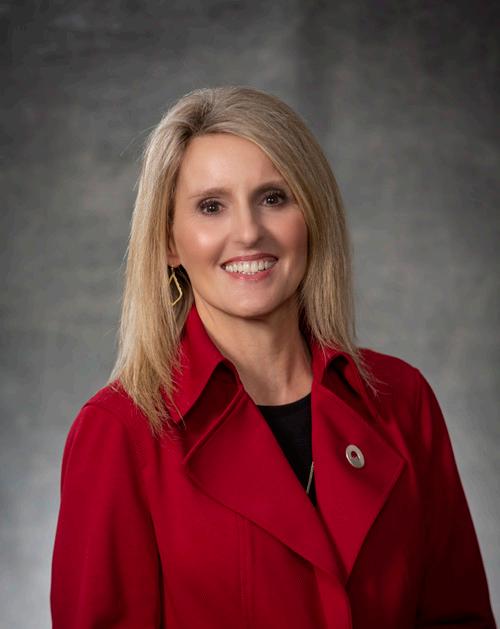
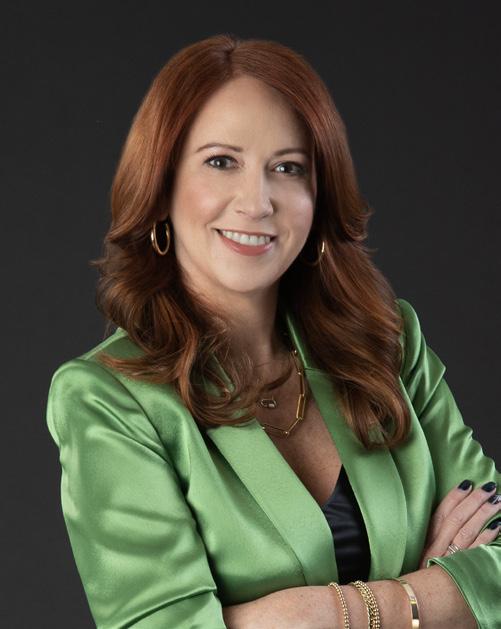
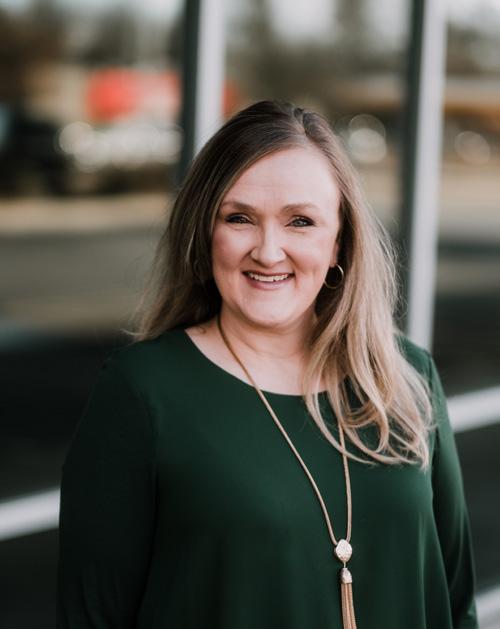
AMP: Has it truly gotten easier for women to enter the industry and then climb the ranks?
Whedbee: Definitely. I have been a banker for 28 years and have worked with many successful women. In my early years, it wasn’t common to see a woman in an executive role at a bank. Today, that has changed. Many Arkansas banks are led by women, and the number of women entering banking continues to increase. I believe this trend will continue as more senior bankers promote the industry by mentoring younger women when given the chance.
Trogden: I believe the barriers have been broken and women are being actively encouraged to enter the banking industry. Hiring is hard for many industries in our state, and bankers are always seeking top talent.
I travel around the state for bank visits and meet with a variety of people in the bank as well as bank boards. During a recent trip, I had the pleasure of meeting with a group of female managers and rising female talent in the bank. I’ve seen many such programs where banks are proactively supporting and empowering women to enter leadership positions.
Straessle: I believe it is getting easier for women to enter the financial industry. We are often still pigeonholed to the “traditional” roles held by women, and many banks still lack a female presence in executive level and decision-making positions. I am proud to work for a financial institution where the chief executive officer, chief credit officer, chief legal officer, chief operations officer and chief retail banking officer are female. These positions are traditionally held by
men. I would also note that the position of state bank commissioner is also in the hands of a very capable woman, Susannah Marshall.
AMP: Describe the state of the industry in Arkansas right now.
Straessle: The banking landscape in Arkansas has changed dramatically during my career. Through mergers and acquisitions, the number of banks in the state has been cut almost in half, while the number of bank locations has exploded. We now have several banks with assets in excess of $1 billion. The technology available to us through fintech companies, and now generative AI, is mind-boggling. Customers expect to have access to all of our bank’s services 24/7. We’re fortunate to have a very strong and efficient state bank department, which does a fair and thorough job of examining and monitoring all of the state-chartered banks.
Whedbee: Banking is strong in Arkansas, and community banking is key for our state. There is so much business opportunity in the state for all consumers, whether a personal or business relationship. Consumers want to bank in their communities. That has been our focus at Signature Bank. We are an Arkansas bank, proud to serve the communities where we live and work.
Trogden: Banking in Arkansas is sound. It is safe. It is strong. Liquidity is good, and our banks are well capitalized. Our banks continue to contribute to the vibrant Arkansas economy. Arkansas banks employ more than 80,000 people and spend over $8 billion in total annual compensation and benefits. Last year, our banks provided a little under 132,000 hours of volunteer work in their communities and made over $47 million in community donations.
AMP: Technology has made remote banking so easy, but did the quarantine of the pandemic drive some customers back to a preference for banking in person? Is there a balancing act between technology and in-person contact?
Trogden: Self-service continues to be heavily utilized, but I’m hearing from our members that customers are returning to in-branch visits. Banks provide value that is above and beyond monetary transactions. Customers find it useful to go into the bank and talk to their banker about what their goals are for the future. Whether that is buying a house, retirement, etc., bankers can help put together a financial plan for those goals. Involving your banker early on may help ease and speed up the process of what you are trying to achieve.
I think lobbies being closed during the pandemic reminded both banks and customers how much they enjoy in-person visits and the comfort they get from
37 ARMONEYANDPOLITICS.COM SEPTEMBER 2023
Kim Whedbee
Lorrie Trogden
Sandy Straessle
visiting the bank branch rather than only using an app. Both of those things are here to stay, but I think there will always be a place in the mix for in-branch visits.
One example of that is the use of banks’ community rooms. Many are heavily utilized by the community for meetings and activities. I remember a banker telling me that a group of customers who held a weekly bridge card game in their community room were anxiously awaiting its reopening after the pandemic.
But there is need for both tech use and in-person contact at the bank, and both are important to our personal banking experience. There are certain transactions that are simple to do online or via the bank’s app, but many would prefer to have a detailed discussion about more complicated items in person. I had someone under 30 years old tell me that they do all their banking online. However, when they are ready to get a home loan or some other type of milestone transaction, they want to go into the bank and talk with someone about it.
Whedbee: There will always be customers who prefer banking in the branch physically. That number is diminishing. The norm for today’s culture is to bank online, pay bills online, shop online and communicate online. Everything seems to revolve around the smart phone, unless someone encounters a situation that drives them to the bank for a quick resolution.
Before the pandemic, I met at least 70 percent of the loan applicants I served. I had the opportunity to sit down and have a conversation with them about the process to educate the borrower about all facets of home ownership. There were valuable conversations had sitting face to face, reading the facial expressions of your customer and making sure they knew what they were walking into, that they were confident, satisfied and happy throughout the process.
The ability to serve customers remotely is great, especially when we’re able to provide them a convenient process, but we’re losing some of that opportunity to give consumers that well-rounded look at their financial standing.
Consumers should have confidence in their bank, whether they’re choosing to interact in person or online. Even if the consumer does not want to or plan to come into the bank at all, it’s wise to choose a local bank that can accommodate their tech needs and still be there for them when they need to get in touch with an actual banker. There is value in knowing a banker down the street that you can get in touch with instead of sitting in a call queue in another state or even another country.
Straessle: I don’t believe that branch banks will be going away anytime soon, but they will certainly have to adapt the way they interact with customers. As we’ve built and renovated branches at Stone Bank, we’ve included new conveniences such as a “concierge desk” in place of a teller line, a customer lounge with a coffee bar, TVs and comfortable seating, private rooms for loan closings or consultations and interactive teller machines (ITMs), which allow the customer to have access to a live teller without coming into the bank.
Our branch banks are still extremely important to Stone Bank because they are mostly in rural communities where faceto-face interaction with “my banker” is still expected. At our locations in Harrison, Mountain View and White Hall, we’ve built pavilions on our property where we host everything from Veterans Day events to pep rallies and trunk-or-treats. Some of our branches also function as a community center by hosting bloodmobile and mobile mammogram events. During the pandemic, we adopted the mantra of “High-Tech Solutions for Low Touch Times.” Our ability to deliver services online was vital, but so was our ability to provide banking service at our drive-up windows and through our ITMs.
Very early on during the pandemic, we limited our branch access to drive-thru windows and ITMs, but we also felt a need to maintain a personal connection to our customers. So we called them. Every Stone Bank customer received at least one phone call from their banker just to say, “How are you? Is there anything we can do to help?” It was remarkable how many of our customers sincerely appreciated the calls. In many cases, our people were told that our offer of assistance was the only such call they’d received. During the lockdown period, people appreciated that there was someone “out there” who was thinking about them. We’ve seen that that simple gesture has resulted in increased customer loyalty.
With the diversity of our customer base and the wide range of products we offer, there’s no “one size fits all.” We believe
WOMEN IN BANKING 38 ARMONEYANDPOLITICS.COM
“The ability to serve customers remotely is great, especially when we’re able to provide them a convenient process, but we’re losing some of that opportunity to give consumers that wellrounded look at their financial standing.”
that our growth and success is largely attributable to our ability to offer personal service where many of our competitors, who are large regional or national banks, cannot. As technology-acceptance rates increase and the average age of our customers decreases, we recognize that we will have to adapt. So far, we’ve been able to nimbly balance the services we provide with the specific customer’s expectations.
AMP: Could rising rates spark more innovation in the industry?
Trogden: Banks are facing shrinking deposits which shifts focus on deposit retention and acquisition. This issue and increasing interest rates cause bank margins to shrink, which tends to reduce funds available for innovation. A stable interest rate environment offers stable income and can provide a stable allocation of capital dedicated to innovation.
There will probably still be some innovation, but the cost of new implementations, and lengthy implementation timeframes may slow execution.
Whedbee: I believe they already have; I’m seeing it in the mortgage industry already. Banks have become innovative with products that attract consumers in this volatile rate environment. That could mean an adjustable-rate product with a lower introductory rate or a buydown that offers tiered pricing. There are some creative portfolio products out there that have made banks even more competitive than they already were.
Straessle: Interest rates are cyclical. Innovation in financial technology is going to plunge ahead to accommodate whatever the conditions demand.
AMP: Just how important is “talent” to the banking industry, and what does such talent entail?
Straessle: Recruiting, training and retaining talent is a constant. As we’ve grown Stone Bank during my tenure from around 20 employees to closer to 150 (and still growing), we’ve become very good at recognizing talent and potential. Innate talent is important, but we also have to assess a candidate’s skillset, mindset, work ethic, flexibility, creativity and ability to work with others. Equally important is giving the employee the proper tools, along with a nurturing environment of coaching and rewards.
Whedbee: Talent is extremely important. A talented banker is someone who represents her bank well in the community, knows her products/services inside and out, and can confidently present and sell the best product for her consumer, all while maintaining a strong knowledge of regulatory changes and compliance standards to protect the institution she works for.
Trogden: Like any organization, banks need top talent to meet customers’ needs and keep the industry moving forward. A common misconception is that bankers are either tellers or make loans. Banks have the same needs as any other business. They need talent in marketing, accounting, cyber security,
technology, etc., just like everyone else. Arkansas has a very low unemployment rate, and recruiting talent is a big focus.
Working in a role that you are passionate about, coupled with everything banks do to serve their communities, can make for a very rewarding career.
AMP: See any new trends on the horizon?
Whedbee: Like many other industries, AI is abuzz in the mortgage realm of banking. That comes with its own set of pros and cons. For us on the bank side, it has the potential to streamline document processing and automating some manual tasks. On the consumer side, however, it could mislead consumers toward products or loan amounts a human lender would never advise them to take, especially first-time buyers.
Straessle: With the diversity of our customer base and the wide range of products we offer, there’s no “one size fits all.” We believe that our growth and success is largely attributable to our ability to offer personal service where many of our competitors, who are large regional or national banks, cannot. As technology-acceptance rates increase and the average age of our customers decreases, we recognize that we will have to adapt. So far, we’ve been able to nimbly balance the services we provide with the specific customer’s expectations.
Trogden: To name a few: 1) Data, data, data. New ways to utilize data will drive new product and service offerings, assist with capturing new deposits and aid internal portfolio and risk management. 2) There will be a continued focus on capital and liquidity for banks and regulators. 3) API is everywhere, but banks and regulators are working on the best way to utilize it without compromising customer privacy or security.
39 ARMONEYANDPOLITICS.COM
“Working in a role that you are passionate about coupled with everything banks do to serve their communities can make for a very rewarding career.”
2023 WOMEN
WOMEN IN BANKING
The executives named to Arkansas Money & Politics’ 2023 list of Women in Banking were nominated by readers. In a male-dominated industry, their perseverance, hard work and expertise have propelled them to influential positions in Arkansas banking and finance. We are proud to recognize them in this month’s issue.


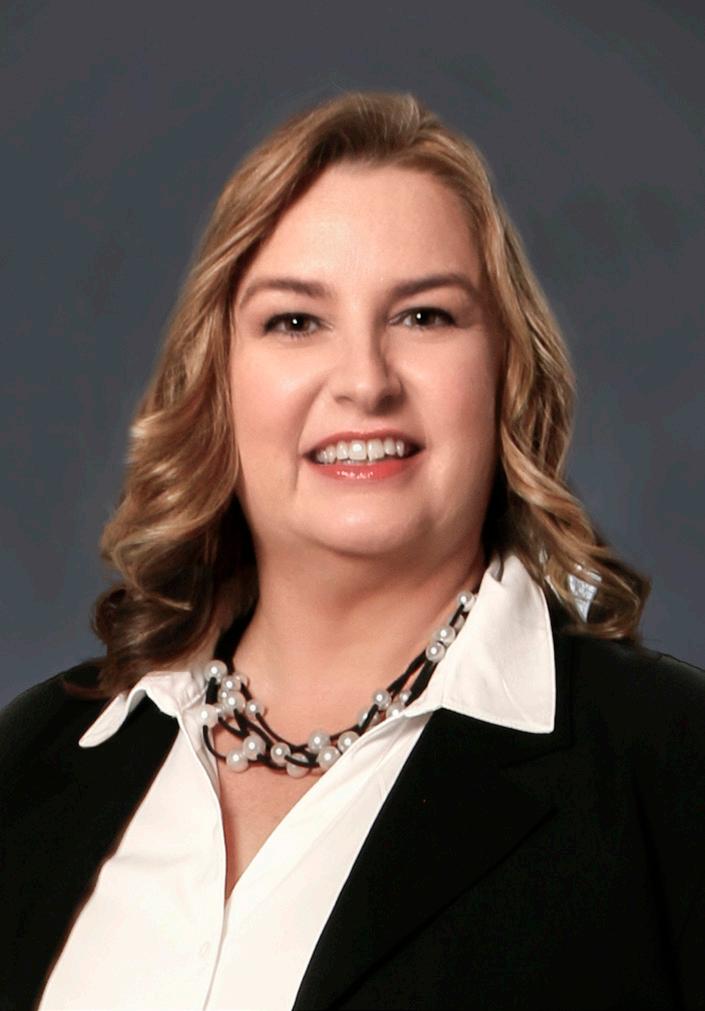
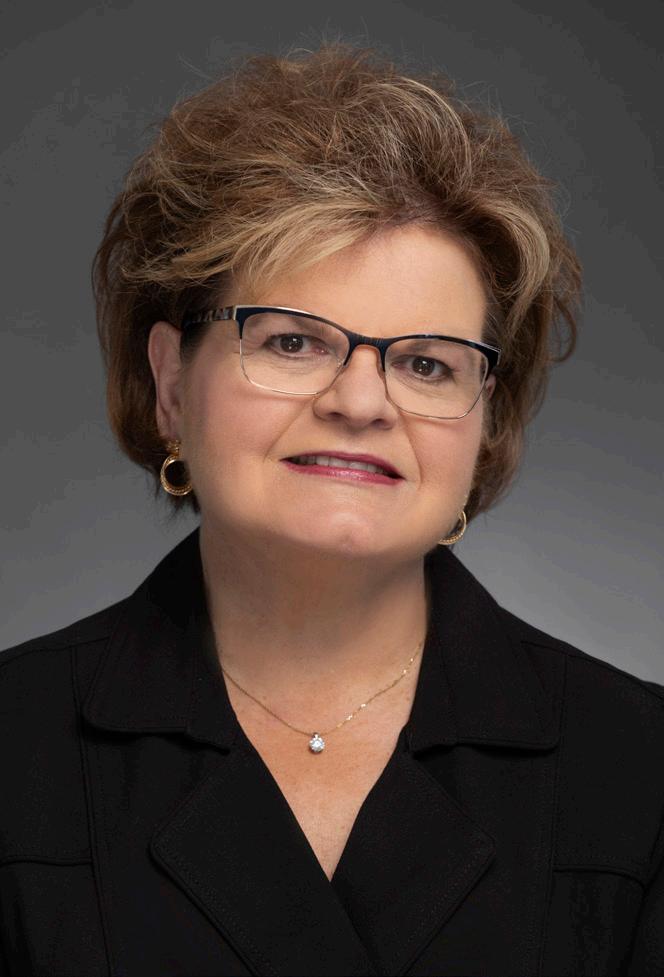
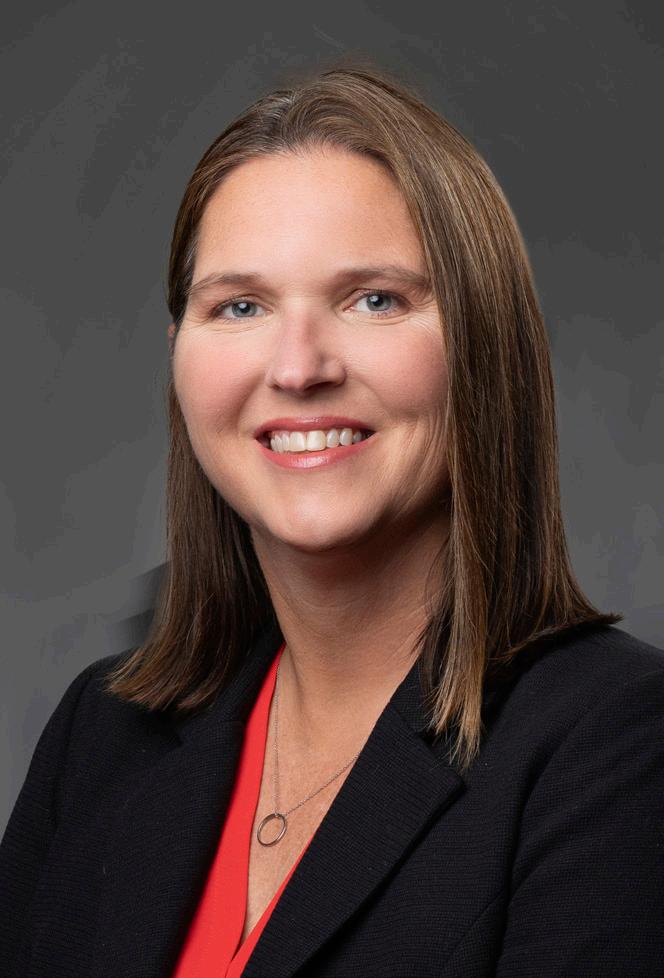

CONGRATULATIONS!
Deb Sefcik SVP | Commercial Lending Little Rock
Laura Brissey EVP | General Counsel Batesville
1-888-780-8391 | firstcommunity.net
Shena Sims SVP | Regional Deposit & Operations Director Jonesboro
We are proud of you, Laura, Shena and Deb. Thank you for your leadership, determination, and the examples you’re setting. Here’s to the women who make us who we are and their impact that reaches beyond banking.
ELIZABETH BURNS ANDERSON
Farmers Bank & Trust
KENLEA BAKER
Bank of Fayetteville
Kenlea Baker serves as vice president, market operations coordinator, for the Bank of Fayetteville and Farmers & Merchants Bank. Baker joined the bank as a teller and eventually worked as a loan assistant, loan processor, lender and branch manager. Most recently, Baker served as VP, training officer, for the bank before being promoted to her current position. Baker’s experience and wide range of knowledge make her a natural fit for her new role.
BRENDA BALDWIN
Centennial Bank
TIFFANY BARGER Simmons Bank
Tiffany Barger is vice president for medical and professional banking at Simmons Bank. Prior to joining the Simmons team in 2021, she served as VP/senior private banker and VP/ private banking advisor for Arvest Bank. She previously worked as a mortgage loan officer for Regions Bank and Bank of the Ozarks (now Bank OZK), the latter for which she was responsible for an increase of 102 percent in loans she closed over a one-year period, and she also served as a mortgage and customer loan assistant at Arvest. Barger received her business finance degree from the University of Central Arkansas.
ARTINA BLACKMON People’s Trust Community Federal Credit Union

Artina Blackmon is the senior vice president of programs and community development for People Trust Community Loan Fund, affiliated with People Trust Community Federal Credit Union, a CDFI providing access to capital in low- to
moderate-income communities. She previously served as programs and marketing director for the fund.
Blackmon, the owner of ABeYou & Create Design Co., is a graduate of the University of Arkansas at Little Rock with a degree in business management. She holds Consumer Solar Lending and Community Development Finance certifications and is licensed as a financial literacy instructor/ professional manager through the National Financial Educators Council.
MATUSCHKA LINDO BRIGGS
Federal Reserve Bank
Little Rock Branch
LAURA WOOD BRISSEY
First Community Bank
Laura Wood Brissey is an accomplished professional with extensive legal expertise and a strong commitment to both career and family. Laura holds a juris doctor degree with honors from the University of Arkansas at Little Rock William H. Bowen School of Law and a Bachelor of Business Administration in finance from Texas A & M University. She currently serves as the executive vice president and general counsel at First Community Bank in Batesville, where she oversees a wide range of legal matters including regulatory issues, mergers, acquisitions, litigation, labor and employment concerns, and more. Laura also serves as the bank’s ethics officer and chairs the pandemic committee and committee for employee financial assistance. Before her current role, Laura was an associate at Troutman Pepper in Atlanta, GA., where she represented clients in various employment disputes, harassment and discrimination claims, employment contract disputes, and wage and hour-law issues.
LISA BRUMLEY Arvest Bank

Lisa Brumley is a senior private banker, vice president at Arvest Bank. Brumley’s experience in the financial-service industry includes more than 25 years of service in Arkansas. During that time, she has served multiple private banking households and public fund entities
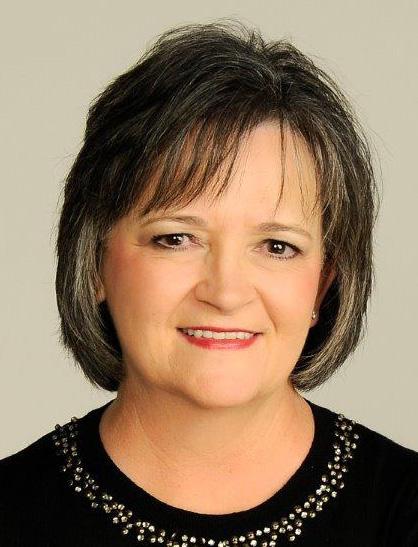
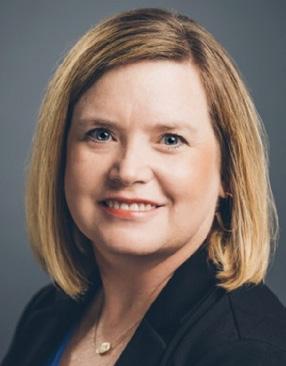
throughout Arkansas.
In her current role as a senior private banker, Brumley offers concierge service and integrated advice in all areas of financial management to address the immediate and future financial needs of clients in Central Arkansas. She is a board member of the Arkansas Symphony Orchestra.
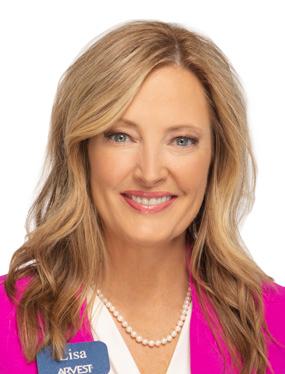
TEMPIE BUSBY
First National Bank of Eastern Arkansas
SANTANA CAMPBELL Stone Bank
Hometown girl Santana Campbell joined Stone Bank in 2022 as assistant branch manager for the Harrison branch. She is responsible for all retail banking operations at the Harrison location.
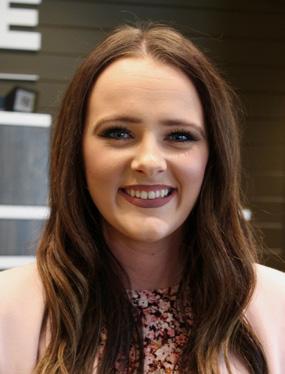
Campbell earned a business administration degree from North Arkansas College in Harrison and recently graduated from the Boone County Leadership Institute. She serves as an ambassador for the Harrison Regional Chamber of Commerce. Campbell joined Stone Bank after five years with Anstaff Bank.
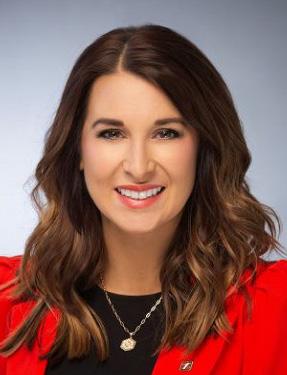
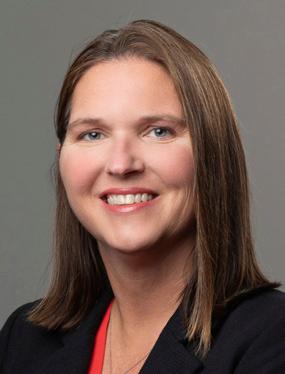
SHEILA CANNON
Stone Bank
Sheila Cannon has been a retail banker in the Pine Bluff and White Hall market for more than 30 years and has served as Stone Bank’s White Hall vice president and branch manager for the past six years. During her tenure with the bank, the White Hall location has grown assets by more than $50 million. As one of the most senior retail officers in the bank, Kannon has many responsibilities related to training and mentoring tellers and customer service representatives in all of Stone Bank’s locations.
Other duties include balancing teller cash for all branch locations and assisting other retail staff with daily operations and procedures. Prior to joining Stone Bank, Sheila was a branch manager for Simmons Bank Pine Bluff.
HALLIE CALVIN
Centennial Bank
42 ARMONEYANDPOLITICS.COM SEPTEMBER 2023
2023 WOMEN IN BANKING
Thought f ul Leadership Unlocks Greater Possibilities.
Bank OZK has a rich heritage of cultivating relationships that encourage communities, large and small, to grow and thrive. It's Bank OZK's bold and thoughtful leadership that has driven its success. We congratulate Nancy Sims, Managing Director, Business Banking, for her recognition on the Arkansas Money & Politics (AMP) 2023 Women in Banking List
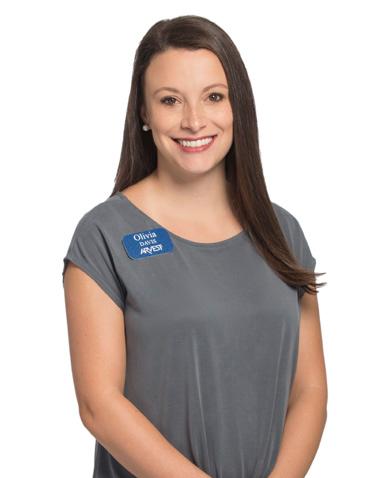
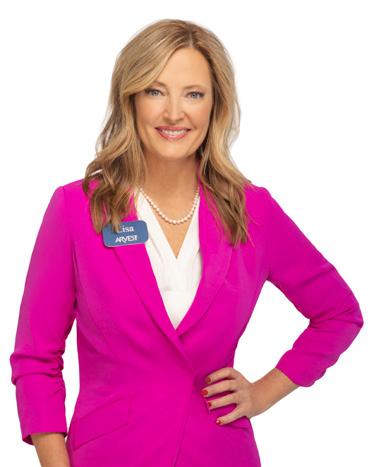
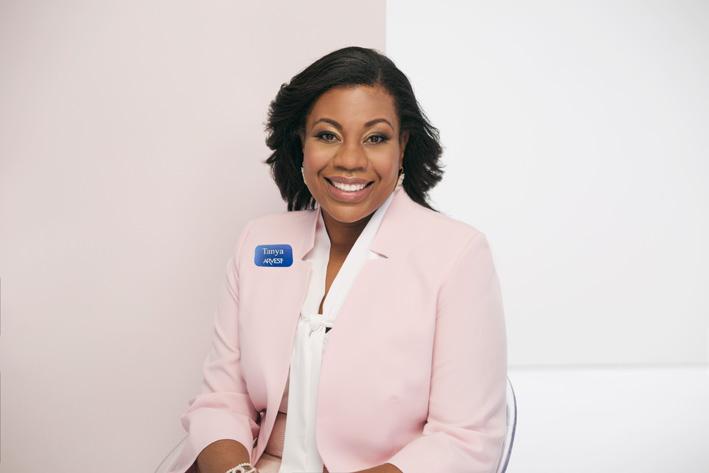

Thank you for shaping a greater future for women in finance through your expertise, tenacity and unwavering commitment to excellence. Our team members, communities and clients are inspired by you
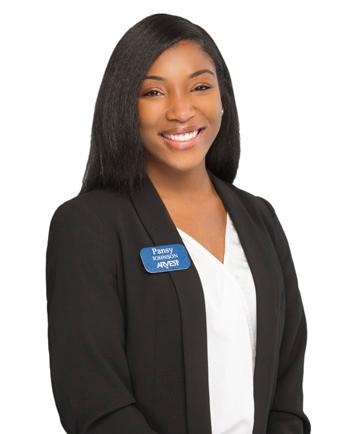
43 ARMONEYANDPOLITICS.COM SEPTEMBER 2023 Greater awaitsTM
2023
VICKI CHAPIN
Cadence Bank
KIM CULLUM
First Arkansas Bank & Trust
As an executive vice president and a member of First Arkansas Bank & Trust’s executive committee, Kim Cullum has been instrumental in the success and growth of the bank she has served for 34 years. Most recently, she led the charge in helping the bank surpass the $1 billion mark in total assets.

She is a multi-year recipient of CFO of the Year awards and has been honored with a Lifetime Achievement Award. She is a mentor to many at the bank and in the industry. A native of Jacksonville, Cullum graduated from Hendrix College in Conway.
OLIVIA DAVIS
Arvest Bank
Olivia Davis is the mortgage lender supervisor and vice president for Arvest Bank in Little Rock. In her role, Davis helps make homeownership dreams a reality while helping a team of others do the same.
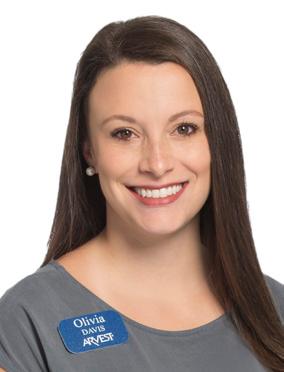
Since joining Arvest eight years ago, she has served on the board for the Mortgage Bankers Association of Arkansas, on the advisory council for the Arkansas Development Finance Authority and on several committees inside and outside of the bank. Davis graduated from the University of Arkansas in Fayetteville with a bachelor’s degree and jumped right into the real estate world.
TINA DAVIS
Farmers Bank & Trust
SANDI WATKINS ELLIOTT
Cadence Bank
VALERIE ERKMAN
Arkansas Federal Credit Union

AMY FITZGERALD First National Bank
Amy Fitzgerald has served as the CFO of First National Bank of Lawrence County in Walnut Ridge for eight years. She has worked in banking for 23 years in positions that include VP/controller, VP/internal audit manager, VP/loan officer and AVP/assistant controller. Prior to banking, she worked as an auditor for an accounting firm.

Fitzgerald earned a bachelor’s degree in accounting from Arkansas State University in Jonesboro and is a Certified Community Bank Internal Auditor through Independent Community Bankers of America. She also serves as secretary for the Rotary Club of Lawrence County and as clerk for the Arkansas State Association of Free Will Baptists.
ROBIN HACKETT
First Service Bank
JENNIFER BOYD HARDIN
The Bank of Fayetteville
Jennifer Hardin brings more than 25 years of experience to her role as COO for the bank of Fayetteville and Farmers & Merchants Bank. Since starting her career with the Bank of Fayetteville as a part-time teller after high school, Hardin has worked as a loan processor, lender, branch manager and as VP, retail operations officer. Most recently, Hardin served as the market president. She holds a bachelor’s degree from the University of Arkansas and is an alumnus of the Graduate School of Banking at Colorado.
JULIE HINKLE
Bank of Cave City
ANGELA HORTON
Generations Bank
Angela Horton is the sales manager at Generations Bank, a 115-year-old community bank led by five generations of the Harrell family.

Horton was co-founder and part of senior
leadership for two charitable organizations, where she spent more than 17 years in management, department development and staff training. She pivoted to banking six years ago with an understanding that to truly excel as a banker, she would need to learn the industry from the ground up. With that goal in mind, she took on her first banking role as a financial service representative and worked her way up through various roles on both sides of the bank ledger, eventually serving as AVP, commercial lending, before becoming sales manager.
CATHY HORTON
Fidelity Bank
MARLA HUNTER
Malvern National Bank
TANYA JAMES
Arvest Bank
Tanya James is a peoplecentered banker with 20plus years of experience who serves as program director of talent management for Arvest Bank’s four-state footprint: Arkansas, Missouri, Oklahoma and Kansas. James oversees executive coaching, talent reviews, succession planning, internships, apprenticeships and mentoring.
James is a graduate of Leadership Greater Little Rock Class XXXIII, a sustainer of Junior League of Little Rock, a member of the Little Rock chapter of The Links, a member of Beta Pi Omega chapter of Alpha Kappa Alpha Sorority and serves on several community boards, including the Cystic Fibrosis Foundation of Arkansas, Rotary Club of Little Rock and Camp Aldersgate.
KASEY JARACZ
First Service Bank
PANSY JOHNSON
Arvest Bank
Pansy Johnson is a treasury management sales specialist at Arvest Bank, where she specializes in risk management, assisting commercial and corporate clients, and supporting a team of treasury management senior commercial sales advisors. Since joining the bank in 2020, she
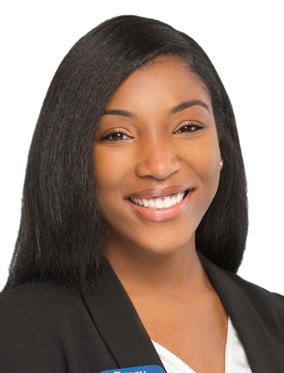
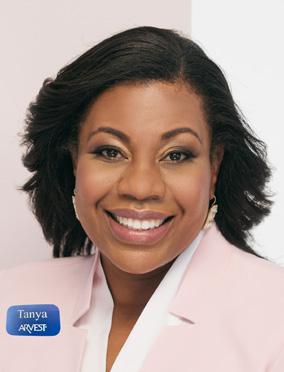
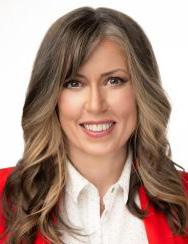
44 ARMONEYANDPOLITICS.COM SEPTEMBER 2023
2023 WOMEN IN BANKING
ANGELA HORTON
As a community bank that's been dedicated to serving Arkansas communities forward for 115 years, we ' re incredibly honored to have our Sales Manager included in the prestigious Arkansas Money and Politics Women in Banking list of female leaders shaping the future of our great state. female leaders the future





Generations Bank NMLS # 766671 | NMLS # 458241
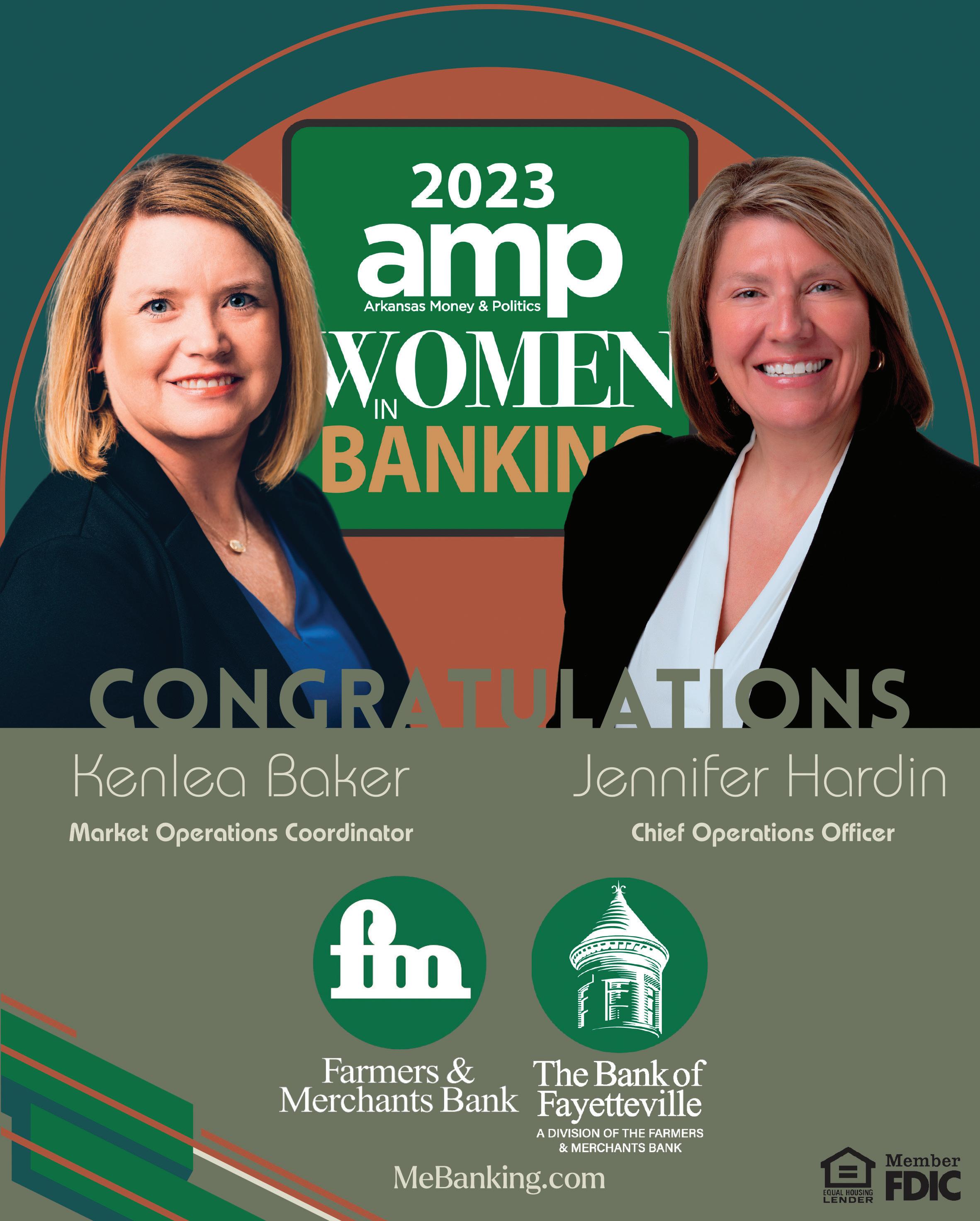
46 ARMONEYANDPOLITICS.COM SEPTEMBER 2023
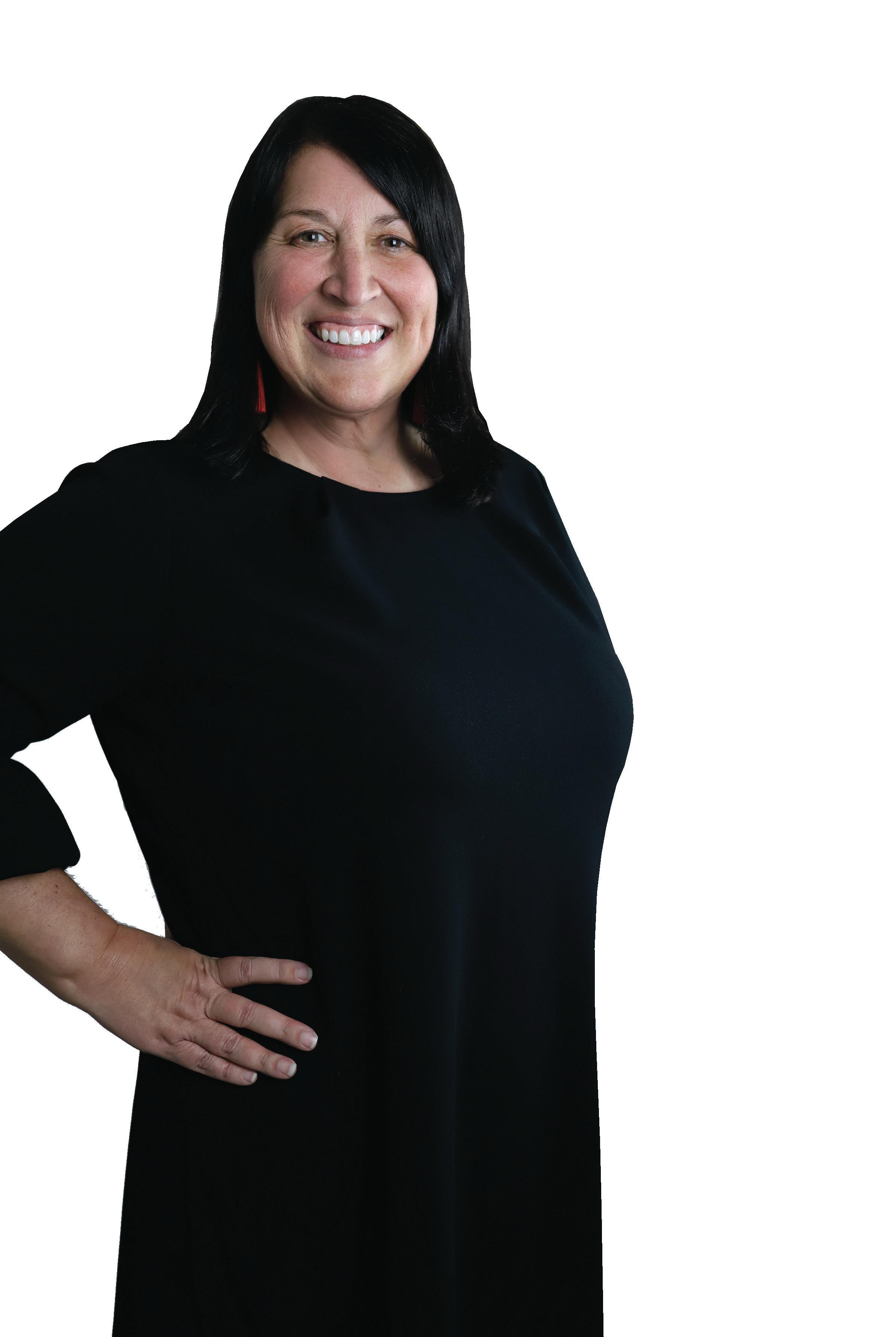
Congratulations to Stephanie Riffle, Regional Vice President of Arkansas, on your nomination to the Top 50 Women in Banking. leading the way Stephanie, employee since 2019 2023 Insured by NCUA.
has served on numerous committees, both internal and external.
Pansy attended the University of Central Arkansas in Conway, where she obtained her bachelor’s degree in public relations. She is currently pursuing an MBA at Southern New Hampshire University. She is a member of the Chi Eta Omega chapter of Alpha Kappa Alpha Sorority and the Junior League of Little Rock.
ELIZABETH KELLEY
Equity Bank
CASSANDRA KIDD
U.S. Bank
KAREN KITCHENS
JPMorgan Chase & Co.
KIMBERLY M. LEE
Hope Credit Union
Kimberly M. Lee is the financial inclusion officer at Hope Credit Union. In this role, she is responsible for building membership and partnerships while providing financial literacy and education to the members she serves. She has more than 15 years of experience in the industry.

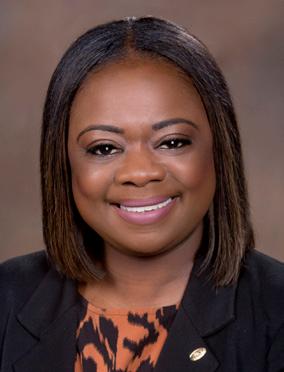
Lee is a graduate of the University of Arkansas at Little Rock and is enrolled in the MBA program at the University of Phoenix. She is a member of Alpha Kappa Alpha Sorority and serves as a commissioner for the Little Rock Land Bank Commission and on the board of Friends of KLRE/KUAR, as well as being a member of various boards and organizations. She is a sickle cell survivor and advocates for those battling the rare disease.
ANDREA HOGAN LEWIS
First Security Bank
Andrea Hogan Lewis is an assistant vice president and CRA officer for First Security Bank, where she spearheads the bank’s inschool banking program to promote youth financial literacy. An engaged community member, she is active in organizations such as the Little Rock Regional Chamber of Commerce, Our House and Economics Arkansas. She also serves as Little Rock’s city director for Ward 6.
A native of Turrell and an alumnus of the University of Arkansas in Fayetteville, where she earned an MBA, Lewis also owns her own hair-care line, Wash & Go, which encourages women of color to wear and style their naturally textured hair.
MIA WINN LONG
Simmons Bank
KIM MARKLAND
Bank of Little Rock
NICOLE MATSOUKAS
Arkansas Federal Credit Union
MICHELLE PHILLIPS
First Security Bank
A native of Dermott, Michelle Phillips moved to Conway to attend the University of Central Arkansas where she earned her Bachelor of Business degree in accounting. Michelle Phillips is a CPA and was in public accounting for more than 25 years. She owned a firm for 12 years before joining the banking industry. She is currently a commercial lender at First Security Bank. Her favorite part of being a banker is partnering with businesses and serving the community.
Michelle Phillips is a member of the Rotary Club of Conway and serves as treasurer of Bethlehem House, in addition to being a board member for Arkansas Community Foundation of Faulkner County, and a “subject matter expert” for the Conductor.
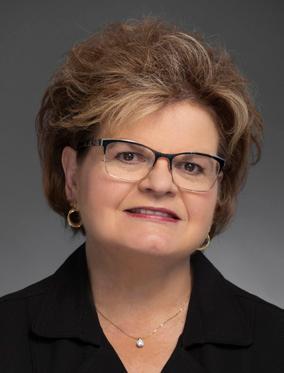
SHAMIM OKOLLOH
Encore Bank
CATHY HASTINGS OWEN
Eagle Bank & Trust
KATHRYN PANNELL
Citizens Bank
KIM PRUITT
Centennial Bank
STEPHANIE RIFFLE
United Federal Credit Union

Stephanie Riffle has spent her entire life in Arkansas. She was born and raised in Hot Springs. She has called northwest Arkansas home the past nine years and has chosen to raise her twin daughters there, as well.
Stephanie Riffle started working in banking as a teller for Boatmen’s Boatmen’s National Bank of Arkansas in Little Rock. Nearly three decades later, she is now the regional vice president for United Federal Credit Union. The credit union’s philosophy of ‘people helping people’ is something that resonates with Stephanie Riffle. She currently serves on the board of directors for the Boys & Girls Club of Benton County and is the chairperson for its resource and development committee, and she serves on the board of directors and finance committee for Saving Grace NWA, along with serving on the executive board of Arkansas Children’s Northwest Auxiliary.
DEB SEFCIK First Community Bank
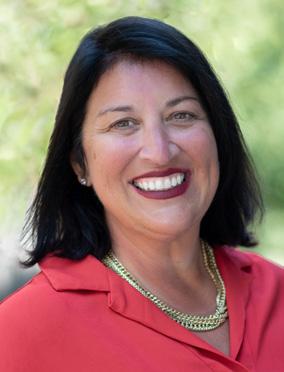
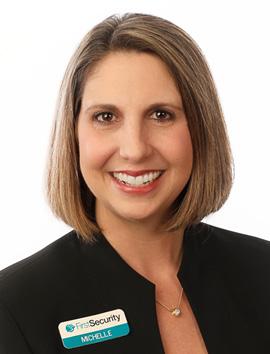
Deb Sefcik, a career banker, has more than 40 years providing topnotch service to individuals and businesses across Arkansas. Currently a senior vice president in commercial lending at First Community Bank, she learned banking from industry leaders in both community and metropolitan banking arenas. She has an associate’s degree in accounting, attended the Southwestern Graduate School of Banking at Southern Methodist University in Dallas, and completed numerous courses through the American Institute of Banking, an American Bankers Association affiliate. Together with a group of Arkansas bankers, Sefcik founded and was executive director of the Center for Financial Training.
Sefcik currently serves on the board of directors of Ronald McDonald House Charities of Arkansas, in addition to volunteering at its events and fundraisers. She founded and led West Village, a non-profit organization designed to revitalize businesses along the Rodney Parham corridor in West Little Rock.
48 ARMONEYANDPOLITICS.COM SEPTEMBER 2023
2023 WOMEN IN BANKING
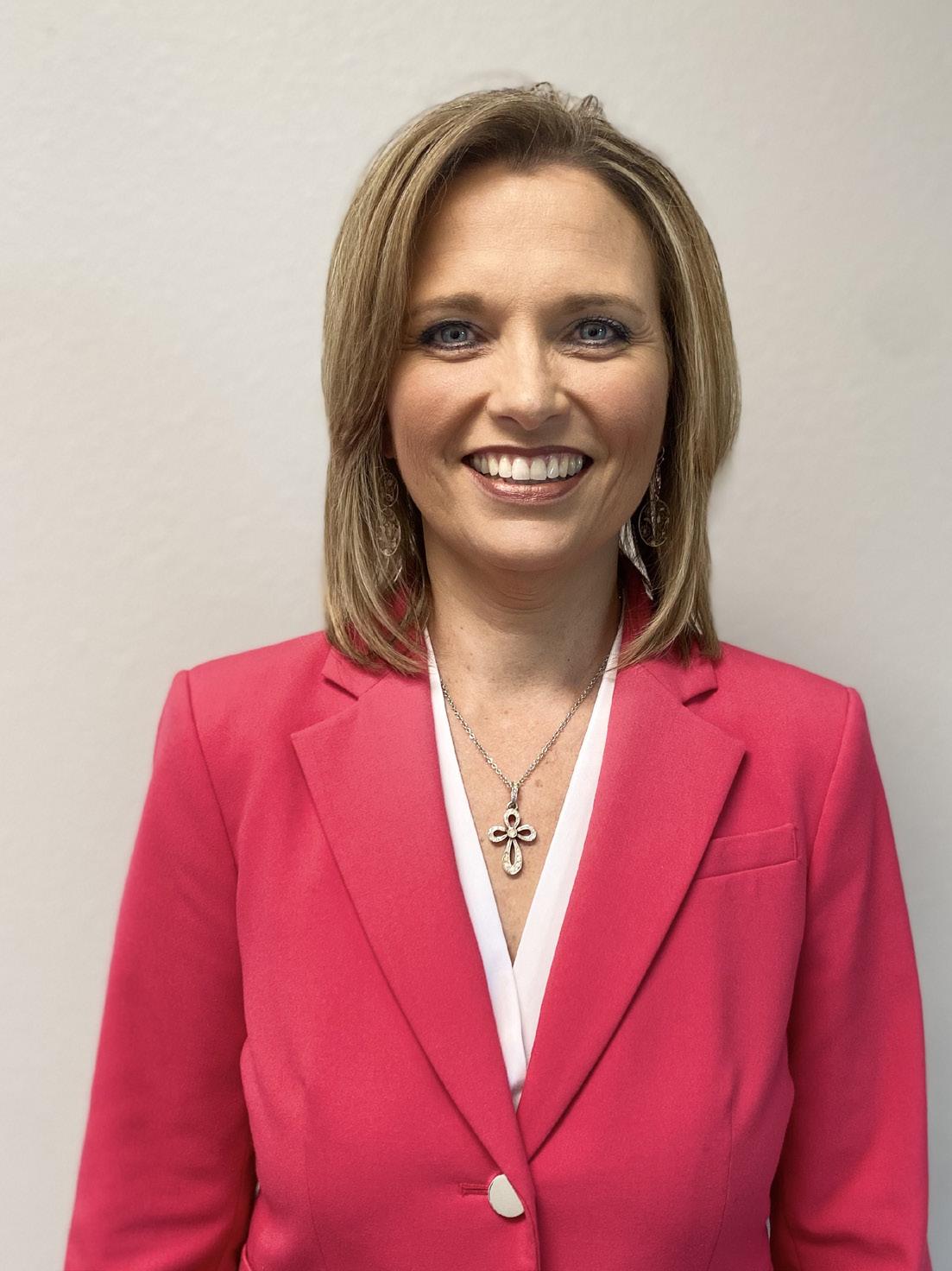









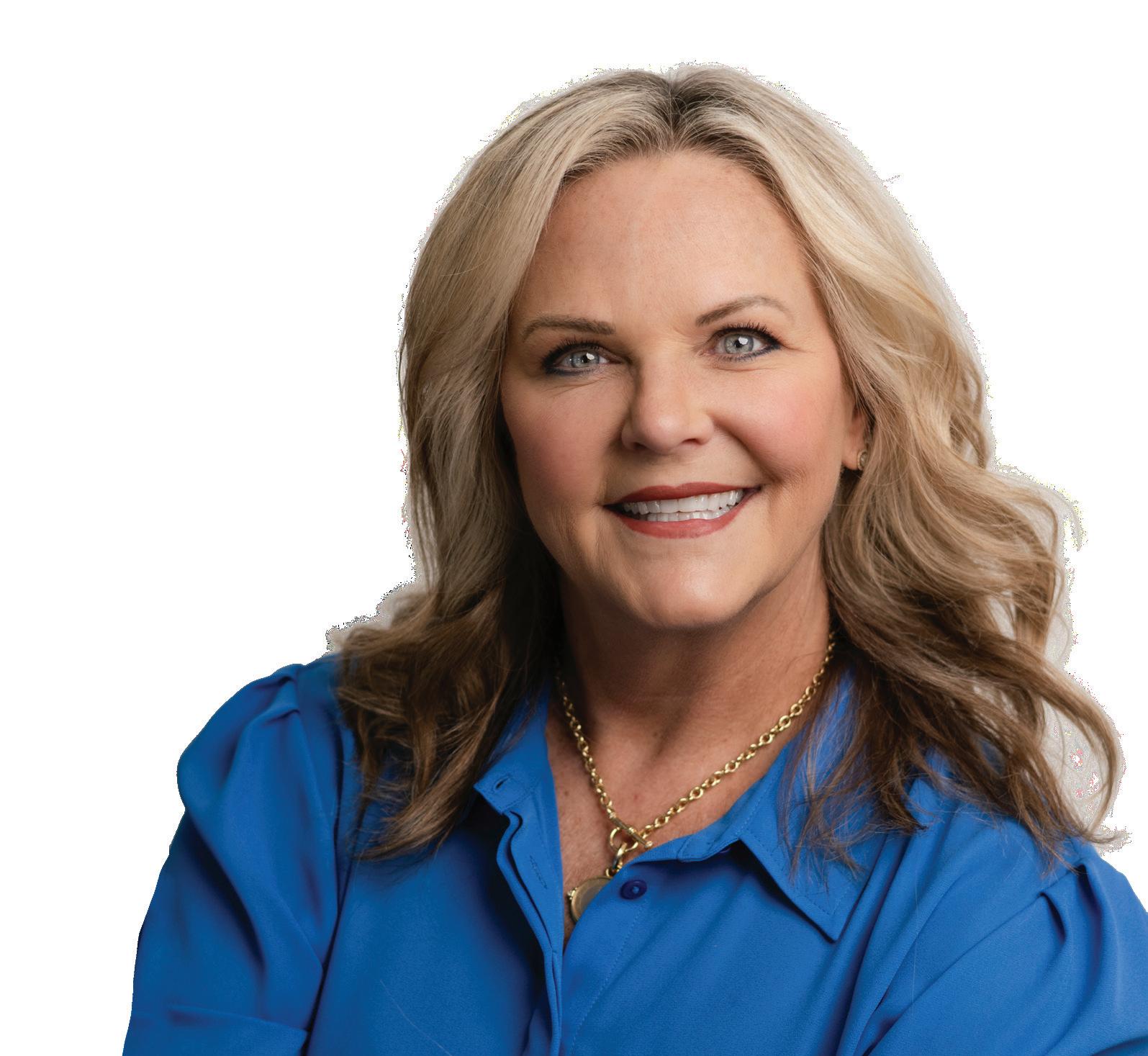
49 ARMONEYANDPOLITICS.COM SEPTEMBER 2023 2023 Congratulations Amy Fitzgerald, Chief Financial Officer at First National Bank 206 West Main Street Walnut Ridge, AR 72476 www.firstnb.bank Toll Free: 1-(800)-530-7561 for being named one of AMP’s 2023 Women In Banking! MEMBER FDIC @FABANDT | FABANDT.BANK FAB&T CONGRATULATES KIM CULLUM CHIEF FINANCIAL OFFICER Thank you for your hard work, wisdom, and dedication. FAB&T and our customers are better because of you. 2023
Nancy Sims is managing director of business banking at Bank OZK. A career banker with more than 30 years of experience, she joined the Bank OZK team in 2018 as a community banking business risk officer. Sims has also contributed to Bank OZK’s lending team as a strategic initiative manager and government-guaranteed lending sales manager. Given her deep industry expertise and unwavering commitment to providing exceptional customer service, Sims was recently appointed to lead the bank’s business banking team that provides financial tools and resources that empower small to mid-sized businesses and promote their sustained growth.
SHENA SIMS First Community Bank
Shena Sims is the senior vice president, regional deposit & operation director, at First Community Bank. While overseeing seven Jonesboro branche, she also assists the the financial organization with deposit strategy in an effort to foster growth. Sims has more than 24 years in the banking industry; she joined First Community Bank in 2014. She holds a bachelor’s in speech communication with a marketing minor from Arkansas State University. She actively participates in philanthropic initiatives such as United Way of Northeast Arkansas’ Day of Caring event, KAIT’s Gr8 Acts of Kindness initiative and First Community Bank’s Piggy Bank and Teach Children to Save programs.
STEPHANIE SIZEMORE
Commercial Bank and Trust Co.

SANDY STRAESSLE Stone
Bank
training department. Prior to joining Stone Ban in 2016, she had 15 years of banking experience with Regions Bank in Little Rock, including as senior vice president of retail administration.
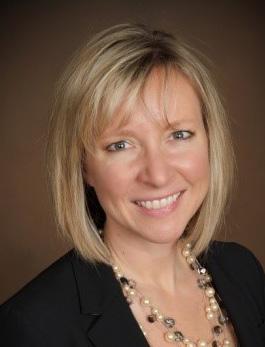
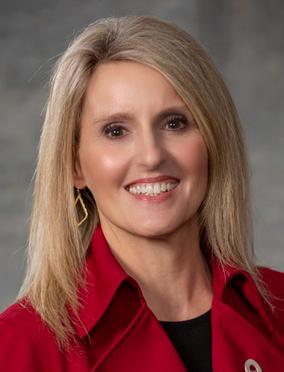
Straessle attended the University of Arkansas at Little Rock and is a graduate of the Arkansas State Chamber of Commerce and Associated Industries of Arkansas Leadership Arkansas program. She also sits on the board of Junior Achievement of Arkansas. She recently completed the ABAWharton Leadership Lab Program and is a graduate of the 2022 Graduate School of Banking Sales & Marketing School. She currently serves as the program chair for Arkansas Women Executives and was recognized by Arkansas Money & Politics as a Power Woman in Banking in 2020 and 2021.
ROBYN STAGGS Bank of America
Robyn Staggs leads a team of specialists focused on understanding each clients’ unique needs to deliver strategic financial guidance and solutions. Robyn Staggs joined Bank of America in 2005 with ten years of banking experience analyzing and structuring credit for middle-market clients in Arkansas, Oklahoma and Missouri.
Robyn Staggs volunteers with several nonprofit organizations to help create a more sustainable future for the companies and communities she serves and is on the board of directors for the Samaritan Community Center. She is the market integration executive for Arkansas, serves on Bank of America’s volunteer network, is the Digital Champion for her region and participates in the virtual chapter of LEAD for Women.
KENDALL STUBBS Stone Bank
Stubbs has a bachelor’s degree in business management and was recently recognized by the Arkansas Bankers Association as an emerging leader in the industry. She also was recently named to the Ozarka College Business Technology Advisory Council and leads a group in the bank called “Rock Stars,” who are responsible for keeping Stone Bank employees engaged at all levels of community service in Stone County.
LORRIE TROGDEN Arkansas Bankers Association
Lorrie Trogden became the first female president of the Arkansas Bankers Association in 2018, and if you’ve ever met her, it’s clear to see how she got there. Self-described as dedicated, fiercely loyal and even a bit stubborn, Trogden doesn’t shy away from hard work – she tackles it head on. She embodies the idea of loving one’s career, and she takes pride in advocating on behalf of the banking industry to better protect institutions and their customers. Trogden backs up her confidence in the field with a compassion for others, and it is this balance that allows her to keep blazing a trail for other women in banking.
KIM WHEDBEE Signature Bank of Arkansas
Sandy Straessle, executive vice president and chief retail banking officer for Stone Bank, is responsible for the sales and operations at all of Stone Bank’s branch locations and heading the bank’s
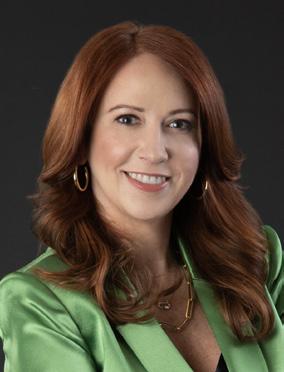
Kendall Stubbs is a Stone County native who has become an important community leader as Stone Bank assistant vice president and Mountain View branch manager. In her role as branch manager, she has led sales efforts which have resulted in a $30 million increase in deposits in her market.
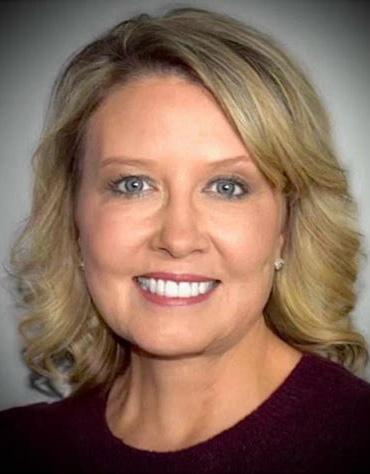

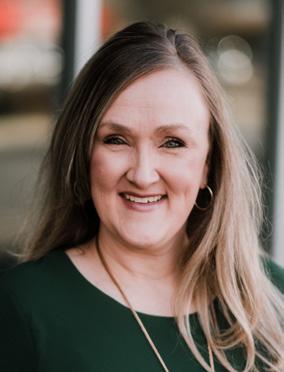
Kim Whedbee was promoted to mortgage president of Signature Bank of Arkansas in January of this year. Whedbee has been with Signature Bank since 2014 and previously served as mortgage underwriter and mortgage lender. She brings a wealth of knowledge and experience to the position, having worked in the banking industry for 26 years. Whedbee previously worked as a mortgage loan originator for First Security Bank, Bank of Arkansas and Arvest Bank.
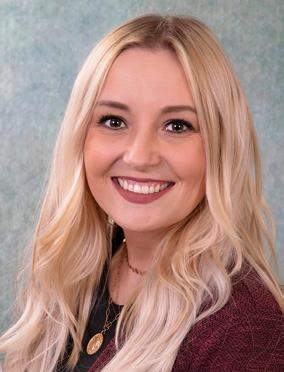
ASHLEY WISER Chambers Bank
50 ARMONEYANDPOLITICS.COM SEPTEMBER 2023
NANCY SIMS Bank OZK
2023 WOMEN IN BANKING


Yes,
Banco Sí speaking customers’ language
please
By Angela Forsyth // Photos Provided
As Banco Sí approaches its first anniversary, the Rogers-based bank has a lot to celebrate. The newest division of Signature Bank of Arkansas is the first dedicated bilingual bank in the state with a full staff that is fluent in Spanish and English.
The newest location officially opened its doors in September 2022 in the heart of one of Northwest Arkansas’ largest Hispanic communities. During its first year in business, this location has been so well-received that Signature is already planning a second location in Springdale, set to open later this year.

Tori Bogner, Signature’s senior vice president for marketing, attributes the bank’s success to its determination to reach customers where they are, all while being approachable and available for real in-person conversations in people’s native language.
The mode of operation goes further than having a translator on site or a bilingual teller behind the counter, she said. The mission is to offer an entire banking experience in Spanish or English, whichever the customer prefers, and there is an
52 ARMONEYANDPOLITICS.COM SEPTEMBER 2023
BANKING
The Hispanic community in Northwest Arkansas has responded favorably to Banco Si’s presence.
increasing number of Spanish-speaking customers to serve. The Hispanic community has grown right along with the region.
In 1990, the region had a population of just under 240,000, and just 1.3 percent of it was comprised of Hispanics or Latinos, per the Northwest Arkansas Council. Fast forward to 2022, and the region is home to more than 581,000 people with 17.9 percent — more than 104,000 — identifying as Hispanic or Latino.

“We wanted to alleviate the need to have a translator and allow people to have that one-on-one conversation in the language they’re comfortable with, whatever realm of the banking world you need to deal with,” Bogner said.
In essence, a customer could walk in, make a deposit with a teller, then sit down with a lender and go over loan options or even talk directly with the bank manager if there were any concerns — all with the confidence of a person speaking in their native tongue. Effectively, Banco Sí is giving a voice to people who might otherwise feel disconnected from their surroundings because of a language barrier.
To further reach out to the growing Hispanic community, the Banco Sí team has taken a hands-on approach to marketing, finding it much more effective than traditional advertising. Throughout the year, employees have attended events throughout the area, actively engaging people in one-on-one conversations to explain their offerings.
“People are responding better when we’re somewhere in person,” Bogner noted. “There’s only so much you can say in an ad before you have to include a bunch of fine print in there. That’s challenging as a marketer for the financial industry, putting a good message out without having to use half of your ad space with fine print and technical jargon that intimidates people, so those conversations are really key.”
Bogner recalled one instance in which she was standing outside the bank with some of her coworkers while a local TV sta-
 Karinna Rodriguez, Signature’s business development officer, and Gary Head, Signature CEO, interacted with customers at the bank’s Grand Opening Block Party.
Karinna Rodriguez, Signature’s business development officer, and Gary Head, Signature CEO, interacted with customers at the bank’s Grand Opening Block Party.
“
“The mission is to offer an entire banking experience in Spanish or English, whichever the customer prefers.”
53 ARMONEYANDPOLITICS.COM
Tori Bogner
tion was filming a segment, and they noticed that a passerby had stopped to listen to the interview. Once they were done filming, the man approached Bogner and her coworkers to ask questions about Banco Sí, He told them he and his wife had just moved to the area and that his wife, who had recently arrived from Peru, did not speak English but wanted to open a bakery.
She dreamed of having a location where she could sell her Peruvian baked goods but had no idea how to make that dream a reality, he said. The only options she could see in front of her were to either sell items out of her home or through social media. He was excited to hear that there was a bank where she could sit down with a lender who could help her align everything she needed to get her small business up and running.
Loans have become a common topic of conversation, which is why Banco Sí hosts several financial literacy classes and engages in as many in-person discussions as possible, Bogner said. Many people in the community are unfamiliar with the intricacies of lending, especially when it comes to loans for education or mortgages. There is a common belief in the Hispanic community that college is either paid for by student scholarships or cash, and many don’t know that a personal bank loan can be applied to college tuition.
In the case of mortgages, “A lot of folks in this community don’t realize you can buy a home without having to have hundreds of thousands of dollars in cash,” Bogner said. “We’re helping people realize their dream of being able to own a home by learning about credit and how mortgages work and how you can leverage your good financial standing to get into a home without having to put all the cash up front.
“This changes people’s lives on a daily basis. If you can go from renting to owning and building equity in your home, it’s

“
“The stronger your community is, the stronger your community bank is because that’s truly the difference between a community bank and a large commercial bank. We’re using the deposits we have from our community to reinvest in the community.”
Banco Sí staff engaged with community members at the Grand Opening Block Party.
just a game changer for your financial situation.”
With the launch of its new division, Signature Bank has, of course, experienced a learning curve. Bogner said the bank has realized a need to work on its messaging, as some customers have failed to understand the connection between Signature and Banco Sí. Part of the reason the bank is going into Springdale so quickly is that a large group of potential customers who live south of Rogers are interested in banking with Banco Sí but have indicated the drive is inconvenient, Bogner added.
In response, the marketing team is working on communicating to customers that the two names are, in fact, the same bank and that customers from Banco Sí can run into any of the Signature locations for their day-to-day needs. Not all branches have a bilingual staff, but customers can deposit and withdraw easily from any of the locations. To fully bring this message across, the bank has been installing new marketing items and creating new advertisements that incorpo-
rate both bank logos on everything, so customers can clearly see the connection.
Furthermore, Signature has seen some of the same challenges faced by banks nationwide.
“It’s been an interesting year since March,” Bogner said. That was when crypto-heavy Signature Bank New York was closed in the third-largest bank failure in U.S. history, according to the FDIC. For the most part, Signature Bank of Arkansas customers understood their bank was in no way related to the Signature in Silicon Valley, but the NWA bank was prepared, nonetheless.
“We formulated a game plan from the minute we found out they were having some troubles,” Bogner said. “When they closed on a Sunday afternoon, we sent an email out to all our customers as quickly as we could get it put together.” The staff was also given a list of FAQs with answers that they could share with customers, as well as statements to provide if needed.
According to Bogner, the bigger issue was one that applied to the entire industry, but perhaps even more so to the smaller banks
— and that was the need to assure people that their money was safe at the bank.
“The stronger your community is, the stronger your community bank is,” she said, “because that’s truly the difference between a community bank and a large commercial bank. We’re using the deposits we have from our community to reinvest in the community. We’re helping small businesses like the bakery open up. We’re giving loans to folks who want to build a second location for their business so that it can grow and thrive, and when you see those small businesses in your community thriving, your local community banks are thriving too.”
Communicating that message is something the whole industry still is learning to do. In general, banks are becoming better storytellers and making sure people understand the positive role they can play in growing a community, Bogner said.

The first year for Banco Sí has certainly been an exciting one for Bogner. As an outsider to the Spanish-speaking community, she has been impressed by watching the bankers interact with Hispanic customers.
“They’re so fiercely loyal,” she said, explaining that employees often go to great lengths to make sure their customer is well taken care of. “It’s just a totally unique attitude that they’ve got, where it’s almost like they’re all family and they’re working to make sure a loan closes for a beloved aunt or uncle. It’s great to watch how tight-knit and devoted they are to the population and to making sure this community succeeds.”
55 ARMONEYANDPOLITICS.COM SEPTEMBER 2023
Carlos Chicas sports his Banco Sí soccer jersey in the photo booth at one of the bank’s community events.
A Natural Fit
Batesville’s First Community Bank came by its name honestly
By Kenneth Heard
Dale Cole opened First Community Bank in 1997 in Batesville with 14 employees and a focus on providing quality banking service to his community.
He leased a small building at 710 St. Louis St. and opened the bank’s doors with $3.4 million he raised from 153 investors.
Now, 26 years later, First Community Bank has 33 facilities, more than 600 employees and holdings of more than $2.6 billion. It is the eighth largest bank in Arkansas.

The bank’s success is based on a couple of simple principles, Cole said, that have worked in each of its branch locations. He hired local people to run the banks who
have knowledge of their communities, and he based his business on creating relationships with his customers.
“We treat everybody like family,” he said. “We do little things to maintain that.”
He said each of his bank managers holds staff meetings for all employees to discuss local issues.
Cole grew up in a small Texas community near Dallas, gaining that sense of community at an early age. Then he graduated from the University of Texas at Austin in 1970 and began working with his father in real estate and construction.
Four years later, he went to work at the Texas Bank and Trust in Dallas.
He eventually moved to Arkansas, be-
coming the CEO and president of the First National Bank of Batesville in 1988. He has been in Independence County ever since.
He and his friend, Boris Dover, began talking about opening a new bank in Batesville in the 1990s. Many banks were corporate-owned facilities with headquarters away from the communities they represented.
“People told us they needed a local bank,” Cole said.
He decided to open one and limited shareholders to owning a maximum of 8 percent of the bank’s stocks and bonds. That way, he said, the bank’s stock would not be owned only by a handful of those who made large investments.
“I wanted to work for the community, not one investor,” he said. “We wanted to represent the entire community, not a corporation.”
The name came naturally.
“We were putting the community first,” Cole said. Appropriately enough, the bank’s slogan is “Where Community Comes First.”
First Community Bank opened in a
56 ARMONEYANDPOLITICS.COM SEPTEMBER 2023
BANKING
Light’s Batesville office on 710 St. Louis St. AP&L later became Entergy of Arkansas.
Two years later, First Community Bank opened a loan processing office in Searcy and a second bank in Southside, a community atop Ramsey Mountain just south of Batesville.
The bank continued growing. In 2002, two facilities opened in Searcy at West Beebe Capps Expressway near Harding University and on Race Street, a main thoroughfare through town. It also opened a branch in Eagle Mountain in 2002.
In 2003, the main bank in Batesville changed its image by building a massive 43,000-square-foot, $8 million bank at the corner of St. Louis and Harrison streets. The bank loomed large atop the crest of St. Louis; it was a symbol of prosperity and strength overlooking the White River valley below.
From there, the growth continued with branches opening in Cave City, Bald Knob, Highland and Cabot by 2007. A
First Community’s main office opened in a new building in 2003; Dale Cole (bottom, left) and Boris Dover hatched the idea for the bank in the 1990s. (Photos provided)
mortgage loan office opened in Jonesboro in 2008, and Cole expanded into Missouri for the first time, opening First Community Bank branches in Goodman,

First Community Bank also has banks in Conway, Little Rock and Mountain Home. Plans call for opening a branch bank in Fayetteville in December or January pending regulatory ap-
In 2022, First Community Bank opened its operations center, a 28,809-square-foot facility in Batesville across from the bank’s
“We’re very gratified with the success,” Cole said. “We thought we’d be a $250 million operation.
The Batesville office alone has $700 million in holdings. Searcy has $400 million, and Jonesboro has $500 million.
“We’re in great, great cities,” Cole said of his bank locations. “They are all in strong, successful communities. Batesville is one of the top 10 cities in Arkansas. So are Jonesboro and Searcy.
“Our decisions are made locally by local people,” he added.
Economic strength, diversity of employment opportunities and quality of life are all factors for determining where to open branches, Cole said.
Batesville residents recently renewed a sales tax to fund recreational venues in the town, an indication of how residents enjoy living in the area. The city plans to add heritage trails and develop a foot bridge across the White River. People who are happy in their towns remain in their towns, Cole noted.
His bank averages about $200 million a year in home loans. It also offers construction loans for homeowners and for commercial ventures, and it finances residential developments.
One key to keeping the “community first” motto is responding quickly to loan applications. Some banks may take weeks before lenders approve or disapprove a request. Cole says his lending officers speed up the process to help customers.
First Community Bank is also very receptive to women in banking. Officers hold women’s mentoring programs at the various banks to train and encourage women to enter the banking business.
It also hosts special programs. Paralympics snowboarding medalist Amy Purdy, who had both legs amputated after surviving bacterial meningitis in 1999, will speak to employees in Batesville on Jan. 4, Cole said.
In addition to helping other investors, Cole’s bank also invests in its communities. The bank has donated to area hospitals, scouting programs and educational facilities. Cole said nearly 50 percent of the students who graduate in area schools attend the University of Arkansas Community College at Batesville, a reflection of the many who remain in Independence County.
“This is a strong community,” he said. “We’re growing with it. We want to invest in its people.”

57 ARMONEYANDPOLITICS.COM SEPTEMBER 2023
“This is a strong community. We’re growing with it. We want to invest in its people.”
BANK NAME (HQ) Arvest Bank (AR) SM State 126 9,738,225 98 13,803,860 14.44% Simmons Bank (AR) SM State 173 14,384,871 68 7,857,532 8.22% Bank OZK (AR) NM State 154 12,854,467 76 7,129,720 7.46% Bank of America, National Association (NC) N Federal 3,889 1,957,333,240 16 6,707,620 7.01% First Security Bank (AR) SM State 0 0 79 6,645,783 6.95% Centennial Bank (AR) SM State 151 14,285,010 79 5,651,674 5.91% Regions Bank (AL) SM State 1,235 134,884,614 59 4,678,386 4.89% Cadence Bank (MS) NM State 370 38,073,458 42 2,121,022 2.22% First National Bank (AR) N Federal 3 272,427 20 1,629,344 1.70% First Community Bank (AR) NM State 4 197,141 25 1,594,850 1.67% Southern Bancorp (AR) SM State 19 212,415 31 1,560,199 1.63% First National Bank of Fort Smith (AR) N Federal 3 140,237 18 1,548,882 1.62% Farmers & Merchants Bank (AR) SM State 0 0 25 1,535,842 1.61% Farmers Bank & Trust (AR) SM State 7 843,010 29 1,416,811 1.48% Encore Bank (AR) SM State 5 566,061 5 1,369,655 1.43% U.S. Bank National Association (OH) N Federal 2,226 454,021,474 25 1,289,703 1.35% First Horizon Bank (TN) SM State 403 70,628,962 12 1,248,422 1.31% Evolve Bank & Trust (AR) SM State 1 59,876 4 1,063,810 1.11% The Citizens Bank (AR) SM State 0 0 19 1,056,774 1.11% Chambers Bank (AR) NM State 0 0 26 1,022,397 1.07% Relyance Bank, National Association (AR) N Federal 0 0 20 1,017,329 1.06% First Financial Bank (AR) SM State 2 250,105 15 980,487 1.03% Anstaff Bank (AR) NM State 0 0 13 902,725 0.94% Legacy National Bank (AR) N Federal 0 0 9 890,746 0.93% First Arkansas Bank & Trust (AR) NM State 0 0 22 845,467 0.88% Signature Bank of Arkansas (AR) NM State 0 0 8 780,383 0.82% Diamond Bank (AR) SM State 1 13,500 15 671,073 0.70% Generations Bank (AR) NM State 1 31,569 10 627,077 0.66% Wells Fargo, National Association (SD) N Federal 4,765 1,441,469,629 1 564,371 0.59% Malvern National Bank (AR) N Federal 0 0 15 545,677 0.57% First Western Bank (AR) SM State 0 0 11 524,284 0.55% FNBC Bank (AR) SM State 2 57,719 13 519,969 0.54% Stone Bank (AR) NM State 0 0 6 512,903 0.54% Fidelity Bank (AR) SM State 0 0 4 503,546 0.53% First National Bank of Eastern Arkansas (AR) N Federal 2 9,594 13 495,459 0.52% Citizens Bank & Trust Co. (AR) SM State 0 0 8 489,170 0.51% First State Bank (AR) SM State 0 0 4 449,131 0.47% First Service Bank (AR) NM State 0 0 9 437,572 0.46% Eagle Bank and Trust (AR) SM State 0 0 13 417,429 0.44% CS Bank (AR) NM State 1 13,277 6 398,947 0.42% Bank of England (AR) NM State 0 0 6 392,663 0.41% Grand Savings Bank (OK) NM State 3 332,253 10 382,349 0.40% Equity Bank (KS) SM State 63 3,939,980 5 382,237 0.40% Partners Bank (AR) NM State 0 0 7 366,324 0.38% Central Bank (AR) NM State 0 0 3 363,249 0.38% Cross Bank (AR) NM State 0 0 10 334,318 0.35% Southern Bank (MO) SM State 46 2,495,982 8 328,109 0.34% Armor Bank (AR) SM State 0 0 10 325,057 0.34% Union Bank of Mena (AR) SM State 0 0 3 319,407 0.33% FOCUS Bank (MO) NM State 6 330,747 6 319,181 0.33% Merchants and Planters Bank (AR) NM State 0 0 11 318,306 0.33% Farmers Bank & Trust (AR) SM State 0 0 6 293,875 0.31% First State Bank of DeQueen (AR) SM State 0 0 7 274,550 0.29% First National Bank of Lawrence County at Walnut Ridge (AR) N Federal 0 0 6 264,056 0.28% Bank of 1889 (AR) SM State 0 0 11 263,506 0.28% First State Bank (AR) NM State 0 0 6 261,477 0.27% Bank of Little Rock (AR) SM State 0 0 5 261,306 0.27% CLASS CHARTER # OFFICES # OFFICES INSIDE MARKET OUTSIDE MARKET DEPOSITS ($000) DEPOSITS ($000) MARKET SHARE
CHARTERED BANKS IN ARKANSAS
Union Bank & Trust Co. (AR) NM State 0 0 4 245,530 0.26% Today's Bank (AR) NM State 0 0 11 240,800 0.25% Armstrong Bank (OK) NM State 26 2,081,260 3 240,138 0.25% Farmers Bank (AR) NM State 0 0 11 235,512 0.25% Commercial Bank & Trust Co. (AR) SM State 0 0 5 234,453 0.25% United Bank (AR) SM State 0 0 4 223,746 0.23% Horatio State Bank (AR) NM State 0 0 3 220,588 0.23% First National Bank at Paris (AR) N Federal 0 0 6 214,499 0.22% Commercial National Bank of Texarkana (TX) N Federal 2 79,223 4 202,229 0.21% Smackover State Bank (AR) NM State 0 0 4 196,454 0.21% Premier Bank of Arkansas (AR) SM State 0 0 3 194,548 0.20% Petit Jean State Bank (AR) SM State 0 0 2 193,203 0.20% Unico Bank (MO) NM State 7 208,174 9 185,422 0.19% Peoples Bank (AR) SM State 0 0 2 180,660 0.19% BOK Financial, National Association (OK) N Federal 114 38,674,072 2 177,237 0.19% FBT Bank & Mortgage (AR) SM State 0 0 5 171,610 0.18% Merchants & Farmers Bank (AR) NM State 0 0 3 170,186 0.18% Bank of Salem (AR) SM State 0 0 3 164,735 0.17% Century Next Bank (LA) SB Federal 4 376,755 3 164,262 0.17% Peoples Bank (AR) NM State 0 0 4 160,664 0.17% Bodcaw Bank (AR) NM State 1 29,869 2 152,934 0.16% First National Bank of Izard County (AR) N Federal 0 0 5 150,405 0.16% Bank of Cave City (AR) SM State 0 0 5 141,564 0.15% McGehee Bank (AR) NM State 0 0 4 140,030 0.15% Warren Bank & Trust Co. (AR) SM State 0 0 4 133,463 0.14% Bank of Delight (AR) NM State 0 0 3 130,422 0.14% RiverWind Bank (AR) NM State 0 0 4 116,095 0.12% Piggott State Bank (AR) SM State 0 0 3 114,241 0.12% First National Bankers Bank (LA) N Federal 4 363,530 1 109,247 0.11% First State Bank of Warren (AR) SM State 0 0 4 107,007 0.11% Gateway Bank (AR) SM State 0 0 2 100,491 0.11% Connect Bank (AR) SM State 0 0 5 96,269 0.10% Truist Bank (NC) NM State 2,117 435,353,609 1 89,391 0.09% Bank of Bearden (AR) NM State 0 0 1 89,095 0.09% Logan County Bank (AR) NM State 0 0 2 80,374 0.08% First Natural State Bank (AR) SM State 0 0 3 78,753 0.08% RiverBank (AR) NM State 0 0 3 74,183 0.08% Bank of Lake Village (AR) SM State 0 0 2 73,601 0.08% Priority Bank (AR) SB Federal 0 0 3 69,406 0.07% JPMorgan Chase Bank & Co., National Association (OH) N Federal 4,813 2,128,395,857 5 66,143 0.07% Home Bank of Arkansas (AR) NM State 0 0 5 61,769 0.06% Security Bank (AR) NM State 0 0 1 55,484 0.06% Riverside Bank (AR) NM State 0 0 2 53,352 0.06% Firstar Bank (OK) NM State 8 692,774 2 51,195 0.05% Commercial Capital Bank (LA) NM State 3 185,286 2 44,605 0.05% Texana Bank, National Association (TX) N Federal 4 181,098 2 42,319 0.04% The First National Bank of Tom Bean (TX) N Federal 2 74,456 2 39,780 0.04% Merchants and Planters Bank (AR) NM State 0 0 1 39,365 0.04% INTRUST Bank, National Association (KS) N Federal 39 6,480,468 1 26,645 0.03% Great Southern Bank (MO) NM State 109 4,530,423 2 23,909 0.03% Currency Bank (LA) NM State 2 67,946 1 22,141 0.02% Community State Bank (AR) NM State 0 0 1 22,028 0.02% Sterling Bank (MO) NM State 12 1,172,207 1 20,140 0.02% Century Bank of the Ozarks (MO) SM State 4 202,774 2 15,660 0.02% First National Bank Texas (TX) N Federal 334 3,512,636 11 8,606 0.01% First Missouri Bank of SEMO (MO) NM State 3 195,509 1 8,216 0.01% FSNB, National Association (OK) N Federal 78 394,405 5 3,170 0.00% Number of institutions in the market: 114 TOTALS 21,347 6,780,592,174 1,286 95,623,975 100.00% CLASS CHARTER # OFFICES # OFFICES INSIDE MARKET OUTSIDE MARKET DEPOSITS ($000) DEPOSITS ($000) MARKET SHARE Bank Charter Class: (N) National Bank, (SM) Federal Reserve Member, (NM) Federal Reserve Nonmember, (SA) Savings Association, (SB) FDIC Savings Bank, (OI) U.S. Branches Foreign Banks Source: FDIC
BANK NAME (HQ)
CREDIT WHERE IT’S DUE
Arkansas CUs focus on customers
By John Callahan
Banks are an ubiquitous part of the American economy, consciousness and popular culture. They are constantly in the news, their apps are on our phones, and many are household names. But why should banks get all of the credit? They are hardly the only financial institutions around, nor are they the only ones who can take deposits and make loans. Arkansas is home to numerous credit unions that, while less wellknown than many banks, are no less capable.
“From the outside looking in, there’s very little difference [between banks and credit unions] that you can tell from the outside,” said Rodney Showmar, president and CEO of Arkansas Federal Credit Union.
The Little Rock-based credit union is the largest in the state and has approximately $2.3 billion in assets. Like banks, AFCU offers checking and savings accounts, mortgages and other loans, and it also happens to be the largest auto lender in the state. But while its services are mostly the same, there are crucial differences at the foundational level. Banks have either private owners or stockholders in publicly held companies. Credit unions are financial cooperatives and their customers are members.
“The main difference between a credit union and a bank is simply the ownership structure,” Showmar said. “Credit unions are not for profit. Since all of the customers are the owner, all the customers get an equal share and an equal vote.”
The credit union dynamic creates a strong motivator to provide good customer service.
“Our leadership really emphasizes treating members just like you would your grandmother,” said Michele Beasley, vice president of consumer lending and marketing at Telcoe Federal Credit Union in Little Rock. “We don’t want quick answers given to anyone that calls or stops in; we want to actually listen to the story that’s being told and try to resolve it as though it were your grandmother on the phone.
“We’ve all had service at some company where you called once and didn’t get your issue resolved, so you had to call back two or three times and share your same story over and over. We’re re-
ally trying to create a culture and an environment where our employees are not order takers, but they’re truly trying to be problem solvers. That takes a very deep knowledge base that someone has to learn to be able to be that person.”
A common, though not universal, characteristic of credit unions is that they often serve a specific group or demographic. Many companies, for example, have credit unions as a benefit for their employees. Today, AFCU serves any Arkansan who would like to become a member, but it was originally founded as the Little Rock Air Base Federal Credit Union in 1956, exclusively serving the men and women of the base. It later expanded by merging with other credit unions that served specific groups, such as one for Arkansas state employees and another for federal employees.
Telcoe is another of the state’s largest credit unions and has approximately $449 million in assets and almost 23,000 members. It serves some 250 employers around the state who offer membership in Telcoe as a benefit, ranging from major hospitals and city governments to small businesses. Yet Telcoe began as an impromptu loan fund by the employees of Southwestern Bell Telephone Co.
“In 1950, employees of the Southwestern Bell Telephone here in Little Rock couldn’t get loans from banks,” Beasley said. “They literally walked around the office with a cigar box and made deposits, and they loaned it out to others to be able to buy a refrigerator or to pay the medical bills for a new baby that was being born. It grew from there to where we offer mortgage loans, car loans and checking accounts.”
Reminiscent of those community origins is the establishment of a much younger institution, People Trust Federal Credit Union, based in North Little Rock. The president and founder of People Trust, Arlo Washington, came from humble beginnings in a single parent home. His mother was a social worker striving to put her kids through college. She passed away two weeks before Washington graduated from high school. His mother had dreamed of owning a home but had lost faith in the financial system and federal resources that made buying a home a struggle.
60 ARMONEYANDPOLITICS.COM SEPTEMBER 2023
FINANCE
“I ended up going to barber college when I was 19 years old,” Washington said. “By the time I was 20, I had my first barber shop. There’s a ‘pull yourself up by your own bootstraps’ type of story there because I didn’t know anything about credit, didn’t know anything about accessing capital from a bank or anything like that. But I did have a burning desire to be successful and to be able to provide a foundation not only for myself, but for my two younger sisters. I also wanted to be able to provide a resource for other aspiring entrepreneur barbers that were looking to build up a clientele.”

Washington’s business grew so swiftly that he had to establish the Washington Barber College in 2008 to fill the need for new workers. In addition to training, the college began a social program called People Trust, which provided services to students who needed child care, food and other forms of support, as well as giving free haircuts to homeless individuals which allowed students to work on real people instead of just mannequins.
At about the same time, the state government made strong efforts to crack down on predatory payday loans. This had the unfortunate side effect of creating credit deserts in communities where people lacked the credit scores or collateral to obtain loans from traditional banks, leading to further economic disparity.
“People started to go wherever they could to get help,” Washington said. “Some people went to loan sharks. Some people went to payday lenders online. Some went to merchant cash advances, but then there were community members who still wanted to do things face-to-face. They came to the barber college and started asking for small loans. So, in 2014, we changed our initiative from just being a community service organization to start providing financial products and services. That’s when the name changed from People Trust to People Trust Community Loan Fund.”
Thanks to grants from the state treasury and the Rockefeller Foundation, People Trust was able to get on its feet and invest in online software. That software put it in a perfect position to be a financial first responder when the pandemic hit, providing hundreds of loans and assisting small businesses with obtaining PPP loans. Afterward, many small businesses who had not been able to access PPP loans through their own banks decided they wanted to bank with People Trust, but the institute did not yet take deposits.
In September 2022, People Trust signed its community charter application with the National Credit Union Administration to become a minority depository institution. Today, People Trust has about 400 members with an asset size of more than $5.2 million. The organization is well-suited to respond to the needs of the people it is meant to serve because those people are its members and owners — those who are unbanked or underbanked and those who need a second chance after bad luck with the traditional financial system. Though People Trust does have a minority and low-income designation, anyone in Pulaski and Saline County is eligible to become a member, and Washington plans to expand into new markets where there is a need to be met.
“In Arkansas, credit unions really haven’t had a large exposure,” Showmar said. “Texas is a big credit union state. The East Coast and West Coast are big credit union marketplaces. Credit unions

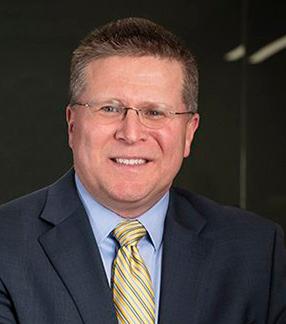
are more well-known. People know who they are, and they’re familiar with it.”
That lack of exposure comes largely from the small size of credit unions in Arkansas. AFCU is the state’s largest credit union, but still only ranks 11th amongst all other financial institutions in the state, and there are only five credit unions with assets of more than $100 million. Its relatively small size, however, does not leave AFCU lagging behind in what it can do for its members.
“I think sometimes [credit unions] get put in a category where people think we don’t have as much technology as, for instance, Bank of America and Wells Fargo, but we do. We have to,” Beasley said. “We have very modern apps that allow you to do all of the things you need to do regardless of the size of the institution. We know that’s what people want, and we make sure we have that.”
That technology does not just include matters of convenience like making deposits on your phone. To offer an app in the first place, it has to be secure. As financial institutions, even the smallest credit unions are subject to the same requirements as massive banks when it comes to protecting customers from fraud and other cybersecurity concerns, making up-to-date technology a matter of absolute necessity.
“A lot of times, when banks and credit unions are formed, they usually only have their physical presence, and that was about as far as their reach was,” Showmar said. “In today’s age with digital technology, you can reach far and wide. It’s the great equalizer. We’re at $2.3 billion, and we offer products, services and technology that rival some banks in the $50 to $100 billion range because we can do the same exact thing that they can do. We have all of the same tools that they have.
“I was just reading a story about one of our call center representatives who was helping out one of our members in Egypt. We have members in all 50 states and 22 foreign countries, and they’re still able to do business and handle all their financial affairs through Arkansas Federal because of the access that they have.”
Rodney Showmar
61 ARMONEYANDPOLITICS.COM
Michele Beasley Arlo Washington
LARGEST CREDIT UNIONS IN ARKANSAS
CREDIT UNION NAME
Arkansas Federal Credit Union Little Rock $2.2 billion Telcoe Federal Credit Union Little Rock $454.4 million Success Credit Union Blytheville $183.9 million Mil-Way Federal Credit Union Texarkana $172.8 million Arkansas Best Federal Credit Union Fort Smith $153.4 million Fairfield Federal Credit Union Pine Bluff $102.6 million Timberline Federal Credit Union Crossett $85.1 million Arkansas Superior Federal Credit Union Warren $84.9 million Diamond Lakes Federal Credit Union Malvern $82.5 million UARK Federal Credit Union Fayetteville $82.3 million Pine Bluff Cotton Belt Federal Credit Union Pine Bluff $69.6 million Alcoa Community Federal Credit Union Benton $65.5 million Pine Federal Credit Union Pine Bluff $58.6 million River Valley Community Federal Credit Union Camden $58 million Truservice Community Federal Credit Union Little Rock $50 million Hurricane Creek Federal Credit Union Benton $47.4 million Baptist Health Federal Credit Union Little Rock $43.2 million Patterson Federal Credit Union Arkadelphia $33.4 million Subiaco Federal Credit Union Subiaco $30.9 million United Arkansas Federal Credit Union Little Rock $30.7 million UP Federal Credit Union North Little Rock $29.6 million Dillard Federal Credit Union Little Rock $25.9 million River Town Federal Credit Union Fort Smith $20.1 million Electric Cooperatives Federal Credit Union Little Rock $18.6 million Two Rivers Federal Credit Union Arkadelphia $18.4 million
HEADQUARTERS ASSETS
Source: Credit Unions Online, August 2023
A HANDSHAKE






As a rm built on relationships, our handshake matters. It means a warm greeting, the privilege of doing business together and knowing you can count on us. A handshake between two brothers, Witt and Jack Stephens, provided the foundation for a family-owned legacy that Jack’s son Warren upholds today. Under Warren’s leadership, Stephens continues to grow as one of America’s largest privately held independent nancial services rms, with of ces throughout the United States and in Europe. Our performance builds relationships with our clients, many of whom have become old friends. It’s why shaking hands with us means just a little bit more.

111 Center Street




Little Rock, AR 72201

(800) 643-9691









STEPHENS INC. • MEMBER NYSE, SIPC @Stephens_Inc • Stephens.com
THE CHANGING LANDSCAPE OF FINANCIAL PLANNING

Diversity, youth and new tech make their mark on industry
By Sarah DeClerk
FINANCE
The world has changed significantly since the financial planning industry gained prevalence in the wake of World War II and, indeed, since the Certified Financial Planner designation came about in 1972 and the CFP Board was created in 1985.
An influx of diverse professionals, generational changes and technological advancements have ensured that the financial planning industry is not the same one the baby boomers grew up with.
The CFP Board graduated its largest and most diverse class of CFPs in 2021. According to the CFP Board, the number of female financial advisors increased 4.2 percent compared to 2020, the number of African American financial advisors increased more than 10 percent and the number of Hispanic financial advisors increased more than 15 percent.
“I think it will change the industry dramatically,” said Sarah Catherine Gutierrez, CEO of Aptus Financial in Little Rock. “It’s extremely important that people be able to engage with people that look like them. I think it’s an important move in the industry, and I’m excited about it.”
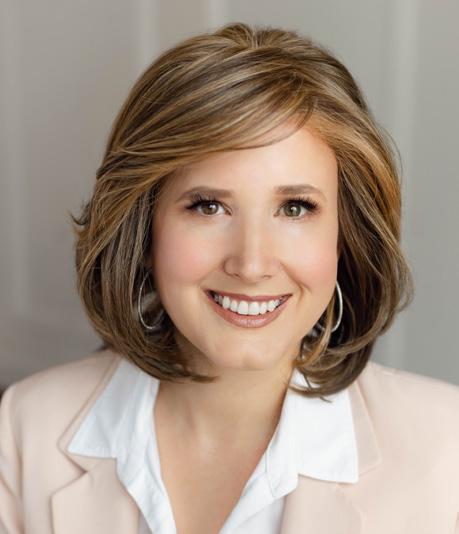
Lester Matlock, CEO of Natural State Private Wealth Group in Little Rock, said that women outpacing men in college attendance rates and becoming bigger players in the corporate world implies greater equality among investors and financial professionals, but there is a long way to go.
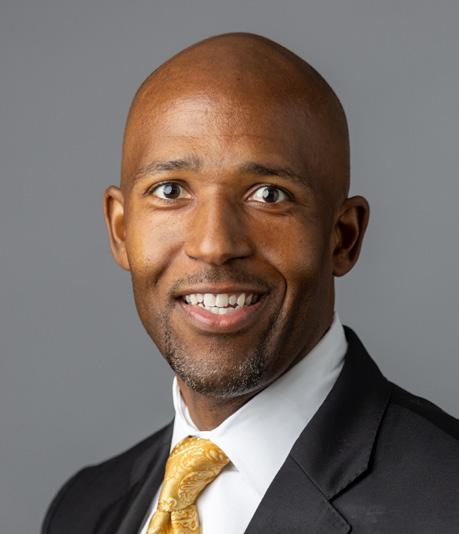
“They’re still a minority in the financial world, whether we’re talking in the executive level at financial firms or in the financial advisor, financial professional level,” he said. “There’s a way to go, and I would say that’s very similar with other minorities. Whether we talk about African Americans or Latinos, the same is the case. We’re making strides, though slowly.”
Gutierrez added that although women are contributing more to household incomes, not as many women are making family financial decisions as one might assume.
“The person making the income is typically associated with the person making decisions, and what I find that’s interesting is, even as women are increasingly becoming the breadwinner, that’s not happening,” she said.
UBS Media’s 2021 “Own Your Worth” report found that only 20 percent of couples participate equally in financial decisions and that 48 percent of women — and 51 percent of millennial women — defer to their spouses when it comes to making longterm financial decisions such as investing and financial and estate planning.
Some data, however, shows that women are increasingly becoming solo money managers. “Seeing the Unseen: The Role Gender Plays in Wealth Management,” a 2020 study by Merrill Lynch, found that 75 percent of all women younger than 45 and 50 percent of all women older than 55 manage their own finances.
More women come into marriages with their own money and manage their investments separately from their spouses, the
study states, and younger married women are more than twice as likely to say they are the primary financial decision-maker in the relationship than older married women.
The study also touches on the importance of female financial advisors. Women tend to see themselves as more knowledgeable about financial products and more comfortable discussing financial topics and making financial decisions when they have a female advisor, the study states, and women are also more likely to make most of their own financial decisions when their advisor is a woman.
“Traditionally, the industry has been dominated by men going into the field, and so there’s this idea that maybe men have a tendency to do better at investing, better in financial planning,” Gutierrez said. “The interesting thing is the data doesn’t support that.”
She added that women perform better at investing partly because their humility about their lack of financial knowledge leads them to invest in passive ways that yield greater results.
“We’re not out there trying to find the latest meme stock to outperform with our money,” she said. “We tend to just average our money into the stock market, buy up that boring investment in our retirement plan, set it and forget it, and in the end, what we find is that that leads to better outcomes.”
Matlock agreed that women are more likely to play it safe when it comes to investing.
“In my experience, women tend to be better savers than men, and they tend to stick with the plan,” he said. “Ultimately, that serves them well because they’re not as easily moved off center
65 ARMONEYANDPOLITICS.COM SEPTEMBER 2023
“This notion of managing your own money is no longer crazy, and obviously a retirement plan is even easier than that.”
“In my experience, women tend to be better savers than men, and they tend to stick with the plan.”
Sarah Catherine Gutierrez
Lester Matlock
from the long-term goal.”
The passive investing strategy is a hallmark of not only women, but the millennial and Gen Z generations, Gutierrez added.
“They’re willing to understand the actual data on investing, which says boring, passive funds that capture the entire market return is the best way to invest,” she said. “In previous generations, there was this idea that I’m trying to do better in my investing than my neighbor, so if the average performance of the market in a given year is 5 percent, I want to have been in a fund or been with an advisor that can pick stocks and help me get a return at 6 percent or 7 percent. The data does not work in your favor if you are trying to optimize investments in that way, and often, people end up underperforming the market average.”
However, younger investors do sometimes take risky bets that their older counterparts might shy away from. Young investors may not take issue with the volatility inherent in technologydriven companies as long as they are familiar with the company, Matlock said.
“I think the younger investors definitely understand the technology platform and are more comfortable with it, so I think that leads to younger investors choosing to go down paths of investing that are probably a little more aggressive than their parents would have at that same age,” he said.
Other generational trends include a sensitivity to costs and fees, he added, as well as a demand for instant access to investment accounts.
“Generations ago, you saw your statement once a month or once a quarter, and that’s when you looked at your accounts,” he said. “The younger investor, I think, wants to look at their accounts on their Apple watch or check in to see what today’s market performance did to their portfolio.”
Today’s young adults also begin saving earlier than their parents did. The 2022 Retirement Reimagined Study by Charles Schwab found that millennials began saving for retirement in their mid-20s, a full decade earlier than the baby boomer generation. The CFP Board found that 58 percent of millennials and 70 percent of Gen Z individuals are saving for retirement.
Witnessing the retirement problems faced by baby boomers, who often have not saved enough for retirement and must decide whether to downsize or continue working, has prompted millennials and Gen Zs to save early, Gutierrez said.
Matlock said many young investors choose to invest early because they believe they will need to take responsibility for their financial futures, rather than relying on Social Security or allbut-extinct pension plans.
Saving for oneself is a concept Nick Merriweather, operations manager for Ipsen Advisor Group in Little Rock, said he works to instill in younger clients.
“When your parents, grandparents, mostly, when they worked
for a company, there was a good chance they might have had a pension through that company,” he said. “If you don’t work for the state or the federal government and some staff, be it teachers or something like that, you’re not going to get any pension income, guaranteed income whenever you’re retired.”
Merriweather, who earned his Certified Financial Planner designation this year but served clients as a financial advisor prior to that, added that the industry has shifted from investing to financial planning.
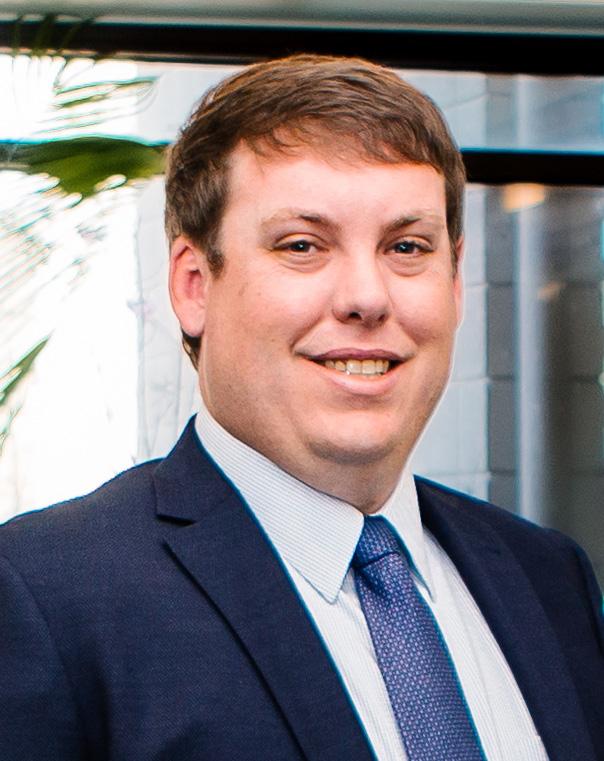
“In such a short time, being a Certified Financial Planner, I can definitely see how more clients — prospect or current clients — they want the financial planning,” he said. “They don’t just want asset management. They want us to deal with the entire financial picture, and I think that’s actually great for both sides because we’re able to help them more, knowing all the information, and they’re able to get a higher level of service by doing financial planning.”
Financial planning has gained prominence as passive investing has become more prevalent, Gutierrez added.
“If you de-emphasize investing, then you get to spend your time on the things that actually matter, and that’s your finances — making sure that you’re saving enough to retire one day, making sure that you have a smart plan to pay off your student loan, getting out of credit card debt, getting a cash-management system that helps you have better control of your money,” she said. “These are things that will actually have a meaningful impact on your wealth, not relative investment decisions.”
Another big shift in the industry is a push toward flat-fee, advice-only models such as Aptus, she said, adding that the model helps firms avoid conflicts of interest.
According to Advyzon, a technology company for financial advisors, the flat-fee model is a growing trend, and more than 40 percent of investment firms that manage more than $100 million in assets now offer a flat-fee option alone or alongside an assetsunder-management fee-based system.
Beckie Comstock, owner of Comstock Private Wealth Management, a branch of Raymond James in Hot Springs, said the bulk of her business adheres to the flat-fee, advice-only model.
66 ARMONEYANDPOLITICS.COM SEPTEMBER 2023
“If you don’t work for the state or the federal government and some staff, be it teachers or something like that, you’re not going to get any pension income, guaranteed income whenever you’re retired.”
FINANCE
Nick Merriweather
She said the model puts her on the same side of the table as her clients.
“Our clients look at us as trusted financial advisors, not salespeople. Back in the day, it was all about sales, and advisors were looked at as another salesperson,” she said. “It’s a win-win relationship for us and the clients to have that fee-based relationship because we have a fiduciary duty to do the right thing by the client when we’re in a fee-based relationship, and transactions are based on a very disciplined approach. We use a very long-term horizon, and we’re not driven by trying to make a quick commission anymore.”
Another huge industry shift has been technology. Gone are the days of paper stock certificates and bearer bonds. Block trading and other automated technologies are here to stay.
“When I first started, we actually wrote out trade tickets by hand and had to place trades individually, and it was a very inefficient process to do it that way,” Comstock said. “Now, I can trade multiple accounts and multiple strategies with a click of a button, so it makes it a lot more efficient.”
The average consumer has online access to information that would have only been available by consulting a financial professional in the �80s and �90s, Matlock said, adding that the internet has increased financial literacy but also created confusion. For example, clients may find information that is either incorrect or unsuitable for their lives and risk tolerance.
“There’s a law of diminishing returns where there’s so much information out there, you can always find something that contradicts something else,” Matlock said. “To an extent, information is good, but inundation of information — too much information — can have a negative impact.”
On the other hand, he said, plenty of good information and tools can be found online, including software offered by financial planning firms that allows users to complete basic calculations. Consumers also have the ability to check into a financial professional’s reputation before the initial meeting, he added.
“There’s just a lot of data coming at consumers, and understanding how to mitigate, decipher and wade through the massive amounts of information that is available, I think, is not changing,” he said. “That’s a trend that’s going to be here for some time.”
The internet provides not only information but opportunities to participate in the world of finance.
“I think technology has largely made it easier to become your own investor. Before, if you wanted to invest in the stock market, you had to have your guy,” Gutierrez said. “You would have to call your person up, and they would have to go buy you a stock.”
Technology now allows average people to open accounts at investment firms such as Vanguard, Schwab or Fidelity, buy mutual funds that cover the entire stock and bond market and automatically deposit money into their brokerage funds every month, she added.
“This notion of managing your own money is no longer crazy,” she said, “and obviously a retirement plan is even easier than that.”
She added that social media is a double-edged sword for those saving for retirement. Although some influencers may motivate followers to save or provide reputable information, audiences are just as likely to receive dubious information, and it is all too easy to be sucked into a culture of spending.
As for financial professionals, social media can be a great marketing tool, but there are strict restrictions governing how social media is used in the financial industry, Matlock said.
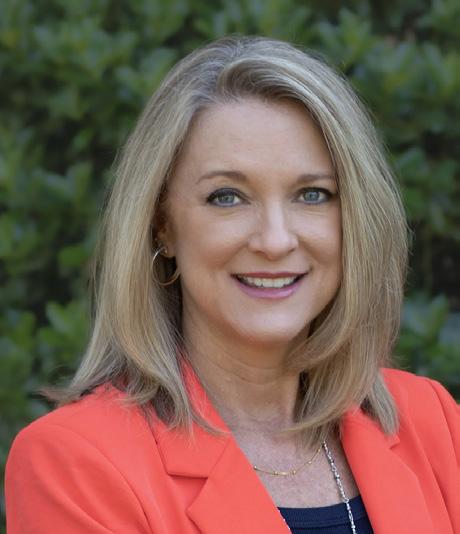
“The laws and the rules around how financial professionals in the financial industry can use social media are constantly changing,” he said. “They were very strict on the use of social media in the financial world, but understanding that it’s here and it’s here to stay, it’s a viable means of getting information out there, I think the industry as a whole is starting to relax some of those rules.”
The industry has also taken a conservative approach to cryptocurrency, he added.
“Most financial firms are not at liberty to go into a lot of detail about cryptocurrency. It’s still not allowed by most of your retail financial firms to talk about with clients or to establish or sell with clients. That said, I think cryptocurrency is here. Every day, consumers are hearing about it,” he said. “Right now, I think most financial firms, my firm included, have taken a hands-off approach to crypto until, I think, further legalities, legislation and so forth are out there for advisors.”
Staying abreast of industry trends and legislative changes such the Secure 2.0 Act are essential to financial professionals who hope to navigate the industry’s changing landscape, he added.
“I don’t know that you can ever not be a student of the business as a financial advisor,” he said. “I think as long as you’re a student of the business, then you will adapt to the times and, in doing so, you’ll be able to help your clients achieve their goals along the way. It’s when we think we’ve learned it all and there’s no more to learn that I think we become a danger to ourselves and to others who are seeking our advice.”
67 ARMONEYANDPOLITICS.COM SEPTEMBER 2023
Beckie Comstock
“It’s a win-win relationship for us and the clients to have that fee-based relationship because we have a fiduciary duty to do the right thing by the client when we’re in a feebased relationship.”
Dale E. Colclasure Jr., CFP® President of Wealth Management
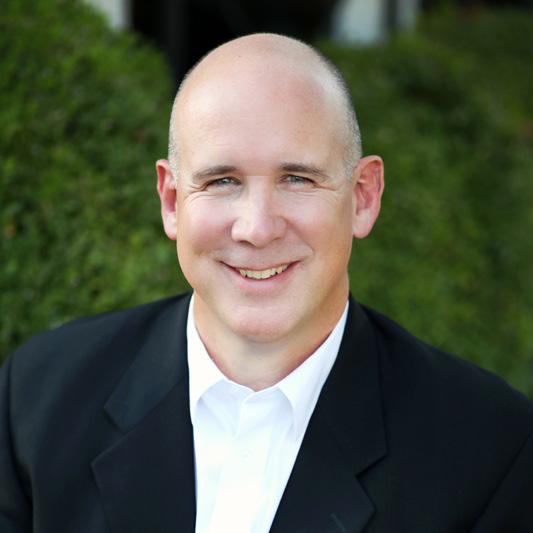

Dale E. Colclasure, Jr., CFP has spent the last three decades honing his skills as a retirement income specialist. Dale has built a financial services firm that focuses on the exact needs of those who are approaching or in retirement. Dale understands the mindset change that must occur when a retiree transitions from the accumulation phase to the income distribution phase of investing.
Securing a predictable lifetime income while also addressing the specific tax implications of retirement plan distributions, Social Security income strategies, Medicare insurance questions, long-term care planning and efficiently passing legacies on to the next generation and charities.
RetirePath is the firm built to holistically look at your financial life to help you complete your “RetirePath” – a personalized written income plan that can help you identify and enjoy the opportunities that lie ahead of you.


68 ARMONEYANDPOLITICS.COM SEPTEMBER 2023
AR License #1945733
113200 N Rodney Parham Rd. • Suite 120 Little Rock 501.904.5858 • TheRetirePath.com Putting the needs of my clients first is the approach I believe in. I’ll work with you to find the right financial solutions to help you plan for your unique goals. And together, we’ll track your progress over time, adjusting your plan along the way to help get you where you want to go. Your personal financial goals deserve a personal approach. Brant Foster, CRPC™, APMA™ Financial Advisor Foster & Associates A financial advisory practice of Ameriprise Financial Services, LLC 501.975.7920 22 Rahling Cir, Little Rock, AR 72223 Brantley.L.Foster@ampf.com ameripriseadvisors.com/Brantley.L.Foster AR license #760421 Investment advisory products and services are made available through Ameriprise Financial Services, LLC, a registered investment adviser. Ameriprise Financial Services, LLC. Member FINRA and SIPC. © 2023 Ameriprise Financial, Inc. All rights reserved. Not FDIC or NCUA Insured | No Financial Institution Guarantee | May Lose Value
Pat Moon Managing Principal
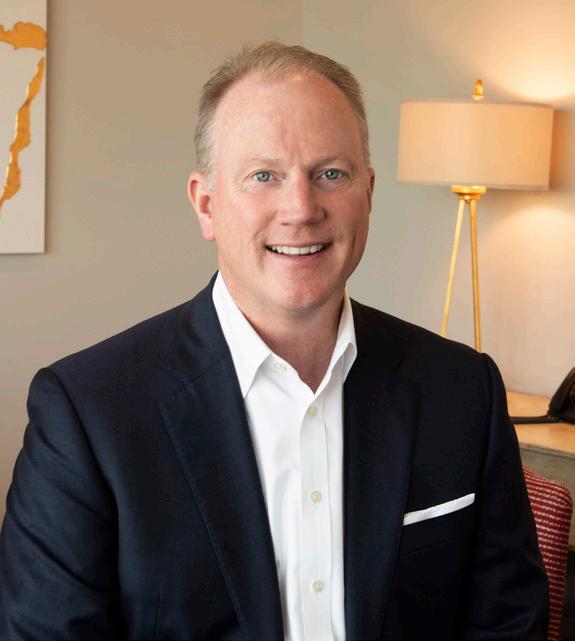
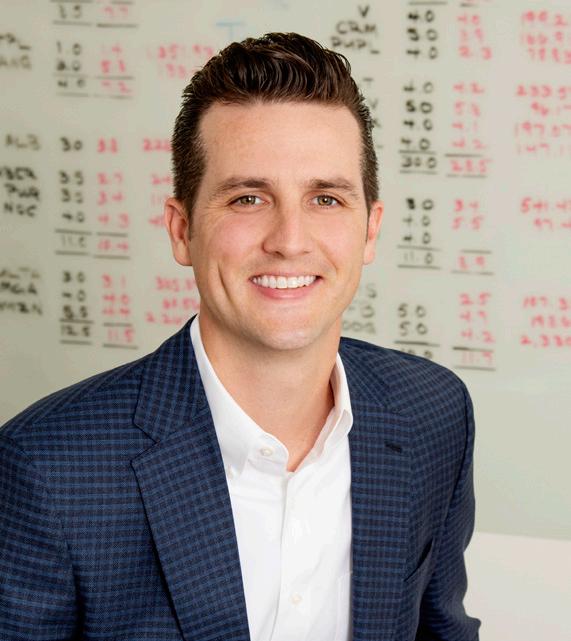
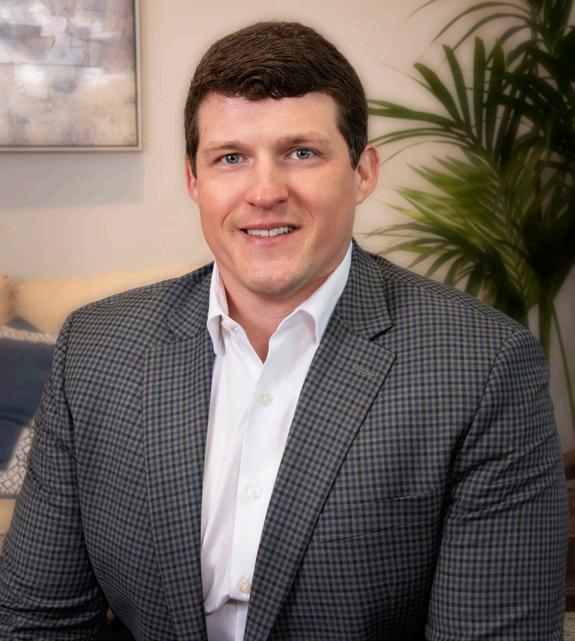
From the way your parents handled money to your plans for retirement –many factors impact the way you view your wealth. We take the time to understand who you are, your vision of your future, and what you need from your financial partner. From there, we develop solutions that are as unique as you are. We make it easy to work with us so your life is less complicated and you can enjoy what you value most.

INVESTING FOR A RICH LIFE Realizing what you value. 11300 Cantrell Road, Suite 200 Little Rock, AR 72212 | 501-663-7055 | MeridianIA.com
Brad Smith Senior Advisor
Marshall Moon Senior Advisor
MANAGING A PORTFOLIO
Experts share their best practices for investing

 By AMP Staff
By AMP Staff
Whenconsidering the following quote attributed to Warren Buffet years ago, building a financial portfolio and growing it into wealth seems, well, almost easy.
“I will tell you how to become rich. Close the doors. Be fearful when others are greedy. Be greedy when others are fearful.”
— Warren Buffett
Of course, nothing worthwhile ever comes easy. So, AMP visited with five of the state’s top financial advisors about how they advise their clients.
Discipline and hard work are prerequisites, of course, but these advisors — Matt Jones of Legacy Capital, Pat Moon of Meridian Investment Advisors, Joey Small of Small & Associates, Jared Zeiser of Zeiser Wealth Management and Rocklin Senavinin of Fiduciary Wealth Management — shared their own insight on how to manage and grow one’s portfolio.
EXEC Q&A
Pat D. Moon, CFA
Managing Principal
Meridian Investment Advisors, Little Rock
Asmanaging principal of Meridian Investment Advisors, Pat Moon is responsible for the strategic vision of the firm. The company’s mission is simple: to help clients realize their financial potential.
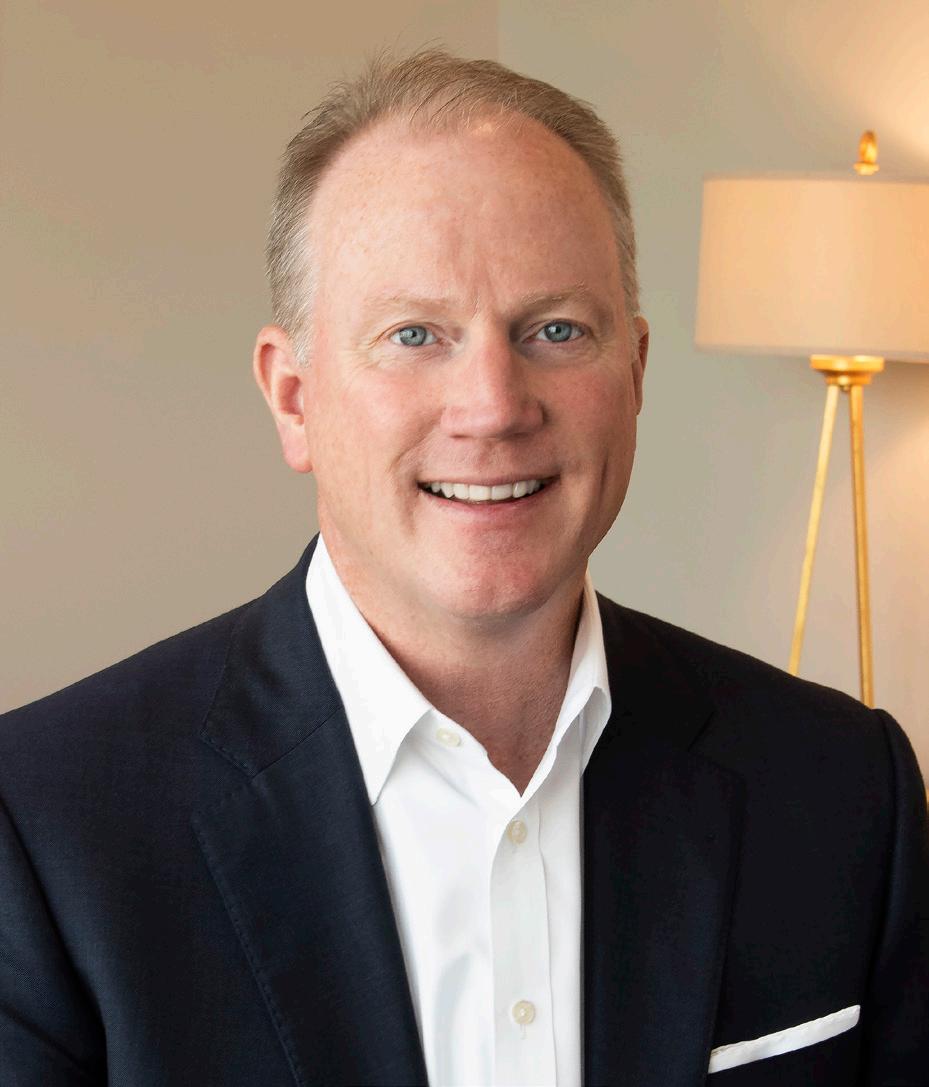
Moon is a member of the firm’s investment strategy team, advisor to wealth management clients and active in retirement plan consulting.
A graduate of the University of Central Arkansas and Texas Christian University, he joined Meridian in 1997 and is a Chartered Financial Analyst charter-holder.
AMP: What guidance would you give younger clients to set them up for long-term success?
Moon: Young people face many life events that can make financial success seem distant. Although they may be making more money than imagined, they face many first-time competing factors for their money. Financing a car, starting a family and buying a house are expensive.
My advice is to get informed about foundational principles for financial success. Many leave school with a good education but no training in personal finance. It’s available but not generally required. Making financial mistakes early in life isn’t a good strategy to gain wisdom. Resources to learn about how to handle money are readily available. Books, apps and other tools are everywhere. Another avenue is to find a mentor, someone who’s been in your shoes. Be curious, look for answers and ask for advice.
My second suggestion is to enroll in your employer’s retirement plan, especially if there’s a company match. It’s tempting to think I can start that later because I need to handle all these other expenses now. One of the most important pieces of financial well-being is a wellfunded retirement. If you start contributing to a plan in your 20s, you can reach that goal with a modest contribution during your working years. Money saved in your 20s will be worth four to five times that at age 65. You can’t make that up by contributing more later.
AMP: What do business owners need to consider when it comes to retirement planning?
Moon: I recommend business owners build a team of trusted advisors for investments, insurance, taxes and estate planning. Successful businesses build wealth but also bring complications that can be addressed with thoughtful planning. Business owners can be completely focused on growing a business and have expertise uniquely suited for it, but these other areas of planning may not receive the attention they deserve.
There will come a time when contemplating retirement requires decisions to be made about succession, a company sale, divesting real estate or a myriad of other factors. Tax and estate planning can address many needs before you transition to retirement, and just as important is a plan for leaving the rewards of your efforts to your heirs
as you intend. Working with your team over the years will be a worthwhile investment.
AMP: How do you see inflation affecting your clients, both in the short and long term?
Moon: All of us have experienced inflation lately that’s not been seen in decades. It’s certainly affected our spending behavior over the last year or so. For people investing money, inflation can be our worst enemy. Returns on investments can disappear in real terms, resulting in a challenge just to retain our spending power.
The good news is inflation is moderating and may not be a major problem in the foreseeable future. The Federal Reserve, as a matter of policy, tries to keep inflation near a target of 2 percent. To fight the recent inflation spike, the Fed has been raising interest rates quickly, which has the effect of dampening economic activity and inflation moderates.
It’s come with some pain for investors. In 2022, the stock market corrected, and the bond market had its worst year in history, by far. The housing market, already with a nationwide shortage of homes for sale, has been impacted the most. There’s not enough inventory to meet the natural demand, and there’s another complicating factor — after a lengthy period of mortgage rates near 3 percent, 30-year mortgage rates recently hit 7.5 percent. The majority of people with a low-rate mortgage may be unable to sell a home and buy a new one at current rates. This could affect the housing market for a long time.
The best news for investors seeking income is now there are opportunities to invest at much higher interest rates. This is especially good for retirees depending on their savings to meet living needs.
71 ARMONEYANDPOLITICS.COM SEPTEMBER 2023
Joey
Small, CRPC™, APMA™
Private Wealth Advisor
Small & Associates/Ameriprise
As a private wealth advisor and president of Little Rock’s Small & Associates, a private wealth advisory practice of Ameriprise Financial Services, Joey Small is one of Central Arkansas’ prominent financial advisors.

Small has 23 years of experience with Ameriprise Financial, during which time he has been named to Barron’s Top 1,200 Financial Advisors 2014-2022, Barron’s Top 1,000 Financial Advisors 20092013, to the Ameriprise Chairman’s Advisory Council 2007-2022 and Forbes’ Best-in-State Wealth Advisors 2018, 2020-2021.
He launched Small & Associates in 1999 with the mission to empower our clients to understand, pursue and manage their financial independence with more confidence.
AMP: How do you see inflation affecting your clients, both in the short and long term?
Small: Higher inflation over the short-term can be aggravating and disruptive to all our lives. However, it is very satisfying to be able to show our clients, by the way of our financial planning process, they can remain on track towards the progress of their various longerterm financial goals. Additionally, ongoing financial planning allows us to help our clients course-correct when necessary for the occasional and inevitable road bumps, such as this period of higher inflation.
AMP: What advice would you give to younger clients to set them up for long-term success?
Small: Make financial goals, prioritize those goals, start saving for them early and diligently. I see many younger people that have not begun saving for say, retirement, because their focus is on a house — or a bigger house, a nicer car, the expense of raising kids, vacations. I encourage young people to start saving for their goals now, and to make those goals a priority so they can take advantage of time and compounding returns.
AMP: What do you and your team do to help clients feel confident about their financial situation?
Small: Our financial planning process is key to providing our clients greater peace of mind. We believe ongoing financial planning helps empower our client to understand, achieve and manage their financial independence with the confidence they need to accomplish their financial goals. Ongoing financial planning is the first step to turning our clients’ dreams into reality.
AMP: Do you more often encourage people to take risks in their financial planning or play it safe?
Small: Our service to the client is to provide our advice as to the best means to accomplish their goals. At times, we might advise a client to increase or decrease their risk for a period of time. Ultimately, our advice is tailored to working within the risk tolerance of the client and the timeframe to the goal they are looking to accomplish.
72 ARMONEYANDPOLITICS.COM SEPTEMBER 2023
Matthew R. Jones, JD,
President
Legacy Capital, Little Rock
CFP®
Matt
Jones’ areas of expertise include asset management, estate tax and multi-generational wealth-transfer planning and life insurance planning.
His path to finance started in law school, and he remains a nonpracticing member of the Arkansas Bar Association. Jones clerked at three of the state’s largest law firms before deciding finance and investments were his true passion. Before joining Legacy Capital in 1997, he worked at Morgan Keegan in Memphis and Stephens in Little Rock.
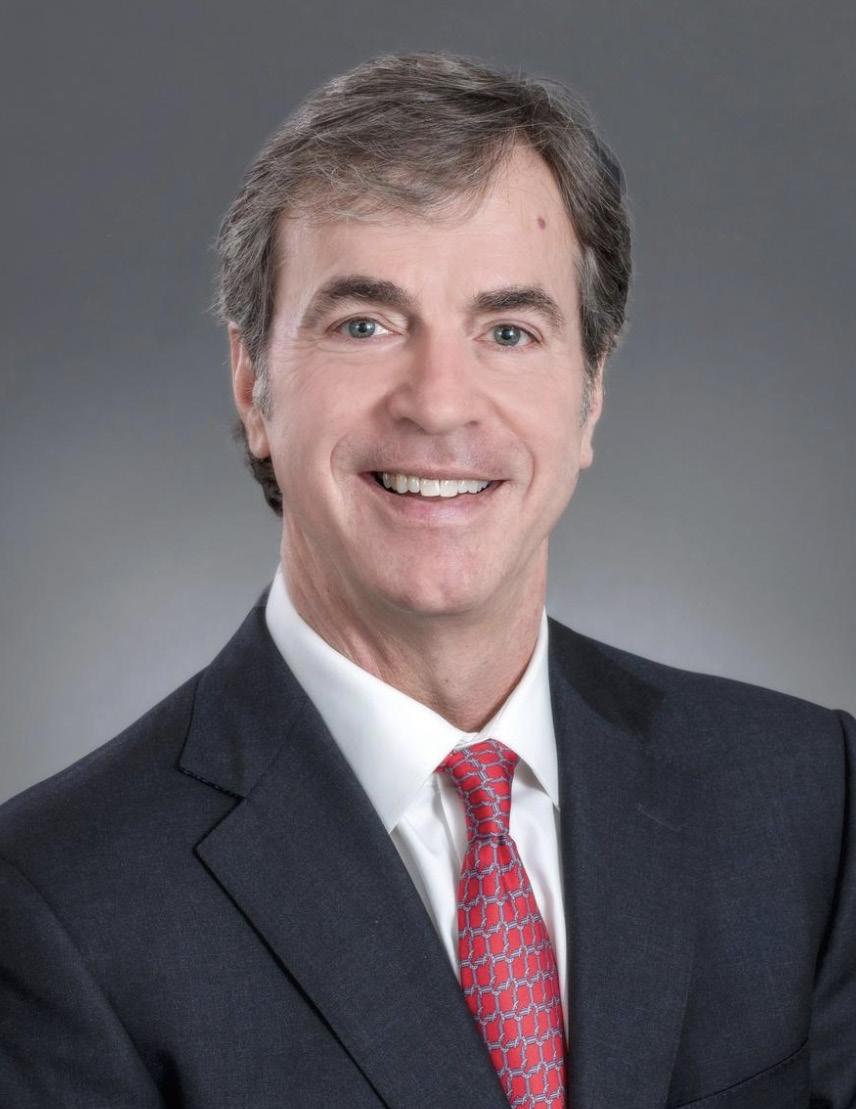
Jones received his BSBA in financial management from the University of Arkansas, where he was a member of the Razorback tennis team. He earned his juris doctorate from the Bowen School of Law at the University of Arkansas at Little Rock. Jones chairs the board of the Baptist Health Foundation.
AMP: What advice would you give to younger clients to set them up for long-term success?
Jones: The two most important disciplines for long-term wealth accumulation are completely within your control — ALWAYS live below your means and make saving a habit every time you get paid. Yes, investment returns are important over time, but you have much less control over returns than you do your own disciplines of saving and spending.
AMP: What do you and your firm do to help clients feel confident about their financial situation?
Jones: I think initially we strive to help them understand where they are relative to their long-term goals. Oftentimes, that may lead to a conversation of setting some long-term goals if they do not already have them. This may not always lead to immediate confidence in their current situation if they are not on track to be able to meet their goals. Ultimately, it is our job to help them develop a comprehensive plan that has a high probability of them achieving their long-term goals. Once they can see and understand that they are on track or close, then they begin to develop more confidence about where they are.
AMP: What is the biggest mistake you see people make with their finances, and how do you help your clients avoid it?
Jones: People consistently increasing their lifestyle as their income grows. That doesn’t mean you shouldn’t enjoy the fruits of your labor and success and enhance your lifestyle some as your income increases, but there has to be some discipline to increase savings and investments as your income rises. Most people who achieve significant wealth reach a point in life where their saving and investing exceeds their lifestyle costs. That is how you build meaningful wealth over time.
AMP: One of your firm’s areas of expertise is working with physicians. Have current economic trends affected the way doctors are planning for retirement?
Jones: I don’t think the core principles of how we help physicians plan for the long-term have changed. Current economic trends and conditions will always be changing. What we believe is important is to not get too caught up in what is going on in the short-term (what the stock market is doing or what the Fed is doing with interest rates) and continue to focus on your long-term goals and the plan you have developed to get you there.
73 ARMONEYANDPOLITICS.COM SEPTEMBER 2023
Jared R. Zeiser, CRPC™ President
and CEO
Zeiser Wealth Management, Hot Springs
Zeiser is a financial planner/farmer who launched Zeiser Wealth Management in 2010. Prior to re-entering the financial industry in 1999, Zeiser farmed in Phillips County for 12 years. He and his wife, Courtney, still manage and own farmland in the Delta. Zeiser started in the financial industry as a banker at Bank of Bentonville (now Arvest Bank), and he worked for Jim Walton, as well. He graduated from the University of Arkansas with a degree in finance and stayed in the area to work for the Bentonville bank after he graduated.
Other previous stops include Investment Professionals as associate vice president of investments, as CIO for Southern Bancorp and as principal for Southern Financial Management.
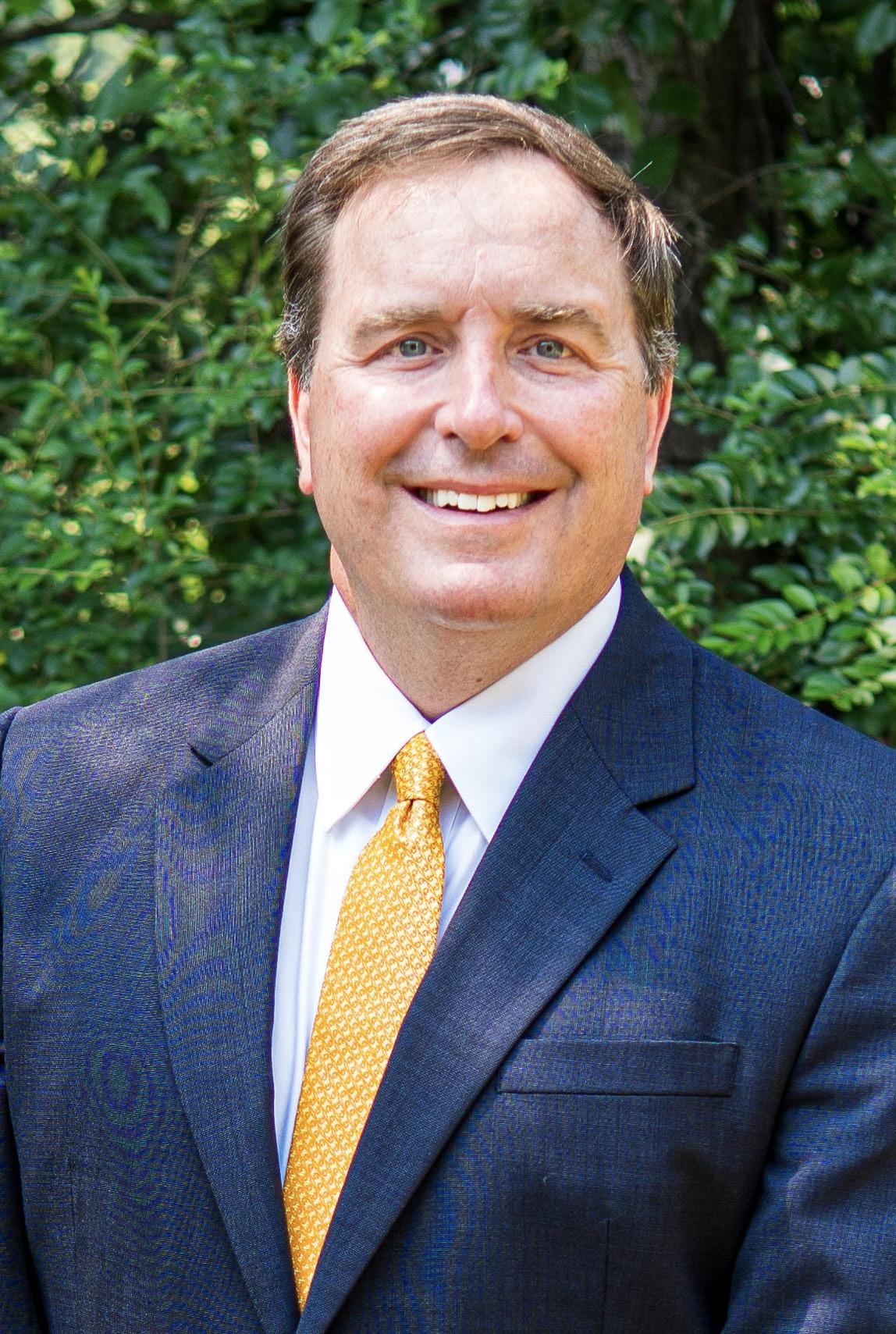
AMP: What is your top piece of advice for clients?
Zeiser: Don’t make financial decisions using “rules of thumb” or comparison to “neighbors,” but rather have a unique, well-developed plan based on your reality. Protect your accumulated wealth with planning and a disciplined, risk-managed investment process.
AMP: What industry changes have you noticed over time?
Zeiser: More distinction is being made regarding the difference of being a fiduciary with the requirement to always do what is in the best interests of our clients, which we are glad to see.
AMP: What misconceptions about financial planning would you like to clear up?
Zeiser: Sometimes financial products are sold as “financial plan-
ning.” However, comprehensive financial planning involves understanding the details of your current financial situation and thoughtful consideration of your goals and desires for the remainder of your life, as well as those you care about.
AMP: What are some new trends in terms of client demands?
Zeiser: Our clients seem to appreciate having an aggregated and dynamic plan in place to help them organize their financial life and make more objective real-time decisions along the way.
74 ARMONEYANDPOLITICS.COM SEPTEMBER 2023
Jared
Rocklin Senavinin,
President and co-founder
CFP®
Fiduciary Wealth Management, Little Rock
RocSenavinin has been a financial planner for almost 25 years. He began his career at Waterhouse Securities, a relatively small Wall-Street-based firm that had an office in downtown Little Rock.
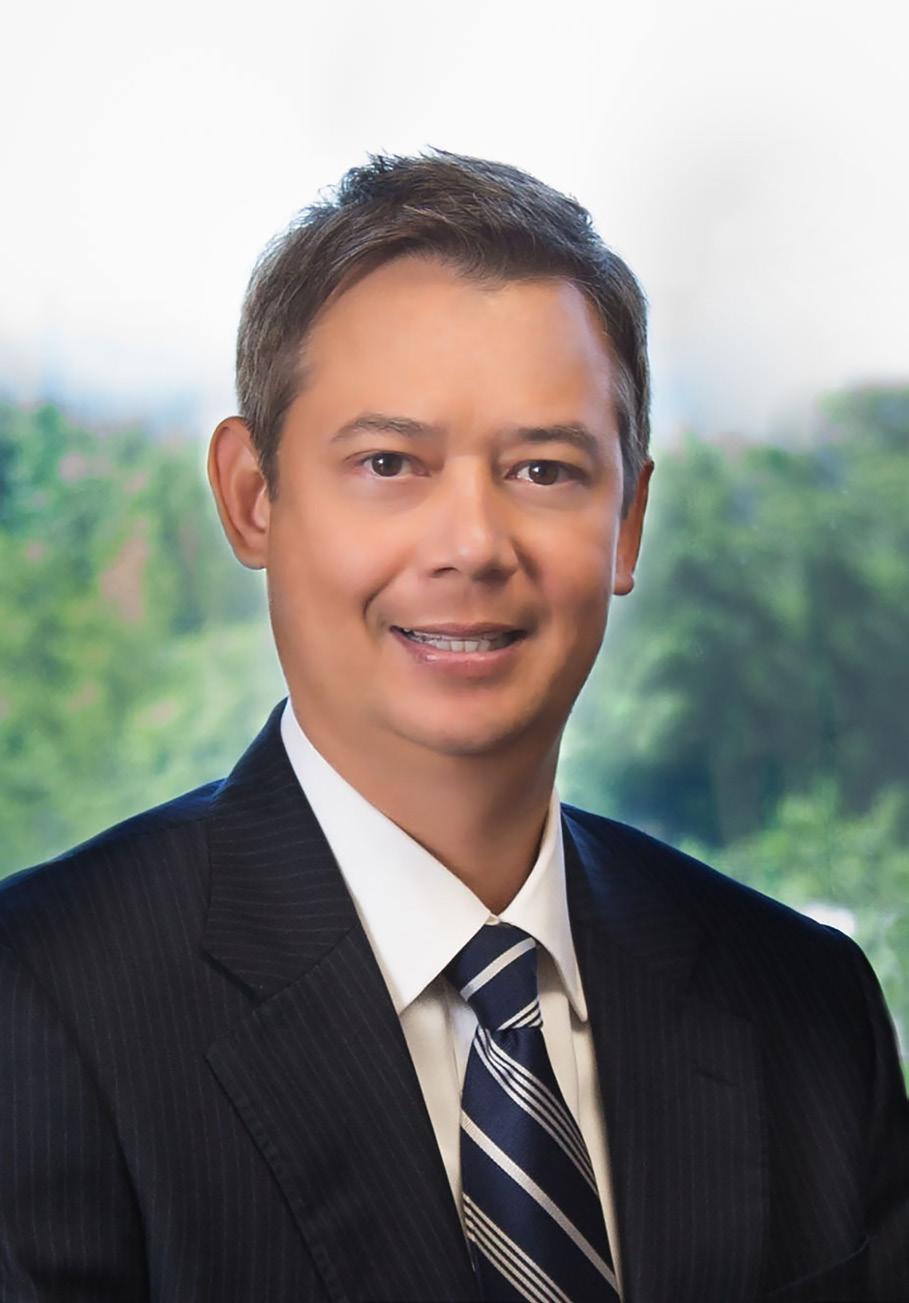
The tenure proved invaluable and provided him with real-world experience in market dynamics and investment strategies. He earned a bachelor’s degree in finance from the University of Arkansas at Little Rock and received his Certified Financial Planner designation from the College for Financial Planning in Colorado.
A member of the National Association of Personal Financial Advisors, Senavinin is a past volunteer at Our House, where he provided basic budgeting education to residents, and sits on the Mount St. Mary Foundation board.
AMP: What trends and industry changes have you noticed over time?
Senavinin: I have noticed more and more investors are getting moved to teams of planners at larger firms, as opposed to working with the same person consistently. Many clients that come to us are looking for that more personalized relationship model and want to work with the same person year after year. I have noticed a definite increase in prospective clients seeking out a CFP professional that works in a fiduciary capacity.
AMP: How can financial planners go above and beyond to serve clients?
Senavinin: Many of our clients will encounter situations that may affect the outcome of their current financial-planning projections. Examples include things like buying a second vacation home, working fewer hours or possibly retiring earlier than planned. I make myself available to run new plans with hypothetical data to help clients better understand the impact of these potential decisions. It might be necessary to create three or four different plans for review, but it gives our clients a good way of analyzing how these potential decisions will affect the longer-term projections of their financial plan.
AMP: What are some of your proudest professional accomplishments?
Senavinin: Co-founding Fiduciary Wealth Management with my partner, Ed Mahaffy, CFP, back in 2016 has been my proudest professional accomplishment. Helping to build the firm from the ground up and actively participating in the growth has been very fulfilling. Obtaining my CFP designation was another great milestone that I take immense pride in accomplishing.
AMP: What advice would you give a new financial planner?
Senavinin: Do as many comprehensive financial plans as you can. The more the better. I have created and delivered thousands over my career, and you seem to learn something new from each one.
75 ARMONEYANDPOLITICS.COM SEPTEMBER 2023
Financial advisors help put their clients in a position to make money work for them instead of chasing it their entire lives. Arkansas Money & Politics asked readers to reveal their favorite financial advisors, and they delivered. The professionals listed in this special section are committed to guiding their clients through the sometimes intimidating world of investments and transforming finances from a potential source of stress to a golden opportunity.
STACEY ALSTON
Financial Advisor
Edward Jones
Edward Jones is a different kind of investment firm, one in which face time and think time make sense. Stacey Alston meets with clients to learn their individual needs and develop a strategy to help clients achieve their long-term financial goals. Whether clients want to plan for retirement, save for college, reduce their tax bills or ensure they have income to cover their expenses, they can expect personalized service and long-term investing strategies instead of the latest investment fads. Prospective clients are invited to join the nearly seven million investors who know. Financial advisors such as Alston can develop an investment strategy that makes sense for most anyone.
BEN A. BAILEY, WMS
Financial Advisor
TMB Capital Partners/Raymond James
Ben Bailey has remained at one firm his entire career, dating back to 2006 at Morgan Keegan, which was later merged and acquired by Raymond James in 2012. Early in his career, Bailey excelled as a trainee in the Morgan Keegan Financial Advisor Development Program, earning honors of reaching the Rising Stars Club. Shortly thereafter, he
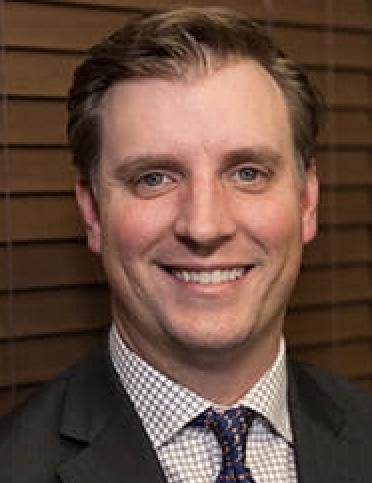
became a member of the Morgan Keegan and Raymond James President’s Club and went on to earn a designation as a Wealth Management Specialist in 2014.
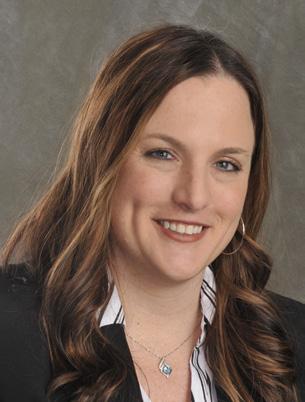
Bailey merged his practice with the Tabor Group to form TMB Capital Partners of Raymond James. Today, his team manages and advises more than $1 billion in assets for high-net-worth families, young professionals, corporate retirement plans, non-profit foundations and more.
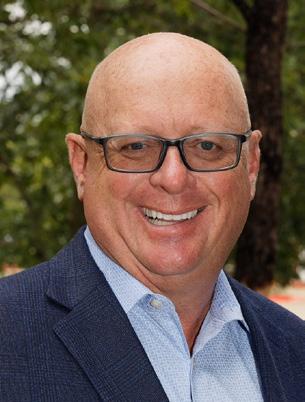
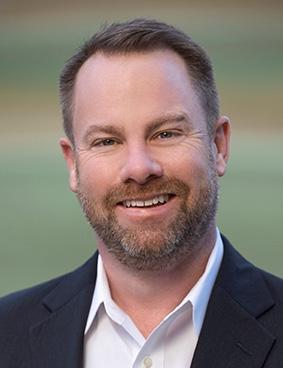
RYAN BARTHOLOMEW
Vice President and Private Wealth Advisor
Small & Associates Financial

Ryan Bartholomew is a seasoned financial advisor with an impressive 23-year track record in the industry. He brings a wealth of knowledge and experience to his clients’ financial journeys. Throughout his career, Bartholomew has demonstrated an exceptional ability to navigate the complexities of the financial landscape by providing tailored strategies that align with individual goals and aspirations. His extensive tenure in the field has enabled him to develop a deep understanding of market trends, investment opportunities and riskmanagement techniques. His dedication to fostering strong client relationships and his commitment to staying up-to-date with evolving financial dynamics make him a trusted partner for individuals seeking expert guidance in wealth management and financial planning.
SCOTT BENNINGTON
Wealth Advisor
Heritage Oak Wealth Advisors
Scott Bennington is a wealth advisor with Heritage Oak Wealth Advisors. In this role, he is able to serve clients in a multitude of ways, including providing financial plans and advisory services. Bennington fell in love with financial planning when he was able to connect a purpose with the mission – seeing individuals impact their communities and care for their families with proper financial planning and preparation brings the impetus to his everyday life.
He takes pride in providing top-of-the-line service to his clients, and it is his mission to investigate his clients’ needs and deliver unparalleled customer service with exceptional communication and results.
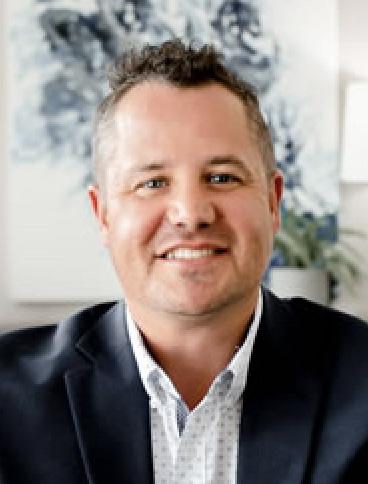
JIM D. BLOUNT, CFP
President/Registered Principal
The Point Financial Group/LPL Financial Jim Blount founded the Point Financial Group in 2001. Starting with only two advisors and transaction-based insurance and investment products, he has grown the firm into a comprehensive and competitive financial planning and investment management firm. Based in Northwest Arkansas, his firm services clients in nearly all
76 ARMONEYANDPOLITICS.COM SEPTEMBER 2023
50 states. Blount has been recognized as a top producer since 2003 at LPL Financial and is currently in the top 1 percent of LPL’s 22,000 advisors. He leads a team of highly experienced advisors that team-manage all client relationships.
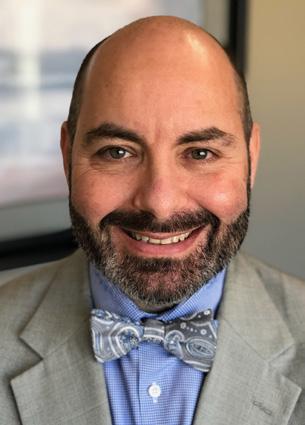
JEREMY BOOE, CFP Financial Advisor

Edward Jones
Jeremy Booe grew up with an interest in the stock market. Seeing families struggle financially, he saw that it could be an avenue to help people. His life’s mission is to ensure that he takes care of clients’ interests and treats them as he would want to be treated.
Booe derives great personal gratification from serving people. Being a financial advisor means that he gets to help people reach their most important financial and life goals, and he wants to understand what is most important to clients. He will use an established process to create a personalized strategy, and then partner together with clients to help keep them on track.
Booe’s team is diligent about making sure that it regularly looks over clients’ accounts to see if there is a better option for them.
TODD C. BOSWELL, CFP, CLU, CHFC, CASL, RICP Certified Financial Planner
Northwestern Mutual
Todd Boswell is a Certified Financial Planner and wealth-management advisor with more than 20 years of experience helping families and businesses protect and prosper. Boswell and his team’s integrated financial planning approach means they seek to understand each client’s priorities and goals before helping clients design and implement a strategy to connect their goals to a plan. Each plan includes risk management and wealth accumulation. Boswell and his team want clients to feel confident in addressing the risks to financial security, such as longevity, tax and inflation erosion, chronic illness, and market risk. The team follows a disciplined wealthbuilding approach that incorporates multiple dimensions of diversification — not only investment style and money manager diversification, but also time, tax and asset location. No matter the client’s goals, Boswell and his team follow a comprehensive process to achieve superior outcomes.
LORI BROWN Financial Advisor

Raymond James
Lori Brown strives to provide her clients the highest level of personal service and care, delivered with enthusiasm, honesty and dependability. Her focus is to sit on the same side of the table with her clients and help them navigate through the often overwhelming task of retirement, estate and educational planning.
Brown graduated from the University of Arkansas at Little Rock with an emphasis in finance. She started her career with Morgan Stanley and has been a financial advisor since 2001. She happily joined Raymond James with her partner, Sonia Graham, and sales assistant, Linda Healy, in 2009.
Brown has previously served as president of the Junior League of North Little Rock and has been active with the Women’s Foundation of Arkansas and Project Zero.
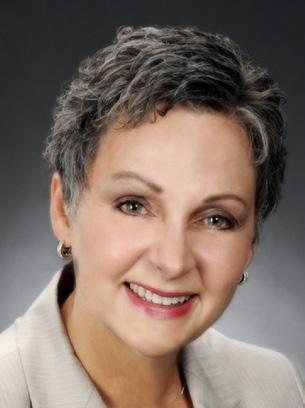
JUDY BUSBEY Partner/PIM Portfolio Manager
BVJ Wealth Management/Wells Fargo
Since 1985, Busbey has been committed to helping clients build and manage wealth, especially in the areas of retirement planning. She believes that investment planning is about client’s values, not just their money. Her mission has been to help ensure clients have a clear financial path to their future. She wants to help each client pursue creating enough wealth so that they have the resources to reach their financial goals and to live the life they have always dreamed about.
After attending the University of Arkansas at Little Rock, Busbey worked for the state of Arkansas before beginning my career as a financial advisor. She has completed training courses in retirement planning, investment planning and estate planning and holds the Series 7, 63, 65, and 31 securities registrations. Busbey has also been involved in world mission outreach efforts, serving on multiple teams in Brazil and Peru
MARSHALL BUTLER
Director of Commercial Services
Pinnacle Advisors
and mergers and acquisitions for small businesses. His strategic insights and financial solutions have made him a trusted advisor for businesses seeking to optimize their financial performance and navigate complex financial transactions, as well as the individual owners for their personal planning.
PHILLIP BUTTERFIELD Senior Vice President, Private Wealth Management Stephens
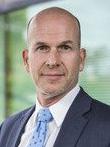
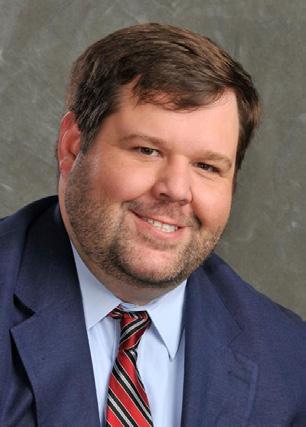
Phillip Butterfield serves as senior vice president in the private wealth management division at Stephens in Little Rock. He works with high-networth clients in investment management and complex retirement planning. He advocates the importance of building relationships on trust through judgment and integrity. He said that by being fully engaged with clients, his team carefully considers their financial goals and risk tolerances, allowing them to identify strategies designed to meet their objectives.
Prior to joining Stephens, Butterfield earned his degree in finance with a minor in accounting in 2012 at Arkansas State University-Jonesboro and obtained his Certified Financial Planner license. He earned an MBA two years later. He was also a quarterback and selected as team captain with the Arkansas State Red Wolves football program.
Additionally, he is a board member of the Arkansas State University System Foundation and volunteers with several public service organizations, including Big Brothers Big Sisters of Central Arkansas.

LARRY CHANCE, CPWA®, CIMA®, CFP® Wealth Management Advisor, Senior Vice President Merrill Lynch Wealth Management
Marshall D. Butler, MBA, APMA, AAMS, is a seasoned financial advisor with a wealth of knowledge and experience in the world of finance.
Marshall’s specialization lies in business financial management, efficient portfolio management,
Larry Chance is a certified financial planner, certified private wealth advisor and certified investment management analyst. He has been a wealth management advisor with Merrill Lynch Wealth Management for nearly three decades, offering a comprehensive approach to managing wealth that begins with getting to know a client, their family, their financial situation and what matters most to them. He is driven by a passion for delivering excellent service and helping clients pursue their goals, and he also supports the local community through volunteer work. Chance obtained his bachelor’s degree from Texas Tech University and his master’s degree from Purdue University.
77 ARMONEYANDPOLITICS.COM SEPTEMBER 2023
DALE E. COLCLASURE, JR., CFP President and Wealth Management Advisor RetirePath
Dale Colclasure Jr. has been in the insurance and financial-services industry since 1998 and is able to offer both a variety of investments and insurance products and services. He oversees the wealth-management division of RetirePath, which he co-founded with Mark Smalling in 2017. Colclasure focuses on working with clients who are seeking lifetime income and protecting their individual and business assets during all phases of the economic cycle.

In addition to having his Arkansas insurance license, he has passed the Series 7, 24, 53, 63 and 65 securities exams and is registered as an Investment Adviser Representative. He also holds the Certified Financial Planner professional designation. Colclasure has a Bachelor of Science in business administration finance with an emphasis in insurance and real estate from the University of Arkansas in Fayetteville.
BRIAN COLE
President
Signature Private Wealth Management
Brian Cole is the president of Signature Private Wealth Management in Fayetteville. Cole’s path to wealth management is a non-traditional one. After receiving his BSBA in marketing from the University of Arkansas in Fayetteville, he earned his law degree from the William H. Bowen School of Law in Little Rock. He practiced law for six years, focusing primarily on banking and probate law. In 2000, Cole transitioned to the banking industry as the manager for Arvest’s asset management office in Fayetteville.
Cole joined Raymond James under the flag of the Signature Bank of Arkansas, where he has developed a team and portfolio from the ground up. Cole and his team have grown Signature Private Wealth Management to an asset portfolio of $770 million.
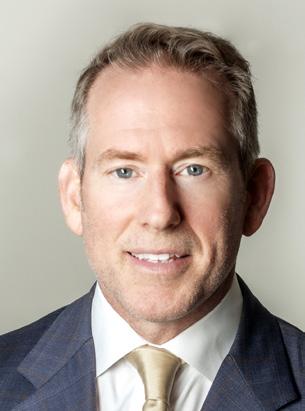
BECKIE COMSTOCK, CRPC
President
Comstock Private Wealth Management/ Raymond James
Beckie Comstock has been serving the financial needs of families, professionals and retirees for more than 25 years. Located in Hot Springs, she opened Comstock Private Wealth Management in 2020. Prior to that, she worked for Bank of America/Merrill Lynch
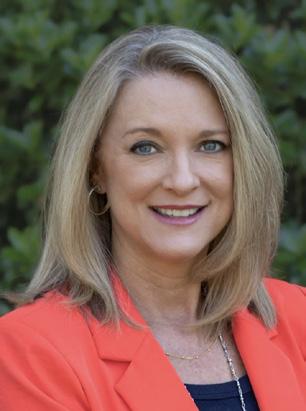
for 24 years. She is responsible for the supervision of the practice along with construction and management of investment strategies. Beckie and her team take a comprehensive approach to address your financial needs. She strives to develop long-term relationships with her clients with the objective of understanding their goals and providing personalized strategies for every element of the wealth management equation.
Originally from Seattle, Beckie has made Hot Springs her home since 1994. In 2011, she earned the professional designation of Chartered Retirement Planning Counselor from the College for Financial Planning. She is currently a volunteer with the Arkansas Single Parent Scholarship Fund.
BILL CRISWELL Partner
Garland & Greenwood Wealth Advisors

Bill Criswell is a partner in the Little Rock firm of Garland & Greenwood Wealth Advisors. Criswell and the team at Garland & Greenwood prioritizes clients’ experiences and consciously works to create an atmosphere that is transparent, trustworthy and comfortable. Garland & Greenwood Wealth Advisors is a fully independent RIA that offers financial planning and wealth management services in a fiduciary capacity.
Before joining Garland & Greenwood last year, Criswell served as president of Arkansas Wealth Management/Criswell Wealth Management. Prior to that, he was the owner of the former Vesuvio Bistro, an award-winning Italian restaurant in Little Rock. Criswell is a graduate of Ouachita Baptist University.
KRISTIN N. DANIEL, RICP Founder/Financial Advisor
Parity Financial Group
Kristin N. Daniel started in the financial industry in 2010 with the goal of helping entrepreneurs intentionally scale their business. Her desire to help others began from being raised in a small town by a blue-collar family that instilled values of honesty and hard work to help shape the person she has become.
Over the years, Daniel’s goal has grown into a passion for working with business owners and entrepreneurs to balance living a fulfilled life as they build their wealth and legacy.
In addition, Daniel is involved in several nonprofit organizations. She serves on the board of directors for the Helen R. Walton Children’s Enrichment Center. She is on the executive team for the Justin Moore St. Jude Golf Classic in Little Rock.
SCOTT DANIEL, CEPA Managing Partner, Financial Advisor Wealthpath investment Advisors
Scott Daniel, CEPA, is a managing partner and financial advisor at WealthPath’s Little Rock office, bringing unique experience in advising a wide range of clients with personalized strategies. After earning a degree in business and managerial economics from Lyon College, Daniel began his career as a financial consultant at PaineWebber & Co. He then went on to establish his own firm, which he ran for 17 years before joining WealthPath in 2015.
Daniel is Series 7, 63, and 65 registered, an Accredited Investment Fiduciary and holds life, health and disability insurance licenses. He has been honored as one of AdvisorHub Top Advisors to Watch under 1 Billion in 2022 and 2023. Daniel is also an active member of several other organizations, serving as executive finance committee board member for the Museum of Discovery, board president of the JDRF Arkansas Chapter, a trustee of Lyon College and commissioner for Little Rock Parks & Recreation.
AMBER FONSECA, CRPC Financial Advisor
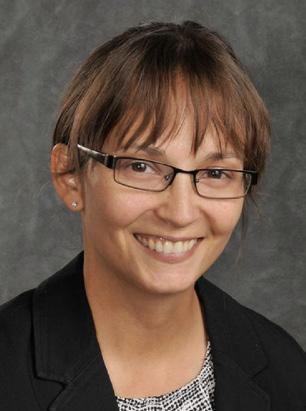
Edward Jones
As an Edward Jones financial advisor, Amber Fonseca genuinely cares about her clients and wants to know what is important to them.This is the first and most important step in the organization’s established process to develop a personalized strategy for clients while partnering together to achieve their financial goals.
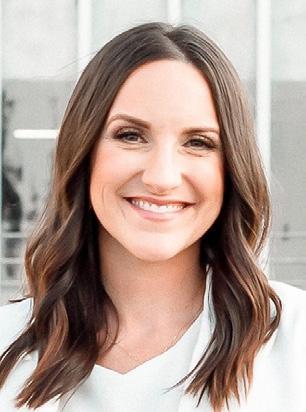
She came to Edward Jones in May 2018 because she wanted to help individual investors and small business owners work toward achieving their goals. It soon became very apparent that she loved helping clients retire on their own terms, so she began studying to become a Chartered Retirement Planning Counselor, a professional designation she has held since June 2021.
BRANTLEY L. FOSTER, CRPC, APMA Financial Advisor
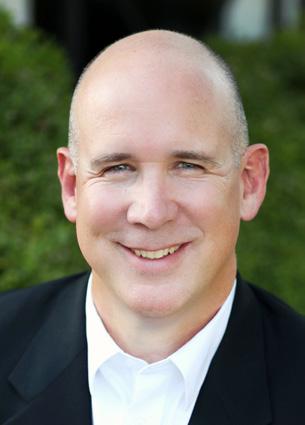
Foster and Associates/Ameriprise
Brant Foster is a lifelong Arkansan. He received a BA in business from the University of Arkansas and was hired by Ameriprise before he graduated in 1996. He has been dedicated ever since to helping his clients meet their financial goals. His areas
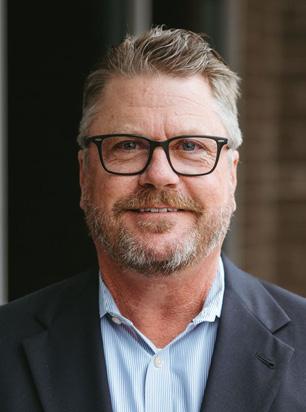
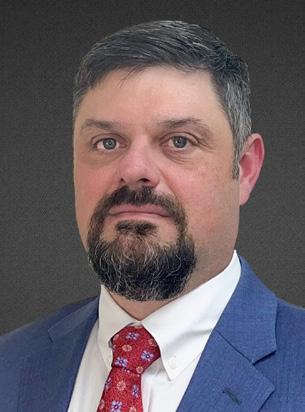
78 ARMONEYANDPOLITICS.COM SEPTEMBER 2023 2023 BEST FINANCIAL ADVISORS
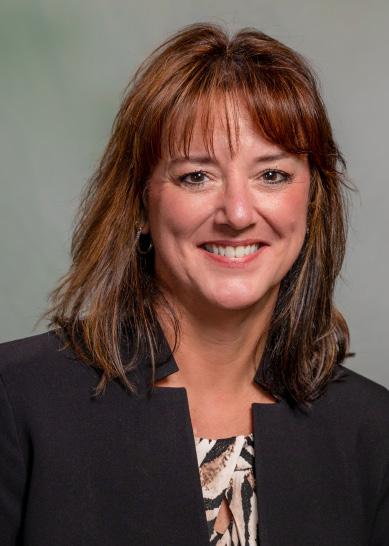
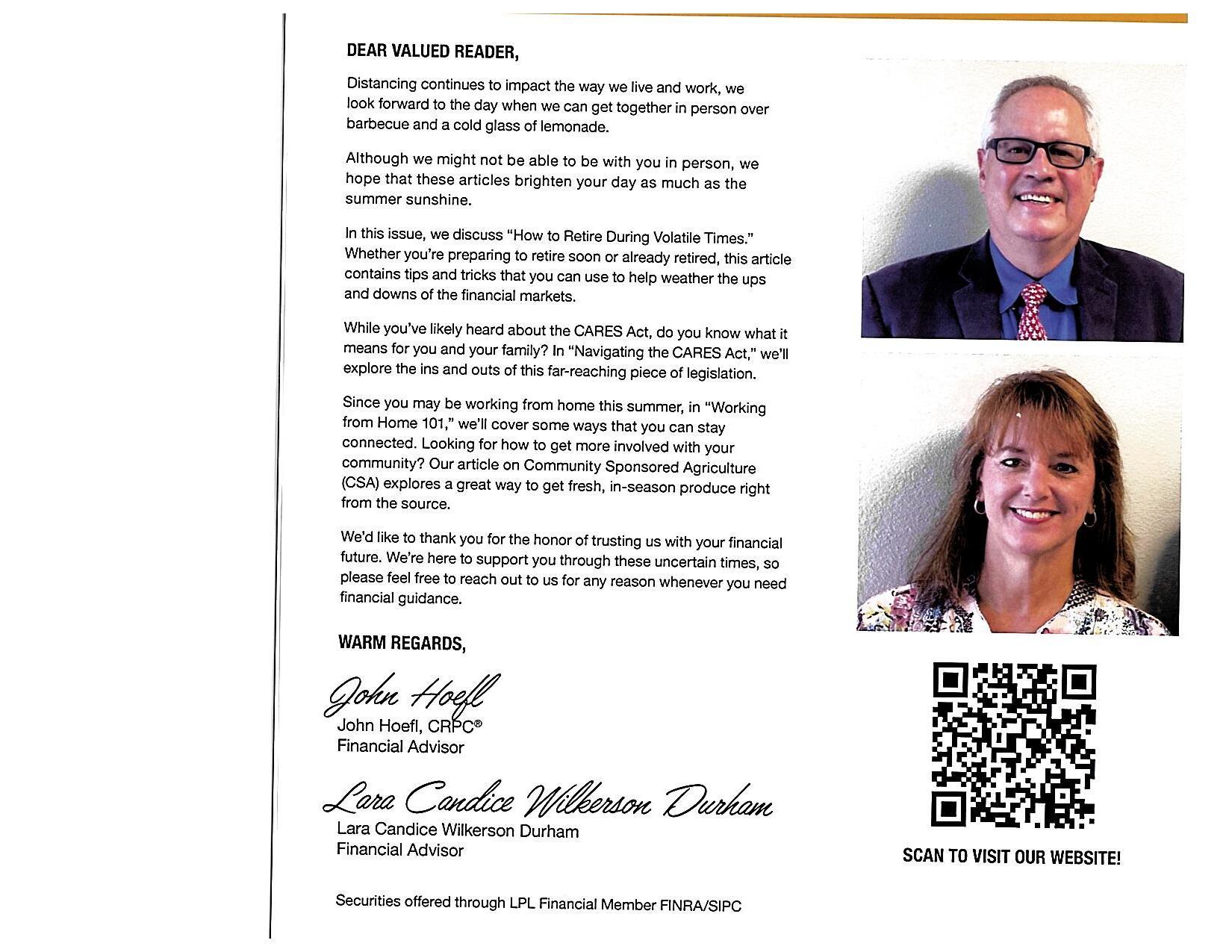
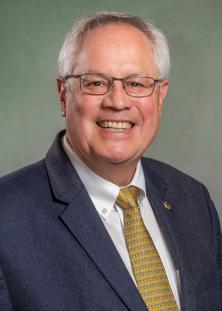

79 ARMONEYANDPOLITICS.COM SEPTEMBER 2023 501-760-3400 2228 Albert Pike Rd., Suite R Hot Springs, AR. 71913 LPL Financial, Inc. 2018 www.aspirewealthbuilders.com Lara Wilkerson Financial Advisor LPL Financial lara.wilkerson@lpl.com AR Insurance #8913727 John P. Hoefl, CRPC® Financial Advisor LPL Financial john.hoefl@lpl.com AR Insurance #1197665 With over 50 years in the industry, we can assist you with Financial Advice, Financial Planning, Investments, Protection planning, Tax planning, and Estate planning. Visit our website and contact us today! SCAN TO VISIT OUR WEBSITE! As an Ameriprise private wealth advisory practice, we have the qualifications and experience to help navigate your complex financial needs. Whether it’s investment management, tax strategies or legacy planning, we can work with you to grow and preserve what you’ve worked so hard to achieve. Call us today and discover the personal service you deserve. Small and Associates Financial A private wealth advisory practice of Ameriprise Financial Services, LLC 36 Rahling Circle, Suite 2, Little Rock, AR 72223 501.975.7968 ameripriseadvisors.com/team/small-associates Ameriprise Financial, Inc. does not offer tax or legal advice. Consult with a tax advisor or attorney. Ameriprise Financial Services, LLC. Member FINRA and SIPC. © 2023 Ameriprise Financial, Inc. All rights reserved. Not FDIC or NCUA Insured | No Financial Institution Guarantee | May Lose Value You’ve worked hard to achieve success. You deserve financial advisors who work as hard for you.
of focus are investments, estate planning strategies, retirement planning strategies, wealth management, business retirement plans and education savings planning.
Foster holds the designations of Chartered Retirement Planning Counselor (CRPC™) and Accredited Portfolio Management Advisor (APMA™).
JIM GARNER
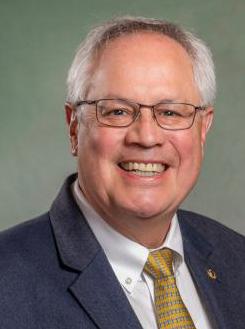 SVP, Investments
Garner Wealth Management/ Raymond James
SVP, Investments
Garner Wealth Management/ Raymond James
For Jim Garner, there is nothing greater than developing meaningful, long-term relationships with the individuals, families, business owners and physicians who he serves. He is driven to provide the superior service his clients need to help preserve and manage their wealth, gain clarity in their financial situation and pursue financial independence through a disciplined, strategic approach that all begins with financial planning.
Garner has more than 28 years of experience helping financially successful individuals and companies pursue their short- and longterm investment goals. Prior to joining Raymond James in 2015, he served as vice president of investments for UBS from 2006 to 2015. Before that, he was employed as senior vice president of Stephens’ private client group for more than 13 years. Garner earned his bachelor’s degree in business finance from Arkansas State University in Jonesboro.
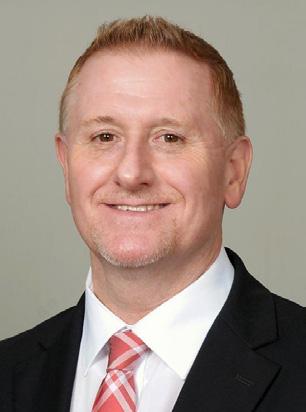
SARAH CATHERINE GUTIERREZ, CFP, CRPS CEO
Aptus Financial
Sarah Catherine Gutierrez is the CEO of Aptus Financial and holds an MPP from Harvard University and the Certified Financial Planner and Chartered Retirement Plans Specialist designations. Aptus provides flat-fee financial planning services to early-career attending physicians and other young professionals. Aptus has helped more than 800 physicians DIY their finances by providing financial mentorship, personalized guidance and simple, unbiased investment advice. In addition, her firm serves as fiduciary advisor to retirement plans and manages financial wellness and student loan advice programs for healthcare organizations and other companies. The plans encompassmore than 30,000 employee participants. She is the author of But First, Save 10: The One Simple Money Move That Will Change Your Life.
JIMMY HACKELTON, AAMS
Financial Advisor
Edward Jones
As an Edward Jones financial advisor, Jimmy Hackelton believes it is important to invest his time to understand what clients are working toward before investing their money, as well as the level of risk they are comfortable accepting when investing. That way, Hackelton can work with clients to balance those factors with the steps necessary to reach their long-term goals.
Whether planning for retirement, saving for college for children or grandchildren, or just trying to protect the financial future of the ones clients care for the most, Hackelton works with clients to develop specific strategies to help them achieve their goals.
Through Edward Jones, Hackelton has the support of thousands of people and advanced technology so he can help ensure clients receive the most current and comprehensive guidance. In addition, Hackelton welcomes the opportunity to work with a clients’ attorney accountants and other trusted professionals to deliver a comprehensive strategy that leverages everyone’s expertise.
JOHN HOEFL, CRPC
LPL Financial Advisor

Aspire Wealth Builders
As a financial professional and an active member of the community, John Hoefl is dedicated to helping individuals and businesses build their financial futures. To stay on top of his field and develop his professional skills, he regularly attends industry training and certification programs.
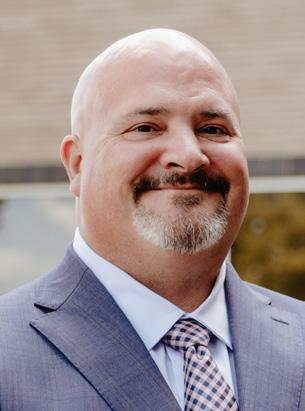
Academic achievements include a B.S. degree from Texas A&M, along with a degree from the University of Arkansas at Little Rock. Hoefl’s education, experience and professional affiliations have fostered his practical approach to offering financial services and advice to his clients. Maintaining a strong sense of community and a solid professional foundation are very important to him. He is involved in Hot Springs Rotary and Hot Springs Civitan.
ABIGAIL HOLLAR, CFP
Financial Advisor
Conger Wealth Management
Abigail Hollar is a financial advisor with Conger Wealth Management who helps professionals and small business owners become retirement ready. She has more than 13 years of experience in financial planning. Her approach is to simplify
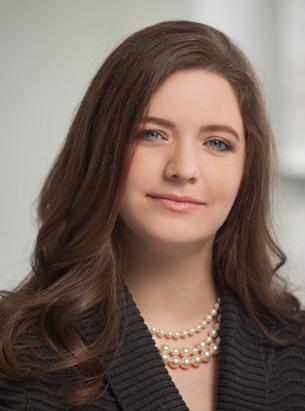
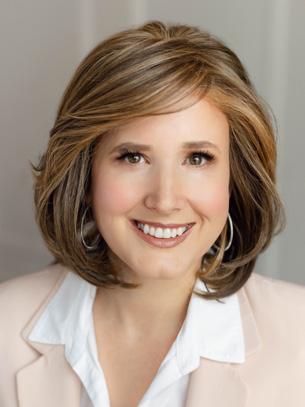
and clarify problems so that clients can easily make well-informed decisions. She works to help clients create additional wealth by coaching them through paying off their debt quickly, saving seriously and investing intelligently. She has worked at Conger Wealth Management since 2010 and became a Certified Financial Planner in 2012. She earned her bachelor’s degree in financial counseling and planning from Purdue University in 2006, and she earned her MBA from the University of Arkansas at Little Rock in 2015.
SCOTT INMAN Financial Advisor
GenWealth Financial Advisors
Scott Inman spent 17 years as an award-winning television news anchor at KATV in Little Rock before joining the GenWealth Financial Advisors team. He also spent 13 years as the football pre-game show host and fill-in play-by-play announcer for the Razorback Sports Network.
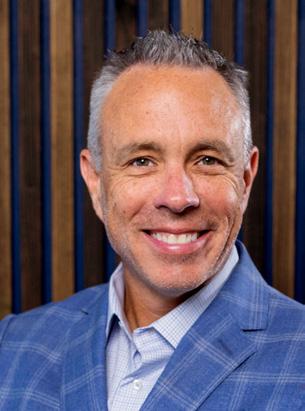

His passion for people and their stories and experience as a communicator led him to become a financial advisor with a mission to listen, plan and guide people toward their goals of true financial independence. Inman works with clients who are preparing for retirement and those who have entered retirement, and he considers it a privilege to do so.
Inman did not fully let go of broadcasting upon becoming a financial advisor. He still hosts the “Get Ready for the Future Show” and “The Fastest Four Minutes In Finance” and is a frequent guest on Yahoo Finance Live.
MARSHALL IPSEN
Founder Ipsen Advisor Group
A Certified Financial Planner with more than two decades of experience, Marshall Ipsen started his career at American Express Financial Advisors. In 2020, he left to begin his own firm, Ipsen Advisor Group, which offers the same array of services that Ipsen has always offered to his clients but has access to a broader spectrum of financial technology and tools.
Ipsen and his team are dedicated to every detail of their clients’ portfolios and get to know each client and their families on a deeply personal level. Integrity and trust are the pillars of the firm, a point which the team takes pride in. Ipsen specializes in sustainable investing, investment strategies that consider financial returns, and social and environmental good. Ipsen Advisor Group offerings include financial planning, wealth management, tax planning and estate planning.
80 ARMONEYANDPOLITICS.COM SEPTEMBER 2023 2023 BEST FINANCIAL ADVISORS


Karrie Sharp is a highly experienced and dedicated manager in the title insurance industry at Knox Title Central Arkansas Division, handling American Abstract and Lenders Title title work. She has a long history of producing title commitments and manages a team of searchers and policy writers. Additionally, she balances her professional life with her role as a mother to two children, one of whom is also in the title business. Karrie’s ability to handle her responsibilities both at work and at home is commendable. 12824 Cantrell Road, Suite 100 Little Rock, AR 72223 501.227.8603 | www.americanabstracttitle.com Congratulations KARRIE SHARP Check Out Our App! Scan Here www.knox-title.com
BOB JACKSON, CFP
Financial Advisor
Edward Jones
As an Edward Jones financial advisor, Bob Jackson believes it is important to invest his time to understand what clients are working toward before investing their money, as well as the level of risk they’re comfortable accepting when investing. That way, Jackson can work with clients to balance those factors with the steps necessary to reach their long-term goals.
Whether planning for retirement, saving for college for children or grandchildren, or just trying to protect the financial future of the ones clients care for the most, Jackson works with clients to develop specific strategies to help them achieve their goals.
Through Edward Jones, Jackson has the support of thousands of people and advanced technology so he can help ensure clients receive the most current and comprehensive guidance. In addition, Jackson welcomes the opportunity to work with a clients’ attornies, accountants and other trusted professionals.
MATT JONES, J.D., CFP
Co-founder
Legacy Capital Wealth Partners
Matt Jones began working in the wealth management industry in 1994 after receiving his undergraduate degree from the University of Arkansas in Fayetteville and his law degree from UA Little Rock. Having completed the requirements to become a Certified Financial Planner, Jones worked locally for both Morgan Keegan and Stephens. In 1997, he joined the late Frank McGehee to form what is now Legacy Capital Wealth Partners. Legacy is now one of the state’s largest Independent Registered Investment Advisors and has more than $1 billion in assets under management.
FRANK KELLY
Financial Planner
Ifrah Financial Services
Frank Kelly is a financial advisor at Ifrah Financial Services in Little Rock. He began at HutchinsonIfrah in 1997 and stayed on when the firm transitioned to Ifrah in 2008. Kelly, who received a degree in finance from the University of Arkansas at Little Rock, also is owner of Solar Source Consulting and has served on the Arkansas Renewable Energy Association since 2010. He currently serves as its chairman.
JOHN SHANE KNOERNSCHILD, CFP, CHFC, FIC Wealth Advisor
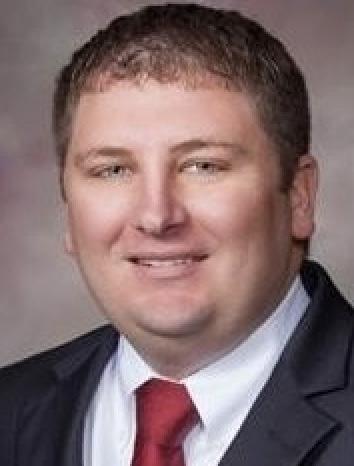
Thrivent Financial
John Shane Knoernschild has been a wealth advisor with Thrivent Financial since 2006. He started his career in finance as a bank teller for First Community Bank and now holds the Certified Financial Planner, Chartered Financial Consultant and Chartered Advisor in Philanthropy designations. He also holds the Certified Kingdom Advisor designation with Kingdom Advisors..
Knoernschild graduated with a degree in finance from the University of Arkansas.
DAVID LUKAS Financial
Advisor
David Lukas Financial
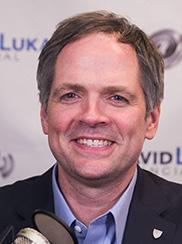
David Lukas is a financial advisor, author, radio host and instructor who is passionate about creating businesses that serve the needs of consumers and businesses alike. Inspired by Robert Kiyosaki’s book Rich Dad Poor Dad, Lukas entered the financial services world and started his own company. Now more than three decades into his career, Lukas appears regularly on local news channels, and his radio program, “The David Lukas Show”, has been rated by Nielsen as one of the top 100 financial shows in the United States. Lukas’ success was even recognized by Kiyosaki himself in his book Rich Dad’s Success Stories. For Lukas, it is not just about numbers or financial strategies; it is about making a tangible, positive difference in people’s lives when they need it the most.
LESTER MATLOCK, APMA, CFP, CRPC
Private Wealth Advisor and CEO Natural State Private Wealth Group/ Ameriprise
Lester Matlock is CEO of Little Rock’s Natural State Private Wealth Group and has more than 28 years of experience in the industry. His retirement income strategies include wealth preservation strategies, investments, retirement plan distribution, tax planning strategies, estate planning strategies and charitable giving. He holds the APMA, CFP and CRPC designations.

Matlock and the team at Natural State received the Ameriprise Client Experience Award, a testament to the loyalty of its clients, and the Ameriprise Client Experience Award for 2021-2022.
WILLIAM MCMILLAN, WMS Financial Advisor
TMB Capital Partners/Raymond James
With more than 22 years in the financial services industry, McMillan strives to help clients realize their financial and personal aspirations through sound, tailored wealth management. He has expertise in comprehensive financial planning with a specialty in portfolio management and retirement planning. Levelheaded and trustworthy, he provides thorough financial guidance, always keeping the clients’ best interest at the forefront.
McMillan began his career at UBS and joined Raymond James, formerly Morgan Keegan, in 2002. He holds the Accredited Investment Fiduciary designation as well as Series 7 and 66 licenses. He earned a bachelor’s degree in finance from the University of Arkansas in Fayetteville and later, an MBA from the University of Memphis.
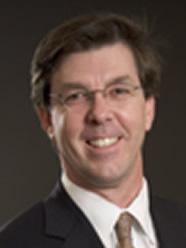
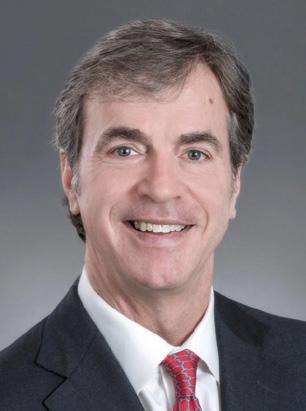
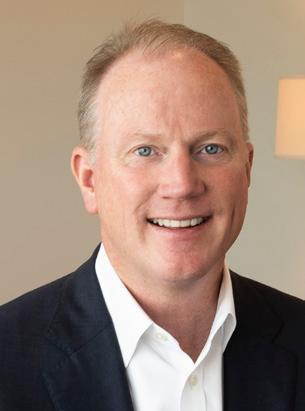
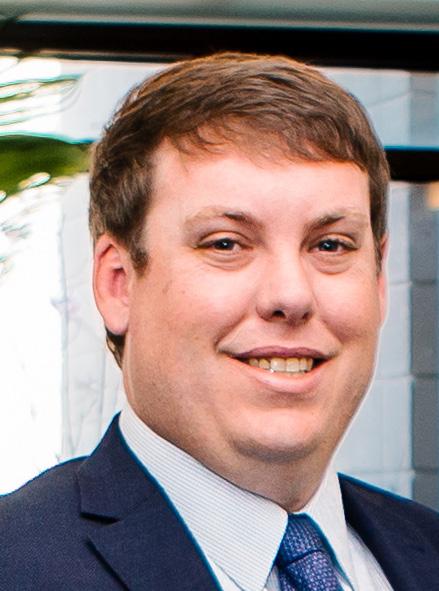
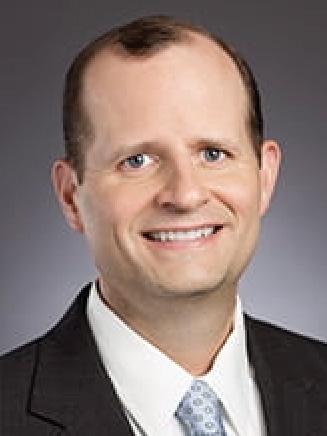
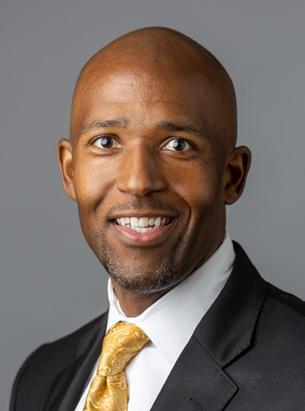
NICK MERRIWEATHER, CFP
Operations Manager and Financial Advisor
Ipsen Advisor Group

Nick Merriweather has worked with Ipsen Advisor Group since graduating from Henderson State University in 2016 with a bachelor’s degree in finance. Merriweather’s initial role was paraplanner, and he soon recognized he wanted to be a true financial planner. Working toward that goal, he obtained his securities licenses and received his insurance license to help clients plan for the unexpected by utilizing health, disability and long-term care insurance. He went on to study for and earn his Certified Financial Planner certification from the Certified Financial Planner Board of Standards in 2023. This has cemented in him a client-focused mission to help people achieve their goals.
PAT MOON
Managing Principal and President
Meridian Investment Advisors
Pat Moon is managing principal and president of Meridian Investment Advisors. Founded in 1983 in Little Rock, Meridian is a Registered Investment Advisor managing $800 million for companies, foundations, families and institutional investors. He has almost 40 years experience as an investment manager, wealth advisor and retirement plan consultant.
Moon’s greatest reward is helping people realize the life they imagine. He enjoys building relationships with clients, exploring what
82 ARMONEYANDPOLITICS.COM SEPTEMBER 2023 2023 BEST FINANCIAL ADVISORS
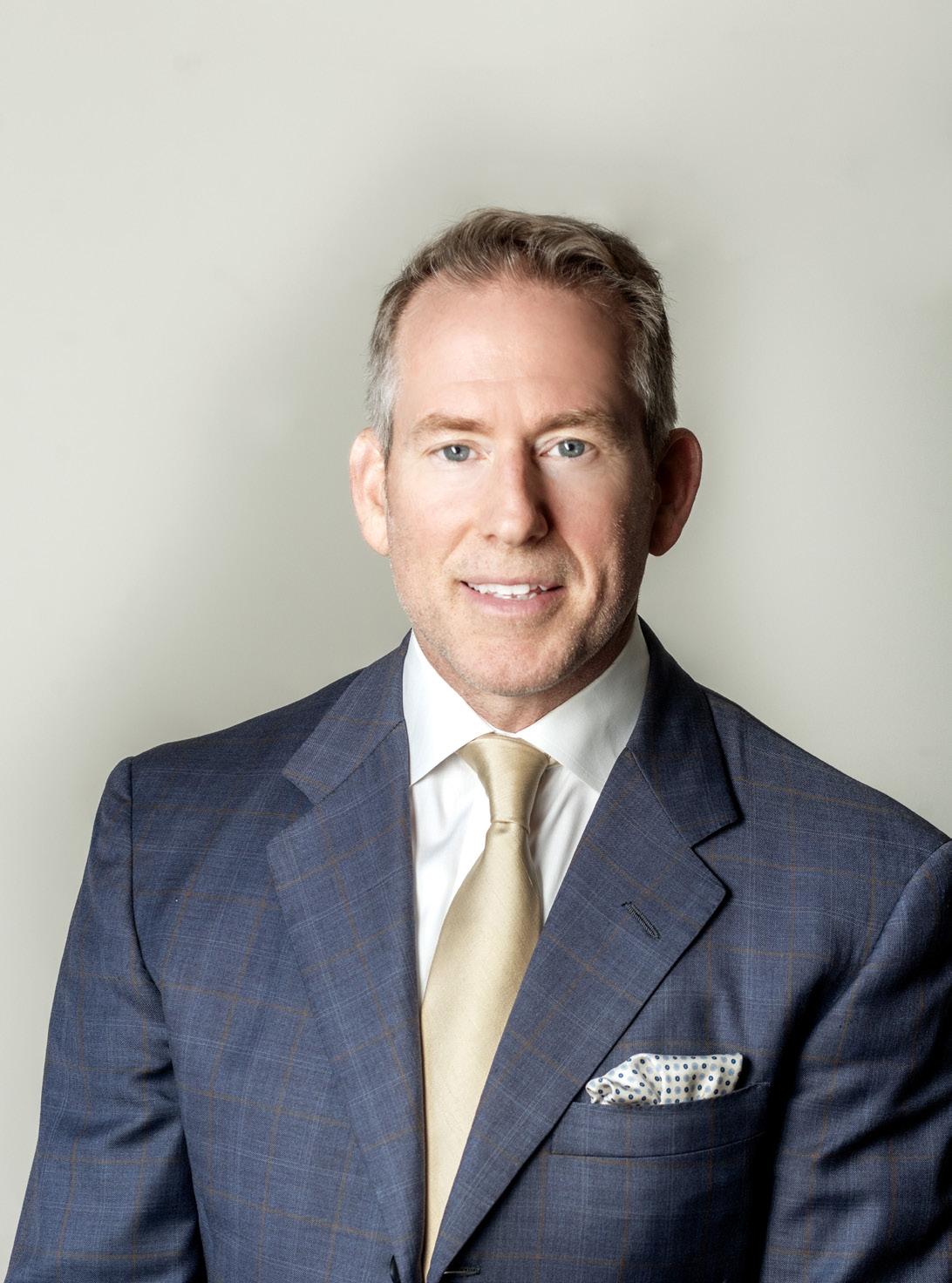

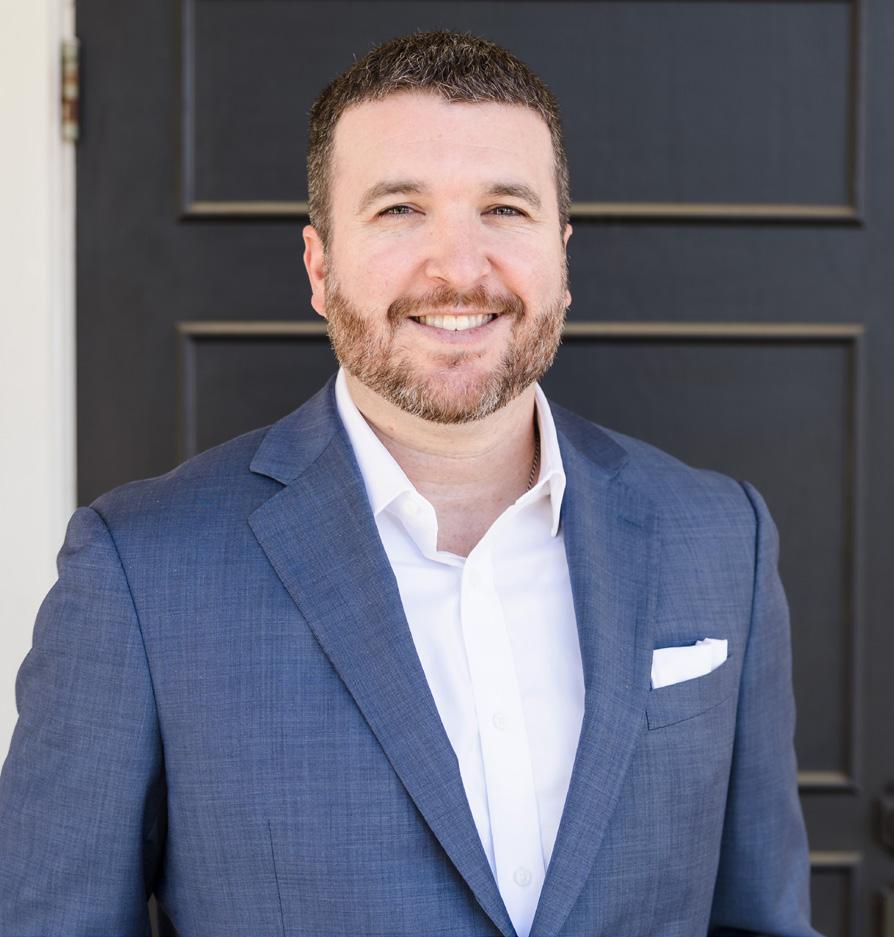

83 ARMONEYANDPOLITICS.COM SEPTEMBER 2023 2228 Cottondale Lane Suite 2250 Little Rock, AR 72202 501-671-6690 www.wealthpath.net Congratulations for being named one of AMP’s 2023 Best Financial Advisors! SCOTT W. DANIEL, AIF , CEPA YOUR FINANCIAL PATH DESERVES PROFESSIONAL NAVIGATION “Its what we do” ® ® www.pinnacleadvisor.net | (501) 327-6277 LITTLE ROCK • CABOT as one of AMP’s 2023 Achievers in their 40’s Congratulations Business Consulting • Litigation Support • Tax Services • Personal Financial Planning Proud to help small business owners and their families reach new heights. Victor Werley
they value, guiding them to make informed decisions and giving them confidence that their vision can become reality.
A graduate of the University of Central Arkansas in Conway and Texas Christian University, Moon is also a Chartered Financial Analyst charterholder.
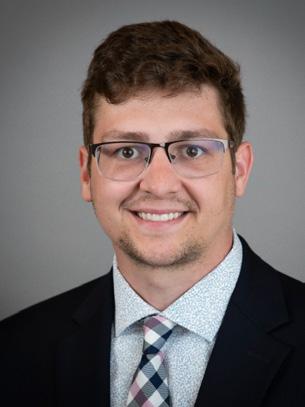
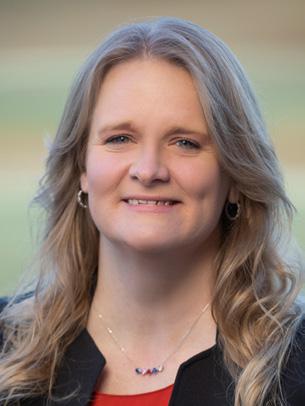
GEOFF NIEBAUM
Partner, CEO
Mendel Capital Management
Geoffrey H. Niebaum brings 18 years of investment advisory experience to his role leading Mendel Capital Management. As President & CEO, he focuses on investment management and overall strategic growth of Mendel Capital. Niebaum works diligently to maintain the firm’s client-first focus. Prior to joining Mendel Capital, he was a partner and portfolio manager for Integra Capital Advisors. His investment management career began with Morgan Stanley Smith Barney. Niebaum earned a MBA from the University of South Florida and a BA in Marketing from St. Leo University.
PATRICIA C. NUOVO, CFP
Financial Advisor
Signature Private Wealth Management
Patricia Nuovo was the first female stockbroker at her firm in Philadelphia and has excelled in the financial world in the Northeast, where she grew up. She has broken down barriers in the financial industry and uses her knowledge and experience to help others achieve their financial goals by taking a wholistic view of their personal finances.
With almost three decades of experience in the fast-paced financial industry, Nuovo has established herself as a powerhouse and an innovative leader, advisor and fiduciary. Her seminars and books on the concepts of money, emotions and abundance were an integral part of her message about educating and empowering the individual regarding their personal finances.
CLAY PARTRIDGE
Financial
Advisor
Crews & Associates
As a financial advisor for Crews & Associates, Clay Partridge provides investment services to individuals in and around the Little Rock area. His focus is on providing his clients with distinctive strategies tailored to fit their individual investment objectives. Before joining Crews, he worked for nearly 20 years in the mortgage banking industry.
Partridge earned his bachelor’s degree in accounting from Ouachita Baptist University in Arkadelphia and his master’s degree in business from the University of Arkansas in Little Rock. He also maintains his Series 7 and Series 66 licenses.
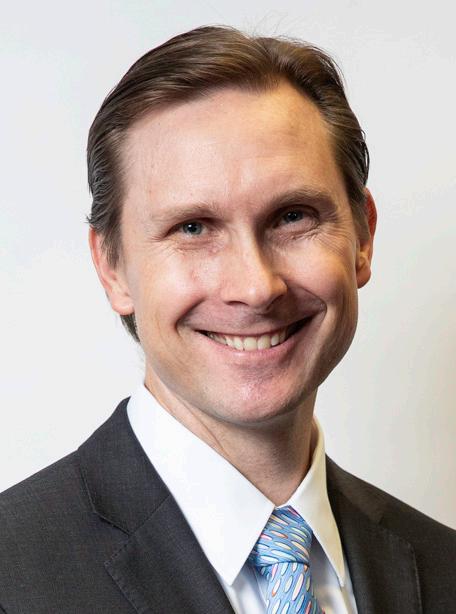
GREG PILLOW, CFP Financial Advisor Conway
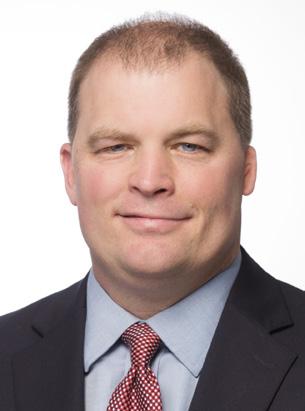
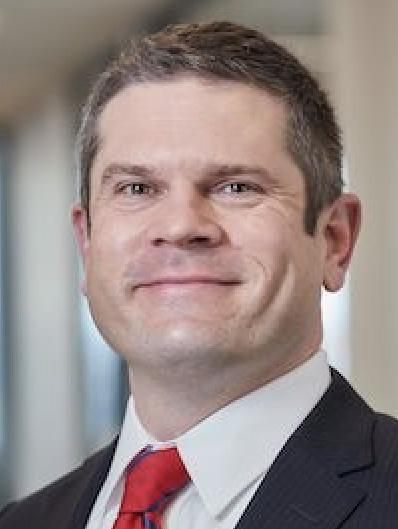
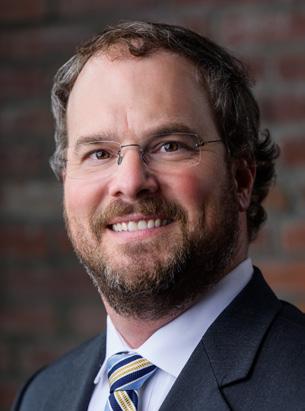
Wealth Management
Greg Pillow has been a financial advisor since 1999. He worked for a couple of national firms before founding Conway Wealth Management in 2010. Pillow grew up in Conway and graduated from the University of Central Arkansas. Pillow enjoys being an advisor and helping his clients pursue success in life. Pillow and his team provide comprehensive financial planning for clients so that they can give the best advice possible. Areas of focus for Pillow’s practice include retirement planning, estate planning, businesssuccession planning and investment planning. Securities and advisory services are offered through LPL Financial, a registered investment advisor, member FINRA/SIPC.
CHARLIE PORTER, CRPS
Senior Vice President, Private Wealth Management Stephens
Charlie Porter serves as senior vice president in the private wealth-management division at Stephens in Little Rock. He joined in 2007 to partner with his father, Dr. Rob Porter. Charlie Porter and his team focus on delivering an exceptional client experience while providing comprehensive wealth management planning services to high-net-worth families, endowments and foundations. Prior to joining Stephens, he was a branch manager at another financial institution, where he worked in the lending division.
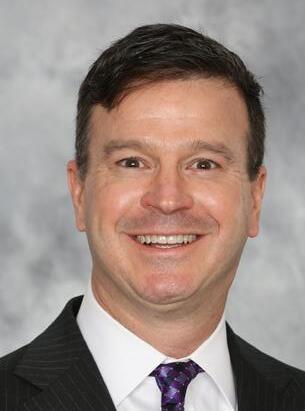
Porter holds a Bachelor of Science degree in advertising and public relations from the University of Arkansas in Fayetteville.
LISA RABATIN, CFP Wealth
Advisor
Simmons Investment Services

Lisa Rabatin is a Certified Financial Planner with Simmons Investment Services. Rabatin has four decades of investment experience and has been with Simmons since 2008. She began her career with Merrill Lynch, Pierce, Fenner & Smith in 1982 after obtaining her Bachelor
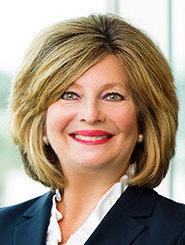
of Business Administration from the University of Arkansas at Little Rock. After joining Dean Witter Reynolds in 1985, she spent 20 years with Morgan Stanley. Rabatin then joined Northwestern Mutual in 2005 to further her holistic planning approach. In 2008, she joined Delta Trust Investments, which was later bought out by Simmons Bank. Rabatin obtained her Certified Financial Planner designation in 2002.
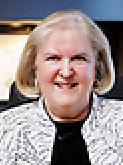
STEPHEN RABORN
Senior Vice President, Investments
Diamond Family Financial Partners/ Raymond James
Stephen Raborn began his investment career in 1993 in Little Rock and has a wide variety of financial-industry experience that helps clients achieve their goals and manage financial blind spots. He currently holds his Series 7, 9, 10, 24, 63 and 65 securities licenses. Raborn understands the importance of long-term relationships and enjoys the privilege of serving clients and supporting his team, Diamond Family Financial Partners of Raymond James. He graduated from Carlisle High School, and then earned a bachelor’s degree in marketing from the University of Arkansas and an MBA from Webster University.
KYMBERLIE REED
Financial Advisor
Small & Associates Financial/Ameriprise
Kym Reed is a distinguished financial advisor in Arkansas, recognized as one of the best in 2023. With a Certified Military Financial Advisor certification acquired last year, she has exhibited dedication to her craft. Her 17year tenure at Ameriprise showcases her commitment to clients’ financial well-being. Her team’s passion for financial planning is evident by the recognition in Forbes as one of the Best In State Wealth Management Team’s for 2023. Reed’s passion for guiding clients towards their financial aspirations drives her work.
ALEX RICHMOND
Financial Planner
Strategic Financial Partners
Preparing for that next step in life is not always easy. New clients approach Alex Richmond, a financial planner with Strategic Financial Partners in Little Rock, with similar concerns: increasing demands on their time and resources prevent them from taking appropriate steps
84 ARMONEYANDPOLITICS.COM SEPTEMBER 2023
2023 BEST FINANCIAL ADVISORS
As an Ameriprise private wealth advisory practice, we have the qualifications and experience to help navigate your complex financial needs. Whether it’s investment management, tax strategies or legacy planning, we can work with you to grow and preserve what you’ve worked so hard to achieve.
Call
Natural
A
415
501.537.1100
ameripriseadvisors.com/team/ natural-state-private-wealth-group
WealthFiduciaryManagement
Founded in 2016, Fiduciary Wealth Management (FWM) is a fee-only registered investment advisory firm based in Little Rock. Founders Rocklin Senavinin, CFP®, and Edward P. Mahaffy, MBA, CFP®, ChFC®, who have a combined 50 years of industry experience, started the firm with a shared vision and goal of always putting the client’s needs first.
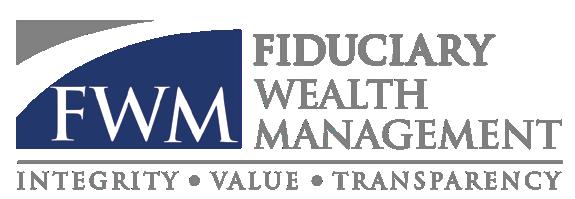
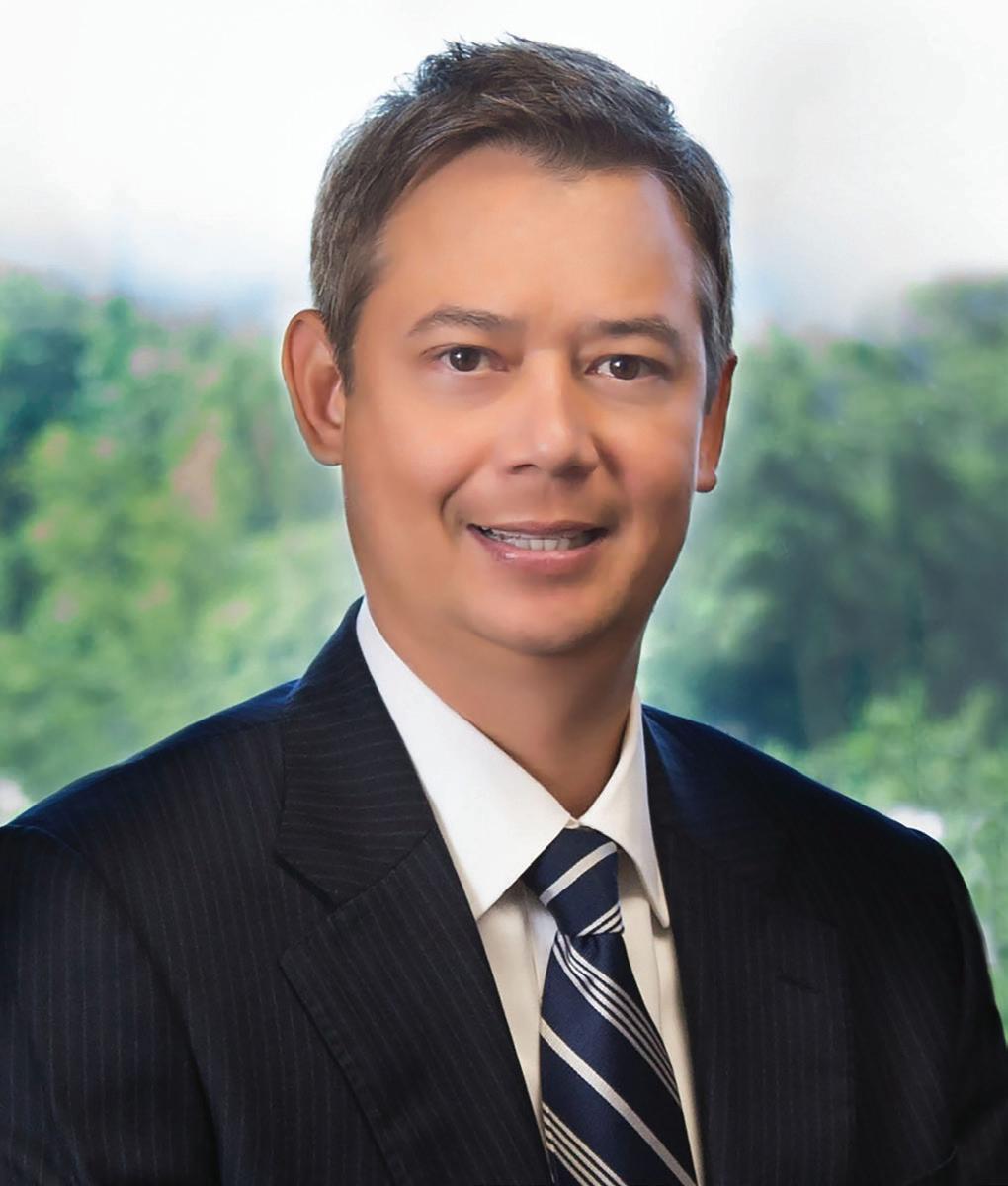
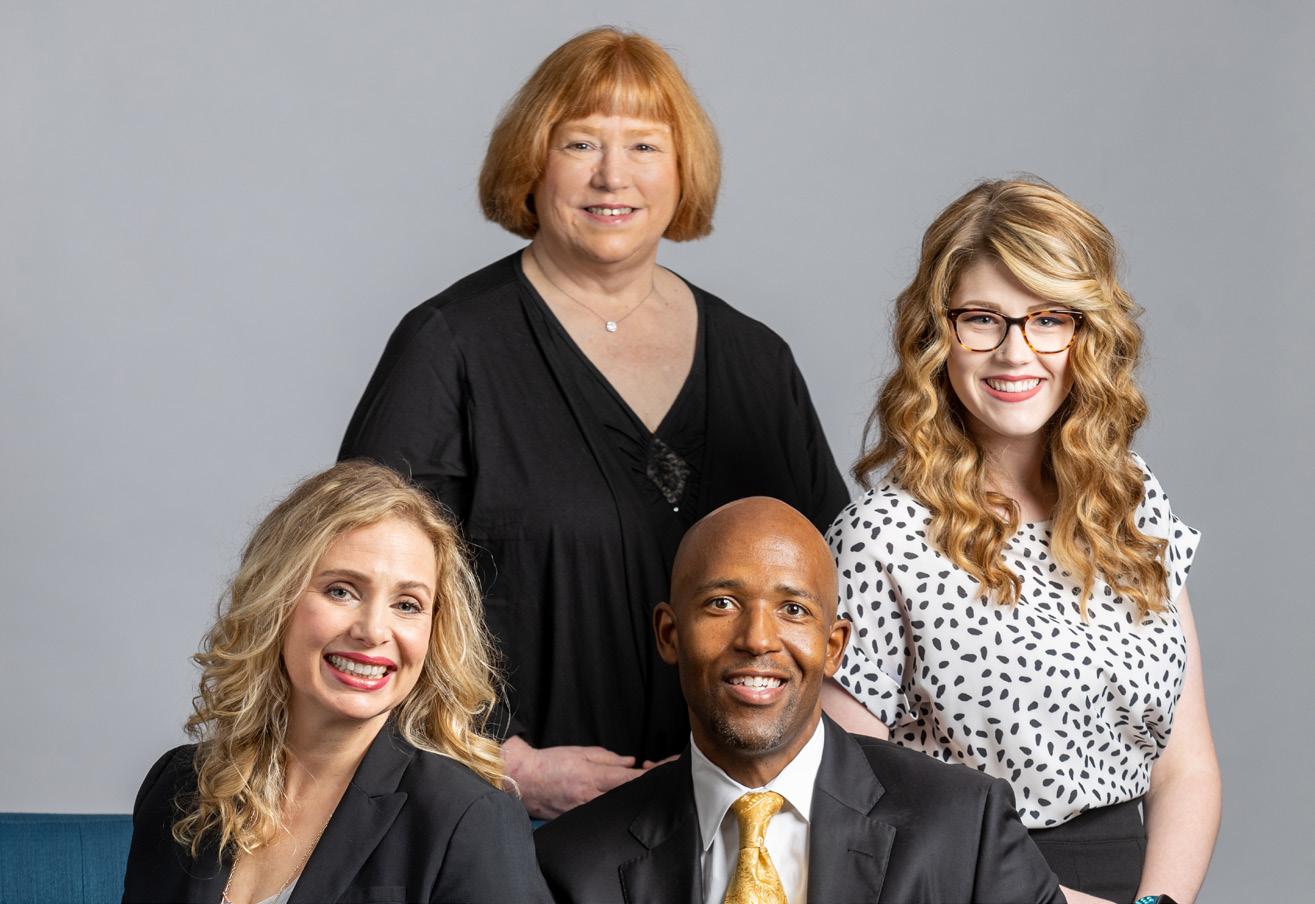
FWM provides comprehensive investment management and financial planning services, as well as hourly consulting services for those who want to stay with existing providers. Its streamlined results are easy to interpret and give careful consideration to tax-related and estate planning concerns.
At FWM, there are no sales quotas to meet, which eliminates many conflicts of interest. The firm works with the client’s needs in mind and seeks investments that are appropriate for them and their families. Clients’ goals are at the forefront of FWM’s practice, and they do not take their fiduciary responsibility lightly.
85 ARMONEYANDPOLITICS.COM SEPTEMBER 2023
us today and discover the personal service you deserve.
State Private Wealth
Group
advisory practice
Financial
private wealth
of Ameriprise
Services, LLC
N McKinley St, Ste 1140 Little Rock, AR 72205
Ameriprise Financial, Inc. does not offer tax or legal advice. Consult with a tax advisor or attorney. Ameriprise Financial Services, LLC. Member FINRA and SIPC. © 2023 Ameriprise Financial, Inc. All rights reserved. Not FDIC or NCUA Insured | No Financial Institution Guarantee | May Lose Value
You’ve worked hard to achieve success. You deserve financial advisors who work as hard for you.
ROCKLIN SENAVININ, CFP ® 1501 N. University Ave., Ste. 714, Little Rock, AR 72207 501-673-3092 / FIDWM.com
Rocklin Senavinin, CFP®
to make positive financial outcomes possible. Richmond guides clients through the teambased, process-driven approach to financial preparedness that has helped many of his clients. Clients often say the greatest benefit from the collaboration-based approach is the clarity and financial peace of mind they have come to enjoy as a result. Richmond is a life-long Arkansan that understands that a harvest only comes after the seeds have been planted and the crop is maintained.
LARRY ROOT, CFP, CFS, APMA Founder
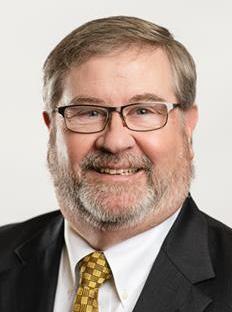
Larry Root & Associates
Larry Root’s practice has changed over the years with its clients. Many clients have worked with the firm for 25 years or longer. He understands the impact the firm can have in clients’ lives through a fulfilling retirement, education of children and grandchildren, as well as facing the difficult events of life. The firm works to make a difference in the lives of its clients. Root was named to Forbes’ Best-in-State Financial Advisors in 2022, and Larry Root & Associates has been named to the 2023 Forbes Best-in-State Wealth Management Teams list.
KYLE D. SCOTT
Co-founder, Financial Advisor
Four Corners Wealth Management Group/ Wells Fargo
Kyle Scott has served Russellville and the surrounding area since 2009, when he began his career with Edward Jones as a financial advisor. In 2011, he joined Investment Professionals, where he worked for three years before moving his financial practice to Wells Fargo Advisors. In 2022, he joined Jared Smith and Tyler Goodson to form Four Corners Wealth Management Group of Wells Fargo Advisors.
Scott and his team offer a comprehensive approach to wealth management by focusing on the “four corners” of wealth management: plan, advise, invest and protect.
ROCKLIN SENAVININ, CFP
President and Co-founder
Fiduciary Wealth Management
Rocklin Senavinin is president and co-founder of Fiduciary Wealth Management, a fee-only registered investment advisory firm in Little Rock. As a Certified Financial Planner, he has advanced training in the holistic process of creating a personal financial plan that addresses a person’s comprehensive

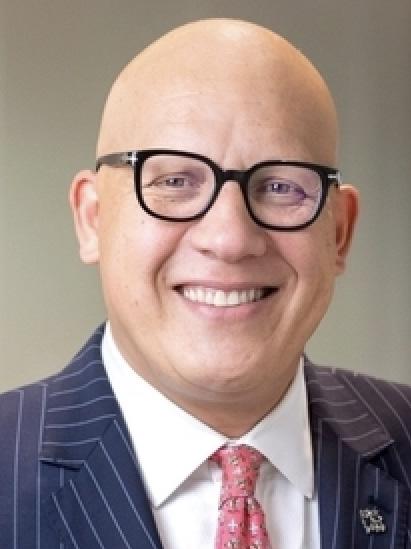
needs for both the short and long term.
Senavinin has more than 20 years of experience in the investment and financial planning industry and has dedicated his career to helping individuals live comfortably in retirement. He has experience working at large firms and decided to start Fiduciary Wealth Management because he appreciates the personal relationships he is able to develop with his clients.
THOMAS SHURGAR
Partner
Oak Crest Wealth Management
Thomas Shurgar is an accredited asset management specialist with a Master of Business degree from the Sam M. Walton College of Business in Fayetteville and a Bachelor of Science degree in agricultural economics from the University of Arkansas in Fayetteville. He spent several years managing a portfolio of agricultural assets before joining a national investment firm, where he worked from 2003 to 2018 and achieved partner status. Shurgar joined Oak Crest Wealth Management as partner, bringing with him a wealth of knowledge in asset management, financial planning and employee development.
JOEY SMALL
Founder, Private Wealth Advisor
Small & Associates Financial

Joey Small is a private wealth advisor at Small & Associates Financial. He graduated from the University of Arkansas at Little Rock in 1993, where he received his BBA in finance. He opened his firm in 1999 and has become an industry leader in the financial world, leading with a passion for empowering clients to reach their goals. With an unwavering commitment to his clients’ success, he goes beyond numbers, crafting personalized strategies that turn aspirations into realities. Small’s journey is defined by his dedication to making a positive impact, and his leadership at Small & Associates Financial reflects his commitment to excellence. Through his approach, Small continues to set new standards in the industry.
GRANT SMITH
Senior Partner
Lighthouse Financial
Grant Smith is a senior partner at Lighthouse Financial, a comprehensive financial-planning firm headquartered in Northwest Arkansas that focuses on combining tax and investment strategies to significantly reduce the amount of taxes their cli-
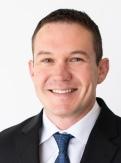
ents pay over their lifetime.
He loves to engage other people because he enjoys connecting with individuals and learning about their background and who they are. He has a desire to have a positive impact on the lives of others and that is why he is in this business.
Smith graduated from the University of Arkansas in Fayetteville with a degree in finance in 2015. In 2016, he was named Equitable Advisors National Rookie of the Year. In 2019, he was Equitable Advisors National DSF Advisor of the Year. In 2020, he earned his Certified Financial Planner license, and in 2021 he was recognized by the American Bankers Association in their National 40 under 40 in Wealth Management list.
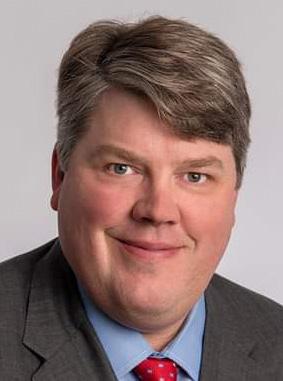
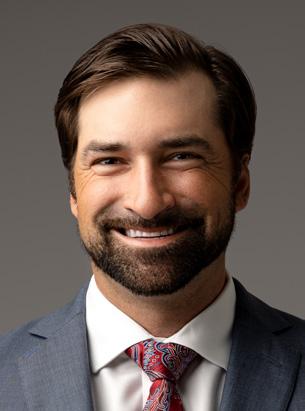

HATIM SMOUNI, CPFA, CRPC, CFP
SVP,
Wealth Management Advisor
Smouni Bradley Group/Merrill
Hatim Smouni focuses on offering a comprehensive approach to managing wealth that begins with getting to know a client and the client’s family, financial situation and what matters most to them. Then he helps them create a customized wealth-management approach that can be flexible as their needs and market conditions change. Smouni provides access to the investment insights of Merrill and banking convenience of Bank of America to help address the various aspects of clients’ financial lives. He is driven by my passion for delivering excellent service and helping clients pursue their goals.
JENINE STAFFORD, CLTC, FIC Financial Professional Thrivent Financial
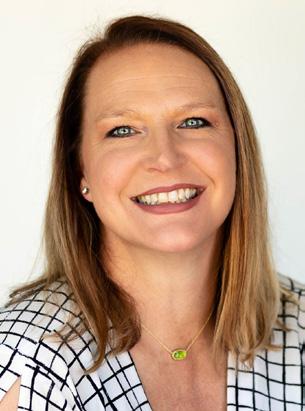
After 37 years in the industry, working at Thrivent Financial has afforded Jenine Stafford the ability to look at things through a different lens. As opposed to concentrating only on growth of assets, she finds satisfaction in taking a deeper look at tax strategies and how they may affect distribution options. This has lent itself to her love of working with families who have children or grandchildren with special needs.
Since her son was born with Down syndrome, she has learned that individuals must plan, change course when things do not work out as imagined, and plan again. Her unexpected curveballs have enabled her to help clients of all ages and stages of life prepare for the unexpected, adapt when plans change and celebrate their victories.
86 ARMONEYANDPOLITICS.COM SEPTEMBER 2023 2023 BEST FINANCIAL ADVISORS
ARKANSAS’S FUTURE IS OUR FOUNDATION
The Foundation has a vision for communities in Arkansas – to become the places your kids will want to raise their kids. By strategically funding a variety of local nonprofits we provide not only resources, insight and inspiration but also statewide impact to build better communities.

ROOTED IN CONWAY.
INVESTED IN YOUR FUTURE.
Having a trusted financial advisor rooted in the community is important.




At Conway Wealth Management our advisors have over 80 years of combined experience in the industry, right here in your new home.
Our team of knowledgeable advisors are invested in you and your future. We work with you to set goals and help you work towards them Let’s get to work on your future!
Planning today for your tomorrow.
• Comprehensive Personal Financial Planning
• Investment Management
• IRA/401K Planning/Estate Planning
• Business Succession Planning
87 ARMONEYANDPOLITICS.COM SEPTEMBER 2023
• Retirement Planning
• Insurance Planning
conwaywealt h manage m ent . c o m 825 Parkway Street • Conway, AR 72034 • (501) 358-3994 • (501) 358-3997
Securities and Financial Planning offered through LPL Financial, a registered investment advisor Member FINRA/SIPC
arcf.org
CANDICE STANLEY, RICP Financial Advisor
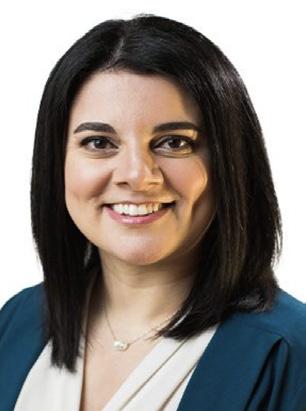
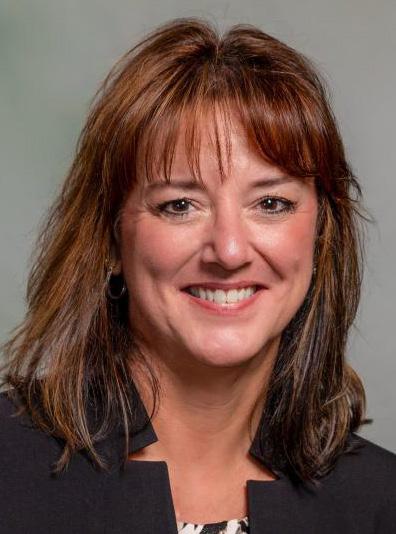
GenWealth Financial Advisors
Prior to joining the GenWealth Financial Advisors team, Candice Stanely owned and managed an insurance agency for several years. Her passion for helping others achieve their financial goals has been present since college, and insurance allowed her to cultivate a part of her ambition. She graduated from the University of Houston with a bachelor’s degree in business administration with a concentration in finance in 2006 and holds Series 7, 6, 63 and 66 licenses through LPL Financial.
TRAVIS SWANSON
Certified Financial Planner
Camienne Financial/Northwestern Mutual
Travis Swanson is a Certified Financial Planner at Camienne Financial, one of the largest wealth management firms nationally within Northwestern Mutual. Camienne Financial operates in the high networth market, delivering comprehensive investment, insurance, charitable and estate planning to clients from coast to coast. Swanson has been recognized by Northwestern Mutual as the top financial advisor in the South for his tenure. He has also been awarded Northwestern Mutual’s Life Impact Award, Pathfinder Award and Achievement Award. He grew up in Kingwood, Texas, before earning a football scholarship to the University of Arkansas in Fayetteville, where he was a four-year letterman, an All-American and a two-time captain for the Razorbacks. He was drafted by the Detroit Lions in the third round of the 2014 NFL Draft and spent five years in the NFL as a starting center.
SCOTT TABOR, WMS Financial
Advisor
TMB Capital Partners/Raymond James
With more than 30 years of experience in the financial-services industry, Scott Tabor provides seasoned expertise to guide clients in all aspect of wealth management. Knowledgeable in comprehensive financial planning, he helps individuals and businesses address their needs for estate and retirement planning, succession planning, portfolio management and more. Honest and personable, he enjoys developing lasting relationships with each of his clients and designs strategies tailored to their individual financial needs and goals.
Tabor has been a financial advisor with Raymond James, formerly Morgan Keegan, since 1992. He earned a degree in business and finance from the University of Arkansas.
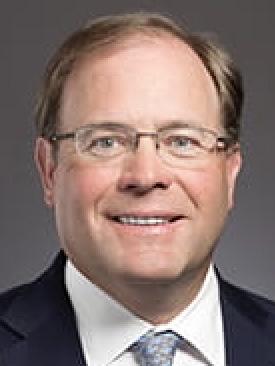
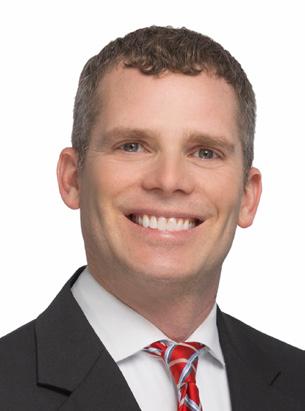

ERIC THESSING, CMFA
Small & Associates Financial Advisor

Eric Thessing is a proud Arkansas native with passion for making life easier for others. He graduated from Catholic High School for Boys in Little Rock and pursued his finance degree at Arkansas State University in Jonesboro, where he graduated cum laude in 2020. With a passion to serve those who have served, he obtained his Certified Military Financial Advisor designation in 2022. Inspired by his father, who has been a police officer for 28 years, Thessing is deeply involved with military and first responder personnel by guiding them to financial security. His goal is to empower his clients to understand, achieve and manage their financial independence with confidence.
CHRIS VANLANDINGHAM Partner/PIM Portfolio Manager

BVJ Wealth Management/Wells Fargo
As part of an experienced team of financial professionals, Chris Vanlandingham proud to help a select group of families in the area grow, manage, preserve and transition wealth. His team’s clients are like family and are treated as such. Vanlandingham takes pride in customer service and understanding each client’s total financial situation.
In addition to providing a full suite of investment strategies, he also believes in giving back to the community. With a passion for the arts, he served on the board for the Little Rock Wind Symphony for several years, most recently as president. He was honored to be appointed by the mayor of Little Rock as a city commissioner on the Little Rock Historic District Commission.
KENNY WASSON, AAMS, CRPC Vice President, Senior Client Advisor
Arvest Wealth Management
Kenny Wasson serves a select group of clients, helping them build, manage and protect their wealth. He knows that life is full of transitions, planned and unplanned, and is committed to being there for his clients by celebrating their successes and overcoming challenges and setbacks. His practice focuses on comprehensive wealth management services, including investments, liability management, non-portfolio risk management, estate planning strategies and fiduciary services.
Wasson strives to understand his clients’ circumstances and empathize with their emotions about money to help him build a strong clientadvisor relationship.
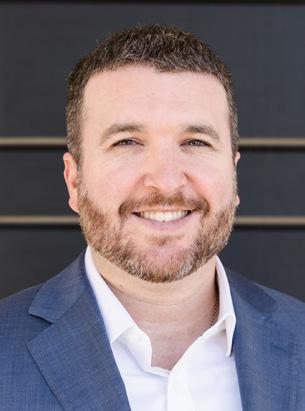
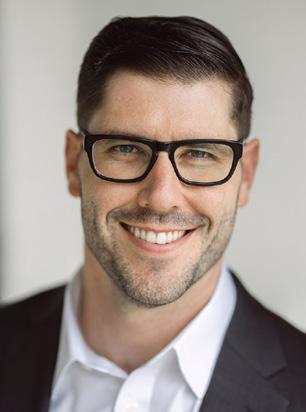
VICTOR S. WERLEY CFP, CHFC, CDFA, CVA, MAFF, CFE, CEPA Director of Financial Planning and Managing Partner
Pinnacle Advisors
Victor Werley is a Certified Financial Planner and partner at Pinnacle Advisors in Little Rock, which he formed in 2003. He earned a bachelor’s degree in psychology from Lyon College in Batesville in 2003, and he has served on the college’s board since 2013. In addition to his CFP credential, he is a Certified Divorce Financial Analyst, a Certified Valuation Analyst, a Certified Fraud Examiner, a Chartered Financial Consultant and a master analyst in financial forensics. Legal support services provided by Werley and his team include forensic analysis, expert witness services and settlement structuring.
LARA C. WILKERSON
LPL Financial Advisor
Aspire Wealth Builders
As a financial professional and an active member of the community, Lara Candice Wilkerson is dedicated to helping individuals and businesses build their financial futures. To stay on top of her field and develop her professional skills, she regularly attends industry training and certification programs.
Her experience and professional affiliations have fostered her practical approach to offering financial services and advice to clients. Maintaining a strong sense of community and a solid professional foundation are very important to her. Wilkerson is involved in child abuse prevention with CooperAnthony Mercy Child Advocacy Center, No Child Hungry, among other organizations.
JARED R. ZEISER, CRPC
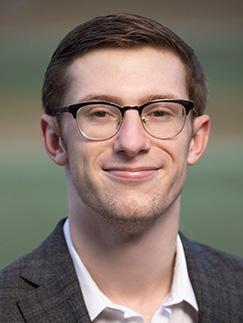
President and CEO
Zeiser Wealth Management
Jared Zeiser is president and CEO of Zeiser Wealth Management and has been a financial advisor for 25 years. Specializing in investment advisory and financial planning with an emphasis on risk management, he offers comprehensive financial planning with tactical investment management to help clients grow, protect and harvest their wealth. He earned his bachelor’s degree from the University of Arkansas in Fayetteville and received his chartered retirement planning certification from the College for Financial Planning in Centennial, Colo.
88 ARMONEYANDPOLITICS.COM SEPTEMBER 2023
2023 BEST FINANCIAL ADVISORS
THE BEST IN THE BUSINESS. THE BEST FOR YOUR BUSINESS.

Before he was a financial advisor, Clay Partridge was an Arkansan. And for years, he’s been dedicated to serving his home state with expert financing – first in mortgage banking, and these days as a financial advisor for Crews & Associates, helping individuals in and around Little Rock achieve their business goals.
Congratulations to Clay on being listed as one of Arkansas Money and Politics’ Best Financial Advisors –your Crews team is so proud to have you onboard.
HOUSTON, TX Clay Partridge FINANCIAL ADVISOR
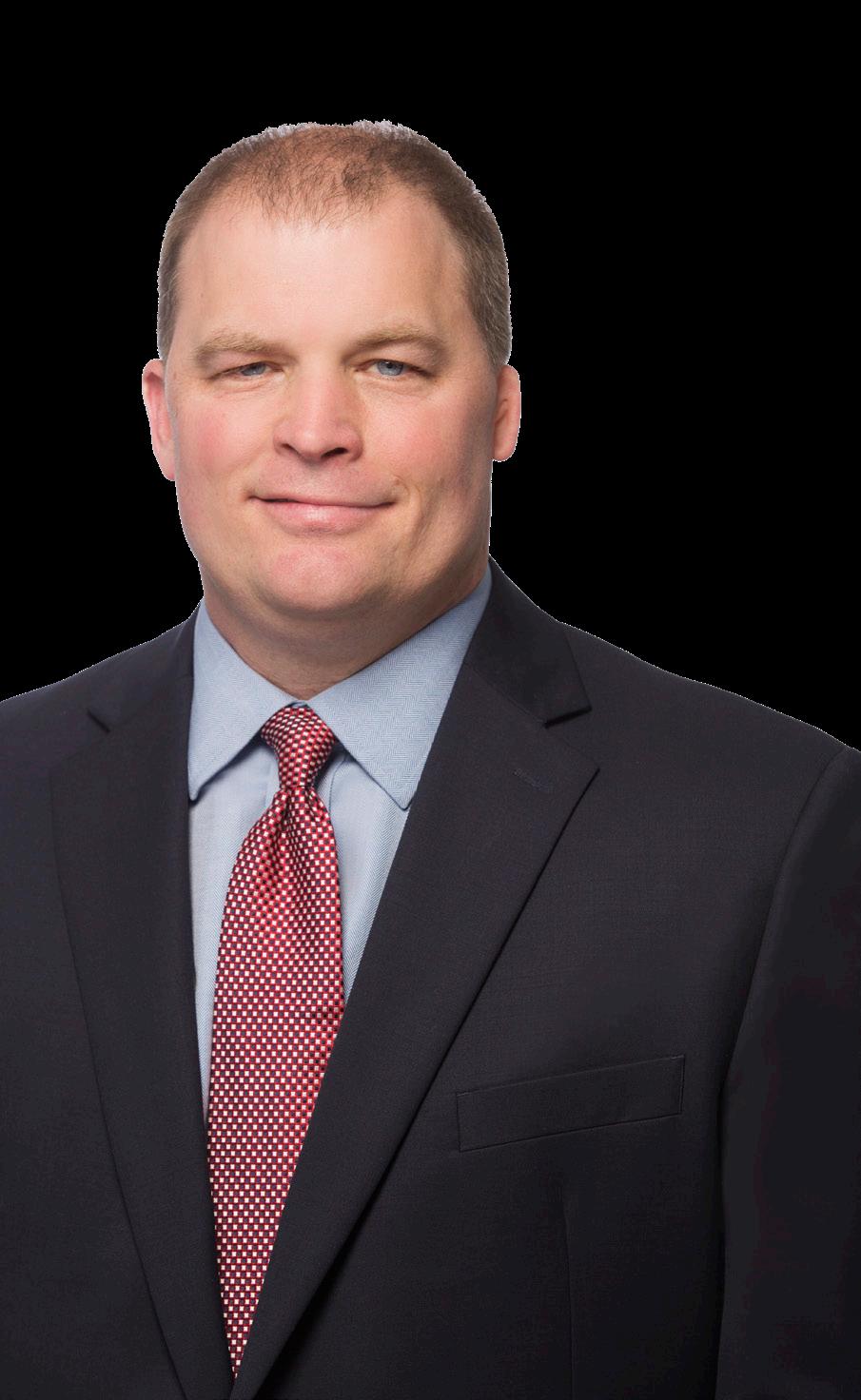



89 ARMONEYANDPOLITICS.COM SEPTEMBER 2023 Member FINRA & SIPC crewsfs.com



SIGNATURE.BANK BANCOSI.BANK 877.888.8550 833.888.8552 Give Yourself a Fresh Start it easy! Simply visit join.signature.bank to open a new account. En Banco Sí!, el 100% de nuestro personal es bilingüe en español e inglés.
Careers often hit a sweet spot a decade or two down a certain path. You’re settled in, comfortable, feel as though you’ve mastered your craft… But you’ve got more, maybe even much more, to contribute.
Arkansas Money & Politics once again is recognizing those business leaders in Arkansas who’ve hit that sweet spot, who fill that gap between young bucks and a gold watch. Our list of Achievers in Their Forties shines a light on those professionals at a midpoint in their careers — who have achieved a certain amount of success — and are positioned for more.

Arkansas Surgical Hospital

Cultivating Culture the
By Mark Carter
For CEO Brian Fowler, the secret to the success of the Arkansas Surgical Hospital extends beyond the many accolades it has received for quality of care.
“It’s truly our culture of consistent accountability and human kindness that we have cultivated here at ASH. It resonates with both our patients and employees,” he said.
It’s a culture Fowler has worked to cultivate since joining ASH as CFO in 2016. He was promoted to COO after just six months and was named CEO in January 2020 — not bad for an accountant who never envisioned himself in health care administration.
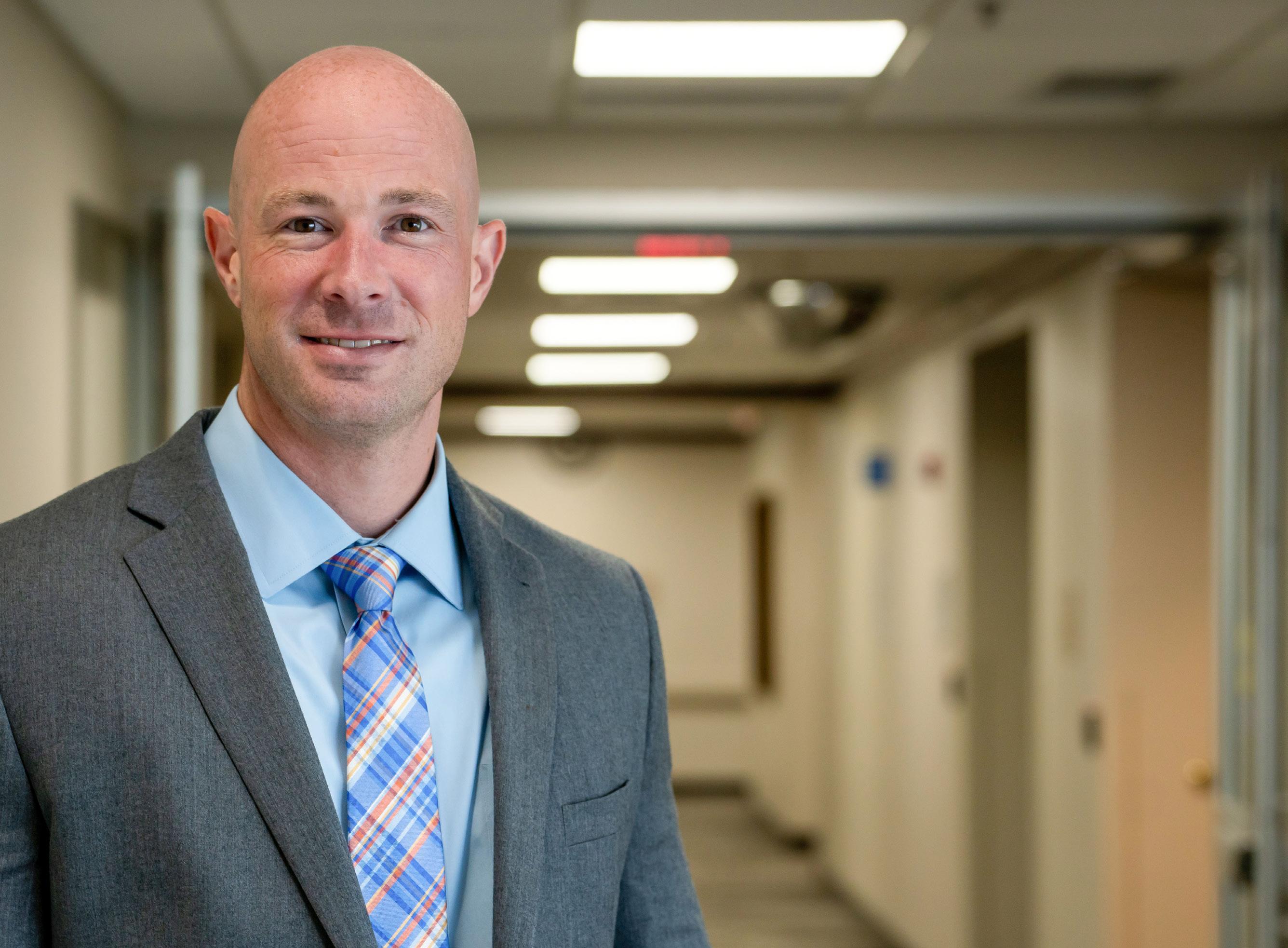
A Springdale native, Fowler graduated with an accounting degree from Arkansas State University in 2004 and earned his MBA from the Walton Business College at
the University of Arkansas the following year. He handled public accounting for health care organizations at BKD in Little Rock before moving on to work directly for health care institutions in the area and landing at ASH.
He is a fellow of the Healthcare Financial Management Association, for which he served as president from 2016 to 2017. At each stop, Fowler’s approach has been the same one reflected at ASH.
“We hear every day from patients about how positive their experience was at ASH and are asked frequently how everyone in the building can be so nice,” he said. “Even on social media, a platform that is notorious for generating negative comments for hospitals, we have an overwhelming number of comments from patients who are thankful for their care at ASH. Creating and maintaining
92 ARMONEYANDPOLITICS.COM SEPTEMBER 2023
Brian Fowler,
this culture involves every physician and employee in the hospital.”
Fowler stressed that setting expectations up front has been key.
“A team member may have come from another hospital where things are done differently. So we start discussing ‘ASH culture’ and care and communication expectations as early as during the interview process,” he said. “Culture training is intended to be continuous and not just a one-time event. We encourage the things that make us unique to be talked about regularly so that it’s always at the forefront of what we do and how we think. Many of those things are simple — like acknowledging someone when you pass them in the hallway instead of staring down at your phone — but it makes a difference that is felt by everyone who comes to our hospital.”
The foundation established by the ASH corporate culture has enabled the institution to weather what’s been a volatile few years in the health care industry. Fowler said many of the challenges he faces at ASH are no different than those faced at other hospitals — the shortage of certified health care workers and payor reimbursement chief among them.
“Nurses make most of the headlines related to staff shortages but scrub techs, CRNAs, radiology techs, patient care techs, lab techs and other support staff are critical to delivering patient care and providing a safe and efficient environment,” he said. “Payor reimbursement is also a huge problem. For the service lines we provide, we are the best at what we do but are paid less than almost every other hospital in the state for doing it.”
Fowler said that ASH performs twice as many total joint procedures as any other institution in Arkansas, its surgeons and staff consistently rank in the top 5 percent in the nation for patient experience, and its efficiencies drive down overall cost for patients.
“Yet we are reimbursed, at best, 50 to 70 percent of that of larger health care systems. That large of a discrepancy is a huge challenge for us.”
Running a physician-owned hospital
indeed comes with its own unique set of challenges.
“I read an article recently that said 75 percent of physicians today are employed by hospitals, health systems, payors and private equity. So our model is unique,” he said. “The surgeons that have ownership in ASH own and manage their own independent clinics in the community. They are small business owners and therefore must attract and retain patients to survive. This requires a high level of attention to detail so that patients not only receive the best care, but they have the best experience in the process. These surgeons have that same expectation for when the patient and family leave their clinics and walk into our hospital.”
Those expectations have led to high standards, and Fowler is quick to note that it’s patients and their families who benefit. ASH reports infection rates of 0.3 percent, compared to the national average of 3 percent. All its nurses are All Advanced Cardiac Life Support (ACLS) certified and scheduled to allow more time with their patients; and ASH’s facility in North Little Rock is equipped with 13 state-of-the-art operating rooms and 41 private patient suites that include separate spaces for family members.
Fowler credits great mentors and bosses with helping him advance up the health care ladder. He said they’ve challenged him to seek growth opportunities and placed him in positions to grow, even when those situations weren’t easy. While he’s not directly involved in patient care, Fowler said he learns most from speaking with staff members who are.
“A leader must validate what they believe to be occurring within their organi-
zation and what better way to do this than engage personally with staff performing the work and with patients receiving the care?” he said.
With the pandemic mostly in the rearview mirror, Fowler sees the regulatory environment as a next big hurdle, but like other physician-owned hospitals, ASH focuses only on what it can control.
“We’ve been talking about moving to a pay for quality system for over a decade, but the challenge is defining/standardizing what quality is,” he said. “Quality is different to everyone, so trying to put a price tag around it is hard. Meanwhile, all of the changes are somewhat dictated to us by payers and Medicare to some degree. We feel we can’t always impact those changes.
“But at ASH, we know the things that are important to our patients because we talk to them and listen to their preferences and needs. We’re constantly trying to better our care through things they tell us are important. Those are the things we can control. Regardless of how markets change, if you continue to provide a consistent, quality product with teams that can adapt, you can survive.”
Fowler never regretted trading in his accountant’s notepad. No organization can grow or improve if its employees aren’t seeking to do so.
“I think it’s important to always keep your eyes open and never shy away from opportunities,” Fowler said. “Constantly seek to better understand how things function and work. Always try to learn ‘the why’ behind everything you do, and don’t be afraid to ask dumb questions. This is how you become efficient, stay relevant and enhance an organization, and not just your silo.”
93 ARMONEYANDPOLITICS.COM SEPTEMBER 2023
“It’s truly our culture of consistent accountability and human kindness that we have cultivated here at ASH. It resonates with both our patients and employees.”
Sound Money,

Sound Mind
By Mak Millard
When Victor Werley left Lyon College in 2003 with a psychology degree in hand, he didn’t necessarily have financial advising at the top of his postcollege careers list. Still, he was confident that his time in Batesville had set the stage for success in whichever field he might choose.
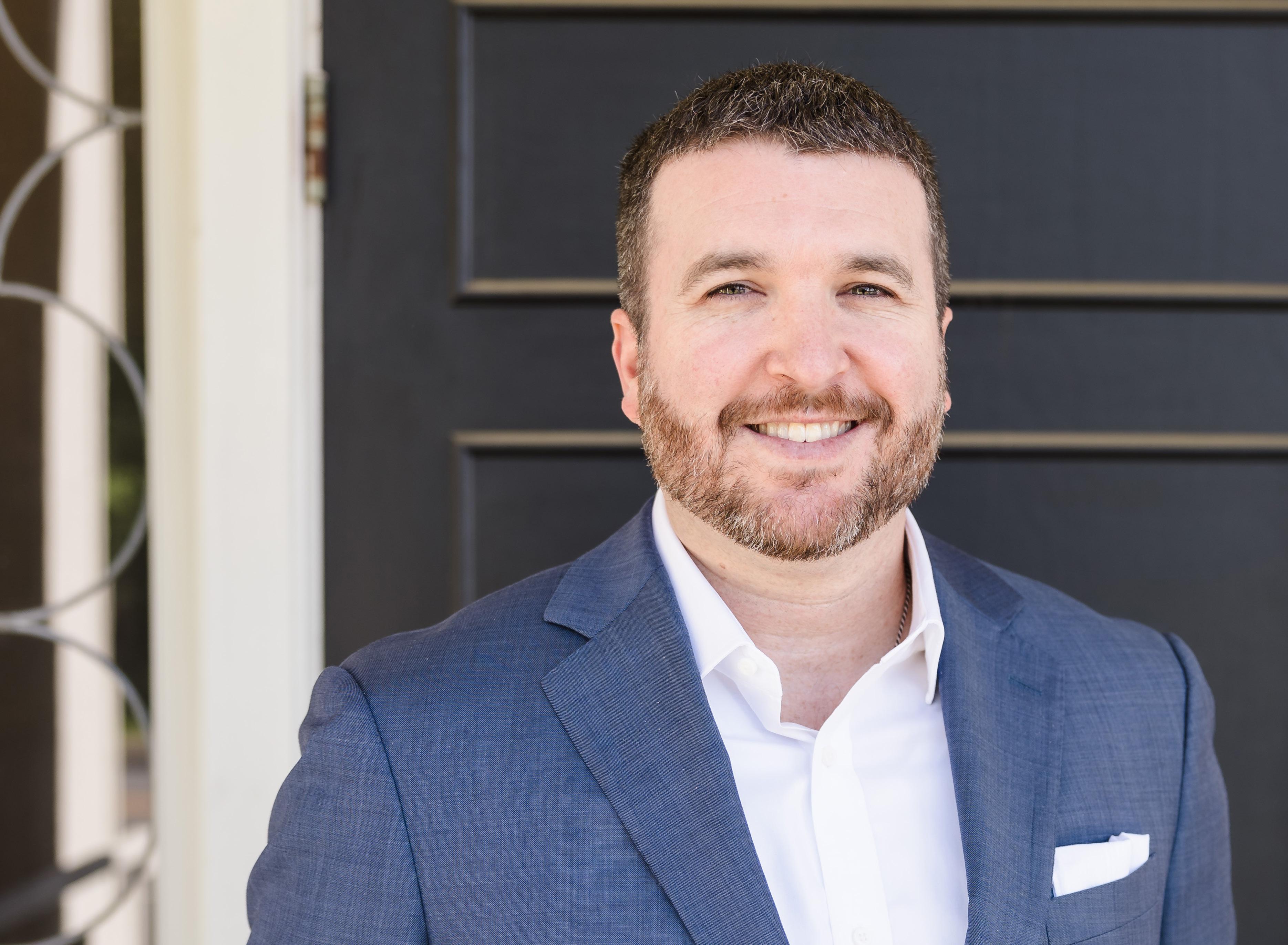
“The beauty of a liberal arts education is in how well-rounded it is,” Werley said. “I have a foundation in everything from writing to economics, and most importantly, I learned the value of connecting with people in a genuine way.”
Werley landed a job in banking after leaving Lyon. It was destined to be a short foray, however, as he soon discovered where his real passions lay.
“I realized that I have an entrepre-
neurial streak as wide as the Mississippi River, so I left the bank at 23 years old and started my practice,” he said. “It was a huge risk, and I spent a lot of sleepless and prayerful nights, but it worked out well.”
Twenty years after striking out on his own to found financial consulting firm Pinnacle Advisors, Werley is an accomplished name in the world of wealth management. In addition to his certified financial planner credentials, he’s also a chartered financial consultant, a certified divorce financial analyst, a certified valuation analyst, a master analyst in financial forensics and a certified fraud examiner.
The certifications certainly speak to Werley’s financial prowess, but his background in psychology continues to play a critical role in his work, as well.
“I think that a lot of finance people are really good with the spreadsheets, but they can sometimes overlook the fact that, ultimately, it all comes down to people,” he said. “If you understand the people, then working the numbers tends to be a lot easier.”
Starting a business from the ground up is difficult at any age,
94 ARMONEYANDPOLITICS.COM SEPTEMBER 2023
Victor Werley, Pinnacle Advisors
let alone at 23. Werley has learned a lot since Pinnacle Advisors first opened its doors, and his success has been a mixture of good work and good fortune.
“I was lucky to get a degree from Lyon College that prepared me to do a variety of different things, and I was even luckier to have some great mentors in the finance space who helped shape my practice into what it is today,” Werley said. “I struggled early in my career with being uncomfortable in delegating responsibility; I still fight those tendencies today. My only saving grace is that I have a team of incredibly talented people who are, frankly, better at most things than I am. I have learned the hard way that I have to focus on what I am good at and let them do their thing.”
Werley and the team at Pinnacle Advisors boast a combined 50 years of finance experience and providing analysis and advice on everything from personal finance and retirement to mergers, estates and insurance planning. Over the past 10 years, Werley has also found a love for business valuation and litigation consulting, two areas he wishes his practice had leaned into sooner.
With a wide range of specialties and clients, no two days at Pinnacle Advisors are the same. In a word, Werley describes the routine as “chaos.” Regardless of any hectic scheduling, though, he and wife Sarah are sure to make time in the mornings for a workout.
“[Exercise is] a passion that Sarah and I share, so it’s a wonderful bonding time for us,” Werley said. “From there, I am usually into my first meeting by 7:30 or 8, and it’s generally back-to-back meetings, calls or analysis work until 6 or 7. Some days, I’m in my office all day long, and others I’m running from meeting to meeting all over the state.”
Werley’s passion, hustle and downright stick-to-it-iveness are a good match for his chosen career path. They’re also vital skills to have in the face of worrying trends he sees taking shape in finance and other fields. While industry pressures seem to be pushing firms into pro-
viding a more transactional, pre-packaged product, Werley and his team work to avoid a one-size-fits-all approach with their clients.
“It is very tempting to believe that we can eventually rely on AI to provide us with advice on our medical, legal or financial care, but I don’t believe that you can effectively give that advice without the human element,” Werley said. “Analysis that comes from a place of understanding and connection can’t be packaged and turned into a digital prompt.
human element means he has mastered the art of turning a 30-minute meeting into an hour-and-a-half-long conversation. He relishes the chance for genuine connection, even when it’s at odds with his to-do list for the day. Though it might occasionally come at the expense of time management, Werley doesn’t regret the time spent building relationships.
Sadly, I think the trend will continue, and a lot of people will wind up getting advice that is not as good as it should be.”
In addition to maintaining the high level of personalization and quality his clients have come to expect, Werley sees Pinnacle Advisors on an “aggressive” growth path for the next few years. The goal is to cultivate growth — not only adding new team members but continuing to develop new skills in those already on board — to ensure the firm has the bandwidth for its expanding client base.
No matter what the future holds, Werley takes great pride in the impact he and his firm have on clients and the larger Arkansas economy. The unifying mission for every member of Pinnacle Advisors is “to continue to do our part in helping the financial ecosystem of our shared home,” Werley said.
“The nature of my practice allows me to literally meet new people every day and have an opportunity to be helpful to them,” he said. “The most rewarding times are seeing the light bulb moments when we can bring new ideas or paths to success that a client had never considered. Those are my favorite moments.”
Even a dream job isn’t without its challenges, however. Werley’s knack for the
“We are all surrounded by amazing people all the time, but we have these barriers that prevent us from just asking the basic questions,” he said. “If you can get even the smallest peek into a person’s hopes, dreams, anxieties and fears, you will have a much higher chance of doing something that will be truly impactful for them. If you don’t know them at all, the only lens you have to view the world is your own. There isn’t anything wrong with that, but you might miss out on some big win-win opportunities.”
For others looking to carve their own entrepreneurial path, Werley cannot stress preparation enough. Beyond his advice to “do your homework,” there is one more thing the budding business owner can’t forget.
“Ultimately, you have to take a leap of faith,” Werley said. “Get comfortable with being uncomfortable and realize that you’re in the business of taking care of people.”
Outside of his work with Pinnacle Advisors, Werley finds meaning in family and giving back. The father of two is the chair of the Lyon College Board of Trustees, and he sees a bright future ahead for his alma mater.
“Lyon has made waves recently with some of our upcoming graduate programs, and I am so proud to be part of a group of people who have come together to provide such an incredible educational environment,” he said. “My time at Lyon shaped so much of who I am today, and I want to make sure that future generations get the chance to have a similar experience. Education is so important, not just for what we learn in a classroom but for how it shapes us to be good citizens and good neighbors.”
95 ARMONEYANDPOLITICS.COM SEPTEMBER 2023
“If you can get even the smallest peek into a person’s hopes, dreams, anxieties and fears, you will have a much higher chance of doing something that will be truly impactful for them.”


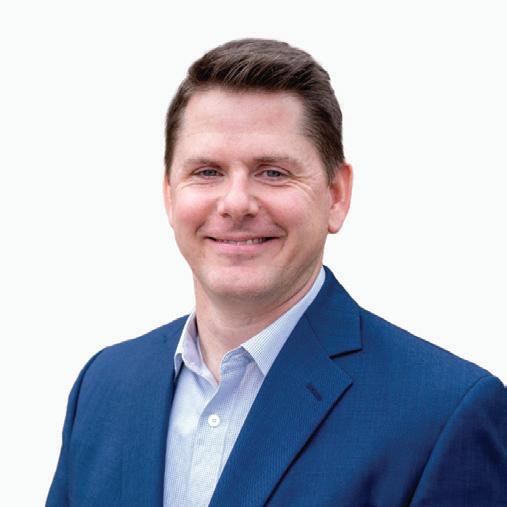

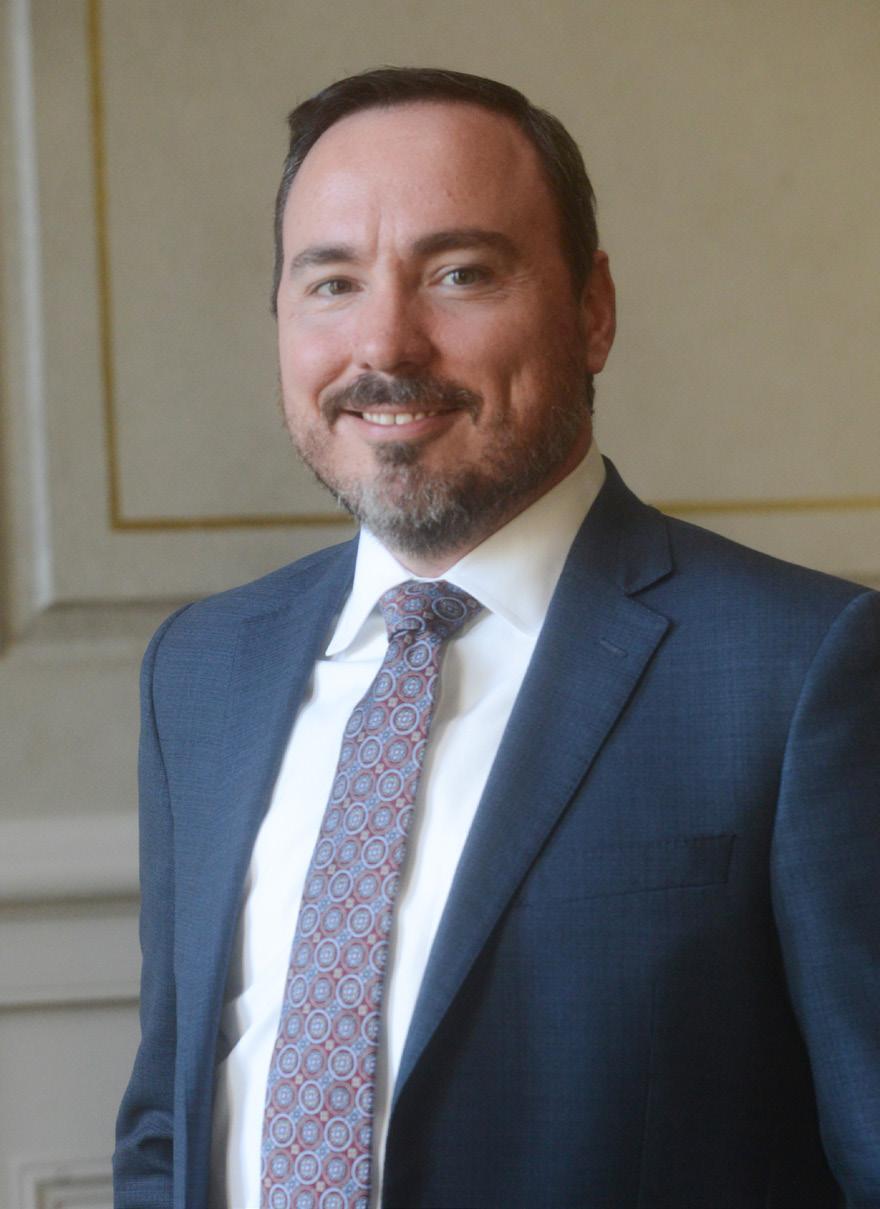
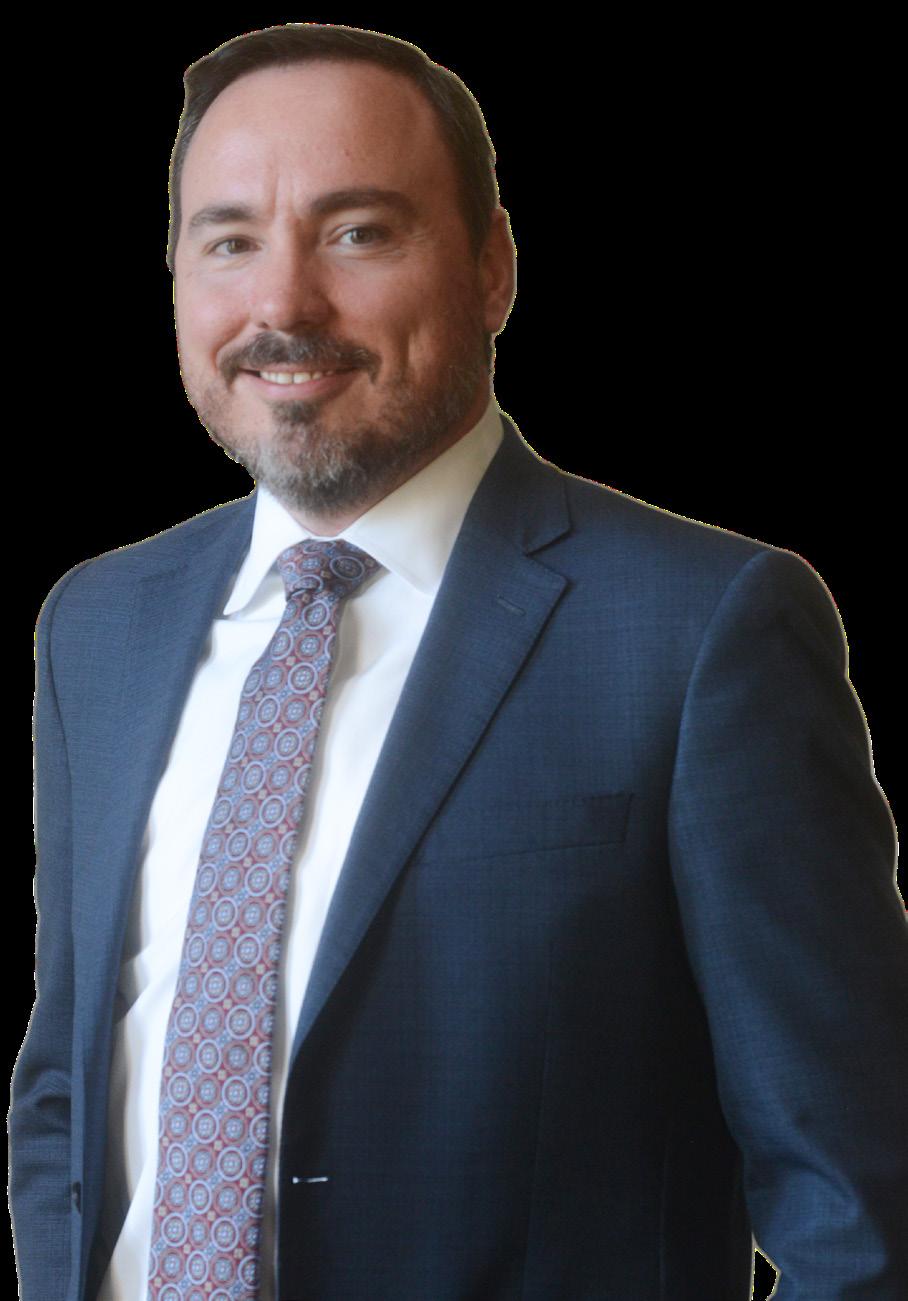
96 ARMONEYANDPOLITICS.COM SEPTEMBER 2023
Congratulations to THOMAS O’BANION on being named an Achiever in their 40s! FIRSTORION Government Relations | Public Affairs | Political Consulting | Digital Advocacy | Public Relations | Consumer Outreach Chase Dugger CONGRATULATIONS on being recognized among AMP’s “Achievers in their Forties.” 510 S. Pulaski St, Little Rock, AR 72201 jcdconsulting.net
Branding with

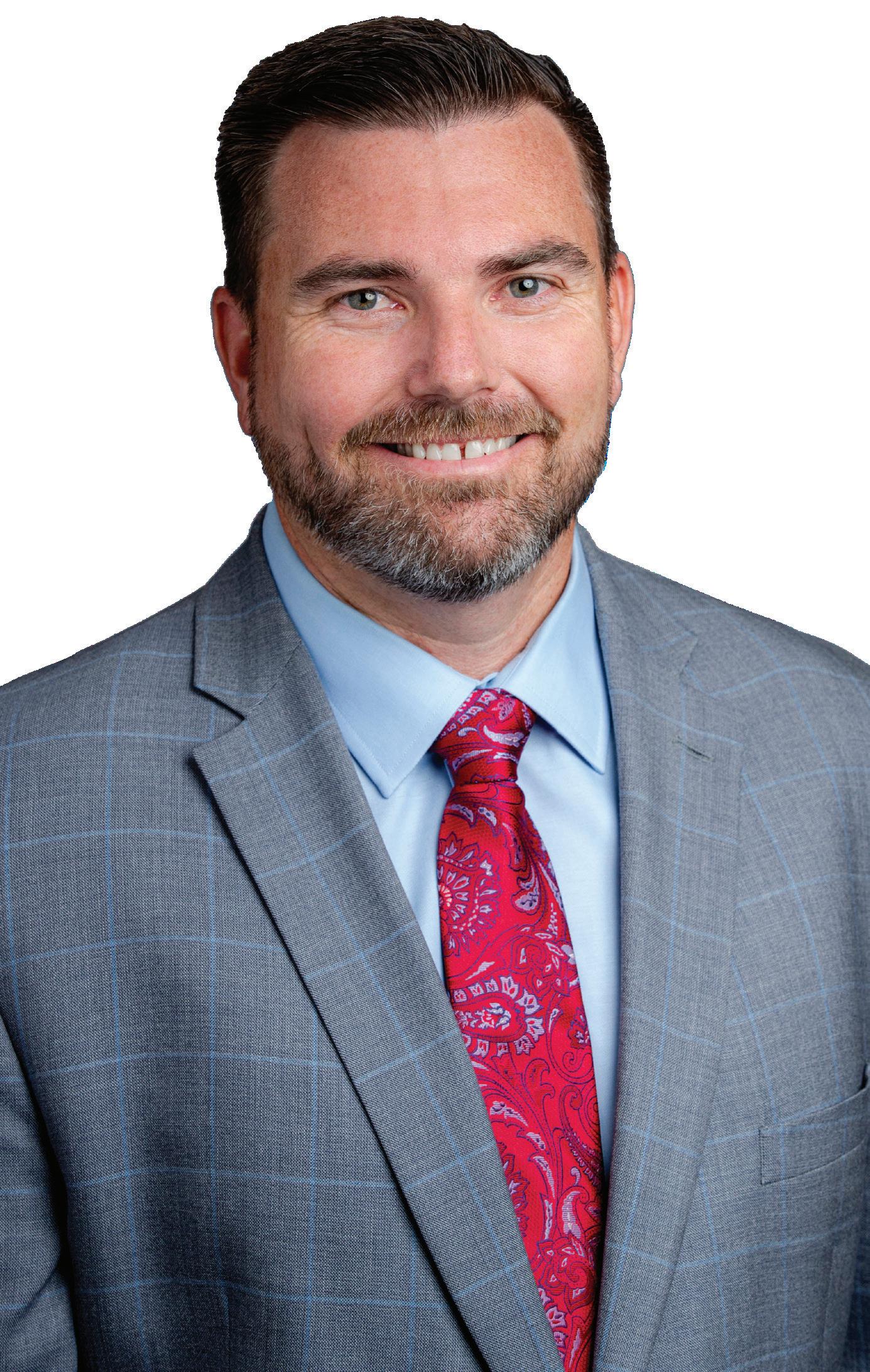
Kenya Davenport, Southern Bancorp
Yes,You Can
By Nichole Singleton
In January 2022, Kenya Davenport accepted a position with Southern Bancorp to become its new chief of staff and work alongside a CEO, Darrin Williams, who had become a prominent mentor in her life, and create a platform for equality within the financial landscape.
“We’ve just been vigorously working every day to put our stamp on finally resolving the racial wealth gap,” Davenport said. “That’s our task every day, and we are fighting to make it a more level playing field for everyone in financial services and the financial industry.”
The Memphis native is approaching two years with Southern Bancorp, but her drive to blaze a path of lasting impact has been burning for more than a decade. Davenport’s journey to Southern Bancorp began in her early 20s as a public-school teacher in Memphis.
“[Teaching] ended up being a hugely rewarding experience, but the circumstances of public schools at that time was something that I felt I couldn’t have a broad enough impact on, being a classroom teacher [or] as a principal [or] being at the district level,” Davenport said.
Davenport’s decision to pursue a space where she could have a broader impact led her to Texas and Edward Jones, where she spent the next year as a financial advisor in Houston.
“The most interesting thing about that job was
studying the law,” Davenport said. “It was a completely different world than what I had grown up with or what I had known, and I was just enthralled by what I was learning and what I was experiencing.”
Eventually, she made it to UA Little Rock’s William H. Bowen School of Law, despite having no real connection to the capital city. By 2011, Davenport was set to graduate with her law degree during a time when the economic crisis of 2008 finally reached the legal profession. The norm before 2011 saw local firms hire their top law clerks post-graduation as associates. In Davenport’s case, these firms had cut their hiring number in half to brace for the economic impact, leaving her without an offer. Rather than accepting this as a setback, she created opportunity by working the network she had built throughout school.
She was referred by a mentor at the Little Rock law firm of Mitchell, Williams, Selig, Gates & Woodyard to Williams, a firm partner and notable figure in Arkansas business, law and politics. Through this connection, Davenport found work and even launched her own firm. Ultimately, she reconnected
“It’s really about being fortunate enough to be standing at a door, and somebody is willing to open it, and I have enough courage to walk through it. I think at every inflection point in my life, that is what happened.”
with Williams, who offered her the opportunity to be his chief of staff.
Right away, Davenport was “sold on the story of Southern [Bancorp]” and felt this was work she had to do. The broader impact that Davenport had been longing for was now within reach.
“It’s really about being fortunate enough to be standing at a door, and somebody is willing to open it, and I have enough courage to walk through it. I think at every inflection point in my life, that is what happened,” Davenport said.
Davenport may have had an advantage when applying for a business loan with her connection to the CEO of a bank, but she didn’t know anything about the business side and had to figure it out once she went to work for Williams.

“The ambition [to do more] was sparked from coming where I come from. We don’t know any of this,” Davenport said. “There’s a whole side of life in economics that [African Americans] don’t participate in. People in my neighborhood who come from where I come from in south Memphis, ‘we didn’t get the memo.’”
Southern Bancorp is doing its part to make sure everyone “gets the memo” with its minority business empowerment program, which provides technical assistance tailor-made to one’s business. In Davenport’s case with her law firm, she would have been brought in to speak to a CPA, a marketing professional, a human resource professional and others.
Throughout Davenport’s career, she has embraced opportunity, opened new doors when others were shut and refused to let insecurities prevent her chosen mission — to do more.
“Fear has always been one of those things that can hinder or limit you, so recognizing fear is the first step,” Davenport said. “Once I recognize that I’m afraid of something, I make a conscious decision to do exactly that because if I’m afraid, that must be what I need to do.”
Davenport’s advice for anyone with a fire burning within them to elevate themselves through higher education, take a shot at a new career path or even go out on their own by opening a business is simple: “Yes, you can.”
99 ARMONEYANDPOLITICS.COM SEPTEMBER 2023
Blake Jackson, Monde Group
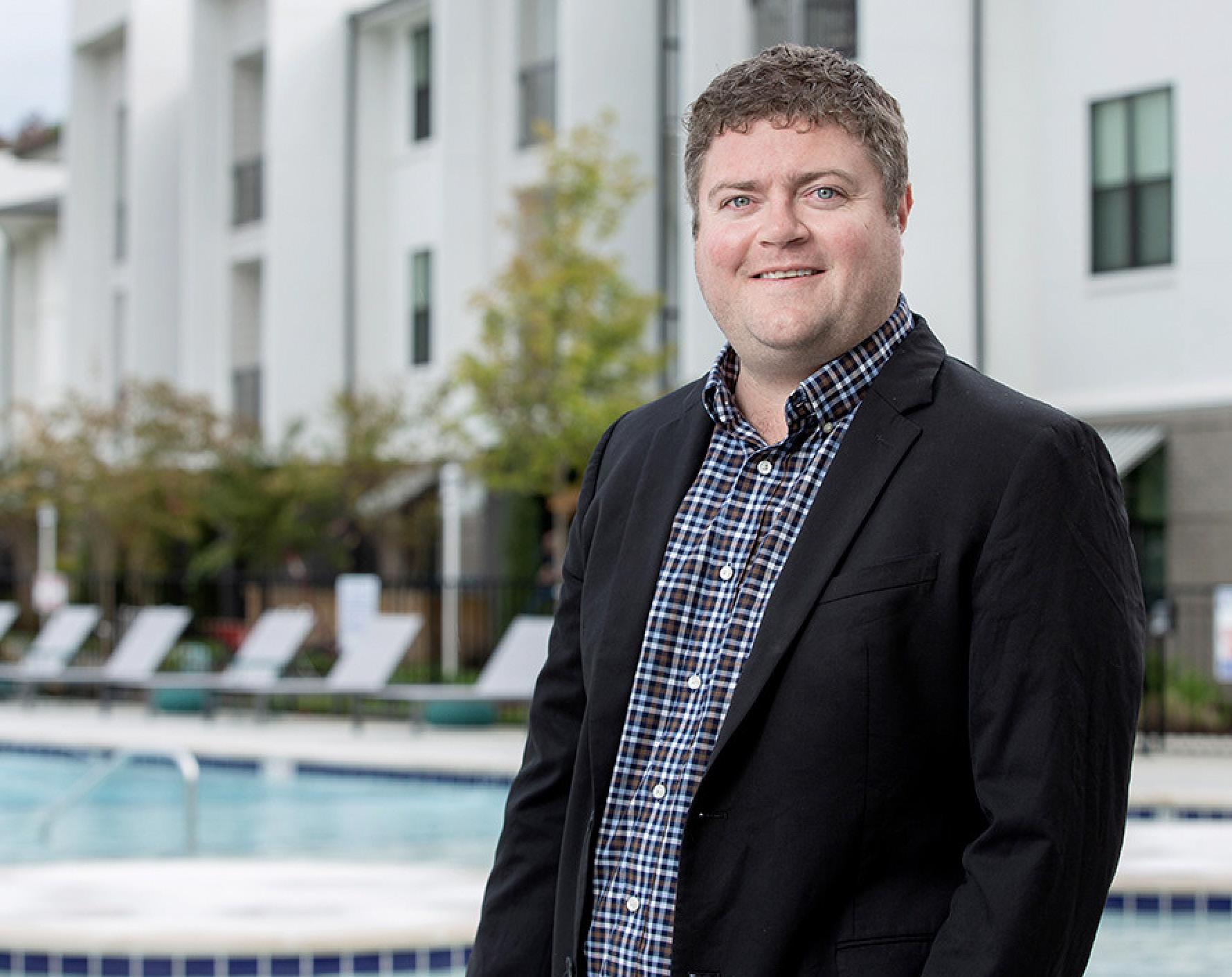
Realizing Vision A
By KD Reep
Blake Jackson, founder and managing partner of Monde Group, has made Little Rock his home his entire life. He attended the Anthony School and Catholic High before moving to Fayetteville and attending the Fay Jones School of Architecture at the University of Arkansas, where he graduated summa cum laude. As an honors graduate, he participated in multiple study-abroad programs, including Rome, Italy and Mexico City.
From this international experience and others, Jackson has made culture and design innovations from abroad part of his unique brands. Today, he lives in the Heights neighborhood of Little Rock in a house built in 1941, on which he recently completed a major
renovation and expansion.
“I also have a condo in River Market Tower I designed when the building was originally built,” he said. “I split my time between the two places.”
Blake combined his love of Little Rock with his passion for architecture and building, which led him to form his own business, Monde Group.
“My father is an architect, and growing up around it, I never really considered doing anything else. It’s a lot of fun and a dream to make it a business,” he said. “Architects can predict the future in the sense we know what something is going to look like and the experiences that go along with it long before it is even built. That’s really cool to me, and at an early age, my father, James Jackson, taught me that to have control of your life,
100 ARMONEYANDPOLITICS.COM SEPTEMBER 2023
you must start your own company.
“So after interning at a small design firm, AMR, where I worked on River Market projects, then working at Cromwell, where I assisted with large institutional projects, I started Monde Group with a focus on multi-family housing, because it’s a really great business to be in,” he explained. “Housing in general is a great business to be in because everyone needs it. My niche was to build apartment communities like resorts I have stayed in around the world.”
He chose the word “monde” to name his company because it is a French word meaning people, society and world. “In every project, we operate at these levels of humanity, helping people make society better to positively impact our world,” he said. “We do this through imagination, design and social planning as we build responsibly and create extraordinary places. The company motto is, ‘Creator of place, sponsor of culture, inspired by you.’”
As the founder and managing partner at Monde Group, Jackson envisioned the firm as a multi-disciplinary development company specializing in high-quality real estate, architectural design, marketing, sales and management. The firm’s focus, he said, is to provide people with an inspiring environment to enhance society and make the world a better place. In just 10 years since launching Monde Group, Jackson has completed and sold $67.4 million in resort multifamily communities. This includes the 272 finely designed apartment homes on the northern bank of the Arkansas River in Maumelle called the Villa at River Pointe and the 92-unit first phase of the Esplanade District.
Additionally, Jackson recently managed the complete renovation, refinancing and sale of a 240-unit development built nearly 40 years ago. Rebranded as the Canopy Apartments, he sold the development and began an investment portfolio with his company, Aspen Property Acquisitions. These customized condominiums across the United States include property in Little Rock and Hot Springs as well as Aspen, Col., and Perdido Key, Fla.
Looking forward, Jackson plans to continue growing his company’s real es-
tate portfolio. Currently, he is developing a multi-phase mixed-use community on 34 acres in North Little Rock called the Sylvana. He is also designing mixed-use offerings, including single-family homes, retail and hospitality components. He plans to continue his journey of playing a large role in the community and work towards making significant contributions in Arkansas, Colorado and Florida.
“I plan to continue growing my personal portfolio out of state,” Jackson said. “I think people, regardless of what’s going on in the world, will continue to snow ski and play at the beach. I like those markets.”
In Arkansas, however, his favorite project was the Esplanade. “That was a project where I really got to do everything I wanted to do,” he said. “The Villa at River Pointe was where I just began to cut my teeth in development, so by the time I started designing the Esplanade, I knew what it should and needed to be, and it paid off.”
Today, he plans to continue developing those 34 acres in North Little Rock. “We were not planning on selling the first phase, but we received an offer we couldn’t refuse and closed that deal in 2022,” he said. “I believe it was a record price-per-unit for Arkansas, and I think anyone who sees it in person will understand why. It is really special, and it was hard to let it go, but that created funding for everything else since then.”
Leading your own business is not for the faint of heart, but Jackson enjoys being present and participating in all aspects of a project. He even finds time for his other projects, which include two films and a podcast through his Ghosthorn Productions. He’s also writing a book chronicling his time as a developer.
“I like being able to decide where to build, what to build, how it should look. I also like deciding all the details and the art that should hang on the wall,” Jackson said. “My passion is architecture, but I love obtaining financing, working with engineers, putting marketing plans together. It’s fun to do a little of everything when owning your own business. Putting pitch decks together for investors, city councils and banks is one of my favorite
parts of the process.
“One thing I am very proud of is I am undefeated in getting approvals for property entitlements, everything I have ever asked a city for, and currently, I have worked with three separate municipalities for which I have been granted permission. I think that speaks to me being a developer and architect who truly cares about what the final product will be and will look like. I can assure you, I could have built my projects much cheaper, but I understand these buildings will last much longer than I will, and even though I may not own all of them, they will remain part of my legacy.”
101 ARMONEYANDPOLITICS.COM SEPTEMBER 2023
“My passion is architecture, but I love obtaining financing, working with engineers, putting marketing plans together. It’s fun to do a little of everything when owning your own business. Putting pitch decks together for investors, city councils and banks is one of my favorite parts of the process.”
Death and Taxes: What life insurance can
In estate planning, the stakes are quite literally life and death. Contemplating what happens to your worldly possessions after death is not the most pleasant thought experiment, but failing to do so could cause a world of unnecessary stress, strife and paperwork for the people who are left behind. Whether one is a young professional laying financial foundations or an industry veteran eyeing retirement, men and women have everything to gain from settling their affairs ASAP — and everything to lose from leaving it late.
“Estate planning is not just for the wealthy. It is a process that every adult should undertake,” said Victor Werley, certified financial planner and founder of the financial consulting firm Pinnacle Advisors. “The fact is that we are all going to die, and someone will have to address your estate, no matter how large or small it is. For many people, the process of estate planning is less focused on the dispensation of your assets than it is focused on creating proper end-of-life plans and proper powers of attorney for your financial and medical affairs. This is something that we all must face, even if we don’t have a huge estate.”
Life insurance can be a vital component of an effective estate plan, thanks to its multiple strategic uses, from covering final expenses and clearing remaining debts to making up for lost income. While the specific rationale behind the life insurance policy will depend on an individual’s unique circumstances, “life insurance should always be considered as a part of an estate plan,” Werley said.
“I have seen a lot of estate plans that contain so many diverse assets that the life insurance is used to protect the plan, but it isn’t the primary wealth driver. Other times, the life insurance can be 90 percent or more of the overall estate.”
In the case of larger estates, an effective life insurance policy can also be a helpful tool for addressing the resulting tax burden.
“When properly designed, a life insurance policy provides the necessary liquidity to pay any estate taxes that may be due at the death of the insured,” said Jason Prather, JD, LLM, managing principal at wealth management firm Legacy Capital Group. “This helps prevent having to liquidate estate assets, or leverage them, in order to generate the cash required to pay the tax.”
For those whose wealth is concentrated in valuable assets as opposed to cash, the lack of an insurance policy can force surviving loved ones into the compromising position of having to
do for your estate plan
sell off family heirlooms or other treasured items to raise money. Depending on the market and the timing of the death in question, families also run the risk of needing to sell items for less than they’re actually worth.
Life insurance can also be useful for equalizing an estate between multiple children, as well, Prather added. If some children work in the family business while others do not or if the children have conflicting ideas of what to do with an inherited property, the life insurance payout can help each child receive their fair value from the estate and prevent disputes over how exactly to divide the assets.
There are many different kinds of policies on the market, and some are better suited to estate planning than others. The items in the estate and how they can be expected to appreciate or depreciate over time will dictate the best policy options.
“Having the wrong type of insurance can be almost as devastating as not having any when you need it,” Werley said. “In some cases, with a declining debt combined with growing assets, the correct answer could be a term policy that falls off at the appropriate time. Other times, there can be taxes or other growing liabilities associated with the estate which would necessitate using a permanent life insurance solution to ensure a complete plan.”
In general, a permanent need for coverage should be addressed with a permanent policy, such as whole life or universal life, while temporary coverage needs can often be satisfied with the appropriate term policy. The type of permanent policy used will depend on the specifics of the estate plan itself, Prather said.
“It may be an individual policy insuring one person, or it may be best to use a policy that insures two people, such as a husband and wife together. Many estate plans, when properly implemented, will allow for the delay of any estate taxes that may be due until the death of the second spouse. In that circumstance, a second-to-die or survivorship policy can be a very good option.”
Other crucial considerations when folding a life insurance policy into an estate plan are the ownership and beneficiary details. Choices made at this stage can have major consequences when it comes time to implement the plan.
“There are three parties involved in a life insurance policy: the insured, the owner and the beneficiary. The dynamics be-
102 ARMONEYANDPOLITICS.COM SEPTEMBER 2023 DOLLARS AND SENSE
SPONSORED CONTENT
tween these three parties can be particularly impactful,” Werley said. “This is an area that has to be discussed and reassessed regularly. The owner and beneficiary of a policy can be changed once it is in force, but the insured generally cannot, so deciding which life to insure should be done with care.”
If using a life insurance policy as a buffer against estate taxes or other expenses, one should carefully consider exactly how the policy itself is handled, as different setups can trigger different tax repercussions.
“When using a life insurance policy for estate planning, the insured should consider having a trust own the policy,” Prather said. “Using an irrevocable life insurance trust, or an ILIT as it is commonly called, will allow for the life insurance proceeds to pass outside of the insured’s taxable estate and not be added back to the value of the estate. This also can help protect the insurance proceeds, and any other assets in the trust, from any claims from creditors of the trust beneficiaries. These trusts can be created to have very long durations to help maintain a family’s wealth from generation to generation.”
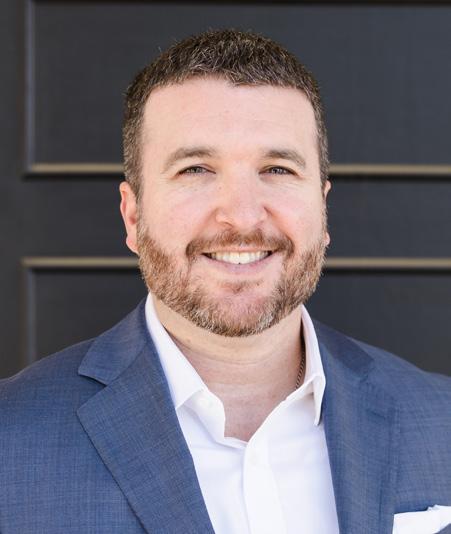
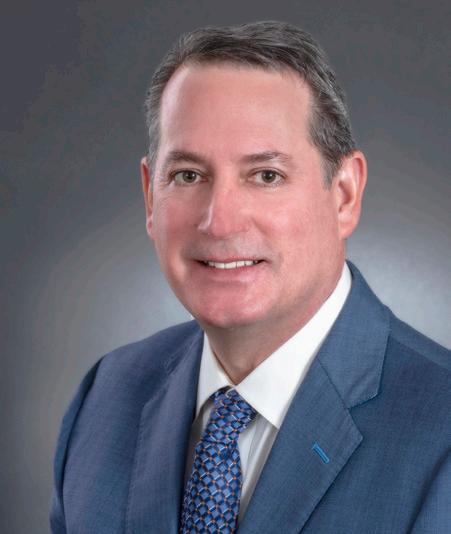
An irrevocable trust is usually a good idea when dealing with a large amount of life insurance, Prather added, though the best course of action will still depend on the individual.
“In some situations, creating a trust may not be practical or necessary,” he said. “In those situations, we just want to be sure that the insured understands that the proceeds will be paid directly to the policy beneficiary. We also want to make sure that none of the beneficiaries named on a policy are minors, as that would create the need for additional legal procedures.”
Regardless of the nuts and bolts of the policy, both Werley and Prather urged starting the process early to get ahead of any complications.
“Oftentimes, using life insurance as a risk mitigation strategy will come before the establishment of the long-term estate plan,” Werley said. “The key, therefore, is to make sure that the initial establishment of life insurance is done with the future in mind. Too often, life insurance is sourced to solve an immediate short-term problem, and it’s not given the flexibility to be able to pivot as life evolves.”
While it is beneficial to put a plan in place as soon as possible, life insurance policies are not something to set on a shelf and forget. Just as individuals’ wealth will fluctuate over the course of their lives, so too can the policies that make the most sense for an estate plan.
“Unfortunately, many life insurance policies are sold, and then they are not ever looked at again. This is the fault of the person that sold the policy,” Prather said. “Permanent life insurance policies are frequently based upon certain assumptions regarding premium payments and the timing of those payments, as well as the interest rate or dividend rate being credited to the policy. Any variation in these assumptions can have a negative
and potentially very costly impact on a policy, possibly even causing a policy to fail.
“We review all the policies we have sold each year to make sure they remain on track, and we can adjust if needed. We also review many policies that we did not sell if requested to do so. Every person that has purchased a permanent life insurance policy should have that policy reviewed by an insurance professional to make sure that it is not in some type of distress. It is also important to review the policy and make sure that it is still the best type of policy for that individual’s circumstances.”
Since the insured won’t be around after the fact to clear up any uncertainties, it pays to have professionals involved on the front end who can highlight areas of concern and aid in tying up loose ends.
“Any estate planning conversation will center around three things: the people involved, the assets involved and the desired outcome,” Werley said. “You should have a clear picture of what you want to have happen when you die. Do you want to distribute assets to relatives unequally? Do you want to give to charity? Do you want any specific assets to be given special purpose? These types of questions should be thought through before you sit down with an estate planner, even if you don’t know the specific mechanisms to make them happen.”
Prather recommended working with an insurance advisor who has access to and works with many different carriers. This increases the chances of finding the best possible policy for one’s needs, since different carriers will vary widely in offerings and pricing. Estate planning is designed to provide peace of mind; any financial advisor worth the time and money will work to ensure the best possible outcome for everyone involved.
“We manage and service in excess of $2.5 billion of in-force life insurance for our clients,” Prather said. “I truly love the industry and believe in what life insurance provides for our clients and their families. I have seen many times how important and powerful an asset life insurance is to a family, whether that is a very wealthy family or not.”
Bottom line: You can’t take it with you, so do everyone a favor and figure out who’ll take it from you.
103 ARMONEYANDPOLITICS.COM SEPTEMBER 2023
SPONSORED CONTENT
Jason Prather
Victor Werley

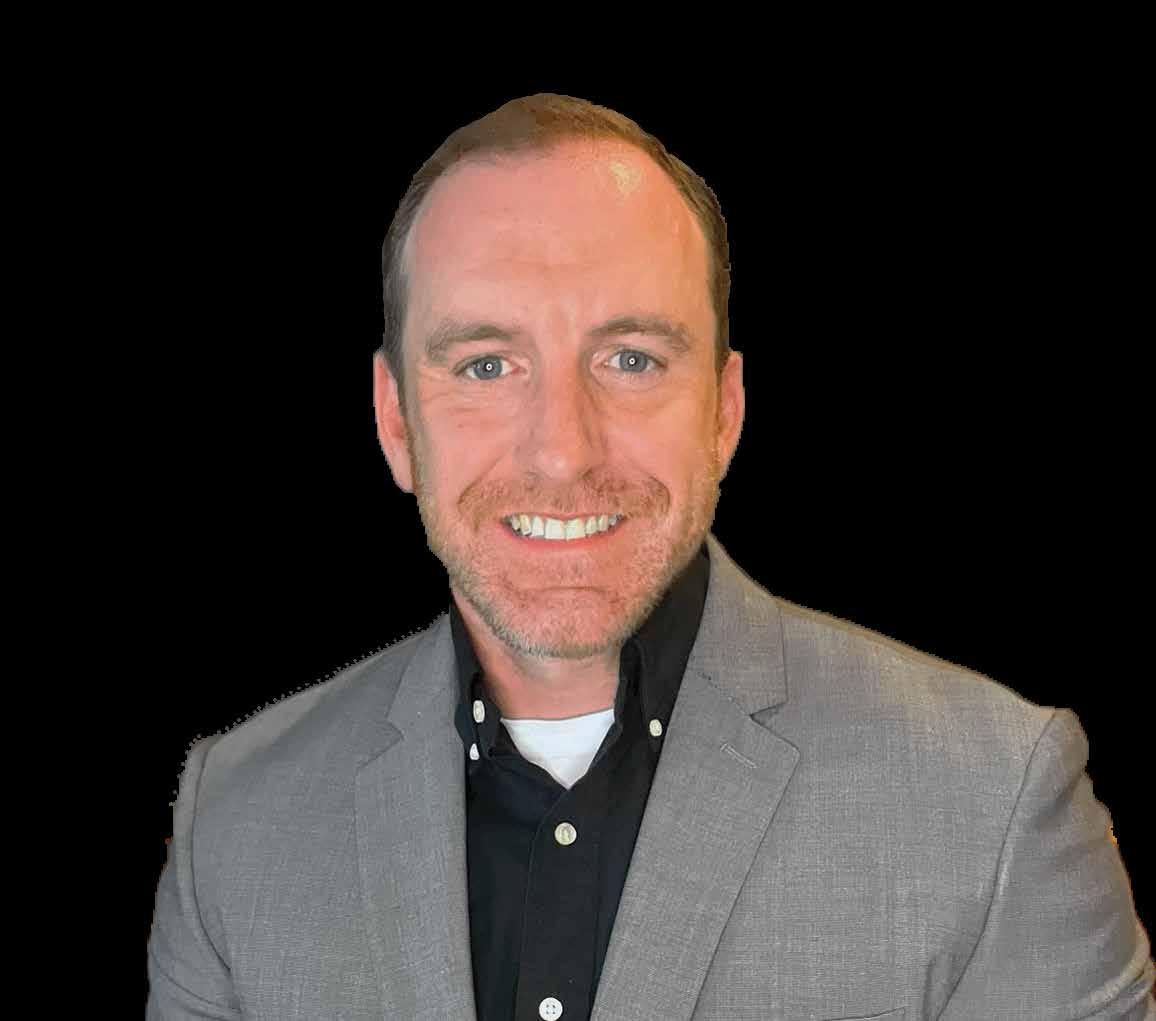

104 ARMONEYANDPOLITICS.COM SEPTEMBER 2023 Here at Lyon College, students don’t just earn a degree. They don’t just have the college experience. They find their why. Small class sizes, dedicated staff and faculty, and our mission to nourish the whole person and not just the student is what makes Lyon different. Our liberal arts education creates a fuller, richer understanding of your community and yourself, while also preparing you for your future. Take the first step to finding your why at lyon.edu 100% Dental school acceptance rate over the last 7 years–almost double the national average of 53.5%* 11:1 student-to-faculty ratio Lyon College has been helping students find their why for 150 years. lyon.edu • 1-800-423-2542 Find Your Why Campus Mural by Lyon College Alumnus Daisy Hall, '22 2300 Highland Rd., Batesville, AR *2023 Inspira Advantage ONLY pet-friendly college in Arkansas 91% of grads are employed or in grad school within six months of graduation
Susan Altrui Director, Little Rock Zoo
Susan Altrui is director of the Little Rock Zoo, an organization committed to inspiring people to value and conserve the natural world. As director, Altrui guides the care of more than 400 animals, ensures the zoo maintains its accreditation with the Association of Zoos and Aquariums and directs the overall strategic vision of the organization. Under her leadership, the Little Rock Zoo has more than doubled its annual revenue earnings and tripled its fundraising efforts with the Arkansas Zoological Foundation, a nonprofit that raises funds for the growth and development of the zoo. She volunteers on the board of Keep Little Rock Beautiful and former board chair of the Hot Springs Documentary Film Festival. She also serves on the boards of the Little Rock Police Foundation and Wildwood Park for the Arts and is a member of the Little Rock Rotary Club and the Little Rock Civitan Club.
Scott Anderson Chief External Affairs Officer, Forge Institute
At the Forge Institute, Scott Anderson is entrusted with the responsibility of leading various outreach, innovation, training and cyber-operations programs. He strives to build a culture of collaboration and growth, where every team member and partner can thrive and reach their full potential.
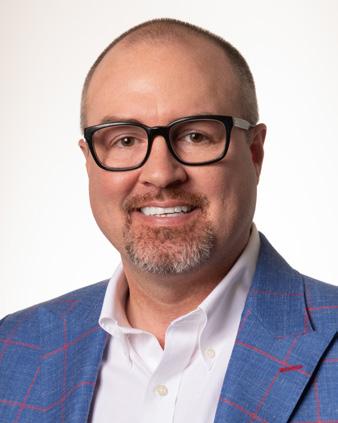
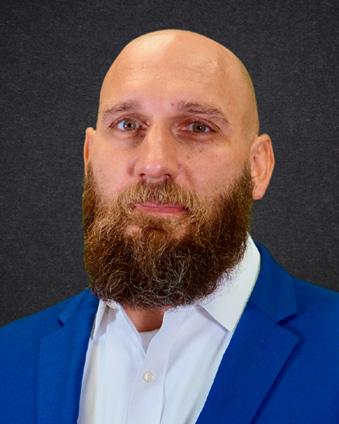
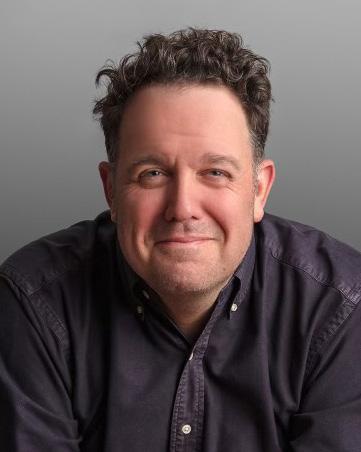
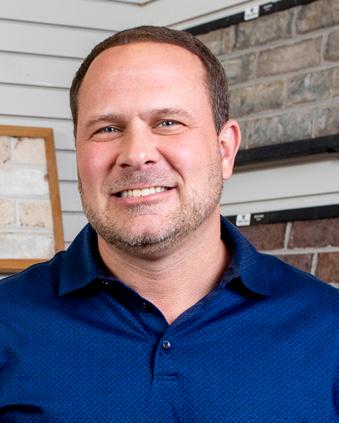
Prior to joining the Forge Institute, Anderson served in a variety of cyberspace-related positions in the United States Air Force and the Arkansas National Guard, including intelligence officer, information system security officer and cyber-conversion officer. During his service, he executed hundreds of intelligence, surveillance and reconnaissance missions supporting Operation Iraqi Freedom and Operation Enduring Freedom and earned multiple decorations including three Meritorious Service Medals. Anderson retired from the military as commander of a Cyberspace Operations Squadron of the Arkansas Air National Guard.
Morgan Blair Sales Manager, LKQ Corporation
LKQ is the largest provider of alternative vehicle collision replacement products and a leading provider of alternative vehicle mechanical replacement products, with our sales, processing, and distribution facilities reaching most major markets in North America.

About me: Raised in Benton AR, Lived in LR for the last 16 years. Wife, Jessica Blair and one son; 6yr old Barron. I manage inside sales for five LKQ locations here in Arkansas and Louisiana.
Proud to have charitable partnerships with Womens own Worth (WOW), Ronald McDonald House Charities of Arkansas, and the Bryant Boys and Girls Club.
Natalie Blaney Owner, The Fix Salon
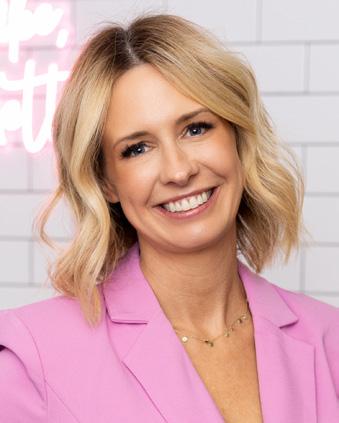
Natalie Blaney is the owner and creative force behind The Fix Salon. With the support of her husband, Patrick, The Fix Salon opened in 2018. Most recently it was named AY Magazine’s Best Salon in Arkansas. Blaney started her beauty career by obtaining her cosmetology license. After several years behind the chair, she was led to attend the Fashion Institute of Design & Merchandising (FIDM) in Los Angeles. While attending FIDM, she began working at The
Chris McMillan Salon in Beverly Hills. Upon her graduation from FIDM in 2008, she transitioned to a full-time role at The Chris McMillan Salon, serving as an apprentice to celebrity stylist, Jorge Serrano.
DeeDee Boswer-Helbig Owner

Ava
Bella Day Spa
DeeDee is the owner of Ava Bella Day Spa. She has been a licensed esthetician since 2000, and she opened the doors of Ava Bella Day Spa in August 2004. When she opened the spa, she had one goal in mind — to show people that relaxation is a necessity, not a luxury. With that goal in mind, she created a space and atmosphere where anyone from any walk of life could feel comfortable. She has a strong passion for people, natural skin care and giving back to the community.
Chad Bowie District Manager
Acme Brick Tile & Stone
Chad Bowie is the district manager of Acme Brick Tile & Stone, which offers a wide selection of natural and manufactured stone, custom iron doors, outdoor living products and one of Arkansas’ largest selections of designer tile. The company strives to make products that outlast a mortgage, a roof or even a lifetime by providing Acme quality and a 100-year guarantee. To Bowie, the best part of the job is watching the staff’s skills and knowledge come together to create great customer experiences.
Ben Brainard
Co-owner
Big Bad Breakfast, Waldo’s Chicken and Beer
Ben Brainard is co-owner of Big Bad Breakfast, which opened in west Little Rock in 2022 and will open a location on Main Street in downtown Little Rock this fall. He and co-owner John Currence serve up hearty breakfasts with New Orleans flair at the establishment. Currence founded Big Bad Breakfast in Oxford, Miss., in 2008, and the restaurant now has locations throughout the South. Brainard is also co-owner of Waldo’s Chicken and Beer in Little Rock. He has partnered with Matthew John Foster, owner of Flyway Brewing in North Little Rock, and Phillip Schaaf to expand Flyway Brewing into Northwest Arkansas this fall. Before becoming a partner at Big Bad Breakfast, Brainard was a partner for Yellow Rocket Food & Beverage Concepts, a sustainable food company that has created Little Rock restaurants such as Big Orange and Local Lime. He has worked in the restaurant industry for roughly 25 years.
Brooke Brolo Agency Owner Brolo Insurance Group/Allstate

Brooke Brolo of Brolo Insurance Group, an Allstate agency in Maumelle, has more than 15 years of experience in the insurance industry. Her team provides a variety of insurance options, including auto, home, condo, renters, motorcycle, ATV, boat, business, life and more. Brolo earned her bachelor’s degree from the University of Arkansas at Little Rock. Her career successes have placed her in the top 10 percent of Allstate agencies countrywide. She has more than 20 awards to date, including Inner Circle Elite, Circle of Champions, National Summit and Honor Ring. Brolo is also a business coach with Craig Wiggins Coaching and Consulting, where she mentors insurance agents across the country. Brolo is a member of the North Little Rock Chamber of Commerce and Arkansas Business Network-Maumelle.
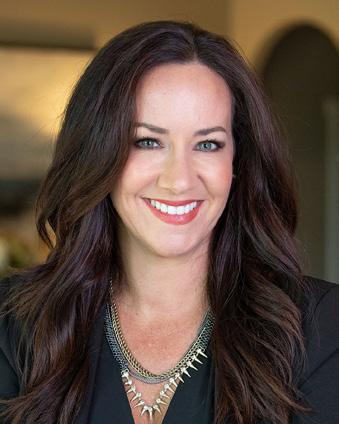
105 ARMONEYANDPOLITICS.COM SEPTEMBER 2023
ACHIEVERS IN THEIR FORTIES
Amy Clemmons Brown Attorney/Owner
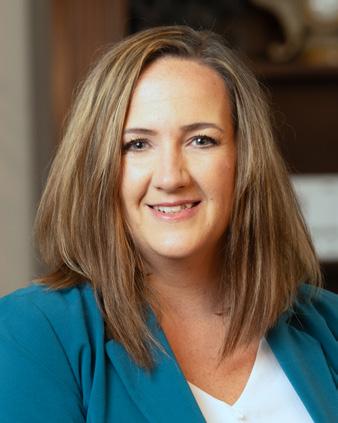
McMullan & Brown
Amy Clemmons Brown is an attorney and owner of McMullan & Brown, an all-female law firm in business since 1988. Her areas of practice include general commercial litigation and appeals, particularly those involving real estate. Brown represents clients from across the nation, including title insurance underwriters, title companies, mortgage servicers, property owners, real estate brokers and agents. She also practices in estate planning and probate. Brown is licensed and practices in both state and federal courts, and she has been a member of the Arkansas Bar Association since 2007. Brown has earned the highest Martindale Hubbell Peer Review rating of AV and received numerous recognitions, such being recognized as a “Mid-South Rising Star” in Real Estate by Super Lawyers in 2021 and 2022.
David Choate Chief Administrative Officer
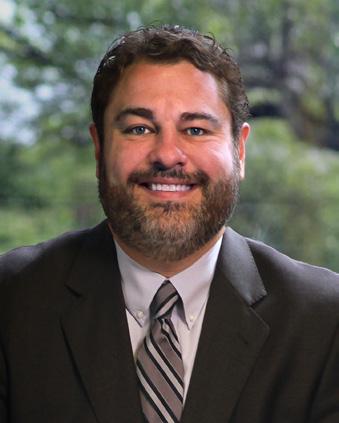
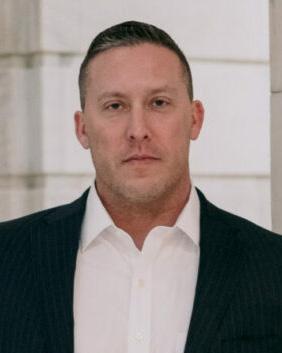
Aon Transportation & Logisitcs

David Choate is CAO for Aon’s global Transportation & Logistics practice, headquartered in Little Rock. With offices in 120 countries, Aon is a trusted risk advisor and financial services provider for clients worldwide. His role encompasses business strategy and execution, operations, finance, team management, client service and retention, as well as new business. He serves on Aon’s regional DEI council and leads the Transportation & Logistics business internship program. He is a faculty member for Aon’s national colleague training programs and mentors new team members. He holds the CPCU, CRM, CIC, AIC, and AIS professional designations. Prior to joining Aon in 2013, Chaote was an attorney at Friday, Eldredge & Clark.
Latrecia Carroll Senior Vice President & Operations Manager
Stone Bank
Latrecia Carroll is a graduate of Little Rock Central High School and the University of Arkansas at Little Rock. She has been employed in the banking industry in Central Arkansas since receiving her BA in Finance. Carroll currently serves as senior vice president and operations manager at Stone Bank, where she supervises employees throughout the company’s six locations and nationwide government-guaranteed lending operation. She serves as VP and president-elect of the Arkansas Bankers Association’s Emerging Leaders Council and is presently enrolled in the American Bankers Association’s Wharton School Leadership program at the University of Pennsylvania. Her volunteer activities include Junior Achievement of Arkansas and the Tjuana Byrd Internship program of the Women’s Foundation of Arkansas
Mary Chatelain Founder Pinnacle Hearing
Dr. Mary Chatelain, Au.D., is the founder of Pinnacle Hearing, a medical facility with multiple locations delivering hearing healthcare in Arkansas for over a decade. Chatelain is a graduate of Louisiana Tech University and was part of the inaugural class in Louisiana to achieve a doctoral degree in the field of audiology. Having nurtured a clinic widely recognized for its endeavors towards community development and education, she actively supports law enforcement, first responders, educators, wildlife enthusiasts and rural communities with the give-back initiative she created. Hav-
ing grown up in Magnolia, she understands the importance of accessible medical care in rural areas. As a result, Chatelain has established partnerships with numerous organizations and medical facilities, including Ouachita County Medical Center in Camden, to bring essential services closer to these communities.
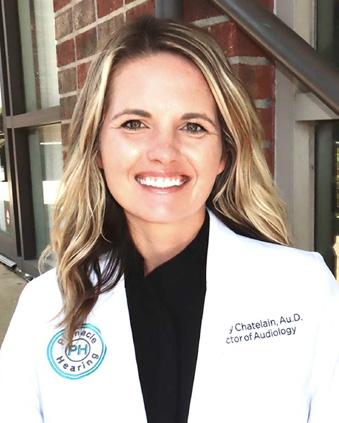
Jared Cox, DDS Dentist/Motivational Speaker Today’s Family Dentistry
Jared Cox, DDS, is a dentist, pilot and self-proclaimed fear expert whose goal is to live life as large as possible and to help others do the same. His experiences have prepared him to guide people as they find the courage to face the world and live with joy and possibility. Cox is avid in sharing his story through writing and speaking. He has a deep belief in human potential and human goodness, and his message is not about competing with fear, but collaborating with it. Cox obtained his undergraduate degree in chemistry at Harding University before studying dentistry at the Oklahoma University Medical Center. He maintains professional associations with the American Dental Association, Arkansas State Dental Association and the Academy of General Dentistry.
Michael Dampier
Chef and GM, The Ouachita Bar & Grill
Owner, The Burger Chef’s Rubs & Sauces
Often known simply as “The Burger Chef,” Michael Dampier is the chef, pit master and general manager of The Ouachita Bar & Grill in Hot Springs, as well as the owner of The Burger Chef’s Rubs & Sauces. A highly active member of the culinary community, Dampier has traveled the country to judge food contests since 2010, taking part in more than 200 events, and frequently travels the state to document food trips and BBQ trails and promote other Arkansas restaurants.

Dampier has also won numerous awards; during his eight years at the famous Ohio Club, his team won over 100 “Best of” food awards, including 26 Best Burger awards. He has been recognized by the Arkansas Food Hall of Fame no less than 19 times, winning the People’s Choice Award in 2020. Recently, he helped lead the Ouachita Bar & Grill to the Best Flavor Award at the 2023 Flavor of the Park event in Hot Springs.
Kenya Davenport Chief of Staff, SVP of Stakeholder Engagement
Southern Bancorp
As Southern Bancorp’s chief of staff and senior vice president of stakeholder engagement, Kenya Davenport advises and provides counsel to the CEO, manages strategic projects and creates and maintains the engagement of investors, funders, shareholders and other stakeholders. Prior to joining Southern Bancorp, Davenport practiced civil litigation and family law in Little Rock and Memphis, managed her own law firm and served as “of counsel” at Gill Ragon Owen P.A. Her career also includes a background in finance as a financial advisor and in education as an algebra teacher in Memphis Public Schools.
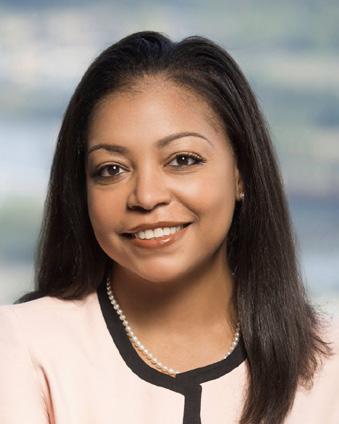
Davenport is a graduate of Tennessee State University, an HBCU in Nashville, and Christian Brothers University in Memphis. She earned her law degree at the University of Arkansas at Little Rock William H. Bowen School of Law and is active in several local and national community organizations and professional boards.
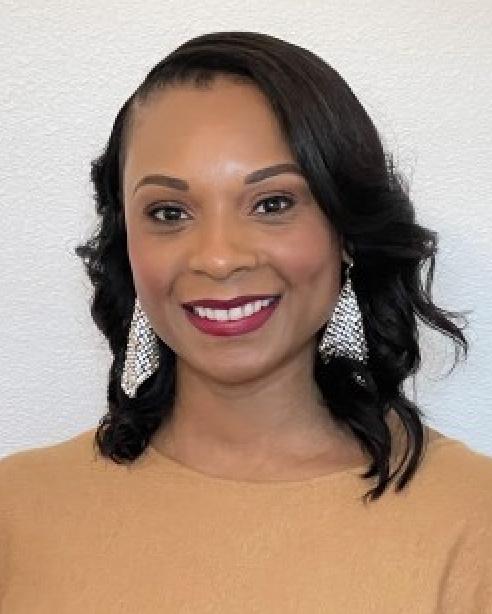
106 ARMONEYANDPOLITICS.COM SEPTEMBER 2023 ACHIEVERS IN THEIR FORTIES
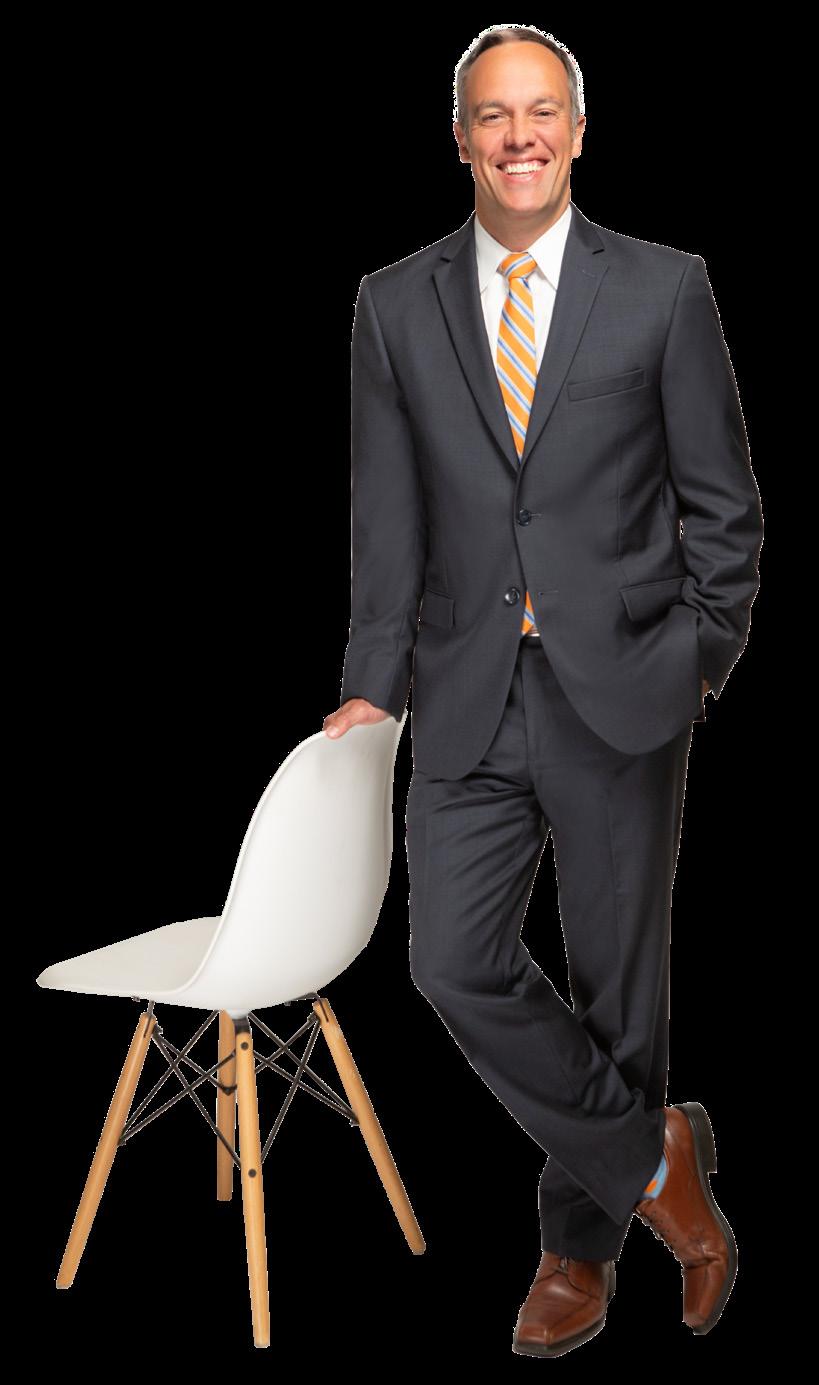

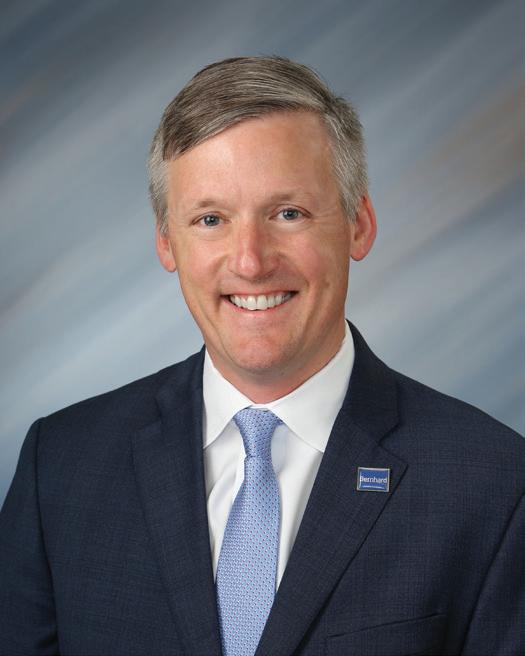
107 ARMONEYANDPOLITICS.COM SEPTEMBER 2023 LITTLE ROCK ROGERS wlj.com SINCE 1900 WRIGHT LINDSEY JENNINGS From the boardroom to the courtroom to the community, we are committed to making a difference. Our firm has promoted a culture of service for more than 120 years, and we are proud that Patrick shares that commitment. PATRICK WILSON Construction Arbitration & Mediation Commercial Litigation & Contract Disputes Fidelity & Surety Insurance Defense AMP ACHIEVERS IN THEIR 40'S CONGRATULATIONS ROB GUTHRIE!
Katherine Dudley Director of Choral and Piano Studies Pulaski Academy
Katherine Signaigo Dudley, Ed.D., is in her 19th year as the director of choral and piano studies at Pulaski Academy in Little Rock. She has always been passionate about education and bettering the world around her. This passion led her to run for public office in 2022 and motivated her to obtain her educational doctorate in leadership and innovation. She was awarded the Leadership & Innovation Research Impact Scholarship Award from Arizona State University for her dissertation, “Refining Resilience: Grit, Growth Mindset and Mindfulness in Female Adolescents.” She works to lead and inspire her students to achieve excellence as musicians and individuals. Under her direction, her students have performed nationally and internationally, including at Carnegie Hall. She has presented at multiple state and international conferences and was awarded Best Choice of 2020 in music education for the Kid’s Directory of Central Arkansas, as well as Central Arkansas Director of the Year.
Chase Dugger Founder JCD Consulting
As founder of JCD Consulting, Chase Dugger leverages his expertise in campaign management, public policy and grassroots organization to assist clients in the political, corporate and nonprofit sectors. With nearly 20 years of experience, he has established himself as a leading political strategist in the state. Dugger specializes in government relations, political consulting and public affairs, catering to a diverse clientele including the Arkansas Health Care Association, Osage Creek Cultivation, Electric Cooperatives of Arkansas, Arkansas Children’s, ACE Scholarships and the County Judges’ Association of Arkansas. Before transitioning to the private sector in 2011, he served as the executive director of the Republican Party of Arkansas. Since then, he has successfully contributed to more than 200 campaigns nationwide, including those of Gov. Sarah Sanders and more than 50 current Arkansas legislators
Holly Duval Director of Marketing & Business Development
The Poultry Federation
Holly Duval is the director of marketing and business development at The Poultry Federation (TPF). She has served in this role since 2014.
Her leadership steers TPF’s business development strategies, marketing initiatives and communications across Arkansas, Missouri and Oklahoma. With a background rooted in marketing, advertising, social media and sales administration, she brings a versatile skill set to the table.
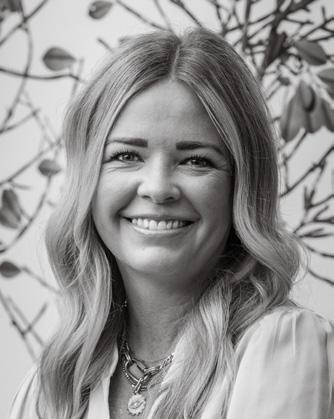

Duval earned her Bachelor of Science Degree in Marketing Management from Arkansas State University.
Josh Earnhart Vice President of Sales (NWA) AAA Business Systems
Josh Earnhart is a sales leader with more than 20 years of experience in the office technology industry, where he helps organizations optimize their use of technology and achieve their business goals. As VP of sales for Northwest Arkansas at AAA Business Systems, he leads a team of professional sales reps who deliver exceptional service and value to their clients across various sectors and industries.
Earnhart’s core competencies include sales leadership, new business development, key account management and direct sales. He has a proven track record of creating long-term relationships with C-level executives and their supporting staff, introducing them to the most effective and efficient ways of utilizing office technology and the solutions they bring.

He also has a strong background in sales training, coaching, and mentoring, helping his team members improve their skills and performance. A recent graduate of the Leadership Fayetteville program, his honors and awards include eight President’s Club awards and two Sales Rep of the Year awards.
Matthew Finch President, Shareholder and Director Gill Ragon Owen P.A.
Matthew Finch is a shareholder and director with Gill Ragon Owen P.A., and has served as its president since 2014. He was educated at Westminster College and the UALR William H. Bowen School of Law.
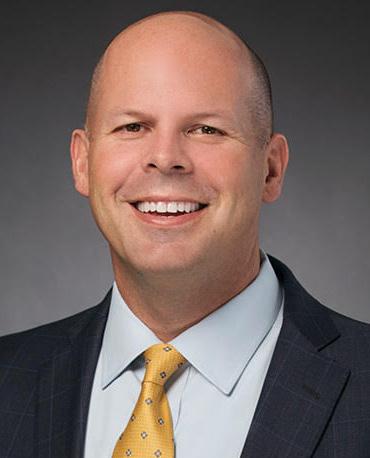
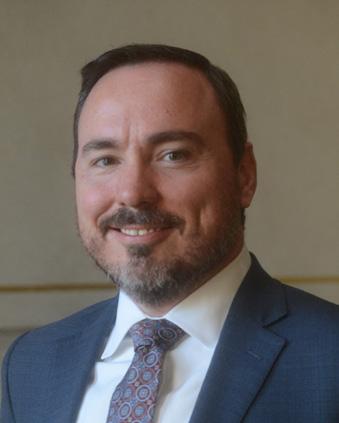

Finch joined the Arkansas Bar in 2001. His practice focuses on general commercial litigation with expertise in commercial foreclosures, title claim defense litigation, construction litigation, creditor’s rights litigation (including FDCPA and TCPA defense) and corporate contractual disputes and litigation. He has been recognized as a “Mid-South Rising Star” by Super Lawyers, as one of Arkansas’ “Most Influential Lawyers,” “Best Lawyers” and “Men on a Mission.” Finch and his wife, Casey, were recognized as one of AMP’s 2023 Dynamic Duos.
Finch serves on the Bowen alumni board and served as president for the 2021-2022 year.
Brian Fowler CEO
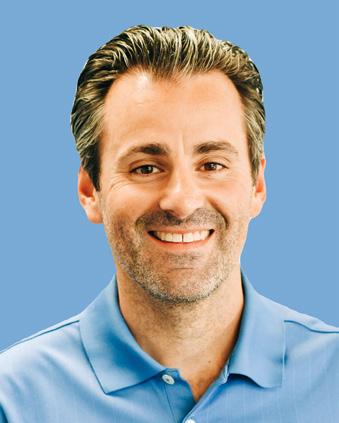
Arkansas Surgical Hospital
Originally from Springdale, Brian Fowler earned an accounting degree from Arkansas State University in 2004 and completed his MBA from the Walton College of Business at the University of Arkansas in 2005. Fowler completed the CPA exam in 2008 and got his start in public accounting at BKD in Little Rock, where he worked from 2005-2008. He has worked at a variety of health care organizations throughout his career, and joined Arkansas Surgical Hospital (ASH) as CFO in 2016. He was promoted to COO six months later and named CEO in January 2020.
Fowler is a fellow of the Healthcare Financial Management Association (HFMA), where he served as president from 2016-2017.
Jen Gerber
Filmmaker/Instructor
Inception to Projection
Jen Gerber holds an MFA in filmmaking from Columbia University and her debut feature film, shot entirely in Hot Springs, received international festival exposure as well as theatrical and digital distribution. Gerber recently opened a year-round film school in Hot Springs called Inception to Projection, where she draws from 17 years of experience as a professional filmmaker and seasoned professor to teach hands-on filmmaking courses for students of all ages. In addition, she has served as a mentor for the Sundance Film Festival Native Lab, was the creative director for the School of Creative and Performing Arts in in Los Angeles and New York and served as the executive director of the Hot Springs Documentary Film Festival.
She currently runs the annual film festival, Arkansas Shorts. Gerber is in development with her next directing projects, which include “HasBeen Beauty Queen,” a semi-autobiographical story set in Arkansas, and “Shelter,” starring Academy Award winner Melissa Leo, Zazie Beetz and David Rysdahl.
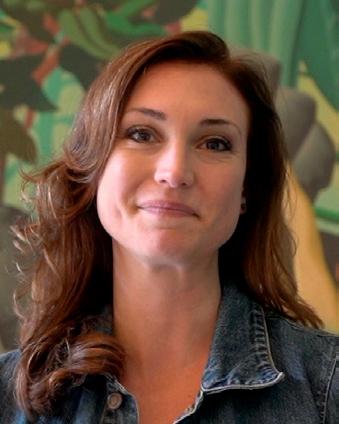
108 ARMONEYANDPOLITICS.COM SEPTEMBER 2023
ACHIEVERS IN THEIR FORTIES
CONGRATULATIONS LYDIA HICKS HAMLET
Katherine Blackmon Caroll and the entire family law team at the Law Offices of Katherine Blackmon are thrilled to congratulate associate attorney Lydia Hicks Hamlet for being recognized as one of the exceptional professionals in this year’s class of AMP Achievers in their Forties. Her extensive trial experience and tremendous compassion make her an integral part of the team; she embodies that balance of empathy, expertise and integrity that Blackmon’s firm is renowned for. A dedicated and zealous representative, Hamlet helps clients and families navigate some of the most difficult situations in their lives. Her reputation for excellence among colleagues and clients alike makes her a standout, not just within her field, but in this year’s list of achievers as well.
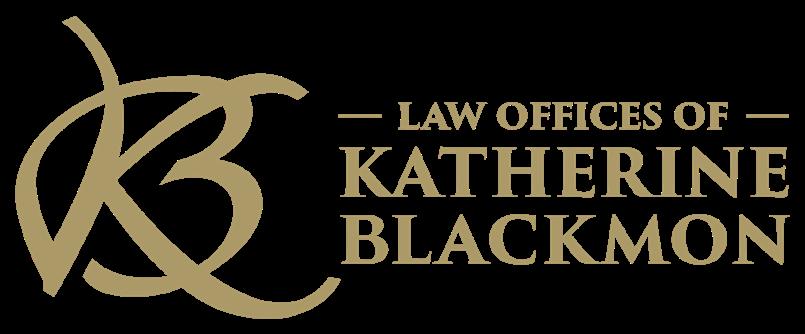
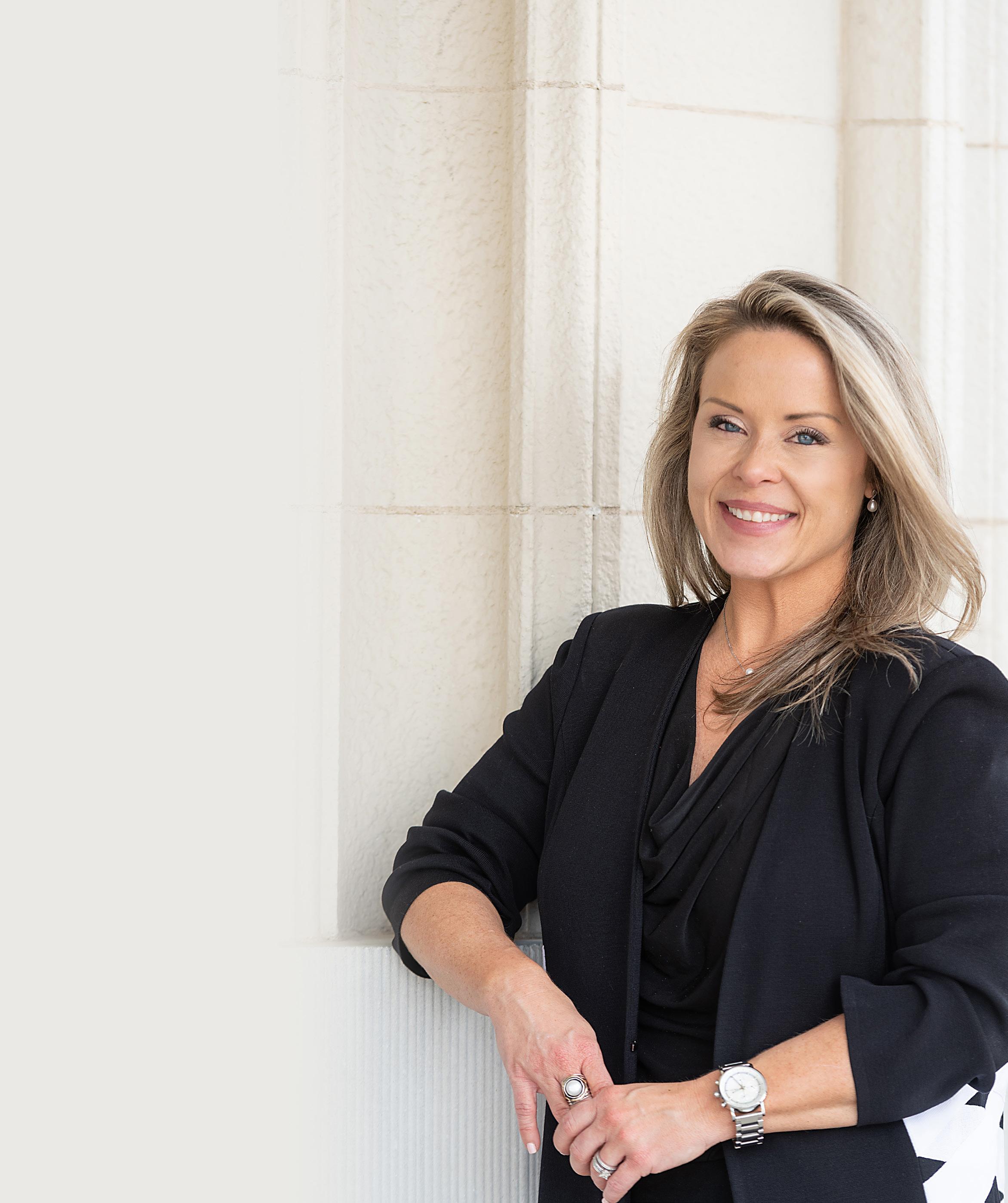
212 Center Street | 11th Floor | Centre Place | Little Rock 501.372.7636 | KEBlackmon
Rob Guthrie, MBA, CEM Chief Development Officer
Bernhard
Rob Guthrie serves as the chief development officer at Bernhard, a prominent turnkey energy solutions provider with locations across the United States including Little Rock. Since joining the company in 2018, Guthrie has played a pivotal role in propelling the growth of Bernhard’s Energy-as-a-Service portfolio. This portfolio now boasts partnerships with a range of multi-hospital systems and higher education campuses across the nation.
With an impressive career spanning two decades in the industry, Guthrie is a proven leader in assisting clients in achieving long-term operational savings, realizing decarbonization objectives and bolstering facility resiliency. He acquired an MBA from the University of North Carolina KenanFlagler Business School and earned his undergraduate degree from the University of the South (Sewanee).
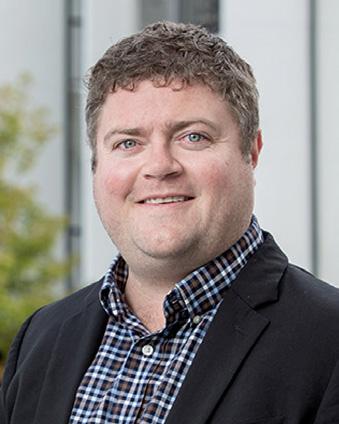
Lydia Hicks Hamlet Associate Attorney
Law Offices of Katherine E. Blackmon
Lydia Hicks Hamlet is an associate attorney at the Law Offices of Katherine E. Blackmon, a traumainformed family law firm with an emphasis on helping clients navigate difficult times with empathy and expertise. Hamlet has extensive trial experience and is a dedicated advocate for her clients. A Little Rock native, Hamlet obtained her Bachelor of Arts in psychology from Hendrix College and her Master of Arts in applied psychology from the University of Arkansas at Little Rock before going on to complete her juris doctorate at the Mississippi College School of Law in 2010.
Amanda Henard Administrator
Unity Health–Searcy Medical Center

Amanda Henard is the administrator for Unity Health-Searcy Medical Center, where she manages the multi-specialty clinics consisting of 200 associates and more than 50 physicians and midlevel providers serving patients in White and eight surrounding counties.
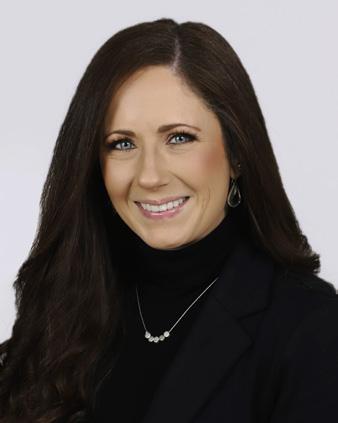
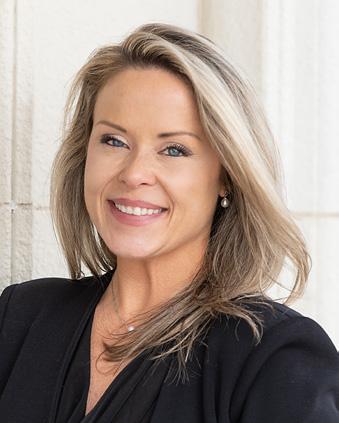
A Searcy native, Henard began her career with Unity Health almost 20 years ago as an intern while completing her education at Harding University, where she graduated with a Bachelor of Business Administration in Healthcare Management and Master of Business Administration in Management and Business Ethics. She has been in the administrator role at Searcy Medical Center for more than four years and is a member of Arkansas and National Medical Group Management (MGMA).
Drew Higginbothom Vice President Smith & Company Insurance
Drew Higginbothom is vice president of Smith & Company Insurance Inc., an independent insurance agency with offices in Stuttgart, Little Rock, Forrest City and Marianna. Since 2012, Higginbothom has overseen the operations of Smith & Company and helped facilitate the acquisition of seven other agencies. With partner Mark Smith, the firm has developed a niche in aviation risks through Unlimited Aviation Insurance LLC.
Higginbothom earned a Bachelor of Science in Business Administration from the University of Arkansas and later completed his MBA at UA Little Rock in 2008. He was recently elected president of the Independent Insurance Agents of Arkansas, which has more than 400 agency members
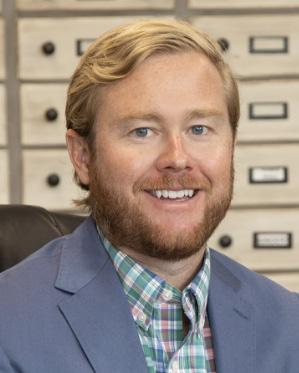
and partners. In addition, Higginbothom serves on the board of directors at Armor Bank.
Brandon Huffman Founder and Principal
Huffman & Co.
With more than two decades of real estate experience in multifamily, hospitality, office and retail, Brandon Huffman oversees Huffman & Co.’s development, construction and management divisions. He also oversees all new acquisitions and development business including capital structure, market focus and site selection.

Huffman attended the University of Texas before starting Huffman Drywall Company in January 2005. He has developed and constructed more than 30 projects. Huffman also serves as vice president and principal of Estage Property Management.
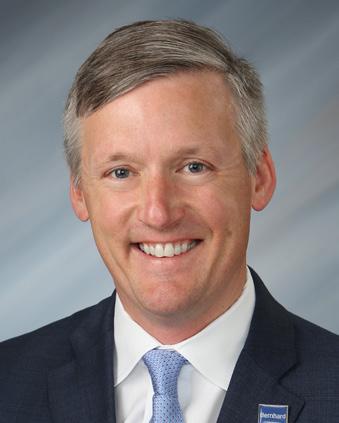
Daniel Hunt Project Executive
Clark Contractors
As project executive for Clark Contractors, Daniel Hunt is responsible for leading project teams through preconstruction services, building construction and project turnover. He believes in working collaboratively to maximize the value of the client’s project. His extensive construction experience of 18plus years is a testament to his dedication and hard work. Starting off as a laborer in college, he worked his way up to becoming a project executive and has been involved in almost $500 million worth of construction projects.
Hunt strives to be a role model, someone who is a valuable asset to any team, whether it is a co-worker, subcontractor, design professional or client. He also aspires to mentor and inspire the future generation of construction leaders, trade professionals and his church congregation.
Blake Jackson Founder and Managing Partner Monde Group/Aspen Property Acquisitions
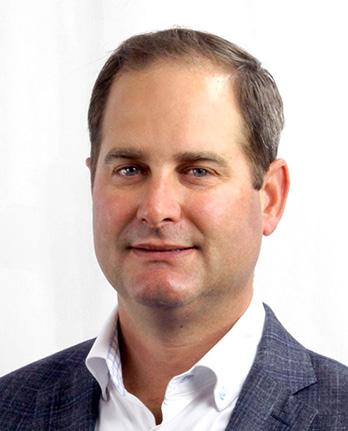
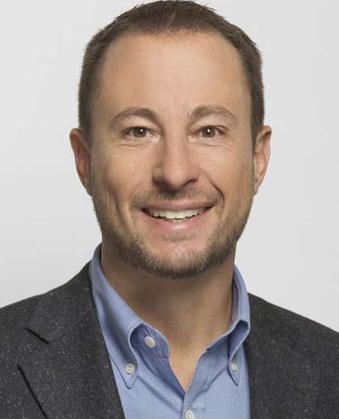
Blake Jackson is the founder and managing partner at Monde Group, a multi-disciplinary development firm specializing in high quality real estate, architectural design, marketing, sales and management. In just 10 years since starting Monde Group, Jackson has completed and sold $67.4 million in resort and multifamily communities, including The Villa at River Pointe in Maumelle and the 92-unit first phase of the Esplanade District.
With his company, Aspen Property Acquisitions, Jackson has also started an investment portfolio of customized condominiums across the United States. In addition to working on two film projects and a podcast with his other company, Ghosthorn Productions, Jackson is writing a book chronicling his years as a developer. He has served on numerous boards, including the Argenta Downtown Council and the University of Arkansas Real Estate Advisory Board, and is an honors graduate of the University of Arkansas E. Fay Jones School of Architecture.
Glen Johnson Co-CEO and Co-founder DYNE Hospitality Group
Glen Johnson is the Co-CEO and Co-founder of DYNE Hospitality Group in Little Rock. He primarily leads the real estate, area developer territories, and finance and administrative side of the business. He started his professional career in the real estate industry when he was 16, and his experience pro-
110 ARMONEYANDPOLITICS.COM SEPTEMBER 2023 ACHIEVERS IN THEIR FORTIES
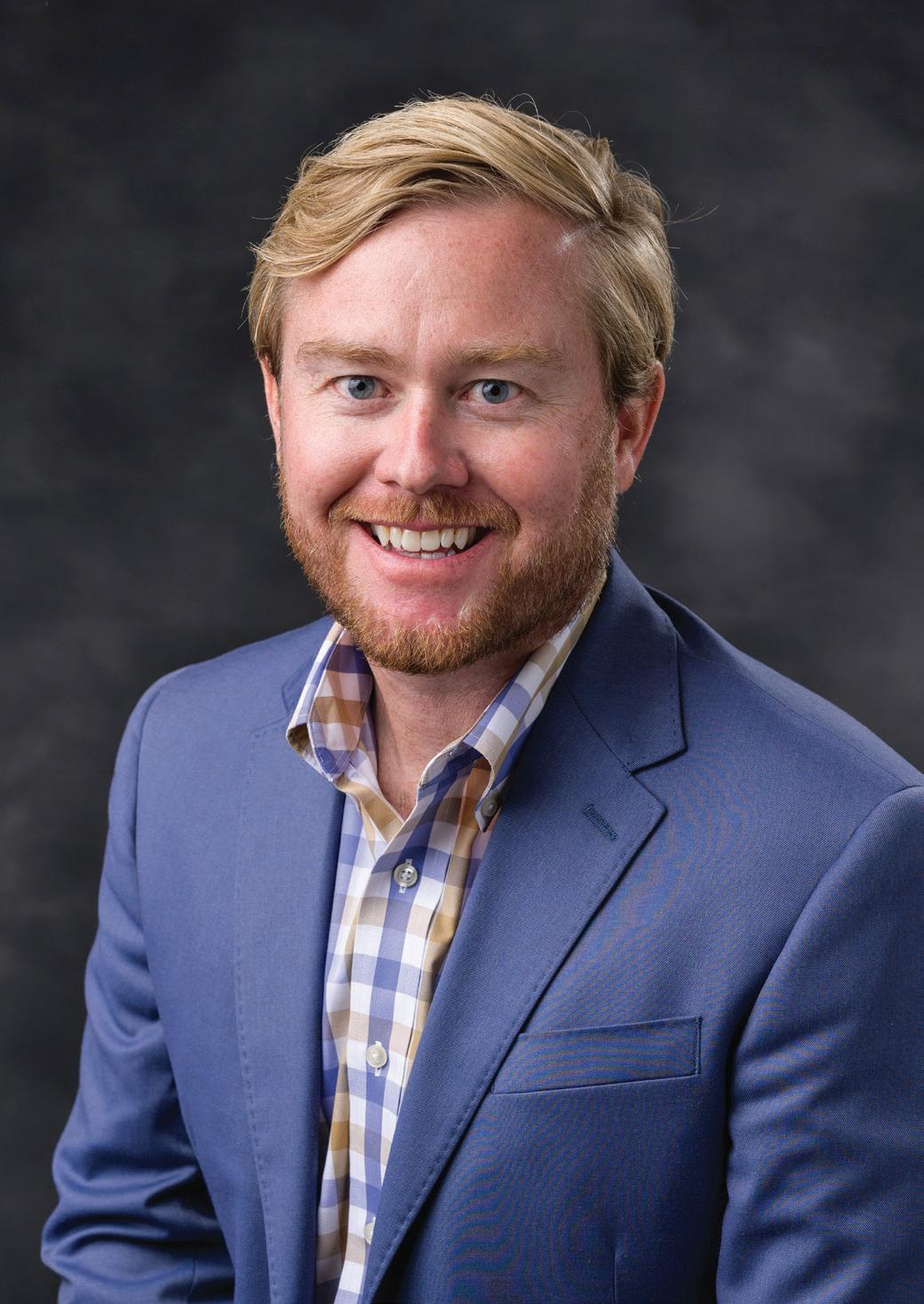


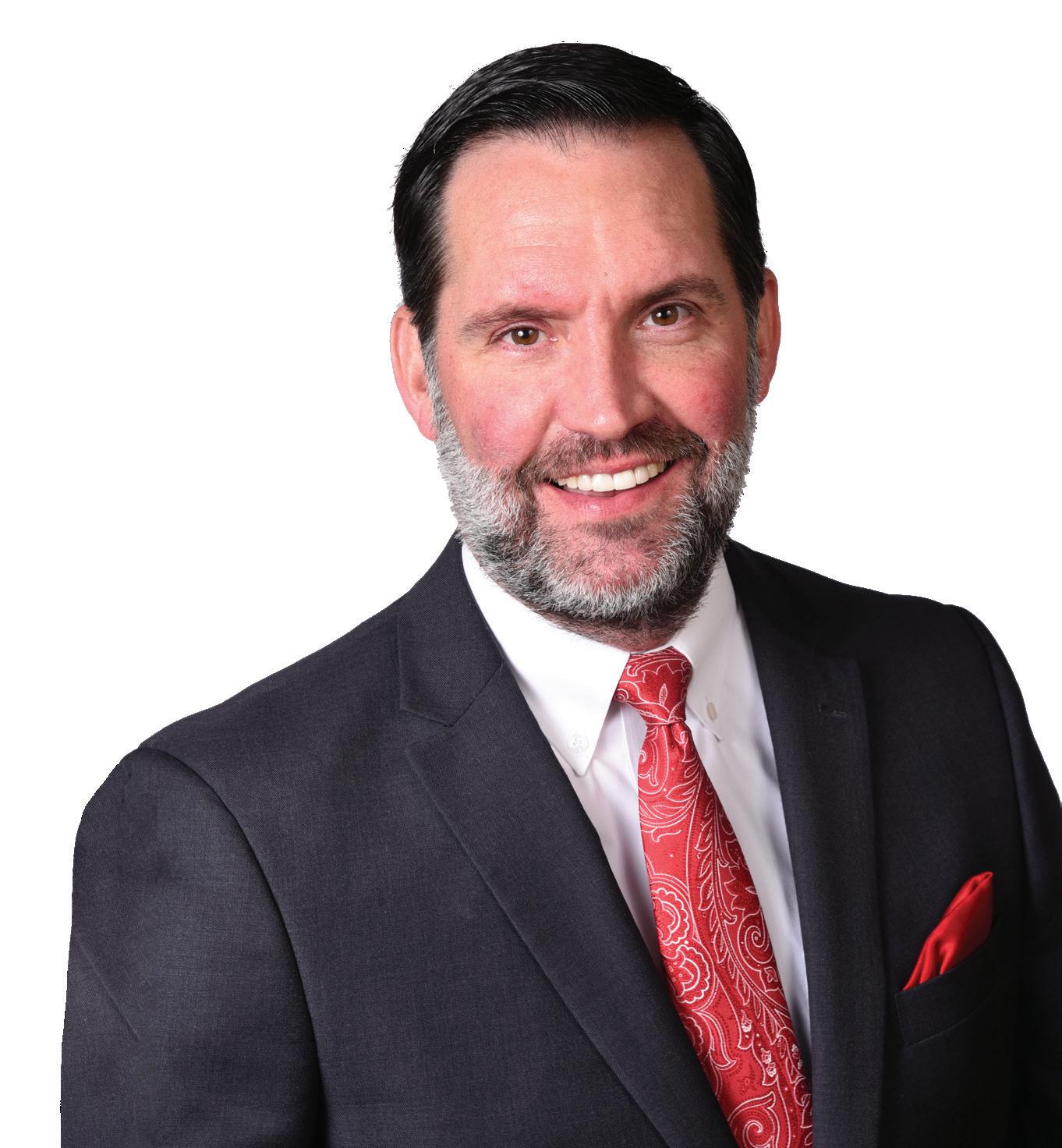

111 ARMONEYANDPOLITICS.COM SEPTEMBER 2023 Locations in Stuttgart, Forrest City, Marianna, and Little Rock Drew Higginbothom Congratulations thesmithandcompany.com | unlimitedaviationinsurance.com MEMBER FDIC @FABANDT | FABANDT.BANK LEADERSHIP YOU CAN BANK ON FAB&T congratulates President Mark Wilson on his recognition as an Arkansas Money & Politics Achiever in their 40s.
vides a unique outlook to the retail, commercial real estate, oil and gas and private equity industries.
DYNE Hospitality Group is the largest Tropical Smoothie Cafe franchisee in the brand. In 2023, Tropical Smoothie Cafe named DYNE as the brand’s “Franchisee of the Year” and “Developer of the Year.” DYNE’s mission is to create opportunities using our God-given gifts.
Jordan P. Johnson Sr. Owner
JPJ Consulting
With more than 20 years of communication consulting experience, Jordan P. Johnson has helped executives, companies, corporate boards, nonprofits and municipalities find their way. In addition, he helps companies navigate through crisis issues and economic development challenges. He served as the past chairman of the board for the Arkansas Foodbank and has recently served on the boards of the University of Arkansas National Alumni, Riverfest and Junior Deputy. Johnson earned a bachelor’s degree in Journalism from the University of Arkansas and a law degree from the William H. Bowen School of Law at UA Little Rock.
Jacob Jones
Co-owner/President
Jones and Son Diamond & Bridal
Fine Jewelry
Jacob Jones attended The Gemological institute of America in 1997 and earned the coveted GIA graduate gemologist designation at just 19 years old. Since then, he has been involved in the day-to-day operations and interactions at Jones and Son Diamond & Bridal Fine Jewelry.
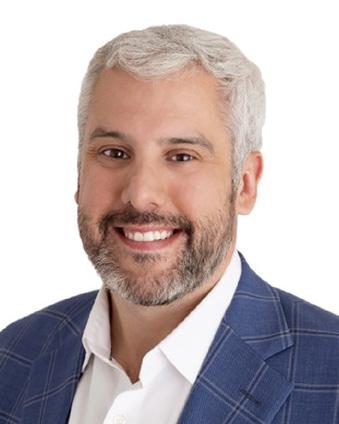
Jones, a Catholic High Graduate, feels passionately about giving back to the community. Jones and Son has been a presenting sponsor of Arkansas Children’s Hospital’s Miracle Ball since 2010. Through the years, Jones & Son has also been a presenting sponsor for the 20th Century Club’s Hope Ball and the jeweler selected year after year to participate in the Angels of Hope program. For the last 10 years, Jones and Son has been a presenting sponsor to the Miss Arkansas Pageant, and Jones personally designed the Miss Arkansas 2022-2023 official coronation ring.
Kristen Kennon Owner iRealty Arkansas
Kristen Kennon is the owner of what she believes is the most contagious real estate brand in Central Arkansas. iRealty Arkansas is a local company with almost 200 agents that has achieved more than $2 billion in sales. Kennon graduated from Henderson State University in Arkadelphia with a Bachelor of Science degree and Master of Science degree in sports administration. She became the director of parks and recreation for the city of Jacksonville, where she worked for eight years.
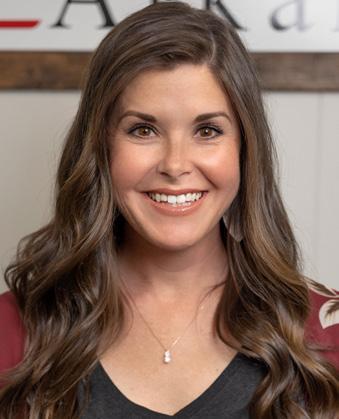
For the last 10 years, her full-time job is real estate, but she is a serial entrepreneur with ownership in 10 different companies. She believes in empowering others to be the best version of themselves by motivating and inspiring them to chase their dreams.
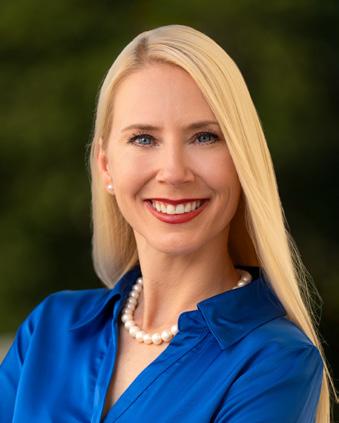
Robert Klein President and Co-founder The Property Group
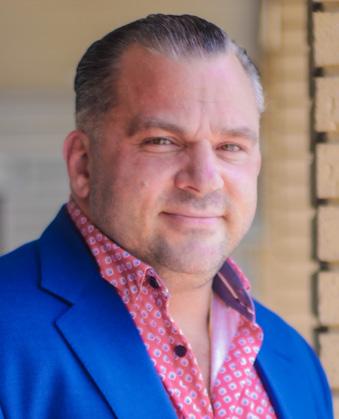
Klein is president and co-founder of The Property Group in Little Rock, which he started with Cara Hazlewood in 2012. The company has since grown from a two-person operation to having 20 agents and more than $525 million in sales. Klein is primarily responsible for the recruitment of the firm’s agents and the development and implementation of its signature training program. In addition, he and Hazlewood have developed an awardwinning marketing program that has garnered national attention. He has more than 15 years of experience in real estate and has earned multiple awards from the Little Rock Realtors Association as a top-producing broker. He currently serves on the board of directors of the Arkansas State Police Foundation and is slated to serve on the Little Rock Realtors Association board in 2024. He is also a past board member of the University of Arkansas Pulaski Technical College Foundation and the Arkansas Prostate Cancer Foundation.
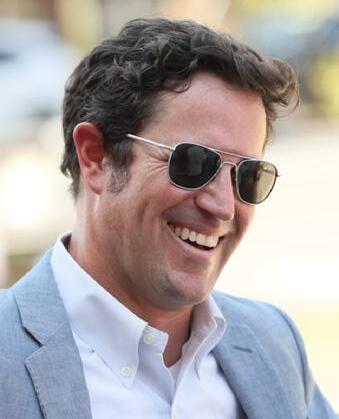
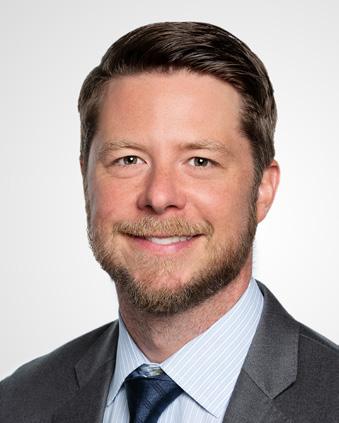
Ben Kutylo Executive Director Forward Arkansas
Ben Kutylo joined Forward Arkansas in July 2020 and leads the organization’s work to support innovative solutions to improve learning, career and life outcomes for every Arkansas student.
Prior to joining Forward, Kutylo served as cofounder and executive director of Fremont Street, a national nonprofit organization focused on catalyzing locally led innovation in schools and communities across the country. Previously, Kutylo served as vice president of strategic partnerships at eSpark, a digital learning software company, and spent more than five years as director of program investments at the Chicago Public Education Fund, a nonprofit organization dedicated to improving Chicago’s public schools.
Before transitioning into education, he spent almost 10 years in customer-focused roles at various technology companies. Kutylo earned a bachelor’s degree from the University of Notre Dame and a master’s degree in education policy from Harvard University.
Candice Lawrence
Vice President
of Programs and
Partnerships/ Executive Director, AEDCE Arkansas State Chamber of Commerce/AIA

Candice Lawrence is vice president of programs and partnerships of the Arkansas State Chamber of Commerce/AIA and is responsible for the development, management and execution of the chamber’s programs and strategic partnerships. She also serves as the executive director of Arkansas Economic Developers & Chamber Executives, the professional association of local chamber executives and economic developers in the state. Lawrence most recently served as the state chamber’s director of communications, where she led its internal and external communications, marketing, events and media outreach. Before joining the chamber, she served for 12 years as a communications representative, visitor’s services manager and community outreach coordinator for a leading global manufacturer of construction equipment.
Lawrence is a graduate of Leadership Arkansas Class XVI, Leadership Greater Little Rock Class XXXV and currently serves on the boards of Junior Achievement of Arkansas board and Arkansas Workforce Development. She began her career as a broadcast journalist after receiving her undergraduate degree from the University of Arkansas in Fayetteville.
112 ARMONEYANDPOLITICS.COM SEPTEMBER 2023
ACHIEVERS IN THEIR FORTIES



113 ARMONEYANDPOLITICS.COM SEPTEMBER 2023 Congratulations on being named an AMP Achiever in their Forties. Supporting business leaders and professionals throughout the River Valley through personalized training, professional consulting services, and meaningful network opportunities. Your success is our focus. from your friends at the UAFS Center for Economic Development. Blake Rickman Congratulations
CONGRATULATIONS



MATTHEW B. FINCH
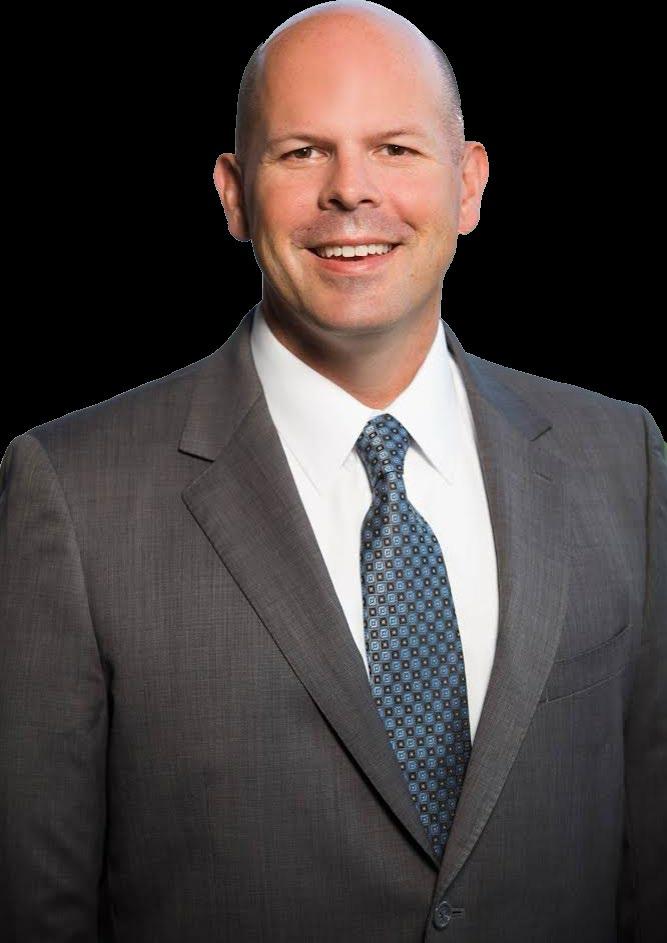
on being recognized as one of AMP’s 2023 Achievers in their Forties

ORTHO

It’s not what you look at that ma ers–it’s what you see.
Henry David Thoreau

114 ARMONEYANDPOLITICS.COM SEPTEMBER 2023
& SPINE care that moves you
The Arkansas State Chamber of Commerce/ Associated Industries of Arkansas congratulates






115 ARMONEYANDPOLITICS.COM SEPTEMBER 2023
Arkansas Based. Internationally Traded. Our People Are Our Strength.
CANDICE LAWRENCE
of AEDCE on
Achievers
Their
arkansasstatechamber.com
Dan Oberste President and CEO of BSR REIT Achievers in Their 40s Honoree
Vice President of Programs and Partnerships/Executive Director
being selected as one of AMP’s 2023
in
Forties.
Andrew Lewis
Owner
Clarksville Insurance Agency

Andrew Lewis is the owner, principal agent and third-generation family member to run Clarksville Insurance Agency (CIA). He continues to stand fast in the core foundation laid by his grandfather in 1947. Only 13 percent of businesses in the United States are third generation. In 2019, the agency opened a second location, the Russellville Insurance Agency (RIA), and expanded the CIA team. The two agencies operate as a whole and deliver the same level of service.
Today, the company continues to thrive as an independent insurance agency. The agency prides itself in prompt, professional service, with a focus on protecting clients with comprehensive insurance portfolios ranging from personal lines to small, mid-size and large business insurance.
Scott Lucas
Owner
Scott Lucas Construction
Scott Lucas Construction of Central Arkansas takes time to focus on a family’s home features while maintaining a foundation of friendship at the same time — whether building new construction or remodeling a truly eye-popping transformation.
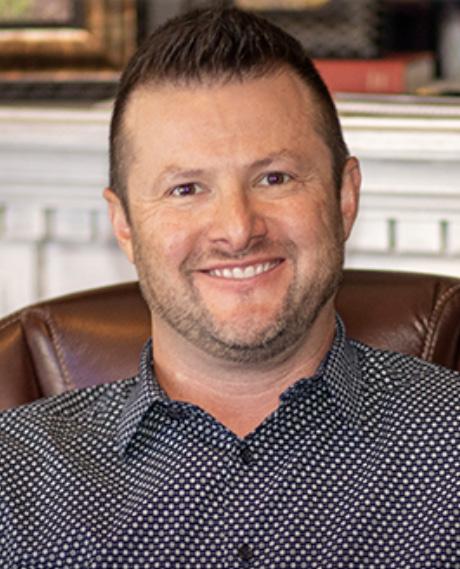
The home construction world runs in the family for builder Scott Lucas of Conway, who credits his uncle, a builder of custom homes in Central Arkansas for several decades, as a huge influence on him from a young age. Lucas, who was raised in Greenbrier and has lived all over Faulkner County his entire life, got his feet wet in the industry in 2003. In 2010, his own home business, Scott Lucas Construction, became a corporation. Before he knew it, he was building one home project after another. His is the dream story of a highly successful entrepreneur — to become a one-stop-shop for all things in the home industry.
Chad Matone, DDS
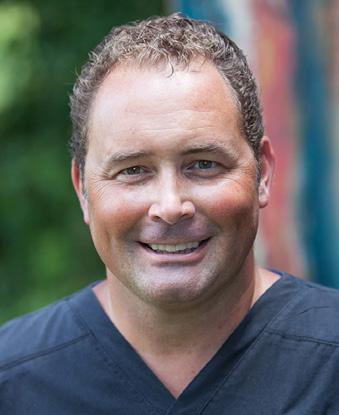
Owner
Arkansas Dental Centers
Helping people live healthier lives is a both a passion and a profession for Chad Matone, D.D.S., of Arkansas Dental Centers. He earned his Doctor of Dental Surgery degree in 2006 from the University of Tennessee Dental School. In 2014, he established Arkansas Dental Centers to bring various dental practices and partnerships into one collaborative group. He is a member of the Academy of General Dentistry, the Arkansas State Dental Association and the Arkansas State Chamber of Commerce. He is a graduate of Leadership Arkansas, and he founded an endowed scholarship for Arkansas residents at the University of Tennessee School of Dentistry.
Justin Minton
Founder Minton Law Firm
Minton Law Firm is a boutique, personal injury firm that takes pride in only accepting cases where it is sure its attorneys can add value for their clients. At its core, Minton Law Firm is committed to fighting in order to overcome the disparity between clients and large, economically powerful corporations and insurance companies.
The firm’s founder, Justin Minton, attributes his success to “a good balance of hard work and the people in my life.” As Minton sees it, his success is intertwined with the success of the community around him. That’s why Minton Law Firm handles many cases on a contingent or pro bono basis.

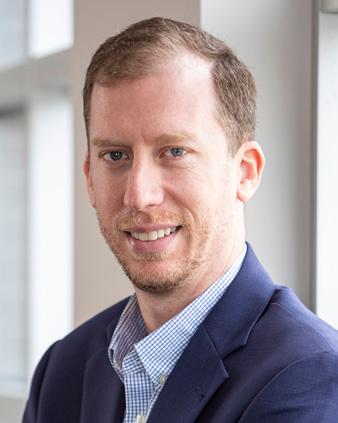
In addition to accessibility and communication, Minton Law Firm values truth and integrity at every step. The priority of every member of the firm is to “provide competent, truthful advice to clients, civility towards peers and candor towards the tribunals.”
Matt Nilles Senior Director of Global Products and Solutions
Euronet Worldwide
Matt Nilles serves as the senior director of global products and solutions at Euronet Worldwide, where he has been pivotal in spearheading instant payment solutions that champion financial inclusivity in emerging economies around the world. With a rich history in the payments sector, Nilles facilitated Euronet’s election to the Federal Reserve’s FedNow Service® Working Group. He expertly evaluates key M&A opportunities, is a sought-after voice in international forums and media publications and leads collaborations with major industry groups to shape the payment products of tomorrow.
Before joining Euronet, Nilles spent fifteen years with Acxiom, serving as an expert financial services and technology product strategist to Fortune 100 clients. Nilles earned an MBA from the University of Central Arkansas.
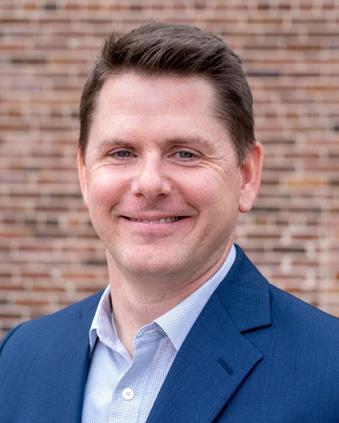
Telly Noel Sr. COO The Design Group
Underneath the surface of any successful professional, you will usually discover a strong, focused individual who does whatever is required to help clients reach their goals. Telly L. Noel Sr. is no exception.
A marketing veteran and serial entrepreneur, Noel serves as COO at The Design Group in Little Rock, a company he co-founded in 2007 that is dedicated to multicultural marketing and providing expertise to clients who desire to reach African American, Latino, urban and youth consumer audiences.
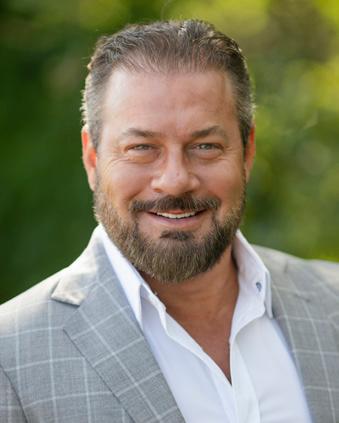

Bringing an energetic spirit and love of the marketing and advertising industries to his work, Noel makes the development of campaigns a positive and rewarding experience. His passion for joining the power of ideas, words, emotions and culture has produced significant results for local and national clients. His extensive knowledge of the advertising and marketing arenas, has gained him a reputation as an agent in great demand.
Thomas O’Banion Head of Marketing
First Orion
Thomas O’Banion is an accomplished marketing and communications professional with leadership experience that spans three decades. Throughout his career, O’Banion has been pivotal in developing award-winning marketing organizations and communication strategies in various industries, including healthcare, IT, aerospace and telecommunications.
In his current role as head of marketing at First Orion, he is responsible for developing and executing marketing strategies for one of the most innovative technology companies at the forefront of inventing products reshaping how all wireless subscribers experience phone calls. First Orion and its marketing organization have reached new heights since O’Banion’s arrival in 2021, which includes being listed on the Inc. 5000 fastest-growing companies list and fueling demand in an emerging market for businesses throughout the United States. First Orion has also experienced a remarkable 200 percent year-over-year revenue growth for its branded communication solutions.
Before starting his marketing and communications career, O’Banion studied at the University of Central Arkansas and served in the U.S. Navy.
116 ARMONEYANDPOLITICS.COM SEPTEMBER 2023 ACHIEVERS IN THEIR FORTIES
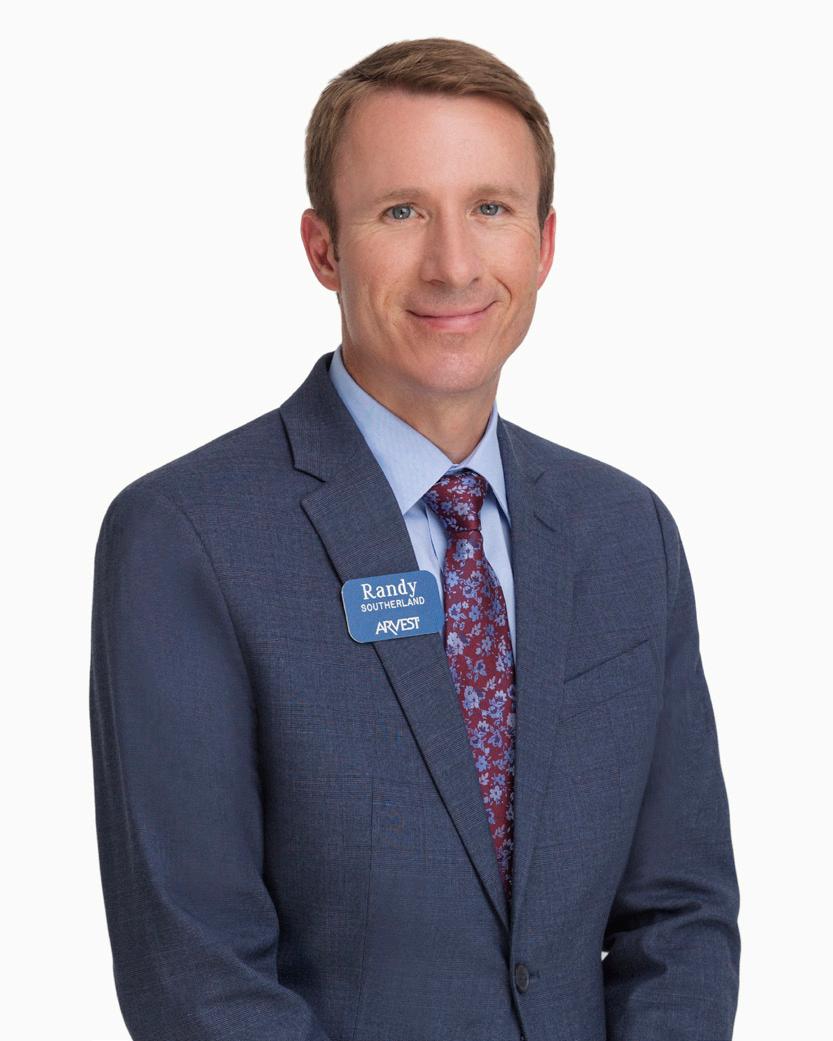


117 ARMONEYANDPOLITICS.COM SEPTEMBER 2023 CARTI’s cancer experts are the driving force behind our outstanding care. Oncologists like Grace Raja, M.D., put their all into ensuring their patients receive the best in cancer care. We’re proud to have Dr. Raja on our team, and proud to see her named in Arkansas Money & Politics’ Achievers in their 40s issue. Congratulations, Dr. Raja! LEADING-EDGE CARE FROM ARKANSAS’ MOST OUTSTANDING PROVIDERS. CARTI .com | 501.906.3000 CONGRATULATIONS, DR. GRACE RAJA!
Dan Oberste President and CEO BSR Real Estate Investment Trust
Dan Oberste is the president and chief executive officer of BSR Real Estate Investment Trust (BSR). Prior to becoming CEO, Oberste served as president and chief investment officer of BSR and its predecessor. Prior to joining BSR, Oberste worked as an attorney in the corporate practice group at Kutak Rock LLP.
He earned his undergraduate degree from the Sam M. Walton College of Business at the University of Arkansas and his Juris Doctorate from the Leflar School of Law at the University of Arkansas.
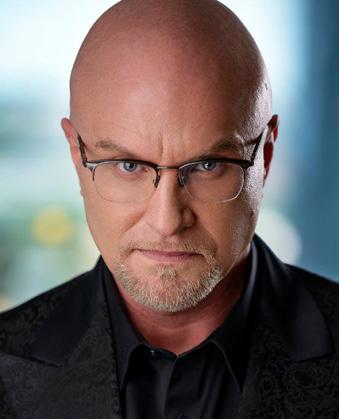
Ryan Orrell Founder

Webmonster
Webmonster.com is owned and led by search engine marketing veteran and Arkansas native Ryan Orrell, who founded Webmonster 22 years ago and helps corporate clients gain greater value and maximize profitability as an internet marketing visionary and advertising professional. Orrell is a certified search engine optimization strategist and award-winning web developer with a stellar reputation in crafting aggressive marketing campaigns designed to increase corporate profitability. He is the author of best-selling ebook, “Internet Millions,” and is a 10-time award winner in Web Design/Development from the Web Marketing Association.
A Lake Hamilton High graduate, Orrell is based in Hot Springs.
Brannon Pack Director of Cycling Tourism Experience Fayetteville
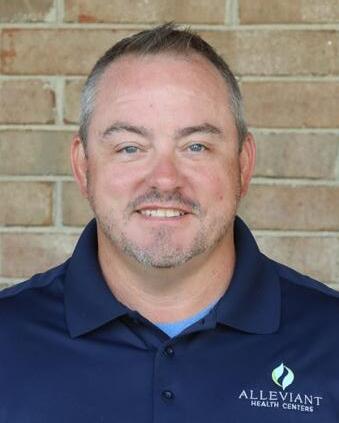
Brannon Pack is the director of cycling tourism for Experience Fayetteville, the destination marketing organization for Fayetteville. In his role, Pack oversees the organization’s cycling initiatives including community and business relationships, content development and event attraction and retention. Pack served as the projector director for the committee organizing the 2022 UCI Cyclocross World Championships in Fayetteville, successfully bringing the event to the United States for only the second time in its 72-year history. His work led to Fayetteville’s recognition as a UCI Bike City, an international designation awarded to only one other North American city.
Additionally, Pack is developing college curriculum and providing instruction to future outdoor professionals through the University of Arkansas’s outdoor leadership minor. A seasoned cyclist, Pack is teaching a skillsbased activity course on Bikepacking — a multi-day cycling discipline where camping gear is carried on the bicycle creating opportunities for more remote cycling experiences.
Lindsey Ponwith Owner, Director and Nurse Practitioner Revive Lifestyle Medicine
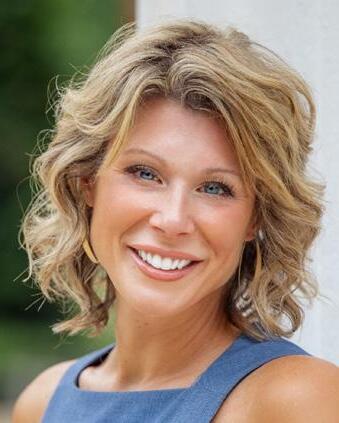
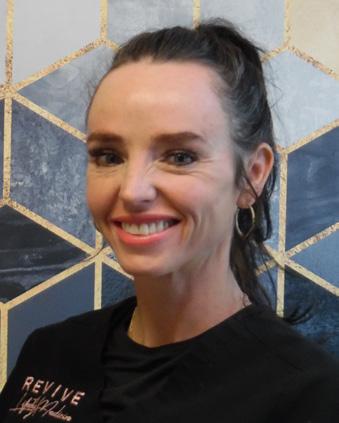

Lindsey Ponwith, APRN, is the health care director and clinician at Revive Lifestyle Medicine in Little Rock, a functional health care practice operated by Health Care Providers that includes nurse practitioners, physician assistants and nurses. Revive has grown significantly and serves more than 5,000 patients. Ponwith looks forward to the growth to come in the next few years while she expands her clinic structure and locations while maintaining a luxury family practice setting and holistic approach for Revive’s patient base. The business received designation as a Women-Owned Small Business in 2021.
Ponwith began her nursing career at Arkansas Children’s Hospital as both a floor nurse and a nurse practitioner in the Latino clinic. Ponwith has two bachelor’s degrees and a master’s degree, and she is pursuing her Doctor of Nursing Practice. She will certify as a member of the North American Menopause Society in October.
Kristi Price Executive Director of Institutional Affairs Lyon College
Kristi Price is the executive director of institutional affairs at Lyon College. As a member of the president’s executive cabinet, she currently manages the accreditation processes for the upcoming schools of veterinary and dental medicine and provides shared oversight for strategic planning and operations in the undergraduate school and the impending Lyon College Institute of Health Sciences in Little Rock. Price brings expertise from academic affairs, especially regarding student success and retention, having served as the first director of first year advising at Lyon.
With a B.A. in English from the University of Central Arkansas, she began her career in Magnolia at Farmers Bank & Trust, where she quickly learned the value of relationships and long-standing commitment to community. A multitude of roles at Lyon, plus her studies at the University of Missouri, where she is earning a M.Ed. in higher education leadership and policy analysis, have prepared her to lead with confidence and compassion.
Brian Rader Chief Strategy Officer Alleviant Health Centers
Brian Rader started at the Little Rock office of Alleviant Health Centers, which he helped grow to a national network of full-service mental health clinics, in 2018 as director of sales and business development manager.
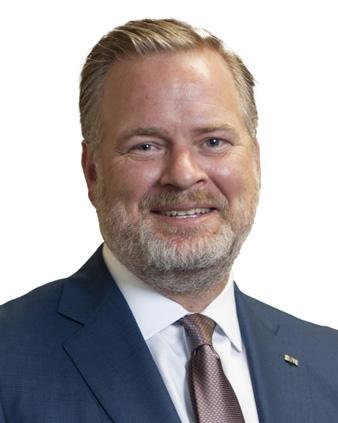
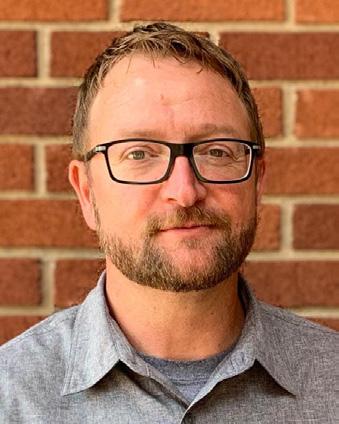
His role was to help grow each franchise through clinic introduction, ensuring each client’s needs are being met, and treatment education for potential referring providers and promote network clinics to end users. In 2020, he was promoted to chief strategy officer.
His focus on ensuring patient needs are being met was developed by his previous employment in the medical sales industry. Rader previously worked as territory manager for Verathon Medical and international business development director for Nanova. With Nanova, he developed medical and dental distributors domestically and in 12 international markets including South America, Canada, Africa, the Middle East and Asia.
Grace Raja, M.D. Medical Oncologist CARTI
Grace Raja, M.D. is a medical oncologist with CARTI, a not-for-profit multidisciplinary cancer care provider with 18 treatment locations across the state and Arkansas’ first dedicated cancer surgery center.
A team member for nearly a decade, Raja currently treats patients at the CARTI Cancer Centers in Conway and Little Rock. In 2021, she was appointed to serve on the CARTI Foundation’s board of directors, where she helps support fundraising efforts to reduce patients’ potential barriers to treatment and improve their quality of life. She completed her medical degree at the University of Texas at Southwestern Medical Center (UT Southwestern) and fellowships in hematology and oncology at the Keck School of Medicine at the University of Southern California and UT Southwestern. She is board certified in internal medicine and hematology/oncology.
118 ARMONEYANDPOLITICS.COM SEPTEMBER 2023
ACHIEVERS IN THEIR FORTIES


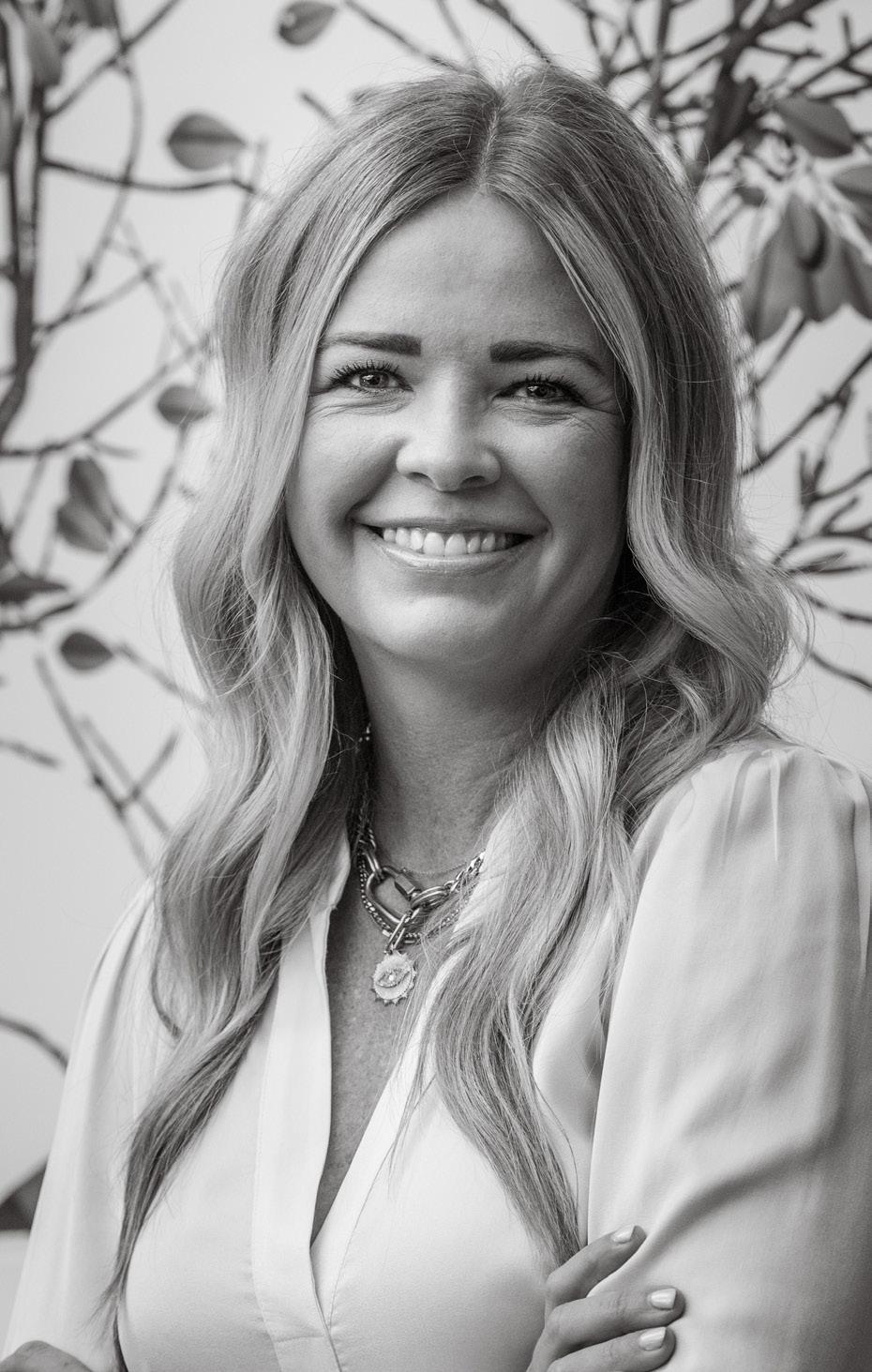

119 ARMONEYANDPOLITICS.COM SEPTEMBER 2023 3700 OLD CANTRELL ROAD, #101 LITTLE ROCK | 501.319.4554 The Fix Salon is proud to congratulate Natalie Blaney for being recognized as one of the outstanding professionals in this year’s class of AMP Achievers in their Forties. The Poultry Federation Proudly Congratulates Holly Duval Recognized as an Accomplished Achiever in Her 40s! 321 South Victory St. Little Rock, AR 72201 1(501) 375-8131












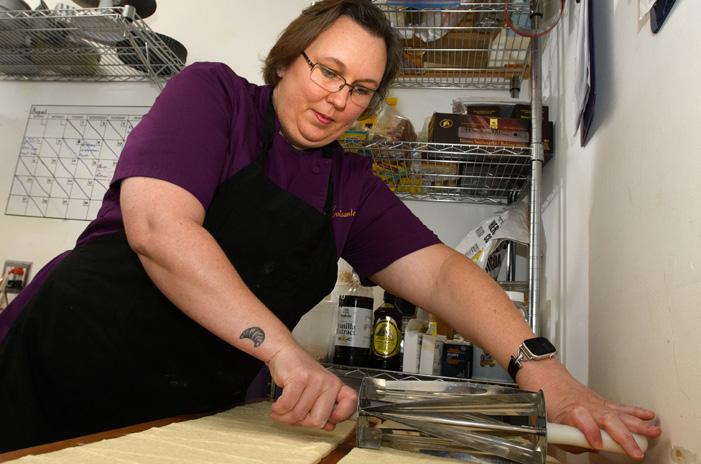

120 ARMONEYANDPOLITICS.COM SEPTEMBER 2023 Ready to Ride? Scan for Routes For an Authentic Gravel Cycling Experience in Northwest Arkansas, You Gotta EXPLORE ROADS LESS TRAVELED. 14710 Cantrell Rd, Little Rock 501-412-4244 chefs@thecroissanterielr.com for being named one of AMP’s 2023 Achievers in their Forties! Best Bakery • Best Breakfast • Best Dessert • Restaurant Congratulations
Wendy Schay Owner




C O N G R A T U L A T I O N S on being chosen for AMP's Achiever's in their 40's 2023 Class! J A C O B J O N E S A R K A N S A S ' P R E M I E R D I A M O N D , B R I D A L & F I N E J E W E L E R 855-901-7464 www.JonesandSon.com
Kymberlie Reed Financial Advisor
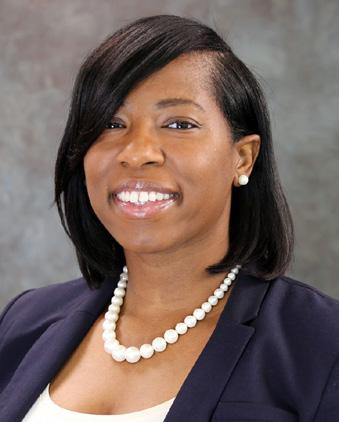
Small & Associates Financial/Ameriprise
Kym Reed is a distinguished financial advisor in Arkansas, recognized as one of the best in 2023. With a Certified Military Financial Advisor certification acquired last year, she has exhibited dedication to her craft. Her 17-year tenure at Ameriprise showcases her commitment to clients’ financial well-being. Her team’s passion for financial planning is evident by the recognition in Forbes as one of the Best In State Wealth Management Team’s for 2023. Reed’s passion for guiding clients towards their financial aspirations drives her work.
Blake Rickman
Vice Chancellor for University Advancement/ Executive Director, UAFS Foundation University of Arkansas at Fort Smith
Since 2019, Blake Rickman has been vice chancellor for university advancement and executive director of the UAFS Foundation at the University of Arkansas at Fort Smith. Under his leadership, the UAFS Foundation’s endowment grew from $78 million to $130 million, highlighted by an institutional record $18.7 million gift from the Windgate Foundation. Before his time at UAFS, he spent 10 years at the University of Arkansas, Fayetteville, where he led efforts to secure $120 million from the Walton Family Charitable Support Foundation to endow and establish the School of Art, which at the time was the largest outright gift to the visual arts in the history of American higher education.

Outside academia, he contributes to boards like Mercy Hospital of Fort Smith, the Community Services Clearinghouse, the Clayton House and CASA of Sebastian County. A Fort Smith native, Rickman is a supporter of the Fort Smith Boys and Girls Club and holds degrees from Arkansas Tech University and the University of Arkansas.
Wendy Schay
Co-owner
The Croissanterie
Wendy Schay is an American Culinary Federation
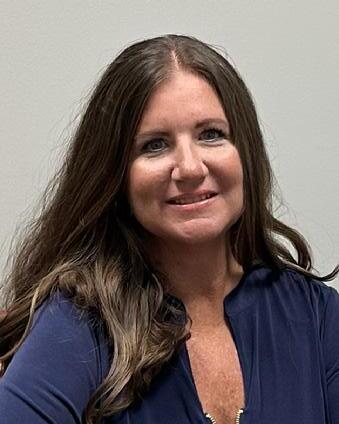
(ACF) Certified Executive Pastry Chef and co-owner of The Croissanterie in west Little Rock. In 2019, Schay and her co-chef, Jill McDonald, started selling croissants and other fresh breads at local farmers markets before opening a food truck followed by a brick-andmortar restaurant in March of 2022. They have built a menu of authentic French pastries mixed with Southern comfort cuisine, offering catering, custom cakes and serving breakfast and lunch Wednesday through Sunday.
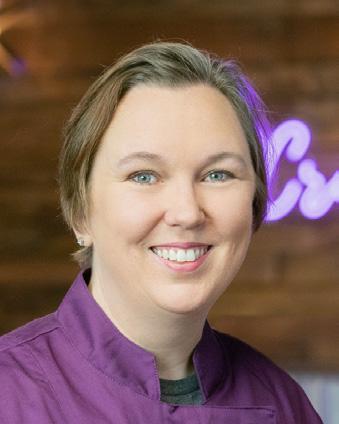
After just one year in its brick-and-mortar location, The Croissanterie was named the Little Rock Regional Chamber Small Business of the Year 2023. Prior to owning The Croissanterie, Schay competed in baking and pastry competitions across the country. She has won numerous awards, including Gold Medals for SkillsUSA Arkansas Commercial Baking 2014 and 2015 and ACF Central Arkansas Chefs Association Pastry Chef of the Year 2016.
Aaron Scott Principal Architect
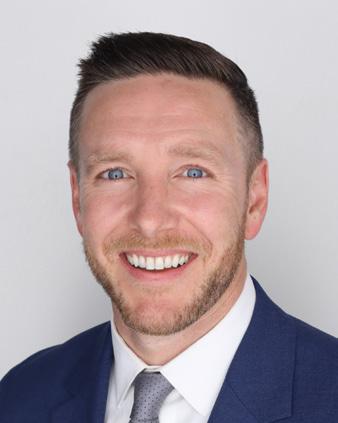
Cromwell Architects Engineers
As director of Cromwell’s health care practice, Aaron Scott brings 21 years of experience in medical planning and architectural design. He first joined Cromwell as a summer intern, and after returning in 2005, was added to the firm’s board of directors in 2021. He’s held leading roles on projects for medical clients from hospital systems and physician-owned clinics to ambulatory surgery centers and imaging suites in Arkansas, Missouri as well as DoD projects across the
U.S. and abroad. Under his leadership, Cromwell was named a top 50 Healthcare Design firm by Building Design + Construction magazine in 2022. A Jonesboro native, Scott received his Bachelor of Architecture from the Fay Jones School of Architecture and Design at the University of Arkansas. He is a 2017 graduate of Leadership Arkansas Class XI, currently serves as VP of the Historic Arkansas Museum Foundation Board and is active in AIA Arkansas’ MERGE mentoring program.
Karrie Sharp Manager
American Abstract and Lenders Title
Karrie Sharp is a highly experienced and dedicated manager in the title insurance industry, handling title work for American Abstract and Lenders Title. She has a long history of producing title commitments and manages a team of researchers and policy writers. Additionally, she balances her professional life with her role as a mother of two children, one of whom is also in the title business. Sharp is known for the ability to handle her responsibilities both at work and at home.
Tommy Sisemore Executive Director Bikes, Blues & BBQ
Tommy Sisemore is executive director of Bikes, Blues & BBQ, the world’s largest charity motorcycle rally, which benefits women, children and the underserved members of the Northwest Arkansas community. The event takes attendees to scenic areas throughout the region including the Pig Trail, downtown Rogers and Eureka Springs. Since 2000, the rally has raised $3 million for local nonprofit organizations. The 2023 Bikes, Blues & BBQ, which runs Sept. 20 to 23, will feature live music, vendors, Harley-Davidson demo rides and a barbecue competition. More information is available at bikesbluesandbbq.org.
Tywanna Smith President
The Athlete’s Nexus
Dr. Tywanna Smith is an award-winning sports manager, filmmaker, best-selling author and speaker. For more than 16 years, she has worked with NBA, NFL, WNBA and overseas athletes. As president of The Athlete’s Nexus, Smith’s expertise includes business management, professional development and branding. She also is an inspirational speaker, having led keynote speeches with the NFL, the Black Student-Athlete Summit and the 2022 Ole Miss MBA Commencement. Her work has been featured at the L.A. Times Festival of Books, Forbes and other media. She a member of Delta Sigma Theta Sorority and leads the Tywanna Inmon-Smith Scholarship.
Randy Southerland
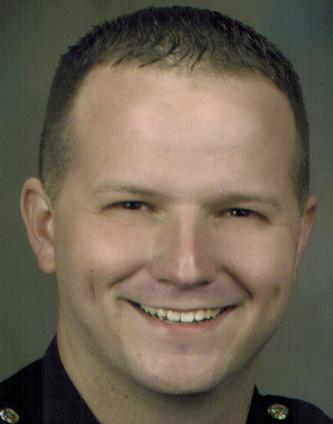
North Little Rock Market Manager, Senior Vice President

Arvest Bank
Randy Southerland serves as North Little Rock market manager for Arvest Bank. In leading the North Little Rock market, Southerland is a banking professional who works with commercial clients to provide lending, financial solutions and recommendations for their businesses among other responsibilities. He has more than 17 years of experience in the banking industry, serving businesses in the North Little Rock market for the last 13 years.
Southerland joined Arvest in 2013. He obtained his undergraduate degree in business administration with an emphasis in finance from Ouachita Bap-
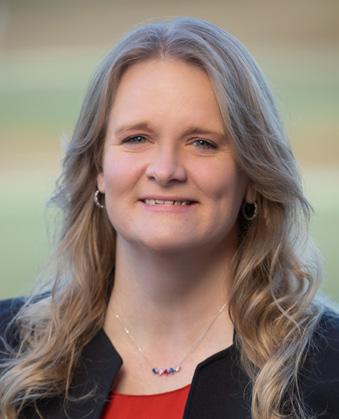
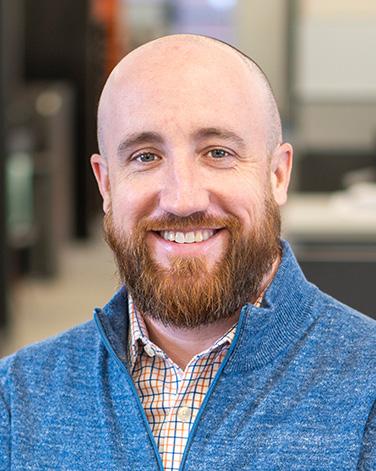
122 ARMONEYANDPOLITICS.COM SEPTEMBER 2023 ACHIEVERS IN THEIR FORTIES


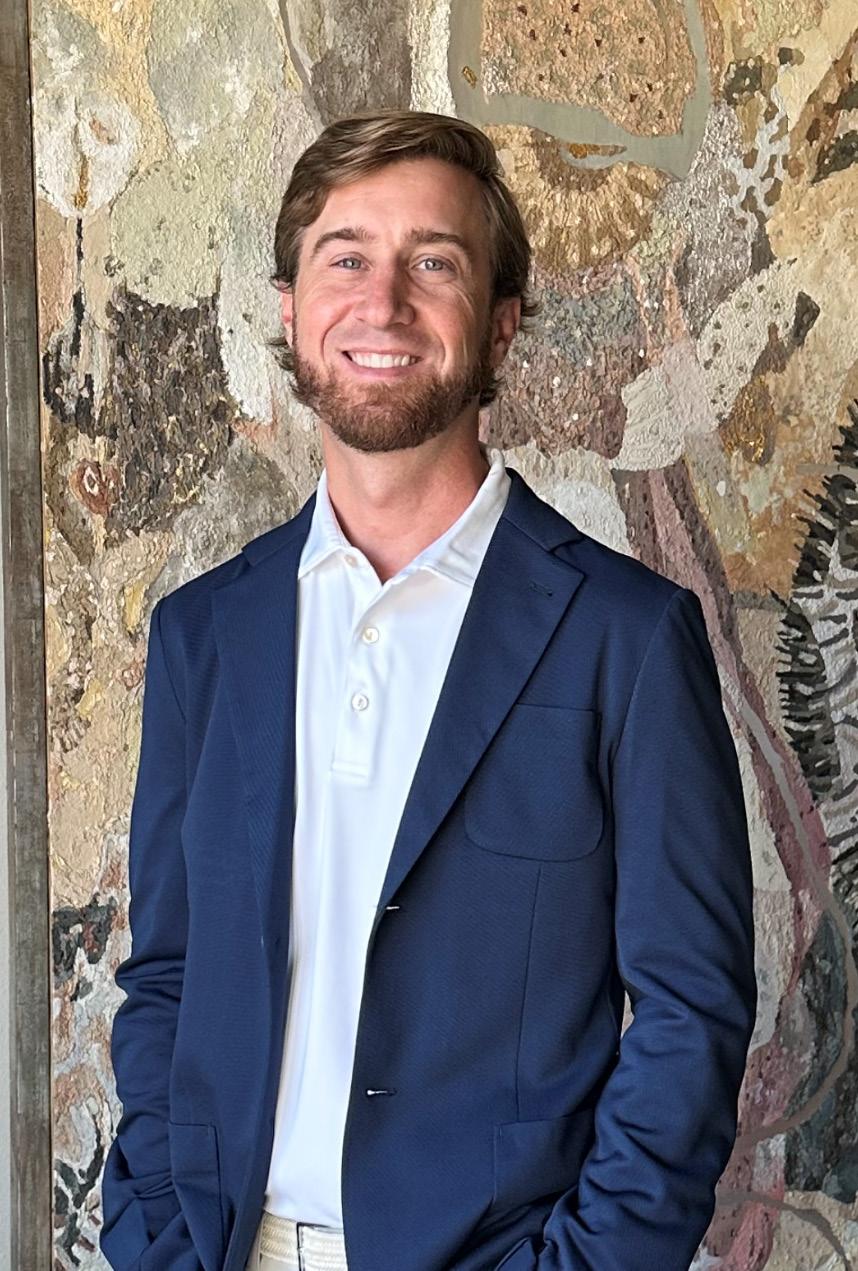
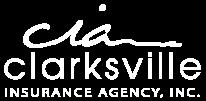

123 ARMONEYANDPOLITICS.COM SEPTEMBER 2023 ANDREW LEWIS Principal Agent 479-979-2204 andrew@clarksvilleinsagency.com Congratulations Since 1947, Clarksville Insurance Agency has thrived as an independent agency. The agency prides itself in prompt, professional service, with a focus on protecting clients with comprehensive insurance portfolios ranging from personal lines, to small, mid-size, and large business insurance. Lewis continues to lead the agencies to top rankings in the state with an entrepreneurial approach with the ever changing industry. 715 W Main St, Clarksville, AR 72830 COMMERCIAL • HOSPITALITY • CONSTRUCTION • MEDICARE
tist University. He also holds a FINRA Series 7 license, an NASAA Series 66 license and licensing in Accident Health & Sickness, Life and Variable Products. Southerland serves on the boards of the North Little Rock Chamber of Commerce and the Arkansas Aerospace & Defense Alliance.
Errin Stanger CEO Arkansas Innovation Hub
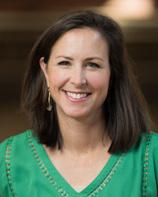
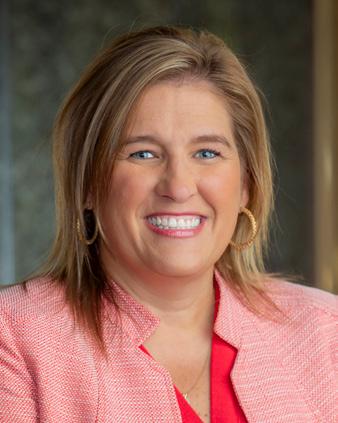
Errin Stanger is director of the Arkansas Regional Innovation Hub at Winrock. The Innovation Hub is a nonprofit organization dedicated to improving the lives of Arkansans by inspiring innovation and expanding opportunities. Since the Hub’s opening in 2014, its state-of-the-art facilities have provided tools and training to entrepreneurs, students, and other makers, preparing them to join and grow Arkansas’s economic ecosystem. Prior to her current role, Errin served as the Hub’s deputy director and has worked in various capacities since the Hub’s founding. She has extensive experience in nonprofit organizations including the Arkansas Children’s Hospital Auxiliary, the Argenta Arts Council, Argenta Community Theater, the American Heart Association and Susan G. Komen for the Cure. She has a bachelor’s degree in biology from Rhodes College in Memphis, where she minored in urban studies.
Scott Taylor Branch Manager Mortgage Financial Services

Scott Taylor is a branch manager at Mortgage Financial Services, which he joined in February of 2019. With 10 years of mortgage lending experience and 15 years of total lending experience, Taylor led his branch to be the number one producing branch for Mortgage Financial in 2021, and he was personally honored as the second top producing loan officer in the company in 2022. He has been recognized for the past three years in the prestigious Scotsman Guide as one of the top producing loan officers in the nation.
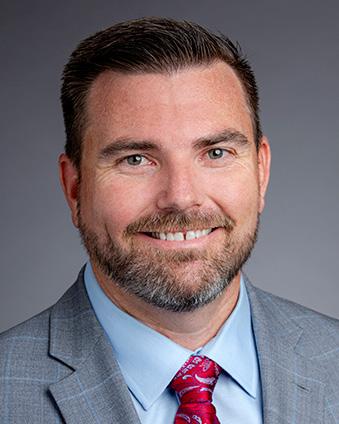

Taylor strives to treat every customer he works with the way that he would want to be treated, guided every step of the way by his core values of truth, transparency and honesty. He earned a bachelor’s degree in business management from the University of Arkansas at Little Rock.
Ryan Walmsley President of the Fabrication Group Lexicon Inc.
Ryan Walmsley has been an integral member of the Lexicon Inc. team since 2019. After four years of steady, focused leadership with the company, in March 2023 he was promoted from vice president to president of the company’s Fabrication Group, which includes Custom Metals, Prospect Steel and Steel Fabricators of Monroe. In this role, Walmsley leads the fabrication and erection teams on commercial and industrial projects, which are the company’s largest business lines.
With 20 years of experience in the steel industry, Walmsley has played a key role in numerous Lexicon projects, including the fabrication and erection of the new Tesla manufacturing facility in Austin, Texas; fabrication of a new steel mill in Brandenburg, Ky., for Nucor Steel; large Amazon sortation buildings in multiple states; and fabrication of a new steel mill in Osceola for Big River Steel. Before joining the company, Walmsley served as project manager and director of sales and estimating at LPR Construction Co. in Loveland, Colo. He graduated from Colorado State University with a degree in construction management.
Mitch Ward Owner Red River Dodge
CEO Mitch Ward and his father, Dennis Ward, purchased the Dodge Chrysler Jeep Ram (DCJR) dealership in Heber Springs in 2005. Dennis Ward started in the car business in the ‘70s, and the two had already worked together in the used car business in Jacksonville for years before starting Red River.
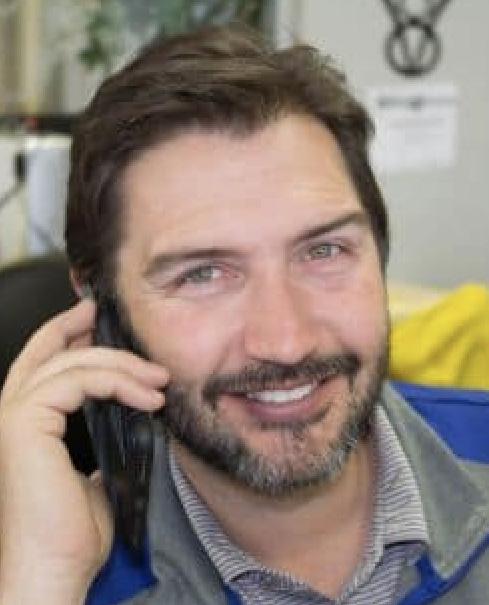
Red River grew from selling six vehicles a month to now selling 250-300 vehicles a month out of Heber Springs. Ward considers his first big break to be the purchase of a new store in Heber Springs. He describes the automotive sales and service industry as “active, fun and risky with rewards.” Ward considers one of his greatest achievements being named the No. 1 new DCJR dealership, as customers always tell him that Red River represents their best buying experience.
Ben Wellons President and Lead Developer Wellons Real Estate
An Accredited Land Consultant (ALC), Ben Wellons has carved out a reputation as an industry leader both locally and across the country. He has received top commercial broker awards for land sales in Arkansas — including some of the state’s premier waterfowl tracts — and ranks among the top 20 land brokers in the United States.
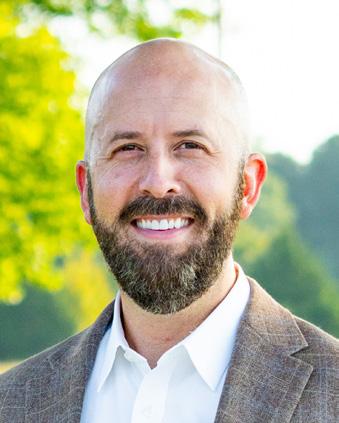
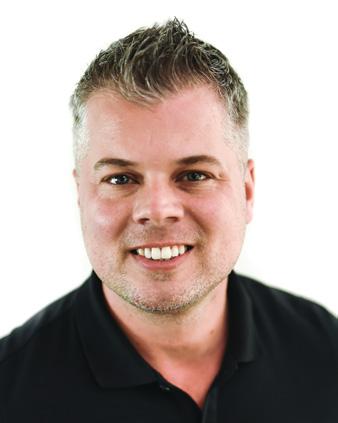
Wellons attributes his company’s success to his team’s unique approach to partnering with clients. He says his is the only company in Arkansas that not only specializes in recreational properties, timberland and agricultural real estate, but also assists landowners in creating a vision and implementing development strategies for their properties.
Wellons tells his clients, “If you can dream it, we can make it happen.”
Victor Werley Founder Pinnacle Advisors
Victor Werley founded Pinnacle Advisors in 2003 and has been practicing as a financial consultant since that time. He has a bachelor’s degree in psychology from Lyon College in Batesville, AR. He is a Certified Financial Planner, a Chartered Financial Consultant, a Certified Divorce Financial Analyst, a Certified Valuation Analyst, a Master Analyst in Financial Forensics and a Certified Fraud Examiner. He and his team focus on providing quality valuation and analysis for both families and businesses. He has provided analysis on topics ranging from mergers and estates to litigation and private equity transactions. Werley is a native of Arkansas and serves as vice chair on the board of directors for Lyon College.
Amy Williams Regional Manager, Northeast Region Arkansas Economic Development Commission
Amy Williams is a dedicated professional serving as the community development manager for northeast Arkansas at the Arkansas Economic Development Commission. With a passion for fostering growth and prosperity, she has been a driving force in advancing economic initiatives and enhancing community development in the region. Her leadership and advocacy extend beyond the office, demonstrating her genuine desire to make a lasting, positive impact on the lives of those around her. Williams’ ability to inspire and lead by example sets her apart as a professional in community and economic development. She is an active volunteer
124 ARMONEYANDPOLITICS.COM SEPTEMBER 2023
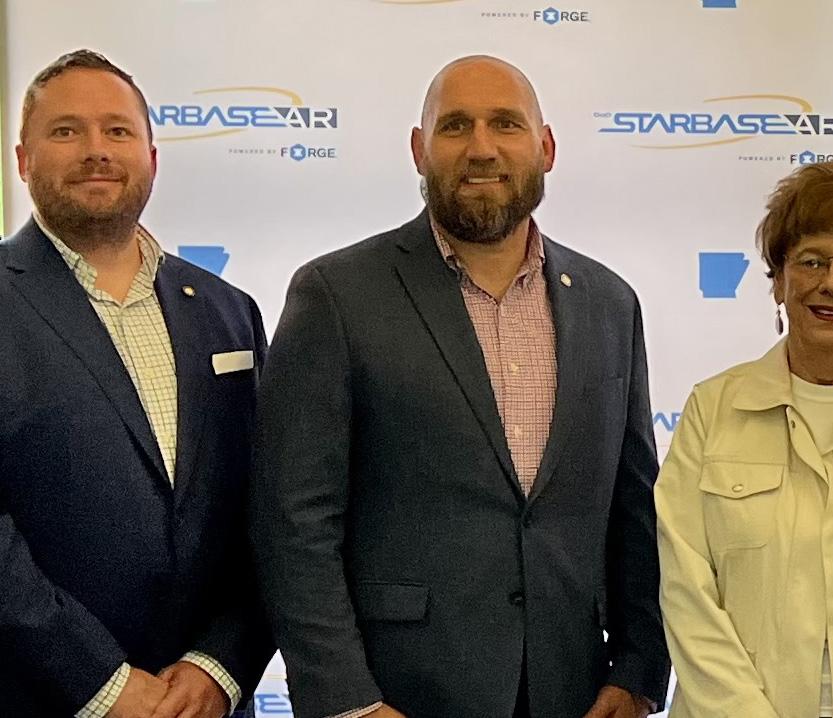
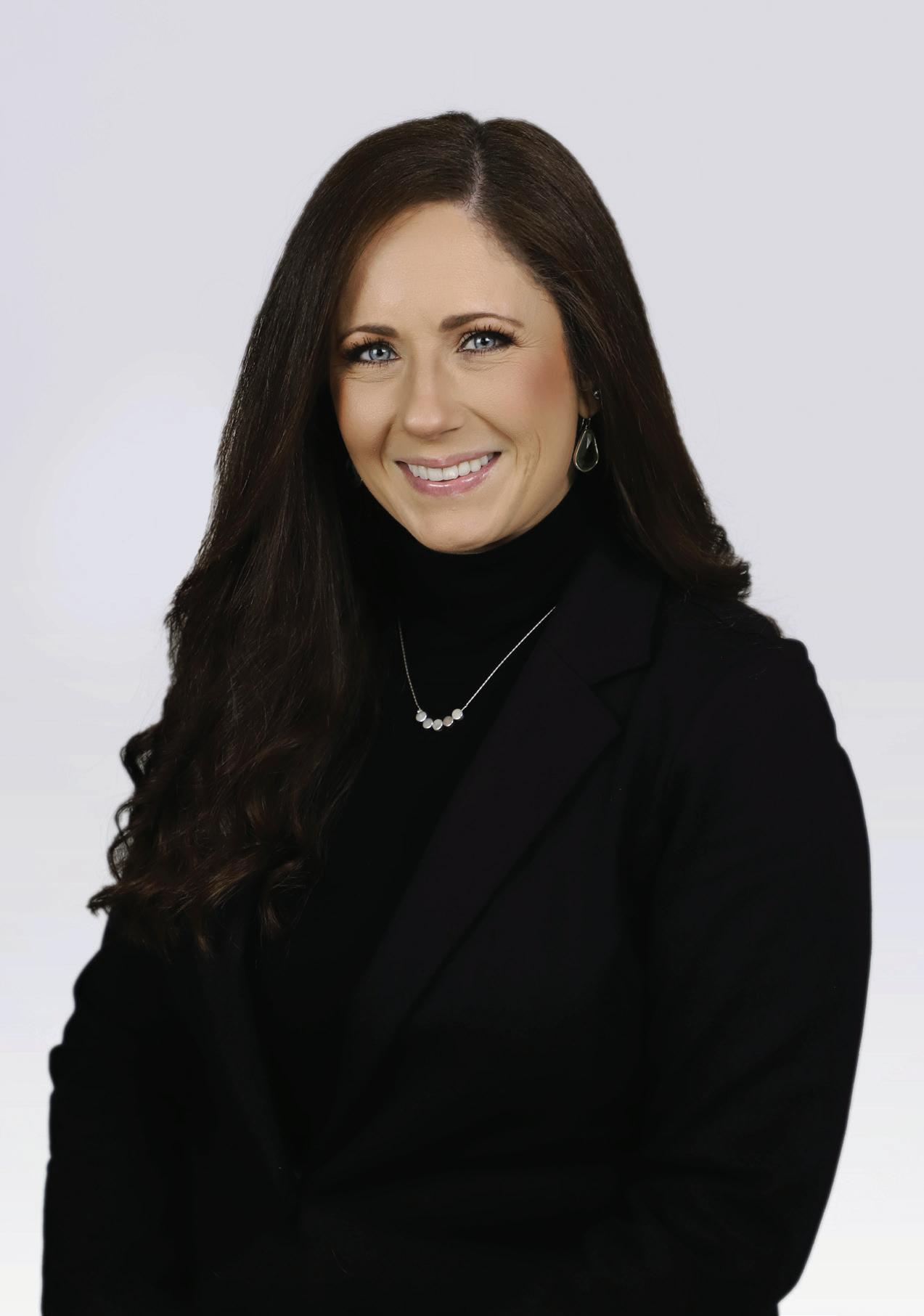

125 ARMONEYANDPOLITICS.COM SEPTEMBER 2023 A M A N D A H EN
D SE A R C Y M E DI C A L CE N TE R A D M INIS TR AT O R o n b ei n g na m e d a m on g th e 20 2 3 Ar kansa s M o n e y & P ol iti cs A c hi e v ers i n t h e i r 4 0 ’ s .
A R
with Main Street Arkansas, Little Rock Air Force Base Community Council, Arkansas State University and Williams Baptist University.
Wendy Williams






Owner
Fyzical Therapy

Wendy Williams is co-owner and COO of FYZICAL Conway, a therapy and balance center. She knows all too well how to multitask and balance her time, thanks in part to a patient she will never forget. “I once had a patient who was a CEO of a Fortune 500 company,” she recalls. “He told me that setting boundaries on work hours everyday is the biggest gift I could give my family and myself. There are always exceptions, but all in all, this boundary makes life much more enjoyable because we can all work around the clock and miss special time. This proved to be true in that the uninterrupted time with family and friends has been a blessing.”

Williams says she honors this with employees, taking care to make sure their family time is sacred as well.
Mark Wilson


President and COO
FAB&T
Mark Wilson, brother to fellow 2023 Achiever Patrick Wilson, will tell you that he’s been in banking for “47 years — basically all of my life.” However, he didn’t officially start with FAB&T until he began working as a teller during the summers of his high school years. In 2001, Wilson began as a loan officer and has held several positions since, including supervising online banking, debit cards, retail services, the customer service call center, loans and credit cards. Now, as president and COO of FAB&T, he oversees commercial and
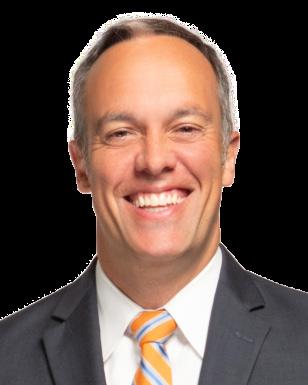
consumer lending activities, the bank’s retail network of 21 Arkansas locations, and the bank’s credit card-issuing operation in Kennesaw, Ga.



A native of Jacksonville, Wilson is a graduate of Hendrix College with an MBA from the University of Arkansas. He also is an avid woodworker and the co-owner with his wife, Rebel, of Cliffdale Cottage, which specializes in quality, handmade home furniture and goods.

Patrick Wilson







Partner


Wright Lindsey Jennings
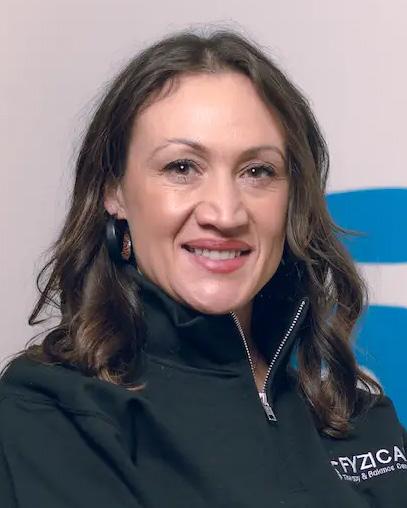
A Jacksonville native, brother to fellow 2023 Achiever Mark Wilson and graduate of Catholic High, Patrick Wilson has a law practice centered around construction, banking, contract matters and other commercial disputes, and he also assists clients in the defense of general negligence, real estate and other litigated disputes. Through his construction practice, Wilson assists owners, general contractors, subcontractors, architects, engineers, material suppliers and homeowners with lien issues, contract disputes, alleged negligence in the construction of buildings and homes, securing payment on projects and other related issues.
Wilson regularly assists large and small material suppliers and professionals with filing and foreclosing on materialmen’s liens and represents owners of construction projects and contractors in attempting to defeat lien claims. Since 2021, he has been selected for inclusion in The Best Lawyers in America© in the field of Construction Law. He also received the “Lawyer of the Year” in Little Rock designation for 2023 in the construction law practice area.


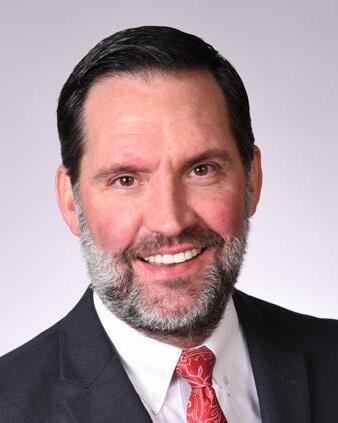
TO AMP


SMOOTH OPERATOR
126 ARMONEYANDPOLITICS.COM SEPTEMBER 2023
ACHIEVERS IN THEIR FORTIES
One of the reasons the Operations Department of Stone Bank runs so smoothly is the leadership of Latrecia Carroll. We
appreciate
her calm demeanor, even under pressure, and the work ethic example she sets for everyone on her team.
STONEBANK.COM Our mission is to provide the most relevant information in the world of business and politics. Go to armoneyandpolitics.com and click on the subscribe tab. Only $28 a year! SUBSCRIBE
Latrecia Carroll, Senior Vice President & Operations Manager





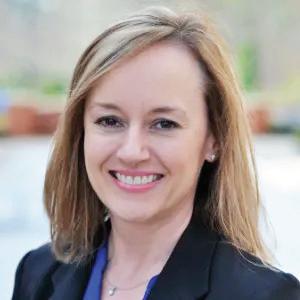








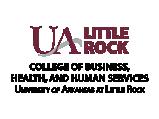

















Join us as we showcase the amazing achievements of our program participants, graduates and community partners. Featuring DINNER WITH SIGNATURE COCKTAILS, BEER & WINE LIVE & SILENT AUCTIONS KEYNOTE ADDRESS BY JAY CHESSHIR, PRESIDENT & CEO, LITTE ROCK REGIONAL CHAMBER A LIVE PERFORMANCE BY THE ULTIMATE PRINCE TRIBUTE BAND AND MORE! FOR TICKETS OR SPONSORSHIP INFO, SCAN OR VISIT THEGALAFORGOOD.ORG Troy Wells PRESIDENT & CEO OF BAPTIST HEALTH 2023 Spirit of Goodwill Award Recipient The Spirit of Goodwill Award is an accolade that recognizes an individual who has devoted their time, talent and effort to advocate and promote Goodwill’s mission. Cathy Tuggle 2023 Gala for Good Event Chair Cathy Tuggle is a long-time supporter and friend to Goodwill Industries of Arkansas and will serve as the inaugural Gala for Good Event chair. Saturday, October 28 6 pm - 10 pm THE VENUE AT WESTWIND | NORTH LITTLE ROCK Presented By DIAMOND SPONSOR PLATINUM SPONSORS ENTERTAINMENT SPONSOR GOLD SPONSORS SILVER SPONSORS
THE

DIFFERENCE
SMALL BUSINESS
Leis Creek Cattle Co. in Clinton raises Red Angus and Akaushi cattle.
(Photos provided)
IS ‘OBVIOUS’
Leis Creek Cattle banking on prime cuts
 By Steve Spencer
By Steve Spencer
tep into the new Leis Creek Cattle Farm to Fork retail location two doors down from Burge’s in Little Rock’s Heights neighborhood, and one is struck by how clean and bright everything is. Leis Creek is an uncluttered butcher shop carrying premium cuts of beef, pork and sausage products. The New York Strip acts nonchalant under the glass case for such a prime cut. The counter woman slips over: “The difference will be obvious from the first bite.” One really isn’t given a choice.
In 2013, when Steve Landers Jr. got out of the automotive business, he and his wife, Karmen, thought they’d buy a few acres away from town, plop down a handful of cows and relax. But they quickly came to love the cattle business and became fascinated by newer approaches to raising herds. Over the years, they couldn’t help but expand here and there. Before they knew it, their cattle farm near Clinton was spread out over 1,000 acres, and they were hosting 200 head of what they call mama cows — cows that give birth to calves just about every year.
The Landers’ soaked up all the research on emerging theories and practices in the cattle industry that they could get their hands on. Remember the wornout question of nature versus nurture?
Well, it’s been effectively put to pasture by the realization that it is the interplay between nature and nurture that ultimately matters. So, the Landers’ invested in genetically superior breeds, Red Angus and Akaushi, and adopted cow-raising methods that have been proven to result in better, more tender beef.
The Red Angus breed is well known, even to casual consumers of beef prod-
ucts. Steve Landers prefers it to Black Angus. Akaushi was originally developed by herders working for the emperor of Japan to be able to thrive in certain regions there that had not been hospitable to the raising of cattle. The first Akaushi cattle were brought to America in the mid-1970s but were not imported in significant numbers until 1994. They are still purebred.
The crossbreeding of Akaushi with Red Angus has been shown to produce a product with an acclaimed taste and surprising nutritional benefits. The distinctive marbling of Leis Creek’s beef cuts gives it a signature buttery flavor. The structure of the fats of these crossbreeds contains a high concentration of monosaturated fats, often referred to as “good fats.” Studies have shown that the monosaturated fats and oleic acid are more plentiful in the Angus-Akaushi product than in other breeds. Oleic acid is what makes olive oil so healthy.
According to Chad Mooney, Leis Creek Cattle’s general manager, not only are Leis Creek cattle vegetarians, but “they don’t
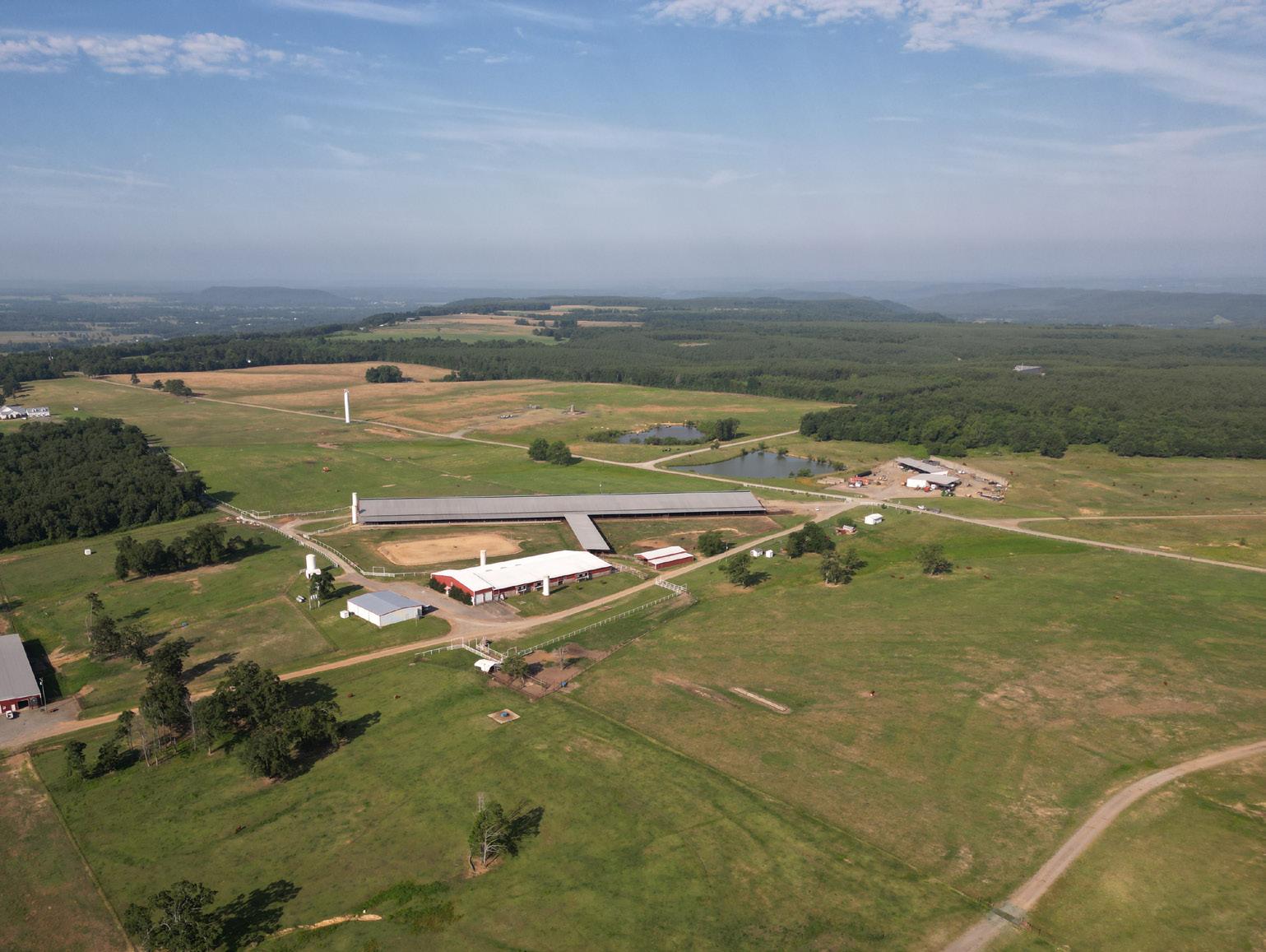

130 ARMONEYANDPOLITICS.COM SEPTEMBER 2023
S
even see any antibiotics, hormones or GMO feed.” Studies have shown that the largest single factor in determining the nutritional profile of a cut of beef is the diet of the bovine.
“All the corn we buy to mix our feed is GMO free, no sprays, no additives of any kind,” Mooney said. “Their diets are as all natural as you can get in this business.”
Leis Creek calves are raised gently, and they are grown slowly.
“We’re committed to creating a low stress environment, using precise husbandry practices,” Mooney said. “This means, for instance, that they learn how to get cows to move where they want them to go without prodding them, poking them or otherwise irritating them. There’s a whole set of techniques that must be learned and implemented to dial down the level of anxiety on a cattle farm. The less stress on the cattle, the better the end product.”
According to Mooney, the end result of all this careful treatment of the animals and focus on genetics is “cuts of beef that are high-end, high quality, all natural and local.”
Leis Creek Cattle started off sending its mature cows off to nearby butchering operations for processing, but Mooney said that during COVID, there was a supply chain breakdown.
“You couldn’t get cattle processed,” he said. “All of the cattle processors were behind at least six months.”
Then an opportunity to buy an established meat processor presented itself — an operation called Local Farm to Fork Butcher Shop. It included five retail stores spread out across the state: Cabot, Conway, Jonesboro, Pleasant Plains and Searcy.
“We kept every employee who was working there, and the majority of those people are still working for us,” Mooney said.
The recent opening of the Heights location seemed like an obvious move, he added. “We’re looking at new stores. Steve and Karmen would love to bring this prime cut concept to Saline County. We could see any number of possibilities for stores in the northwest part of the state.”
Leis Creek has supplied a few of the premier restaurants in Central Arkansas with prime cuts including Arthur’s Prime Steakhouse. “It’s definitely something that we will do more of going forward,” Mooney said.
Cattle industry sources show a stagnating overall market for beef in the United States. For the second half of 2023, production is projected to fall slightly, but within this protein sector, prime cuts have been experiencing impressive growth curves. The U.S. Department of Agriculture pegs the premium segment at just more than 10 percent of the beef brought to market in this country. This growth is expected to continue due to the nutritional and environmental factors.

131 ARMONEYANDPOLITICS.COM SEPTEMBER 2023
Steve Landers Jr. and his wife, Karmen, started Leis Creek Cattle Farm in 2013, and the farm now encompasses more than 1,000 acres.
The distinctive marbling of Leis Creek’s beef cuts gives it a signature buttery flavor.
The structure of the fats of these crossbreeds contains a high concentration of monosaturated fats, often referred to as the ‘good fats’.
Leis Creek Cattle Co. offers a farm-to-fork restaurant in Little Rock’s Heights neighborhood.

POLITICS
YOU SAY YOU WANT A REVOLUTION
State representatives look to encourage more women in office
 — By Dwain Hebda
— By Dwain Hebda
Amemo to women looking to have a seat at the legislative table at all levels of government: your time is now.
According to the Center for American Women and Politics, these are unprecedented times as far as women in elected office.
In 2023, a record number of women are serving in Congress (150), statewide elected posts (95) and as governor (12). Women also hold 32 percent of municipal offices in cities over 10,000 in population, hold a quarter of mayoral offices in cities over 30,000 and are mayors in a third of the 100 mostpopulus U.S. cities.
serving in their state’s legislature at 23 percent, about on par with North Dakota and Wyoming. Southern states occupy the bottom five slots in the nation, including Alabama (17 percent), South Carolina (15 percent), Tennessee (14 percent) Mississippi (14 percent) and West Virginia (12 percent). Nevada leads on this measurement with more than 60 percent female state legislators.
Recognizing the strides to be made in encouraging more gender diversity in the statehouse, female members of the Arkansas House of Representatives formed #ARGIRLSLEAD in 2018. The purpose of the initiative was to encourage and in-
The growth in the numbers of women in state legislatures has been particularly striking. CAWP reports more than 2,300 female state legislators currently in office, or 33 percent of seats nationwide. The total is more than quintuple the number of such elected officials seated in 1971.
At first blush, Arkansas is right in step with this new feminist movement, as for the first time in the state’s history, both the governor and lieutenant governor are women, with the latter election having been contested between two female candidates.
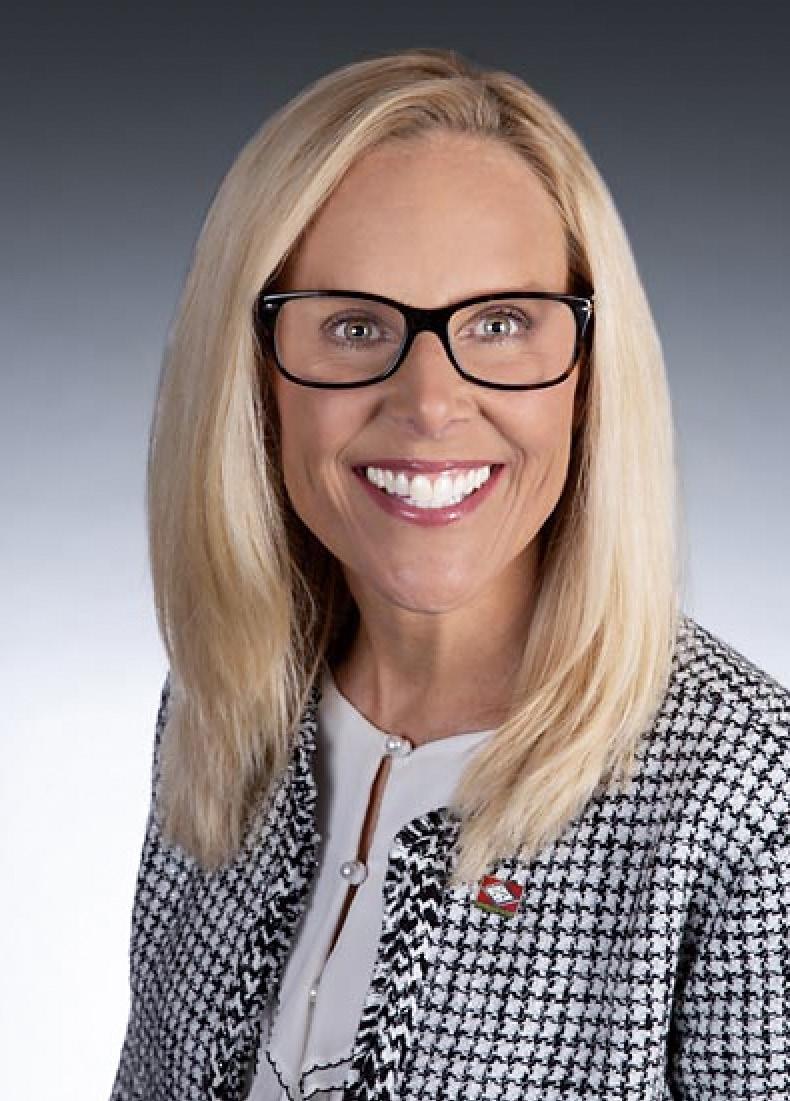
Beyond that, the numbers show Arkansas has some catching up to do. As CAWP reports, Arkansas ranks in the bottom 10 states as far as women
spire women and girls to seek positions of leadership and elected office following the examples of the seated legislators.
“My first year, 2017, was a historic year for women in the Arkansas legislature,” said Rep. Carol Dalby (R-Texarkana). “We had the largest number of women in the House that we’ve ever had, but it took us a number of years to get to that historic point, and considering women still make up 50, 51 percent in the state of Arkansas, it was still a relatively low representation.

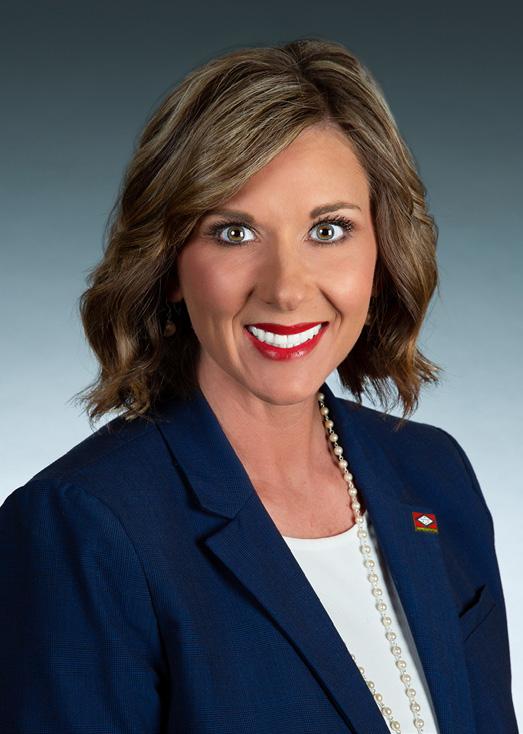
“My colleague, Sarah Capp, who has now gone on to become a district judge over in Franklin and Johnson counties, wanted to do something about that, and we talked about it. We just felt like it was important to do something to encourage young women to dream and to dream big.”
The result, #ARGIRLSLEAD, was coordinated with the House communications team to produce videos of representatives sharing their personal stories, the need for leadership and why they sought elective office.
134 ARMONEYANDPOLITICS.COM SEPTEMBER 2023
Rep. Carol Dalby
Sarah Capp
Rep. DeAnn Vaught
POLITICS
CAWP reports more than 2,300 female state legislators currently in office, or 33 percent of seats nationwide.
“We recorded videos here in the House,” said Rep. DeAnn Vaught (R-Horatio). “Each one was a personal story about each of us where we tried to reach people to show them you can get over any mountain. That’s what I tell everybody all the time: don’t look at the mountain; climb over the mountain. On the other side of the mountain, there are good things.”
The videos, which can be viewed on the #ARGIRLSLEAD’s YouTube channel, are more than a mere civics lecture extolling the importance of participating in a representative government. House members share intensely personal stories of things they had been through in life, in the hopes of striking a chord of common experience with the audience.
“Mine ended up being about being sexually abused as a child, and how I had no self-esteem and how I had been bullied as a child and how that affected me,” Vaught said. “Then, when God called me to do this, this is not my world. I am a farm girl at heart. I’ve lived on a farm my entire life. When God called me to [public office], I felt like a fish out of water, and I could not see myself doing it. I had to mentally prepare myself to even run for office.”
“We all have our stories of overcoming in some way or another and how we became involved, and we wanted to convey that. We came from different backgrounds. We came from different life circumstances,” Dalby said. “Every woman’s story is as important as anyone who gets elected, and we just wanted young women to know that no matter what their circumstance is, this is a dream that they can have.
“Whether you come to the House of Representatives or whether you’re volunteering in your local community or whether you take a leadership role at school, we just wanted so much for young women to understand that there’s a lot out there for you, so don’t be afraid.”
The movement transcended party lines, and House women on both sides of the aisle recorded stories and dovetailed the effort into various public-speaking opportunities. About the only thing the movement couldn’t overcome was COVID, and the pandemic put #ARGIRLSLEAD on hiatus just as it was starting to gain momentum.
Both Dalby and Vaught said it was time to rev the
engines on the movement and resume its messaging to encourage a new generation of women and girls to embrace leadership roles.
“It’s time to get these videos up and going again. I’d also like to see us speak at Rotary Clubs or Lions Clubs about this initiative, or even in the schools,” Vaught said. “September is Bring Your Legislator to School month, and I think that would be a great avenue for us all to use these videos whenever we’re talking to students, especially that sixth, seventh, eighth, ninth grade student who is still very receptive to listening to how you got started in politics, what was the reason you did it, those kinds of things.
“It would help, I think, not only young women, but I think it also helps young men in the fact that maybe they don’t have enough confidence in themselves either. We can also help them to have the confidence to do anything you want to do. It may take a little bit of work on your end, but you are capable of doing it.”
Dalby agreed and said as the pace of progress has quickened in recent years, the message of #ARGIRSLEAD is more applicable than ever to maintaining the momentum.
“In my county, every office is held by a woman except the sheriff. I hope that when someone reads this story, it will spark something in them to say, ‘I can do this, too’” she said. “I think if you ask every woman in the House of Representatives, and probably in the Senate, they would probably say this is not something they planned on when they were in junior high or high school.
“I think the possibilities are limitless, but I also thing that sometimes we don’t do a great job telling our story and encouraging young women, and young men for that matter, on the importance of volunteering and public service. I hope that this will be a way that they do begin planning on it because it’s important and the sky’s the limit.”
135 ARMONEYANDPOLITICS.COM SEPTEMBER 2023
“we just wanted young women to know that no matter what their circumstance is, this is a dream that they can have.”
ARKANSAS VISIONARY
CHARLES MORGAN
A beautiful mind
By Dwain Hebda // Photo by Jason Burt
There is a scribble on the whiteboard over Charles Morgan’s left shoulder, a green box with some squiggles of a sort. The faint lines suggest a dry-erase marker that was indeed running dry or an idea that was never fully erased. There is no telling what the box represents, but knowing Morgan, it probably charted a way through a complicated problem most people could not see.
It is a knack he has, this ability to take the universe and make it fit into a fading box on a whiteboard, a quirk of his psyche that has allowed him to see clearly what others could not imagine. By this has he become extraordinarily successful, building two of the state’s most foundational technology companies –Acxiom, which he led for more than 35 years, and First Orion, which launched 15 years ago – and landing in the Arkansas Business Hall of Fame in 2004.
“I am what I’ll call a very, very good systems designer architect,” Morgan said. “I’m just one of these people that got lucky. I can see really complicated things, and I can dissect them into manageable components. I’m really good at that and concepting the overall scheme of that and trying to figure out how to do it.”
Morgan’s description of himself is similarly reductive – a simple geek, he
said – born to take things apart and put them back together. In fact, the reality of Charles Morgan is as complicated as anything his companies ever built. Brash and brilliant, profound and profane, his leadership philosophy is simple and direct, offering piercing insight wrapped in raw, unbending truth.
“When people go off to do something, I say, ‘Don’t [expletive] it up,’” he said. “In all honesty though, you’ve got to let people fail some and not say, ‘You screwed up, you’re out of here.’ Gosh, everyone screws up sometimes, especially me.”
Morgan grew up in Fort Smith between the two worlds his parents represented. His mother, Betty, came from money earned through her family’s Speer Hardware Co. and went to great lengths
to polish the grease off her firstborn.
“My mother, as I grew up, was worried about me,” Morgan said with a halfcocked grin. “She wouldn’t call it a geek back in those days, but I was not wellbalanced socially. She said, ‘Charles, you can’t just work on your motorcycle or mess with that old car you bought,’ so she made me do cotillion and all these things.”
His father, Don Morgan, was not much help in the effort to gentrify his junior. A consummate dreamer and serial entrepreneur, he swam against the tide of convention in ways his son would later emulate.
“My dad was an outcast in the family because he was a traveling salesman from the North, and he was not popular among my mother’s family except for
CHARLES MORGAN ON TALENT
Leaders are all about getting talent around them. That’s what I learned from Sam Walton first was he had all these really good people around him. He hired these guys and paid them a lot of money he probably didn’t even have at the time. It’s also about getting people that you can meld into building a cohesive team. When you get strong personalities, you’ve got to be careful they don’t go off in all different directions. Every once in a while, I have to corral everybody around here.
136 ARMONEYANDPOLITICS.COM SEPTEMBER 2023
HEADER
old man Speer,” Morgan said. “He really liked him and appreciated him, but a lot of the rest of the family didn’t.
“My dad was an entrepreneur’s entrepreneur. He always had another idea of something that he was going to do. He had all kinds of little projects. The first one was building a motel out on Arkanas Highway 22, which we lived on. Had a tiny two-bedroom house at the back.”
Whether it was his humble home life, the more grandiose stature of the Speers or a likely combination of the two, Morgan learned early to set high goals and work backward from there by forming a plan to achieve them. He soon learned that even the best plans required adjustments as he went along.
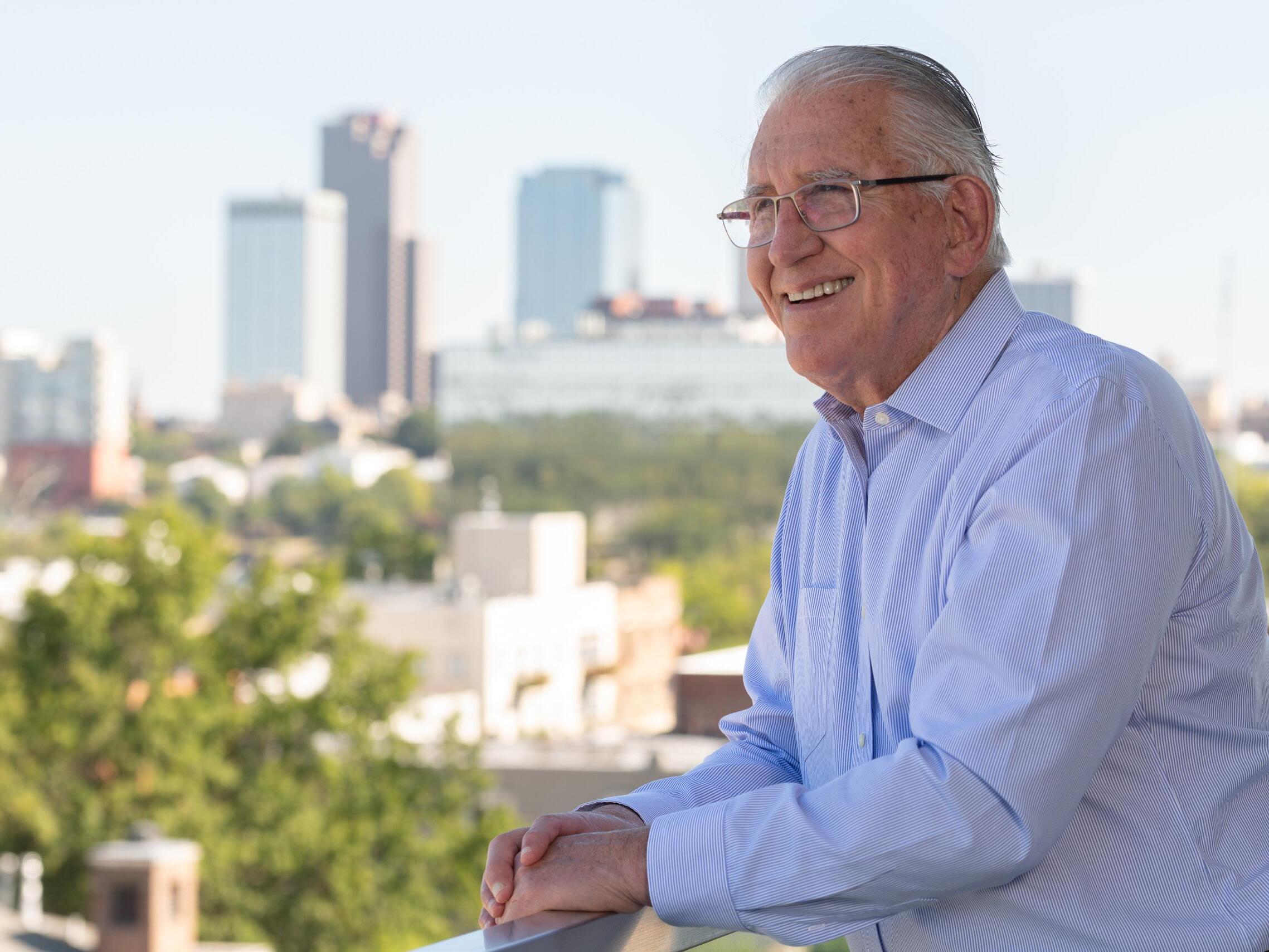
“I found my first Road & Track magazine when I was about ninth grade, and I saw these little British sports cars racing on tracks,” he said. “I said, ‘That’s what I want to be.’ I wanted to be a racing engineer until I figured out back in those days, racing didn’t hire engineers; they hired mechanics. But still, I knew I wanted to be a mechanical engineer probably from the time I was in tenth grade. It was no question in my mind.”
On his mother’s insistence, Morgan started his journey at
Sewanee, a small liberal arts college in Tennessee. The original plan called for two years there, after which he would finish his engineering degree at Georgia Tech. When that did not work as planned, he finished his degree at the University of Arkansas in Fayetteville. Engineers were in high demand in the mid-1960s, and he had no end of offers from Exxon Mobil, Texaco and Texas Instruments, among others, none of which grabbed his attention.
“IBM said, ‘We’re going to teach you how to use these new things. You heard of them? Computers?’ I said, ‘Yeah, I’ve heard of them,’” he said. “That’s how long ago that was.”
Morgan was intrigued but pragmatic about entering the buttoned-down IBM environment. He delayed reporting for work for 90 days while he helped his father, who, by that time, had opened a successful building-supply business, fill a major order. At the same time, he picked up a handy fallback skill if Big Blue did not fit his style.
“My father had sold a hollow metal frame job, which means all the windows and doorframes for the new Fayetteville High School,” he said. “It was a big project, and he said, ‘I don’t have any way to do it unless you’ll do it after you
137 ARMONEYANDPOLITICS.COM SEPTEMBER 2023
CHARLES MORGAN ON SELLING NEW IDEAS
My time at IBM taught me when you’ve got something brand new that nobody knows anything about, it gives you amazing access. Something like branded communication where banks don’t know how to use it, you can get access to much more senior level people and become much more strategic much quicker. IBM was really good at that because they had all these education programs for their young employees. They developed not only great computers, but a great process to develop their people and in turn their customers. As a result, IBM was a spectacular success from the 1960s, really up through 2000.
graduate.’ So I delayed IBM, and I was a welder and fabricator for three months. After that, I always knew I had a job somewhere if IBM fired me because I was a pretty good TIG and stick welder.”
Morgan never had to use his fallback plan and found himself in the exhilarating early days of computers applied to business applications. He and his colleagues were writing the book of the future and doing so for the biggest name in the industry.
“I absolutely loved it,” he said. “I quickly found out nobody knew anything back then. The customers you called on, you could go into any bank or distributor or anything, and I was as likely going to be dealing with the chief executives in the business as anybody else. They didn’t have programmers. They didn’t have computers. We would be in there telling them how to do it.”
The job put him in the orbit of some heavy hitters in Arkansas, including his alma mater, which installed the biggest computer in the state at that time, and a promising retailer named Sam Walton. Watching and interacting with the Walmart founder helped define Morgan’s leadership philosophy, behind which he would accomplish much in the years to come.
“Sam taught me my first big lessons in business: demonstrate strong leadership with strong vision, hire good people and stay engaged in the business at a very operational level,” he said. “It taught me that leadership matters a lot, and also the value of hiring good people. Sam
went around and figured out who in the industry was doing the best at financial management, for instance, and he went out and hired that person, offered him whatever he needed to get him. He was not shy about going after the best of the best people among his competitors.”
After five and half fulfilling years with IBM, Morgan accepted a job with Demographics, a fledgling 25-person data-processing company in Conway. At a time when few people even knew what data processing was, the little company that would become Acxiom had already seen the future, and before long, Morgan would be at the front of the column.
“You know how Winthrop Rockefeller became governor of Arkansas? History lesson for you,” Morgan said. “He decided that he would send a personal letter to every voter in the state. No telling how much he spent. He put data on punch cards, and in those days, they still had tape, and he ended up building a file of every voter in Arkansas. Then he wrote a personal letter on computers to every voter.
“These country folks said, ‘Anybody that’s going to write me a letter, I’m going to vote for him.’ Against every odd on the planet, this Republican guy from New York won the governorship of Arkansas.”
Morgan did not have a taste for the political applications of the technology, but he immediately saw the potential for business. With Morgan in the role of chief salesman, programmer and systems designer, the company landed its first big account in New York in 1975
and never looked back. Having achieved proof of concept before there was such a term, there was no hurdle too high, no goal too lofty.
“We were entrepreneurial. We built the first marketing database in the world and the first big data solution ever at Acxiom,” he said. “We had incredible technology that we deployed on mainframe computers and, later, big servers.
“We built the first cloud ever. We built it using PC chassis, and at the end, we had 40,000 PCs all tied together. You know how much noise 40,000 PC chassis make? The heat is incredible, but the noise is deafening with 40,000 little fans running.”
What set Morgan apart from his contemporaries was his master’s touch when it came to the ongoing chess match with potential clients, especially those on the coasts who underestimated him.
“You should have seen me in New York,” he said. “I could always get an appointment. Somebody would say, ‘Hey, we’ve got this goon from Arkansas who says he has a good solution for our list management.’ After laughing, they’d say, ‘I gotta see this. Bring that sumbitch in.’
CHARLES MORGAN ON DEVELOPING EXCELLENCE
You have to give room for people to fail. You can’t say, ‘I’m with you win or tie,’ because you’ve got to let people fail. You’ve got to have them feel like they can take some risks and take some chances and one failure isn’t their end. That’s really important. A colleague of mine, Alex Dietz, who passed away, said to me one time, ‘Charles, I’ve never known anybody to fail at as many things as you have. Your good ideas and your leadership have far outweighed your failures. That tells me you’ve tried a lot of stuff, but you haven’t done anything that killed you.’
138 ARMONEYANDPOLITICS.COM SEPTEMBER 2023
ARKANSAS VISIONARIES
“One time, I was at a meeting where we’d already proven ourselves to a great extent. I was called into the CEO’s office, and he’s there with his four partners. They decided that they liked what we did, but the CEO was going to tell me I had to get out of all my other client relationships. I mean, he was jerking me around big time. I said, ‘Well, I am just a poor dumb [expletive] from Arkansas. You scare me to death. I don’t know what to do next. I am so confused by this.’ The partners started laughing, and the CEO was like, well maybe that’s the wrong approach.”
CHARLES MORGAN ON HANDLING SUCCESS
It’s easy to get out of control. When you think everything is going right, it’s real easy to get too far over your skis, borrow too much money, take too many risks or get to where you think everything’s just automatically going to keep running right. You’ve got to continue to manage your risk decisioning and your risk strategy. You can bankrupt yourself chasing a great opportunity.
by making any decision. That’s the lesson there: you’ve got to plan for the worst.”
For as good as he was on the road, Morgan and his crew were even better on their home field. Of the executives they flew down to Arkansas, 95 percent signed on the dotted line. Each account landed seemed to beget three more, and during the 1990s, Acxiom’s revenue grew eightfold in about seven years, Morgan said. It was during this time that he began to see the perils that came on the other side of success.
“Around 2004, things were really starting to go well. We were over a billion in revenue by then, and we were really successful,” he said. “The banks came in and said, ‘Charles, you guys are really killing it. We want to give you a guaranteed $2 billion loan facility to the corporation for anything you want to do.’
“Now, how easy is it to get in trouble with that? You’ve got $2 billion and no restrictions on it. You just go do what you want to. The problem is what happens when you get where we are right now? Interest rates go up, the deal turns south, and guess what? We wouldn’t have had any good way out if we’d borrowed $2 billion, and our stock had gone to [expletive], and all of a sudden, our cost of interest went 5X. We’re screwed. I always said I need to have two or three ways out if things don’t go right for me. I need to be able to cut back. I need to be able to know I’ve got resources to not get killed
Morgan’s current venture, First Orion, was launched as PRIVACYSTAR in 2008. Recently retired from Acxiom, Morgan was not initially day-to-day with the firm and was content to bankroll it and offer advice. After some early successes with a call-blocking app, the company hit choppy waters in 2013, losing between $600,000 and $700,000 in the first five months of the year. Morgan had a decision to make.
“One, I could just shut it down and walk away and take some tax losses. The other choice I had was to take the whole thing over, run it myself and try to turn it profitable,” he said. “My decision at that point was, ‘Is it worth it?’ I did a lot of soul searching, and in the final analysis, I said mobile technology is going to change the world, and we’re right in the middle of it. I didn’t know exactly how this thing’s going to play out, but I knew there were going to be massive business opportunities with mobile technology, with blocking, with other application solutions. I decided I’m going to go back to work for a little while.”
Morgan led the company that year to finish with a small profit, and while ensuing years have not been easy, the company is still here, home to nearly 400 employees, and has offices in London and Dubai, United Arab Emirates. The sacrifices and spending control of recent years have done nothing to dampen workers’ enthusiasm either, as one glance at the First Orion trophy case stuffed with “best place to work” kudos attests.
When asked how he did it, the
80-year-old again demonstrated his gift for extracting simple strategies from complex problems.
“You’ve got to be steady. You’ve got to get people with you. You’ve got to be trusted. In the end, you have to have good ideas and point people in the right direction,” he said. “You can’t be just, ‘Hey, let’s go be good together!’ You’ve got to provide good leadership of where you’re going and how you’re going to get there and be able to keep on that path or change that path as the situation dictates. You’ve got to roll with the punches, and you’ve got to be adaptive to the circumstances. Getting to success is a very zigzag route.”
CHARLES MORGAN ON HUMAN NATURE
Every person, given the right situation, wants to do good. Therefore, you have an opportunity to get the best out of a person if you can find that spot where they can succeed. If you train your talent, and if you treat them right and give them opportunities, they’ll stay with you. Nobody wants to be a failure, and as a leader, you’ve just got to remember that. They’re not trying to screw up. They’re not trying to be a goofball. It seems pretty obvious, but it’s not.
139 ARMONEYANDPOLITICS.COM SEPTEMBER 2023
FAIR TRADE
The 83rd Arkansas State Fair kicks off Oct. 13, and preparations are at a fever pitch to provide a fun and safe experience. The event, which will host tens of thousands of fans and participants between Oct. 13 and Oct. 22, continues the event’s reputation as one of the best fairs in the nation, general manager Tiffany Wilkerson said.
“Nationally speaking, fairs have always been a big deal all over the country,” said Wilkerson, who has worked there for 20 years and was appointed general manager in January. “The last few years, we’ve ranked in the top 50, and we’re very proud of that.”
The Arkansas State Fair has been on a hot streak in recent years. In 2019, attendance reached 472,308, just off the all-time record of 473,106 set in 2015. Following a 2020 fair that was restricted to livestock competitors and pageant finalists due to the COVID-19 pandemic, fair fans returned with a vengeance in 2021, setting the all-time attendance record of 539,358. The achievement ranked the event 17th on carnivalwarehouse.com’s annual list of the 50 Top Fairs in the U.S. and Canada. Last year was the second-highest attended fair at 476,114 and ranked No. 36 on the top 50 list.
 By Dwain Hebda
By Dwain Hebda
“There were a lot of other fairs and festivals and events around the country where it took two and three years, and some still aren’t back to the level they once were pre-pandemic,” said Dan Sawyer, senior director of accounts and new business with Agency GWL, which has been the agency of record for the fair since 2021. “We have just exploded it, and I think that’s a testament to the people here in Arkansas who love the fair, as well as how we’ve been able to reach out and attract those people through our messaging and the platforms we use.”
Attendance numbers are not merely an academic exercise, and there is much more riding on the success of the Arkansas State
140 ARMONEYANDPOLITICS.COM SEPTEMBER 2023
The Arkansas State Fair represents a major economic engine for Little Rock
ARKANSAS STATE FAIR
Photos courtesy of Agency GWL
Fair each year than just good times and fun experiences. The event is sponsored by the Arkansas Livestock Show Association, an Arkansas 501(c)(3) non-profit organization. The annual fair event is the main revenue generator for the association, also known as the Arkansas State Fair Complex, and funds the bulk of the $30.4 million budget that pays for its operation.
“A large portion [of proceeds] will go back into our basic operations, salaries, upgrades,” Wilkerson said. “There are always capital upgrades to do. Last year, we had to put new AC units in the Arts and Crafts Building, we had to replace some doors on a few of our buildings, and we put a new unit on the Hall of Industry, which is our most rented building in the off season. All of this definitely does add up.”
The improvements are not always things fairgoers notice, Wilkerson said. This year, the entire perimeter of the grounds was secured with studier privacy fencing, and the parking lots’ muddier areas got a dose of gravel — expensive projects that do not always impress people until they start getting stuck in the mud. To keep up with such costs, Wilkerson said, the sales team has worked hard to attract additional events during the remaining 11 months of the year, an effort which paid off in 2023. As a result,
fair admission and parking prices have stayed constant, and that, combined with special daily promotions, are ways the team is boosting attendance.
“We had [an admission price] increase probably four years ago. The ride bands have stayed pretty much the same for the last three years. Our parking has remained the same for probably 10 years,” she said. “Meanwhile, we have promotions such as Senior Day with free admission for seniors and Lunch at the Fair where there’s free admission, free parking on weekdays. Those are ways we try to keep costs as low as possible for everybody.”
SELLING THE SIZZLE
Given the range of options competing for the public’s entertainment dollar, the challenges of attracting guests have never been steeper. Per carnivalwarehouse.com, 20 of last year’s top 50 fairs were down year-overyear. This fact has all areas of fair operations looking to maximize participation, especially the fair’s marketing arm.


“We really look at the evolving trends of the fair and the fairgoer and really the media landscape,” Sawyer said. “GWL has a lot of automotive clients, and it’s a very similar strategy to putting people onto the lot. At the fair, it’s about getting people out
to the fairgrounds once a year using any tools that are available.”
Sawyer, who is on his 24th Arkansas State Fair and has served in a variety of roles, including on the ASF staff, said the marketing landscape is dramatically different from just a few years ago.

“I remember when TV, radio and print was all you did,” he said. “Outdoor really wasn’t an option because outdoor boards had long-term contracts, and signing a longterm contract for a single month-long event wasn’t even an option. Digital billboards added some more flexibility to our advertising and opened the door for us to do more.
“Then, obviously, once the world of digital advertising and social media came into play, it really exploded in how we were able to reach the fairgoer, but even the digital landscape is completely different than it was five, six, seven years ago. It’s different than it was two years ago.”
The effectiveness of Agency GWL’s strategy for harnessing the power of social media is reflected in the fair’s robust attendance, but, as Sawyer said, the mercurial nature of many platforms means shooting at a moving target.
“The younger fairgoers, a lot of them don’t watch the evening news. They get it right there on their cell phone,” he said.
141 ARMONEYANDPOLITICS.COM SEPTEMBER 2023
“A LARGE PORTION [OF PROCEEDS] WILL GO BACK INTO OUR BASIC OPERATIONS, SALARIES, UPGRADES.” — TIFFANY WILKERSON, GENERAL MANAGER
The Arkansas State Fair set an all-time attendance record of 539,358 in 2021.
“They’re watching other programs or streaming, or they’re just on Facebook and TikTok. We really have to adjust our strategies to hit that market.”
One of the most complicated factors in the company’s social media strategy is in messaging. The fair is many things to many different groups, and what appeals to one category is not only wasted on another, but can actually be a turnoff. Leaning hard into the good ol-timey fun may appeal to adults but can scare off kids, while shifting too far into youth-speak risks alienating the base, Sawyer said.
“It’s a very fine line between the traditional and the contemporary — what’s old, what’s new, what’s current and what’s cool,” he said. “Sometimes ‘tradition’ can be looked on as a negative word, so it’s definitely a strategic challenge in the way we market to everybody so as not to alienate or exclude any one group, whether based on age demographic, income demographic or race demographic.”
One of Agency GWL’s strategies for dealing with this issue is the creation of a tagline that limits these various demographic differences.
“There’s one general theme for the fair, ‘See Y’all There,’ and we’ve had that theme for three years now,” he said. “‘See Y’all There’ is very Southern, very Arkansas roots-related. It’s open to a lot of folks, and this year, we’re marketing through that across eight or nine different television spots, six different radio spots, probably 40 different digital ads and campaigns, all with the same theme, but each with a different little tweak.”
The unique factor of digital tools, of course, is that information does not just flow one direction. Sawyer said an important function of today’s marketing strategies is the ability to process user data that helps the marketing firm learn more about the level of engagement users have toward one element of the fair and its messaging over another.
“There is a method behind the madness, and there is a strategy behind everything our advertising agency does,” he said. “It is based on data, research, on-site surveys, geoserving ads and the people who are already on the fairgrounds and finding that lookalike audience. What type of person would
like to come to the fair based on the people who have already been to the fair?
“When people are engaging with an ad, it becomes all about which ads are performing the best and why. Is it because of the time of day they’re running? Is it because of what is in that ad? Are people loving the food ad? Are they loving the corndog versus the funnel cake ad? Do they want to see more entertainment? It is very scientific.”
Of course, on the other side of all that marketing muscle and digital tools must stand a product that lives up to the hype, whether through ride selection, the entertainment value of concerts and other attractions, or the quality of the food. Responding to data from last year, the 2023 Arkansas State Fair made a major upgrade to its concert lineup by not only adding bigger acts, but by including a wider variety of music, such as additional Hispanic concerts added into the tried-and-true mix of country, rock and R&B.
“Our entertainment this year is much more diverse,” Wilkerson said. “We had a great Hispanic concert series last year on the last Sunday, and so this year, we’re adding one the first Sunday. The music is more diverse than it has ever been.”
A TASTE OF THE MIDWAY
On par with rides and entertainment are the Arkansas State Fair food vendors. This year, more than 50 vendors will keep fairgoers fed with chow that runs the gamut from pizza and turkey legs to cotton candy and street tacos, not to mention a sprinkling of new items that stretch the deep-fried imagination as to what can be battered and served on a stick.
McKinney Food Service, on the other hand, has stayed out of the what-can-youfry craze and created something rare in the concession business: brand identity that creates customer loyalty. The Texas-based concessionaire has been a vendor at the Arkansas State Fair for about a third of the event’s existence, during which time it has specialized almost exclusively on state fair staples corn dogs, funnel cakes and freshsqueezed lemonade.
“[The Arkansas State Fair] has always been a great event. It’s always brought great crowds,” said Alan McKinney, fourth-gen-
eration owner who is on his 20th trip to Arkansas. “I bring my two biggest corn dog stands. They’re 25 feet long, and I’ve got two semitrucks to pull them. I bring in about 12 employees total and three house trailers for housing them.”
Deep-frying a semitruck’s load of corn dogs over nine days may seem pretty straightforward, but the company is, in fact, a marvel of logistics and business fundamentals, starting with scheduling. Arkansas is one of 200 events McKinney Food Service serves in a given season, and six different family members cover circuits carved out of Illinois, Indiana, Iowa, Missouri, Arkansas and Louisiana. McKinney himself did 38 events last year.
“All of March, I’m out of town at Rodeo Austin,” he said. “I have a stretch there where I don’t travel because I coach my little boy and my little girl’s softball and baseball teams at home. Then I start traveling June 20, and I get home Nov. 15. My wife and kids usually come out for six to seven weeks while they’re out of school to travel and work.”
Events tend to be long-standing clients, something that paid off in 2020, when COVID-19 threatened to put some concessionaires out of business for lack of events. McKinney, along with some similar companies, made the rounds anyway by working an abbreviated circuit and setting up and serving fair favorites like a food truck on steroids.
“The difference between me and a lot of other people is I took a chance and went to Illinois and spent 10 and a half weeks there,” McKinney said. “I set up for five days in all these places that we’d been to over 50 years as a company. Sat on the fairgrounds or in town, and we hit ‘em a lick up there just by taking a chance. Everybody had been shut down so long and missing the fairs that they came out and supported and kept us afloat. It was awesome.”
Longevity goes a long way toward working certain business levers in the company’s favor. Any company will tell you the value of location and at the Arkansas State Fair, McKinney has won the right for choice placement.
“Location is the key to the midway,” he said. “I’ve got two golden keys to the midway at the Arkansas State Fair because
142 ARMONEYANDPOLITICS.COM SEPTEMBER 2023
ARKANSAS STATE FAIR
I’ve been there for 20 years. I’ve done my time. I’ve been set to the back. I’ve set off to the side. I slowly moved my way up and earned my spots.”
Another important business element is the near-exclusivity he enjoys to sell his product, a courtesy extended to all food vendors at the Arkansas event. The fact that his products happen to be the items most closely associated with the event itself – not unlike popcorn at a movie theater – makes that stipulation worth its weight in gold.
“You ask 10 people what they’re going to get at the state fair, nine out 10, first thing they’re going to say is a jumbo corn dog. Second thing they’re going to say is a funnel cake,” he said. “One thing about the Arkansas State Fair Board, they keep everything to a minimum – two corn dog stands, two funnel cake stands, two gyro stands, two hamburger stands. They don’t overwhelm people with products so the [concessionaires] that are there can go in and make good money.”

McKinney does not rest on his hardwon laurels. Despite having a captive audience, he said his company goes above and beyond to ensure the product and the customer experience remain top-notch. That starts with employees, finding enough of which has long been a bugaboo for food service of all categories, especially postCOVID. McKinney has largely eliminated this issue in recent years, having leveraged migrant workers.

“For the last several years, I have been working with the H-2B visa program,” he said. “I have had all-Mexican labor for going on eight years now, people who come back every year on a work visa. It’s not the easiest thing to get the paperwork approved and this, that and the other, but once you get it all done, total game changer. Ever since COVID, the people who depend on locals really have a struggle going on. Fortunately for me, that is not a big issue much anymore.
“That lets us focus on serving the best product, and we do a great job. If you come out to the fair and look at all my stands, my locations, all my employees are dressed in matching shirts, matching aprons, matching hats. … We come in there, hit ‘em hard and put out a good product. We show Little Rock a good time while we’re there.”
Another of the elite class of concessionaires is Joan Warren who, with her husband Bill, operates some of the state fair’s most recognizable spots. The Warrens hold the food contract for the Big Show Diner, VIP Club, Hall of Industry, Barton Coliseum, and Bud & Burgers and provides catering for fair entertainers and the annual livestock Sale of Champions, all of which comes out of the commercial kitchen at the landmark Big Show Diner.
“The Big Show Diner has been there since the ’60s or ’70s – a long, long time. We need to get it into the restaurant hall of fame,” Joan said. “During the fair, the diner is the hub of the fair food service because during the fair, it’s open to the public. We cook just good old country food – chicken fried steak, chicken strips, macaroni and cheese, mashed potatoes and gravy. It’s just your everyday food.”
Joan once owned and operated the restaurant in the Albert Pike Hotel, operating it for 14 years. When she got out of that, she swore she would never do food services again.
“Famous last words,” she said, noting she and Bill now own a food brokerage business. Five years ago, they landed the concession contract, and Joan’s attention to detail and food quality went into overdrive.
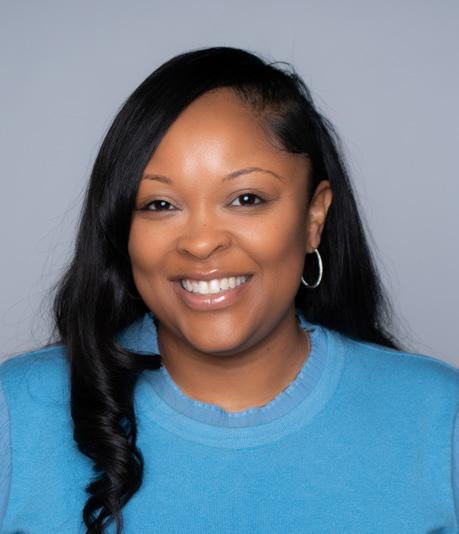
“The way I looked at the restaurant business and what I do out there is I want it to be upscale, and I want it to be right. I take pride in what we do,” Joan said. “We hand-bread our chicken-fried steaks, and we also handbread our chicken strips, and they’re good. We make homemade chicken and spaghetti, and we keep a pot of beans cooked.
“We make all of our pies, all of our cakes. We have homemade pies and cakes every day. We sell a ton of them. We make possum pie. It’s the official pie of the state of Arkansas. It’s got a good layer of crust, and then a layer of cream cheese and a layer of chocolate, and then a layer of whipped cream and nuts and chocolate on top. Oh my God, it’s a woman’s dream.”
Besides the catering, Joan also sets herself apart from other food options by offer-
ing a sit-down service inside the diner. She said that perk alone appeals to a lot of people, especially those looking for a break off their feet.
“You would be really shocked at how many families just want to go somewhere and sit down, and they want their kids to eat a chicken strip and macaroni and cheese,” she said. “They’re out there to ride rides and see the animals, but still, they want to eat.”
Joan relies on a seasoned core of six longtimers in the kitchen among the 50 people she will hire to work the state fair. That kind of experience is critical not only for their skill, but because her attention during the fair is primarily centered on the pageants and talent competitions, which she has led for more than a decade. Even though she is not there open to close, she gets a good feeling popping in here and there to see a dining room packed with happy customers.
“Why am I there? I’m retired. I don’t have to go out there and work,” she said. “It’s fun money, and it’s not an everyday job. I don’t have to be there at 8 a.m., and I don’t have to stay until 10 at night. You literally have different customers every day. It’s a million times better than owning a restaurant.”
Oct. 13-22
Arkansas State Fairgrounds
2600 Howard St., Little Rock arkansasstatefair.com
143 ARMONEYANDPOLITICS.COM SEPTEMBER 2023
ARKANSAS STATE FAIR
Dan Sawyer Tiffany Wilkerson
TRENDING UP
Arkansas flip shows OL recruiting on par with Pittman’s heyday under Bielema
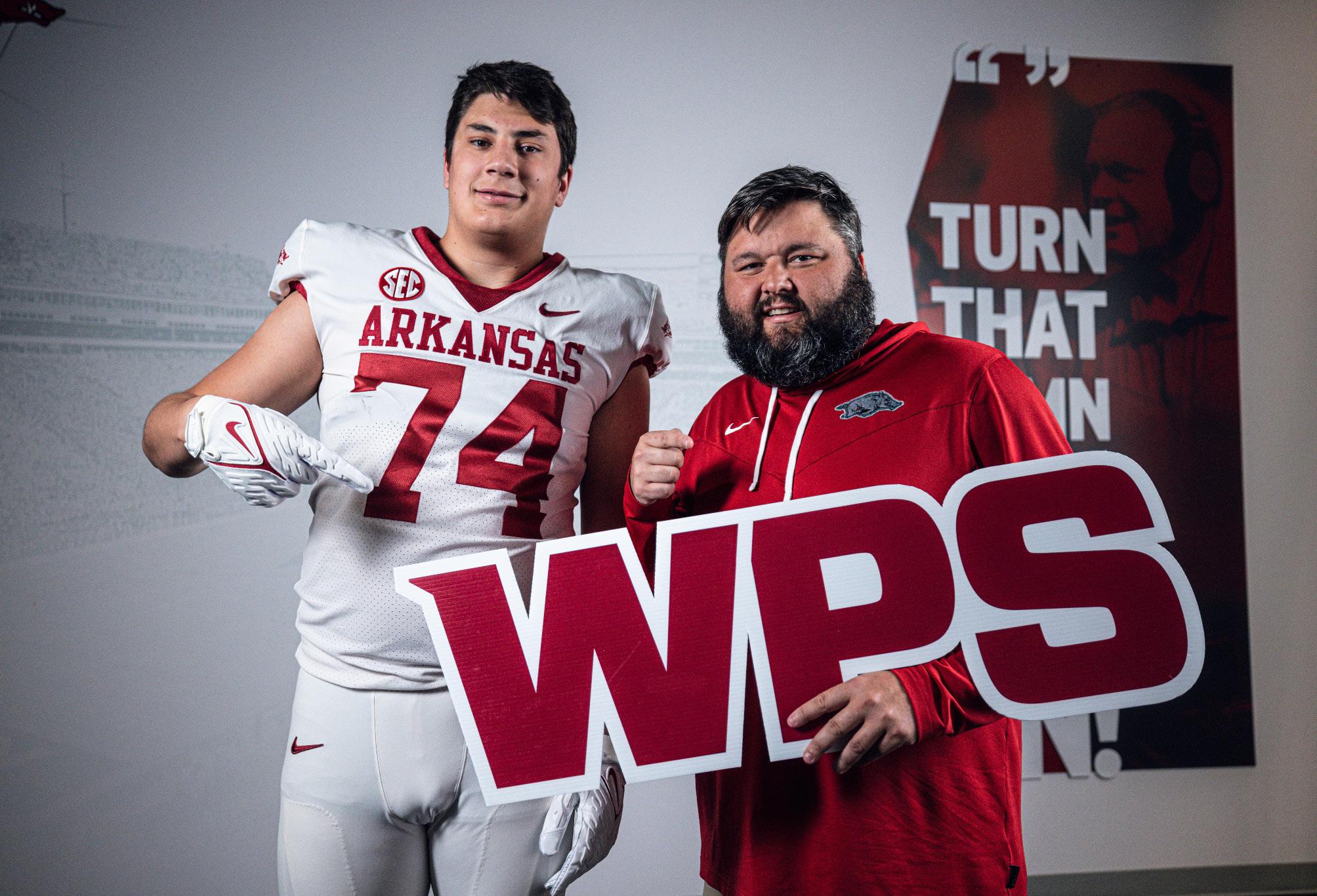 By Andrew Hutchinson
By Andrew Hutchinson
144 ARMONEYANDPOLITICS.COM SEPTEMBER 2023 SPORTS
Current Razorback OL coach Cody Kennedy landed a big fish when he flipped Kai Greer from Stanford. (Photos and images provided)
The Pac-12’s death might have helped Arkansas football land another big-time commitment in the form of Kai Greer.

A four-star offensive tackle from Waxhaw, N.C., Greer was committed to Stanford — one of the four west coast programs left out in the cold during the latest round of realignment — until backing off his pledge and flipping to the Razorbacks. In addition to Stanford and Arkansas, the 6-foot-6, 285-pound lineman also visited Ole Miss, Penn State and Texas A&M during the recruiting process, plus had offers from the likes of Kentucky, Miami (Fla.), Missouri, Oklahoma State and others.
Rivals rates him as a 5.8 four-star prospect and the 27th-best offensive tackle in the country, while 247Sports and On3 each have him rated as a high three-star.
He is the 19th member of the Razorbacks’ 2024 recruiting class and their third offensive line commit, joining Kobe Branham from Fort Smith Southside and Zuri Madison from Frederick Douglass in Lexington, Ky.
The Recruitment of Kai Greer
Prior to his freshman year of high school, Kai Greer had never even watched a football game, according to an interview with WSOC-TV last month.
His background, incredibly, was in cross country. It wasn’t until Marvin Ridge High head coach Aubrey Carter spotted him running at practice one day and suggested he try football.

That proved to be a great move on Greer’s part, as he evolved into a legitimate Power Five offensive lineman, with offers from coast to coast.
The Razorbacks, Rebels and Aggies each received official visits in June, but Greer announced his commitment to Stanford on June 13. Even though it was located on the opposite side of the country, it was where Greer’s father played and where he lived until he was 7, which is also when his father passed away.
“I never really knew him that well,” Greer told WSOC-TV. “It’s just great to kind of do this in honor of him and kind of walk in his footsteps.”
Despite missing out on his commitment and having him cancel his official visit scheduled the final weekend of June, Arkansas stayed after him. When the Pac12 essentially blew up on Aug. 4, with five more schools joining Colorado in leaving the conference, the Razorbacks were waiting.
There’s a chance Stanford could join the ACC, which is (for now) in Greer’s backyard. Still, nothing is certain at this point. That may have played a role in Greer’s decision to instead commit to Arkansas less than four weeks later.
145 ARMONEYANDPOLITICS.COM SEPTEMBER 2023
Greer was the Hogs’ 19th commit in the ‘24 class and third offensive lineman.
Bear McWhorter made good on his statement, illustrated here by the billboard his family bought along I-49 last year, when he committed to Pittman and the Hogs.
Pittman
Building a Sam Pittman Offensive Line
When Sam Pittman was hired as Arkansas’ head coach following the Chad Morris debacle, it was unknown how a career offensive line coach would handle the role.
The one thing that most people agreed upon was that the Razorbacks were about
to recruit a lot better in the trenches, as that was his calling card when he was in Fayetteville from 2013-15.
Working on Bret Bielema’s staff, all but one of his 11 offensive line signees or commits were rated as at least a 5.7 three-star on Rivals, meaning almost all of them were high three-star or four-star recruits. The lone exception was actually Sebastian Tretola, who ended up winning the Jacobs Blocking Trophy as the best offensive lineman in the SEC.
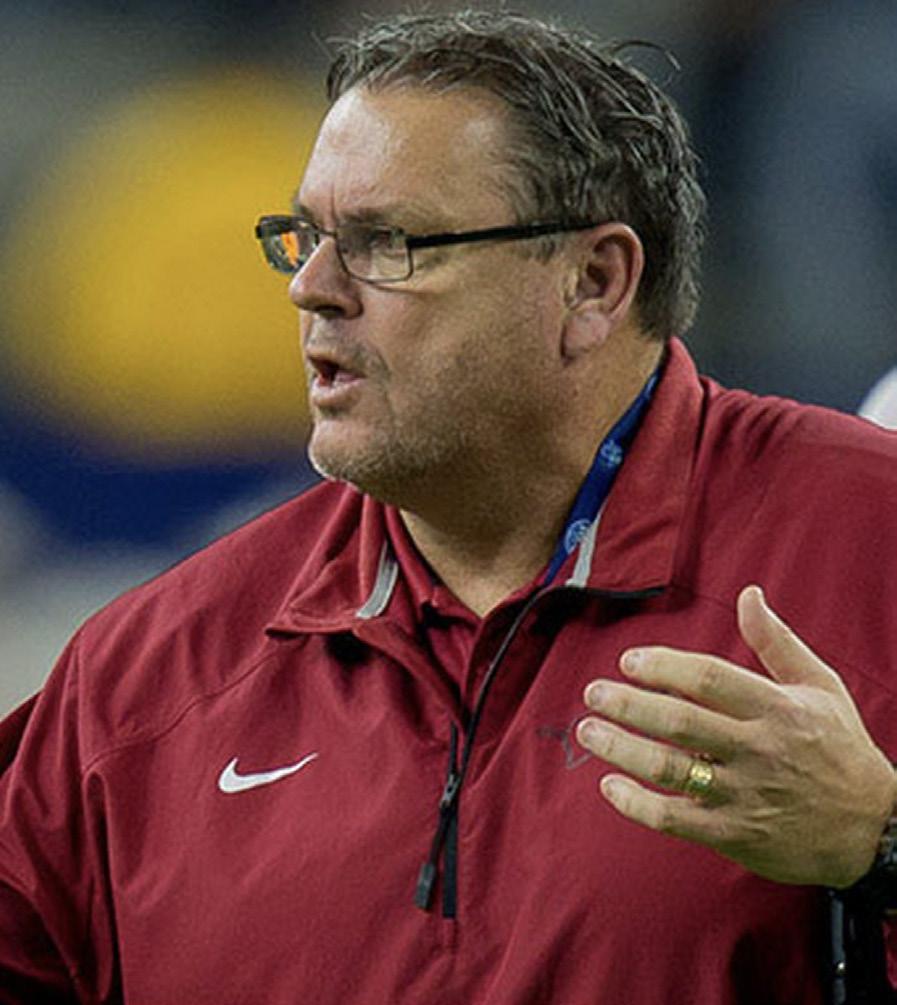
It wasn’t just the recruiting services that liked Pittman’s offensive linemen either. Ac-

146 ARMONEYANDPOLITICS.COM SEPTEMBER 2023
The 2024 class is Pittman’s fifth at Arkansas and Kai Greer is the 17th offensive lineman from whom the Razorbacks have signed or received a commitment in that span.
SPORTS
(above, circa 2015) was considered one of the best, if not the best, OL coach in the country when he was in Fayetteville on Bielema’s staff; McWhorter, a member of the ‘26 class, already has 15 Power 5 offers.
cording to their profiles on Rivals, those 11 players had an average of 10 other Power Five offers, including an average of 2.6 offers from other SEC programs.
As soon as he left for Georgia, though, Arkansas’ recruiting efforts at the position fell off a cliff. Under subsequent offensive line coaches Kurt Anderson and Dustin Fry, the Razorbacks landed 15 offensive linemen — none of which were even high three-star prospects on Rivals.
Those 15 players had an average of only 3.1 other Power Five offers, including a measly 0.7 from the SEC, meaning Arkansas was the only SEC offer for several of them.
This time around in Fayetteville, Pittman didn’t exactly hit the ground running as he had in the previous stint by landing Dan Skipper and Denver Kirkland in 2013. Still, he has steadily rebuilt the offensive line unit about how you’d expect.
The 2024 class is Pittman’s fifth at Arkansas and Kai Greer is the 17th offensive lineman from whom the Razorbacks have signed or received a commitment in that span. Of those, 10 have been at least high three-star prospects with an average of 9.6 other Power Five offers, including an impressive 4.0 from other SEC programs.
That number doesn’t include Bear McWhorter, who recently committed to Arkansas’ 2026 class. He is not yet rated because he’s still so young, but he has 15 other Power Five offers, including half of the SEC, and will likely be at least a fourstar prospect.
It’s also worth noting that Pittman has signed only two low three-star offensive linemen and one of them was Devon Manuel, who could be the Razorbacks’ starting left tackle as a redshirt sophomore this year.
There’s time for Kobe Branham and Zuri Madison — both of whom are 5.6 three-stars on Rivals — to play themselves up to high three-star status this season, as well.
Arkansas Football Commits
Class of 2024
• DE Kavion Henderson — Leeds (Ala.)
• DT Dion Stutts — Memphis (Tenn.) University School (Stutts tragically died in an ATV accident on June 13.)
• ATH JuJu Pope — Batesville (Miss.) South Panola
• QB KJ Jackson — Montgomery (Ala.) St. James
• CB Jaden Allen — Aledo (Texas)
• DE Charleston Collins — Little Rock Mills
• WR Courtney Crutchfield — Pine Bluff
• CB Tevis Metcalf — Birmingham (Ala.) Parker
• ATH Jadan Baugh — Decatur (Ga.) Columbia
• ATH Ahkhari Johnson — Texarkana (Texas) Pleasant Grove
• WR CJ Brown — Bentonville
• OL Kobe Branham – Fort Smith Southside
• OL Zuri Madison — Lexington (Ky.) Frederick Douglass
• WR Ashton Bethel-Roman — Missouri City (Texas) Ridge Point
• RB Braylen Russell – Benton
• CB Selman Bridges – Temple (Texas) Lake Belton
• S Jeremy Cook – Hoover (Ala.)
• LB Justin Logan – Marietta (Ga.) Kell
• LB Wyatt Simmons – Searcy Harding Academy
• OL Kai Greer – Waxhaw (N.C.) Marvin Ridge
Class of 2025
• QB Grayson Wilson – Central Arkansas Christian
• S Marcus Wimberly – Bauxite
Class of 2026
• DB Tay Lockett – Bellflower (Calif.) St. John Bosco
• OL Bear McWhorter – Cartersville (Ga.) Cass
[Editor’s note: This column originally appeared on BestofArkansasSports.com]
147 ARMONEYANDPOLITICS.COM SEPTEMBER 2023
A NEW PLAC E TO GATHER ON
GAME DAYS
By Brian Sorensen
Big Red’s at Donald W. Reynolds Razorback Stadium

The game-day experience has always been important to fans of University of Arkansas football. A wellorchestrated show from the band, spirit squads, audio/visual operators and announcers – not to mention the players and coaches – at Donald W. Reynolds Razorback Stadium makes a win more satisfying and a loss a little easier to stomach.
But it’s not just the people that make game days memorable. These days, the stadium itself must be built to modern standards and offer amenities that fans covet the most. Concessions, restrooms and gathering spaces are expected to be top notch. Alleviating long lines, providing plenty of options for food and drink, and having space to socialize with friends are priorities for those in charge.
For the most part, Arkansas’ home stadium has kept pace with competitor programs since opening in 1938. In the beginning, it was a simple field of play encircled by a track, with a few quaint bleachers built into the berms on the east and
148 ARMONEYANDPOLITICS.COM SEPTEMBER 2023 SPORTS
The game-day experience in Fayetteville will include a sports bar called Big Red’s on top of the north end zone stands.
(Images courtesy of UA Athletics)
west sides. Improvements were made at a steady pace in the decades that followed, but the most recent have been the most consequential in terms of impact.
Those upgrades include the addition of an upper deck on the stadium’s west side in 1985, improvements to the east side bleachers and an enclosed south end zone in 2001, and the expansion of north end zone seating in 2018. Updated concessions, scoreboards and suites were also a part of those projects.
This year, fans won’t see expansion on the same scale as those colossal feats of engineering, but the 2023 season will introduce a new sports bar called Big Red’s. The newest fan gathering spot is perched atop the new north end zone complex and will include full line of sight to game action below.

Building the brand
Taylor Ryan McGillis is senior associate athletic director for marketing and business development for the university. He played a significant role in bringing Big Red’s to life. McGillis, who joined the athletic department in 2014 following a stint at the University of Miami in Coral Gables, Fla., said he sees a difference be-
tween the two fan bases, and Arkansas has the clear advantage.
“It’s special at Arkansas because of how much the Razorbacks mean to the entire state,” McGillis said. “Miami was different because it was a big national brand, but locally we competed with professional sports. It was a constant battle for eyes on game days. That’s not a challenge here at Arkansas because the Hogs matter to everyone, no matter what part of the state they’re from.”
McGillis said his focus at the university is growing the fanbase, improving the game-day experience and increasing fan interactions through digital and social media. He was one of the first in the ath-
letic department to focus on those platforms when he arrived in Fayetteville. The landscape in college athletics has changed significantly since then.
“Now we have to tailor our content to whatever people want to see,” McGillis said. “I used to be the only one out there trying to capture video on my iPhone. Fast forward to today, and there are several people on staff doing it because our fans want to see more short-form content online. The people doing it now are more skilled than I was, and they’re using professional camera equipment. The quality of the content they’re cranking out is really impressive.”
McGillis said his job is made easier
149 ARMONEYANDPOLITICS.COM SEPTEMBER 2023
The landscape in college athletics has changed significantly since Taylor Ryan McGillis joined the staff in 2014.
There will be three individual bars underneath canopies with around 70 bar seats and big-screen televisions broadcasting the action. Additional seating will include tables, chairs and a drink railing that looks down on the field of play.
due to support from the top Hog. Hunter Yuracheck, who joined the university as athletic director in 2017, makes fan interactions a top priority.
“It’s such a satisfying place to work because Hunter came up in the marketing world,” McGillis said. “He has seen firsthand how challenging it is to get people to come to games, whether that’s here or anywhere else in the country. He understands the emphasis we have to place on building the Razorback brand. In fact, Big Red’s was Hunter’s idea.”
Meeting the needs of today’s fans
McGillis said the athletic department gets inspiration from every venue it visits. Professional stadiums tend to have more to offer in terms of fan experience, but occasionally a collegiate stadium stands out.
“We played at Colorado State in Fort Collins in 2018, and they had a massive Fat Tire bar in the north end zone of their stadium,” McGillis said. “I can’t say it was an inspiration for Hunter, but it really stood out to me.”
2018 is also the year that the north end zone expansion at DWRRS was completed. “We had this big rooftop deck that was a blank canvas,” McGillis said. “We took a conservative approach with it those first
two years, just to see how things would go with the new seating areas down below. The plan was to do something with the rooftop space next, but then COVID happened, and it slowed down the process.”
Attendance at home games in 2020 was capped at 16,500 (maximum capacity is listed as 76,412). The world was in a lurch and social connections were strained. When fans came back en masse the following season, they were looking for a new kind of game-day experience, one with enhanced amenities and opportunities to mingle. There continues to be a strong nucleus of fans who stay in their seats and don’t miss a snap, but an increasing number of fans — particularly those younger in years — are looking to move around and see more of their friends while the game is being played.
That’s where Big Red’s comes into the picture.
Entry to the reserved area atop the north end zone will require a ticket. Fans ticketed for seats in other parts of the stadium won’t have access; they’ll need a ticket specific to the sports bar. A ticket to Big Red’s will provide access to the concourses and concessions throughout DWRRS but will not come with a seat in other parts of the stadium. Seating inside Big Red’s will
be first-come, first-served.
The athletic department claims that Big Red’s will be the largest outdoor sports bar in college football. There will be three individual bars underneath canopies with around 70 bar seats and big-screen televisions broadcasting the action. Additional seating will include tables, chairs and a drink railing that looks down on the field of play.
Concessions in Big Red’s will include beer, wine, ready-to-drink cocktails and Coca-Cola products. Food will be available at the bar, and food purchased from elsewhere in the stadium can be brought in to consume.

As for the name, the desire was for something that sounded like a sports bar. It needed to be something that rolled off the tongue. “We kicked around a lot of names,” McGillis said. “We had a list that included some that were a little more creative, but with my marketing background, I really wanted it to be something simple so that people would actually say it and not create a nickname for the space.”
According to McGillis, this season will have a conservative ticket allotment for Big Red’s. He said approximately 750 will be sold per game, but at any given time, there might only be 400 to 500 people in
150 ARMONEYANDPOLITICS.COM SEPTEMBER 2023
SPORTS
Concessions in Big Red’s will include beer, wine, ready-to-drink cocktails and Coca-Cola products. Food will be available at the bar, and food purchased from elsewhere in the stadium can be brought in to consume.
the space because fans are in other parts of the stadium. By late July, tickets to Big Red’s were sold out for the games against BYU, Mississippi State and Auburn.
Focusing on the game-day experience
McGillis has nearly a decade of experience at Arkansas, and he is proud of what the athletic department has accomplished over that period. The athletic department’s website has been overhauled, and the mobile app is best-in-class. The university is committed to being on the cutting edge of fan engagement, and the results are clear: Digital engagement is up, as is attendance at on-campus events.
“Our traffic is some of the best in the country,” he said. “We punch well above our weight class in terms of the size of our fanbase and the support we receive online.”
McGillis constantly hears from fans about what improvements they want to see at DWRRS. The latest trends are important, of course; but so too is the tried and true. The fundamentals of fan experience are still top priority.
“The things fans care about the most are how to get to their seats, how to get a beer, how to go to the bathroom and how to get back to their seats without too much of a hassle,” he said.
One plea from fans that was frequently (and sometimes vigorously) made was to replace Pepsi with Coca-Cola products in the stadium. Pepsi had exclusive rights on the Arkansas campus from 2012 to 2022. “For years in the fan survey, we heard we need to bring back Coke,” McGillis said. “We did it last year and our fans were very excited.”
Improving concessions will continue to be a focus for the future. “The grab-andgo stations have become more popular as self-checkout technology has gotten better,” he said. “We’ll continue to convert more of our concessions into that format. It even works well for beer sales.”
Speaking of beer sales, the availability of alcohol throughout the stadium — not just in the club areas and private suites — was introduced in 2019. It was once unheard of to purchase beer inside
a college football venue, but now it’s the norm across college sports. For the most part, the change has been received positively, handled responsibly and shunned by only a few programs across the country. Auburn and Georgia are the only schools in the SEC that do not offer stadium-wide alcohol sales.
“People are more comfortable with it now,” McGillis said. “I mean, you can get a beer at Disney World now. It’s more commonplace and socially acceptable, even in family-friendly environments. It just makes sense for college football.”
Arkansas is fortunate to have a stadium that could be expanded so many times over the years. Many of the stadiums in the SEC are old and can’t easily be retrofitted with amenities that are popular in 2023. Now that DWRRS is almost completely enclosed, future large-scale improvements will be limited and the focus will be on tweaking the game-day experience.
“The stadium structure is in place now,” McGillis said. “We’ll have to be creative going forward, but we’re in pretty good shape compared to the rest of the conference.”
Fans flock to Fayetteville
McGillis said he loves living in Northwest Arkansas. “I’ve lived here longer than anywhere else I’ve lived, so Fayetteville is certainly my home. I’ve seen it grow and change right before my eyes.”
“There’s more to it than just being a college town,” he said. “I love the college environment, but you can shake things up and go up to Rogers or Bentonville, where you have a wide range of restaurants and other entertainment options. The cost of living is low, and there’s a lot of good things going on here. There’s a reason the area makes all those top 10 lists of best places to live in America.”
The Razorbacks opened their season on Sept. 2 in Little Rock, but McGillis said he was excited to welcome Arkansas fans from all over the state when the Hogs host the Kent State Golden Flashes at DWRRS on Sept. 9.
BYU comes to town on Sept. 16, and on the Friday night before the game, Big Red’s will host a free event for fans who are interested in checking out the new space.
“Anybody who wants to come up can do so,” McGillis said. “We’ll have a cash bar for those interested in a drink, and while we’re up there, we’ll flip the switch to make the stadium glow red, which is a growing tradition the night before games in Fayetteville.”
McGillis said Big Red’s will grow over time, with more tickets allotted for the space in future seasons. This fall will be a time to get a feel for things and identify ways to make it better for the future.
“I’m definitely excited about Big Red’s,” he said. “I’m ready to watch it take off and for our fans to enjoy themselves on game days.”
151 ARMONEYANDPOLITICS.COM SEPTEMBER 2023
“Miami was different because it was a big national brand, but locally we competed with professional sports. It was a constant battle for eyes on game days. That’s not a challenge here at Arkansas because the Hogs matter to everyone, no matter what part of the state they’re from.”
Attitude of GRATITUDE Coach Jordyn Wieber sets the bar high for the Gymbacks
By SARAH COLEMAN // Photos courtesy of UA ATHLETICS
Gymnastics is known for being one of the most difficult sports in the world because athletes demonstrate almost otherworldly strength, endurance, flexibility, courage and grit to compete. These qualities all could easily be used to describe Jordyn Wieber, Olympic gold medalist and wellrecognized as being one of the Fierce Five of the 2012 Summer Olympic Games.
Today, Wieber may no longer compete professionally, but her retirement from the sport did not conclude her involvement. She currently serves as the head coach for University of Arkansas Razorback Gymnastics, commonly referred to as the Gymbacks.
Wieber, a two-time U.S. All-Around Champion in 2011 and 2012 and a 2011 World All-Around Champion, has been involved with gymnastics for as long as she can remember. At just 3 years old, she started her lifelong journey in the sport with a deep passion and all-consuming focus on competition that originally left her unsure of what her life outside of training would look like.
“I had a successful career myself in the sport. I made it to the Olympics, and I won a gold medal, which was incredible,” she said. “I had been in the gym my whole life at that point, and didn’t know if I would continue to be in the gym the rest of my life.”
Women’s gymnastics is an individual sport offering several different events, including bar, balance beam, floor and vault. While individual success ranks high, Wieber said there is nothing quite like the feeling that comes from competing as part of a team. For Wieber, the opportunities to be part of a team were few and far between, with the only competitions
really focusing on teamwork being the World Championships and the Olympics.
“I love the team aspect, and you don’t find it a lot of times in gymnastics, especially in elite gymnastics, which can be very individual,” Wieber said. “Every once in a while you get the opportunity to compete as part of a team, and those were not only my favorite times as an athlete, but also my most successful competitions.”
Gymnastics is also somewhat of an outlier in the fact that most Olympic gymnasts compete when they are 16 to 18 years old. Wieber was 17 years old during the London Games and announced her retirement at 19. Prior to the era of Name, Image, Likeness (NIL), athletes were unable to receive endorsements and maintain collegiate eligibility through the NCAA, and this prevented athletes like Wieber from competing at the collegiate level.
“When I was competing, I had to make a choice between whether or not I wanted to go professional, meaning I was really making a choice between whether I was going to accept endorsements and money,” she said. “If I did that, I knew I was going on that route where I wouldn’t be able to compete in college.
“In my day, you had to make a choice early on, and I am so glad that our athletes no longer have to make that choice.”
In the new post-NIL era of college sports, athletes are now able to compete both professionally and collegiately, as eligibility and scholarships are no longer contingent on turning down sponsorship deals.
“We’re seeing two really positive things coming from NIL,” Wieber said. “One is that athletes that are Olympians or that have already gone professional are now signing with college teams, which is increasing the fan base and viewer-
SPORTS 152 SEPTEMBER 2023
 Jordan Wieber, head coach for University of Arkansas Razorback Gymnastics, is an Olympic gold medalist who is recognized as one of the Fierce Five of the 2012 Summer Olympics.
Jordan Wieber, head coach for University of Arkansas Razorback Gymnastics, is an Olympic gold medalist who is recognized as one of the Fierce Five of the 2012 Summer Olympics.
ship. We’re also seeing a lot of college athletes who are gaining opportunities to compete in the Olympics.”
This, Wieber said, has only made college gymnastics more popular and provides the potential for students to compete both professionally and against each other in NCAA meets. This possibility is what she refers to as the best of both worlds because there is no longer a specific choice that has to be made.
“Traditionally, gymnastics gets really popular about every four years because of the Olympics. Whenever you ask anyone what their favorite sport to watch in the summer games is, they always say gymnastics, swimming, or track and field,” Wieber said. “So now what we’re seeing is during the other three years leading up to the next games, people are watching college gymnastics.”
Moved by the desire to compete for something larger than just herself, Wieber was inspired to participate in any way she could following her 2012 Olympic victory. She found her way back to the gym as a volunteer coach for UCLA as she pursued a degree in psychology. By 2019, she was sitting in a unique position with professional experience as a gymnast, a degree in psychology from one of the best global universities and an entire post-Olympics life to embark on.
“I give so much credit to our student athletes because they are the ones working hard every single day, perfecting their routines so that they can go out and perform for these fans and really make the Razorback community really proud,” Wieber said.
“They are the ones that are doing the hard part of competing, but every single one will tell you that their favorite thing about being a student athlete at Arkansas is the fan base. The fans love the athletes, but the athletes also really love the fans.”
In addition to attendance records, Wieber’s athletes also broke competitive records, with graduate transfer Norah Flatley and freshman Lauren Williams both earning berths to the NCAA Championships as individuals. Flatley also earned her fourth All-America honor on balance beam with a score of 9.9375, the best score ever by a Razorback as an individual beam qualifier.
Five Gymbacks earned All-SEC or All-SEC Freshman honors, the most Arkansas has seen since 2018, and the second-most ever for the program. Scoring 196.825 at the 2023 SEC Championships, the Gymbacks achieved a new program best by earning SEC highs on vault (49.425) and bars (49.175).
In June 2023, Yurachek announced Wieber had officially signed a
When she learned about the Gymbacks head coach opening, she was excited about it and encouraged by director of athletics Hunter Yurachek’s interest.
“I knew that if I was going to coach that I wanted to be a head coach, and I didn’t know if that was ever going to happen,” Wieber said. “I especially wasn’t aware that it was going to happen for me so soon. It was a perfect opportunity.”
Prior to interviewing for the job, Wieber had never been to Fayetteville but was pleasantly surprised by the local residents, the area and the immense support for the Hogs.
“It was impossible to say no to an opportunity like this. My favorite thing about this area is the feeling of community,” she said. “I love the way that it’s not only those who are in the athletic department that are on board, but it’s every fan, it’s every person in this area and the whole state that champions Razorback athletics.
“I noticed from the first day I moved here how nice, welcoming and open-minded people are here. It’s been really fun to build our fanbase and continue to grow the sport of gymnastics in this state because people are just so excited about Razorback sports.”
With Wieber at the helm of the Gymbacks, the program has enjoyed resounding success in several ways. From breaking attendance records for meets to breaking records in both individual and team scores, Wieber led the team to the NCAA gymnastics regionals, further elevating the program’s visibility.
This past season, the Gymbacks set several attendance records, including welcoming 11,031 fans for a single meet, bringing in 36,619 people for the home season and an average attendance of 7,324. The home single season record ranked No. 6 in the country, and the average attendance record ranked No. 7.
new agreement with the U of A and is now positioned to stay in Fayetteville through the 2028 season.
“Since arriving in Fayetteville, Jordyn Wieber has continued to elevate our gymnastics program within the Southeastern Conference and nationally,” Yurachek said in a June 12 news release. “In the past four seasons, our program has qualified for NCAA competition each season, achieved numerous program records and produced multiple All-Americans.
“The success of our program has also fostered the growth of gymnastics throughout our state. From a sold-out Barnhill Arena to recordsetting crowds at Bud Walton Arena, it is evident that the excitement for Razorback Gymnastics has never been higher. I look forward to seeing what is next on the horizon for Razorback Gymnastics under Coach Wieber’s leadership.”
Outside of breaking records and growing the fan base, Wieber stays focused on her desire to teach athletes gymnastics skills and life lessons along the way.
“I would say that my coaching philosophy is very holistic in the fact that I focus on the human being that is the athlete and not just the gymnast that is the athlete,” Wieber said. “My goal when they come into the gym is that they feel supported to reach their athletic goals, their academic goals and also their personal goals.”
Looking back on her own career, Wieber can clearly see the parallels of life lessons she learned while perfecting her routines and challenging herself to master new skills. This is the same experience she wants to bolster for her own athletes.
“My No. 1 favorite thing as a coach is seeing my athletes learn life lessons through the sport of gymnastics, and that is what I am passionate about at the ground level,” Wieber said. “I had a lot of experience with different types of coaching in my career, but a lot of my style now
154 ARMONEYANDPOLITICS.COM SEPTEMBER 2023
SPORTS
“I love the way that it’s not only those who are in the athletic department that are on board, but it’s every fan, it’s every person in this area and the whole state that champions Razorback athletics. “
is based off of what I would have wanted as a gymnast. As a gymnast, I would’ve really wanted an encouraging, positive environment.”
Wieber’s coaching philosophy pushes her to lead with gratitude, while outlining a clear vision, values and expectations for her team. She always tries to explain to her team the reason why she is asking them to do certain things so that they can be motivated by understanding.
“There are a lot of standards and expectations in our program, but I think that’s what helps us be so successful,” Wieber said.
In addition to the gymnastics skills she brings to the program, Wieber also infused the collaborative work ethic and marketing mindset she perfected during her time in previous roles. Aside from the athletes, Wieber gives a lot of credit for the program’s popularity to the marketing department at the U of A and specifically Elvis Moya, assistant sport administrator for gymnastics.
“He and I work so well together and think creatively about how to get people in the doors of Barnhill Arena or Bud Walton Arena to watch these athletes,” Wieber said. “We know that once they come to one meet, they’re going to come back because we have created this experience out of our gymnastics meets that is unlike any other sporting event.”

In tailoring the meet experience for every demographic, Moya and Wieber have achieved the dual goals of seeing the student section full at every meet and bringing a mix of young faces and lifelong Razorback fans to the stands.
“We see so many little faces of young gymnasts in the crowd that look up to these athletes and dream about being a Gymback one day. We also see the familiar faces of season ticket holders and parents who continue to come back year after year,” Wieber said.
For aspiring high-level competing gymnasts, Wieber has several pieces of advice, few of which pertain directly to the sport of gymnastics.
“When you’re part of any team, there are things that stand out beyond your actual skills, and the biggest part of what you can offer to a team is your character,” she said “When you are able to wake up every day and be grateful, help the people around you and treat everyone with kindness, it shows up in other parts of your life.
“The mindset of gratitude is something that I really focus on teaching my athletes. I think that when people start approaching life with an attitude of gratitude, their whole life changes, and they start attracting people with that similar mindset into their life.”
Wieber doesn’t have to look far to see the fruits of her philosophy; ever since arriving in Fayetteville, she’s followed her own advice, and it’s led to greater paths than she ever could’ve imagined.
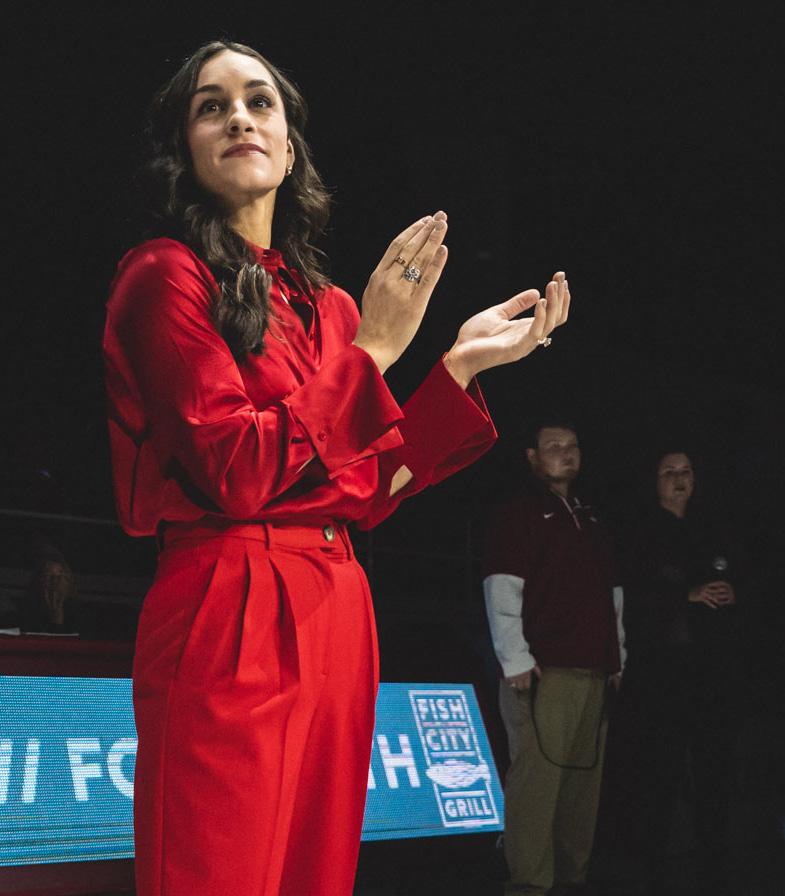
“I had never been a full-time head coach when I accepted this job, and my main mindset was based around being grateful for the opportunity every single day while also being able to be humble about what I didn’t know and confident enough in myself to know that I could figure it out,” Wieber said. “In order to do that, I continue to ask questions, I use my resources, and I focus on just being a good person. That is what has helped me be so successful in this position.”
Wieber said she wants to encourage anyone who has not yet been to a gymnastics meet to attend a Gymbacks competition at least once to witness in person the grit, heart, passion and love that fuels the true athleticism on display.

“I had a previous head coach that I worked for that always used to say, ‘Gymnasts are like superheroes,’ and I really believe that,” she said. “Gymnastics meets allow you to see superheroes in action.
“Gymnastics is also one of the hardest sports in the whole world. If anyone has not been out to see the Gymbacks, do me a favor and come to at least one meet and introduce yourself to me. I’ll come meet you, and hopefully, you’ll want to come back.”
155 ARMONEYANDPOLITICS.COM SEPTEMBER 2023
“It was impossible to say no to an opportunity like this.” Wieber has stressed character-building and positivity to great success with the Gymbacks.
(Photo by Noah Southard)
LR Touchdown Club KEEPS RAISING THE BAR
By AMP Staff
Since its 2004 launch, the Little Rock Touchdown Club has grown into one of the largest and most respected clubs of its kind in the country. Now boasting 545 members, its weekly Monday luncheon programs span football season each year and regularly draw capacity crowds.

The club draws some of the biggest names in sports and kicks off its season each August with the sitting head coach of the Razorbacks. Thus, Sam Pittman opened the 2023 slate last month and drew a full house of more than 600 to the Doubletree Hotel in downtown Little Rock. The next week, popular ESPN broadcaster Laura Rutledge drew another big crowd.
For week three, the club had to move to the Statehouse Convention Center to accommodate the speaker. Former Razorback player and club founder David Bazzel said the club sold a record 1,300 tickets in less than five hours after tickets went on sale for Peyton Manning, the Super Bowl-winning quarterback who played college ball at Tennessee and is now one of the world’s most recognizable sports celebrities.
“To get Peyton Manning is unbelievable,” Bazzel said. “For our club to get him is remarkable.”
The club seems to raise the bar each year with its lineups of speakers, and last year, it established a high one. Speakers included Jon Gruden, Kirk Herbstreit and Paul Finebaum. The 2021 lineup included Terry Bradshaw.
The club’s first meeting drew a mostly word-of-mouth crowd of 45 back in 2004. Since then, it has realized some impressive numbers, including more than 10 million hits on social media platforms. It has welcomed former coaches and players as speakers who accounted for more than 10,000 wins at all levels, 43 college national championships, 11 Heisman trophies, 18 NFL Hall of Fame inductions and 10 Super Bowl MVP awards.
The big names help draw people to the club, Bazzel said, but the community’s love of sports and support of local athletes attracts them as well. Last year, the club averaged close to 300 attendees each week, and it is the only organization of its kind in the nation to have every meeting and event broadcast live.
At the end of each season, the club hosts an end-of-the-year awards banquet honoring local prep and college athletes and distributing several awards. The awards banquet honors an MVP from each Arkansas college team, coaches and players of the year from each high school classification, as well as a national colle-
156 ARMONEYANDPOLITICS.COM SEPTEMBER 2023
SPORTS
David Bazzel has grown the club into one of the largest of its kind. (Photos by DeWaine Duncan)
giate player of the year, an SEC offensive and defensive player of the year, and an SEC coach of the year. The club also presents the Dan Hampton Award and Willie Roaf Award to the state’s top high school and college defensive and offensive linemen of the year, respectively; the Cliff Harris Award to the nation’s small college player of the year; the Darren McFadden Award to the collegiate running back of the year in Arkansas; and the Sully Award, named for KATV broadcaster Steve Sullivan and honoring the broadcasting call of the year in the state.
The remainder of the ‘23 lineup will include Arkansas AD Hunter Yurachek on Sept. 18; Peyton Hillis, former Razorback and NFL back with Denver and Cleveland, on Sept. 25; Jim McMahon, former BYU and Super Bowl-winning QB with the Chicago Bears, on Oct. 2; Arkansas State Head Coach Butch Jones on Oct. 9; Jackie Sherrill, former head coach at Pitt, Texas A&M and Mississippi State, on Oct. 16; UCA Head Coach Nathan Brown on Oct. 23; SEC Network analyst Chris Doering on Oct. 30; Alyssa Lang, SEC Network host and sideline reporter, on Nov. 6; Ryan McGee of ESPN’s Marty & McGee show on Nov. 13; and David Cutcliffe, Peyton Manning’s OC at Tennessee and former head coach at Ole Miss and Duke, on Nov. 21 (a Tuesday).

Bazzel is quick to distribute praise for the club’s success and deflects credit to club members for “showing up;” to the club’s team of volunteers, now numbering more than 25 and which Bazzel calls the best volunteer group in America; and to the club’s growing list of sponsors, which now includes AY Media Group and Arkansas Money & Politics.
The club does not turn a profit. All proceeds from ticket sales and sponsorships go to paying speakers’ fees and their hotel and travel costs, securing future speakers and to overhead, such as A/V and security. While not every speaker charges a fee, Bazzel said the club usually pays anywhere from $1,500 to $25,000.

The club, which is the host organization for the Arkansas Chapter of the National Football Foundation, is overseen by a board that now includes Bazzel, Clint Albright, Bob Bomar, Rena-
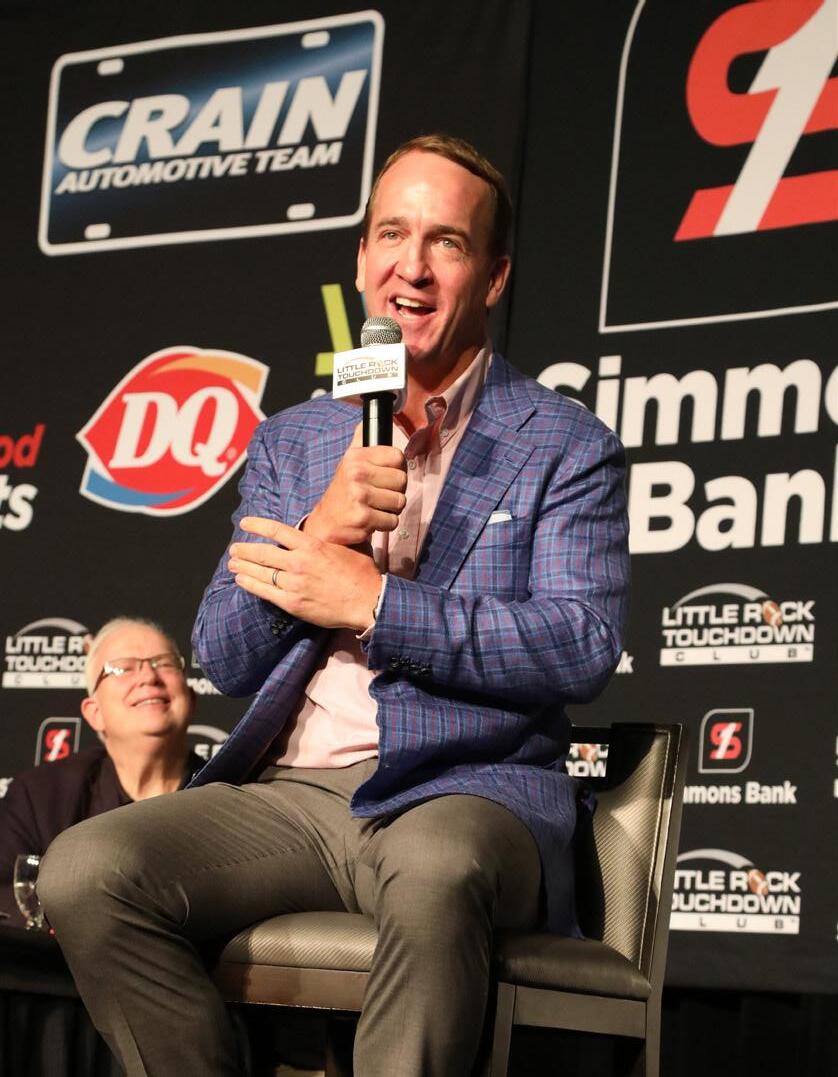
ta Jenkins Byler, Nate Coulter, Ronald Davis, Wally Hall, Tommy Harkins, Judy Henry, Bill Jackson, Bruce James, Rob Janes, Anne Jansen, BJ Maack, Andrew Meadors, Scott Miller, Ark Monroe, Nancy Monroe, Rex Nelson, Kinney O’Conner, David Parker, John Pierron, Jim Rasco, Wes Sutton and Gary Underwood.

157 ARMONEYANDPOLITICS.COM SEPTEMBER 2023
Sam Pittman spoke to the club on Aug. 22.
Laura Rutledge during her appearance on Aug. 28.
Peyton Manning was the speaker on Sept. 5.
TRAILBLAZER
Cayden Parker aims to be the first of many elite Arkansas mountain bikers
By Sarah Coleman // Photos by Cai Kaddy
Cycling is continually booming in the Natural State, as shown by the rapid expansion of trails, both road and mountain, as well as bike-friendly cities, traveling options and more. With Bentonville becoming established as the mountain biking capital of the world and the U.S. National Mountain Bike Team placing its headquarters there for the 2028 Summer Olympics, Arkansas trails have become nationally recognized as a great landscape for training. Cayden Parker of Hot Springs is the first professional mountain biker on Team USA from Arkansas.
As part of the United States Men’s National Team, Parker competes for the U.S. in international competitions and is a proud member of Bear National Team when competing in races throughout America. As a four-time national championship winner, Parker recognizes that he is living a once-in-a-lifetime dream and is optimistic that Arkansas will continue to be recognized by professional mountain biking.
“My goal is for there to be more athletes that come from Arkansas, and because I want this, I really want to teach and be able to give back to the community that’s given me so much through cycling,” Parker said. “It certainly is really cool to be one of the best in the state, but what’s more important to me is that we create more really great cyclists who will come out of Arkansas because we have so many resources and so many great trails that it just makes sense for there to be more.”

SPORTS
Growing up in Hot Springs, Parker credits the great outdoors for his interest in cycling. He said he fine-tuned many of his basic mountain biking skills through family rides. He watched his parents, both mountain bike enthusiasts, and started cycling at a young age.
“I think we all just fell in love with it, and eventually, I started racing locally, and then all around the state. By that time, I had realized I was pretty good at it and started to take it more seriously.”
With all of his early success in local and regional competitions, Parker eventually began racing on a national level and competed in his first national championship in 2017. Though he finished 17th in that first competition, he returned to Snowshoe, W.Va., the next year to win the first of two national titles.
“After winning a national title, I remember knowing then that I was pretty good at this and that it was not out of reach for me to travel the world while competing,” Parker said. “I really have been enjoying this, and I’ve met most of my best friends through this sport. Those first national titles made me realize that this path is something I want to explore and see what I can get.”
Parker said he has always been determined to find a way to do what he loves professionally. Growing up on the lake and trails, he already knew the “career path” he would take once he was old enough to be asked about it.
“There was nothing that I really wanted to do before this, and I definitely had other hobbies, but I’ve just always enjoyed being outside and seeing the
world from the saddle,” Parker said.
“The outdoors really has been my life. I’ve always loved being able to explore. It just makes me feel good to get up and see what is out there. If you’re a runner or a hiker, then you get to see really beautiful trails, but on a bike, you’re just able to cover so much more ground, and the places that I’m able to explore on my bike are pretty limitless.”
Aside from the competition, mountain biking has opened up the world to Parker. He said the travel involved with competing internationally has been eye-opening.
“I feel so fortunate to get to do this, and I know it may sound silly, but I’ve gotten to see just how big the world is and how much life is out there,” he said, emphasizing the importance of being immersed in different cultures, food and languages.
Parker’s favorite place of late outside of the United States is Italy. He was recently able to spend two weeks in Lavino, training, riding, racing and of course, exploring. Parker estimates that he spends roughly 30 hours a week on his bike, training.
That training has opened up his own country to him, as well. This past winter, he trained in Tucson, Ariz., but thanks to the rise of the sport in Arkansas, Parker said he’s blessed to be able to train at the level that is required of him right in his hometown on the Northwoods Trails system.
He’s grateful to the communities across the state whose support has enabled mountain biking to become such a big deal in Arkansas and opened up the sport to so many who otherwise would have never been exposed to it. For Parker, the rise of the sport in Arkansas came at an opportune time.
“I was really starting to get into cycling right when everyone seemed to start shifting their focus to creating bigger trails and more bike-friendly activities throughout the state,” he said. “I got to
grow my skill as they were adding more, and it feels like I have really been able to grow up with the state, in a way, through my love of cycling. It’s also incredible to think about how I’ve been able to race in big competitions in my own state, and that has been really crucial for my development. Honestly, I don’t think I’d be where I am right now without the growth that I was able to be part of.”
As a national champion and a member of the U.S. National Team, Parker said everything about his experience has been special, but he’s most proud of being invited to compete in the World Championships in 2021 and 2022.
“It’s a really cool feeling to get to represent your country, and I’m so proud to have had that experience,” Parker said.
In 2022, Parker also won two races in Fayetteville, which opened him up to competing in front of his home crowd — something he never dreamed of being able to do growing up.
“Racing at a high level in Arkansas was surreal; there is nothing like being able to compete with a home-state advantage,” he said.
As for the future, Parker wants to turn mountain biking into a full-time professional career. His sights are set on competing in the 2028 Summer Olympic Games in Los Angeles.
“Competing in the Olympics is my biggest long-term goal at the moment,” he said. “I realize it’s pretty ambitious, but I’m still going to work for it. As far as regular life goes, cycling is my life, so all of my goals are really aligned with that — just doing everything it takes to make that happen and become a professional and be able to make a living doing what I love. That’s the goal.”
Parker plans to return to West Virginia Sept. 28 to Oct. 1 to compete in the 2023 World Cup at Snowshoe, in which he will race against UCI Mountain Bike World Cup elite riders. This year’s UCI Mountain Bike World Series will feature 180 elite teams with more than 900 riders across all formats of racing. After the Snowshoe event, there will be one more 2023 World Cup event, which will take place in MontSainte-Anne, Quebec.

159 ARMONEYANDPOLITICS.COM SEPTEMBER 2023
A Hot Springs native, Parker is grateful for the chance to ride on the Northwoods Trails.
ONE BAD DAY
By Dustin Jayroe
For the uninitiated (but we are initiated, aren’t we, Bruce?), that’s one of Joker’s pivotal lines from Alan Moore’s oneshot graphic novel, “The Killing Joke,” a Joker story as much as it is a Batman story. The comic, which has been loosely adapted on the big screen multiple times since it was published in 1988, delves into the tragedy that created the Clown Prince of Crime.
The story goes that pre-Joker was a jobless, failing stand-up comedian with a pregnant wife at home. Desperation to support his family leads him to take a “job.” Breaking into the chemical plant at which he used to work, he tells himself he’ll do that one job, and then get out. One thing leads to another, and his wife and unborn child die in an accident. The crime bosses force him to honor his commitment to them anyway, and the whole operation is foiled by Batman, which leads to pre-Joker falling into a vat of chemicals. His skin becomes bleach white, his hair a greasy green and his mind in a fractured state of disrepair. All in one day.
To prove he’s no different from anyone else and not the vile, evil freak that Gotham has caricatured, Joker gives someone else “one bad day” — Commissioner Gordon. Joker shoots and paralyzes his daughter, Barbara, then kidnaps and tortures Gordon, pushing him to the brink of insanity. All in one day.
Joker plays a similar game to level the field in the 2008 film, “The Dark Knight,” and gives Harvey Dent one bad day enough to turn him into Two-Face and pits two boats of Gotham citizens against the other with a bomb on each. Unless one of the evacuation ferries detonates the bomb on the other boat by midnight, both will blow. Joker is sure that everyone is capable of being selfish, cruel and murderous.
But Commissioner Gordon didn’t crack and instead told Batman to subdue Joker “by the book … to show him that our way works.” To the Joker’s disbelief, neither ferry uses their detonation button.
Joker’s miscalculations were rooted in his loneliness. His bad day was the first domino to fall, but it wasn’t the last.
Everybody knows about Bruce Wayne’s bad day. His parents were murdered in front of him when he was only a child. While arguments can be made that Wayne may not be the epitome of sound mental health given his choice of hobby, he certainly did not become Joker. (As Joker told Batman himself, “You had a bad day and everything changed. Why else would you dress up as a flying rat?”)
Batman and Joker are mirrors with different images, reflecting the fragility of succumbing vs. overcoming. The aftermath of one’s bad day was met with the support of a loving butler and the privilege of a wealthy inheritance; the other’s with a life with nothing and no one left. One could argue society failed Joker just as much as his personal tragedies.

As it relates to mental health, something we know about adversity is that resilience is a remedy that can be externally supported, a potential barrier between that first domino and the worse ones that follow, like with adverse childhood experiences, a range of traumatic experiences one may be exposed to during adolescence, from abuse to neglect to household dysfunction. Children with higher ACE scores have a greater likelihood of negative outcomes as adults, but having a support system can increase resilience and, in effect, overcome those ACE cycles. If not a parent, oftentimes that support can be a grandparent, an aunt or uncle, a teacher, a guidance counselor, a youth pastor, a family friend, a neighbor and so on.
The nerd part of me enjoys comic book-related media for what it is at face value — heroes in capes doing cool things — but the human part of me — a husband, father, son, brother, friend — appreciates the reality reminders just as much. To be kind. To be compassionate. To be courteous. To be generous. To be thoughtful. You never know whose support system you might be … or might need to be.
Like Batman told Commissioner Gordon in “The Dark Knight Rises”:
“A hero can be anyone, even a man doing something as simple and reassuring as putting a coat on a young boy’s shoulders to let him know the world hadn’t ended.”
160 ARMONEYANDPOLITICS.COM SEPTEMBER 2023
THE LAST WORD
DC Comics
“All it takes is one bad day to reduce the sanest man alive to lunacy. That’s how far the world is from where I am. Just one bad day.”



More Specialists
Endocrinology at Conway Regional

Our providers deliver targeted and comprehensive consultation, treatment, and care to patients with endocrinological problems such as diabetes, thyroid diseases, infertility, hormonal issues, and metabolic disorders. Conway Regional is proud to offer more specialists and expanded access to care through the Conway Regional Endocrinology and Diabetes Center.
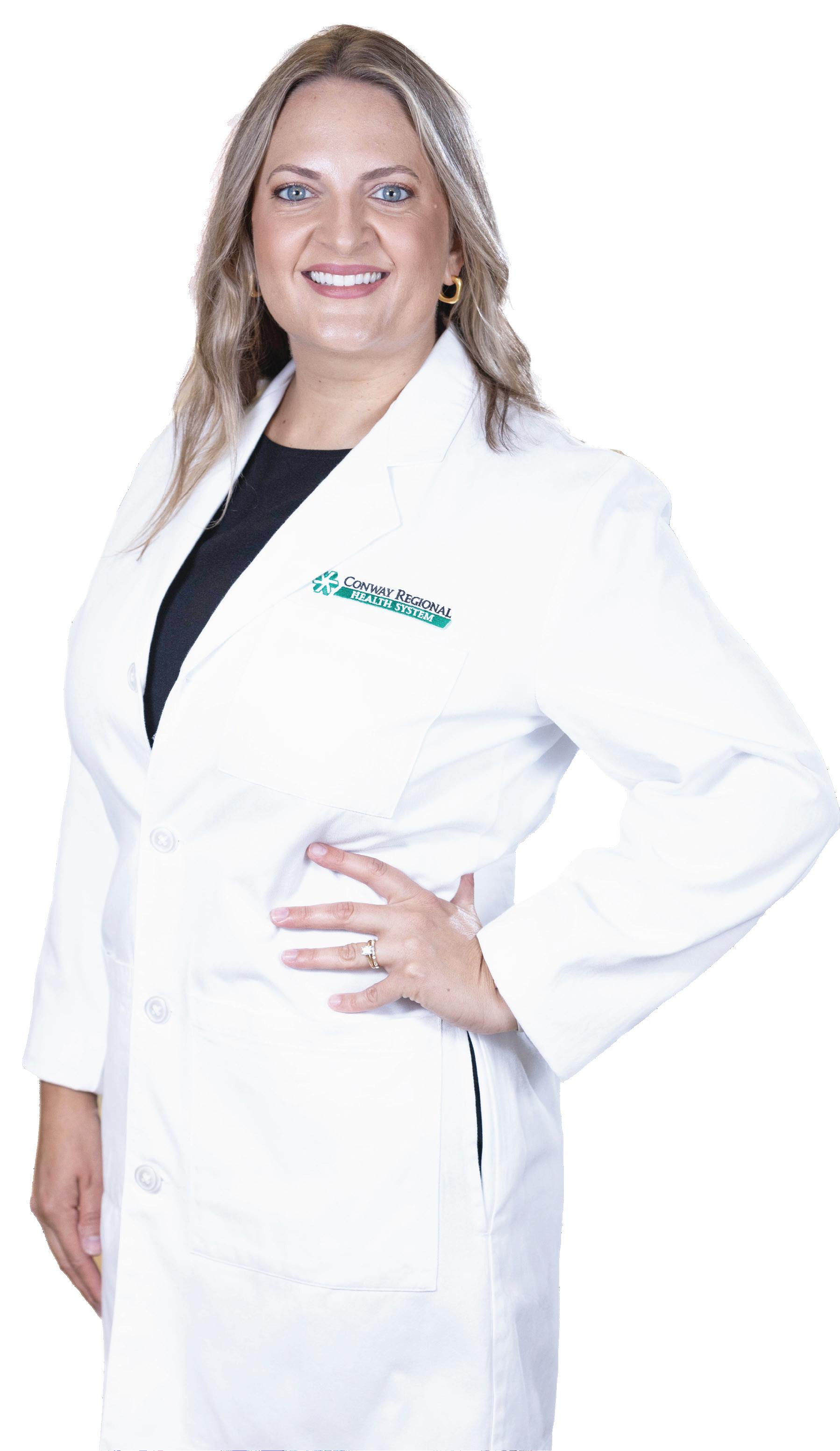

Navigating healthcare can be challenging. Let us help you find the healthcare services you need.

Call our Patient Navigation Center at 501-506-CRHS (2747).






Expanded Access Innovative Services New Medical Offices
Maria Javaid, MD, Hooman Motahari, MD, and Beth Strack, APRN, with the Conway Regional Endocrinology and Diabetes Center





























 Jason Prather, JD, LLM
Matt Jones, JD, CFP ®
Jason Prather, JD, LLM
Matt Jones, JD, CFP ®






























 By Heather Baker
By Heather Baker
































 Lisa Hunter, Executive VP/ Chief Data Officer
Lisa Hunter, Executive VP/ Chief Data Officer






























































































 Karinna Rodriguez, Signature’s business development officer, and Gary Head, Signature CEO, interacted with customers at the bank’s Grand Opening Block Party.
Karinna Rodriguez, Signature’s business development officer, and Gary Head, Signature CEO, interacted with customers at the bank’s Grand Opening Block Party.











































 By AMP Staff
By AMP Staff































 SVP, Investments
Garner Wealth Management/ Raymond James
SVP, Investments
Garner Wealth Management/ Raymond James













































































































































































































































































 By Steve Spencer
By Steve Spencer




 — By Dwain Hebda
— By Dwain Hebda




 By Dwain Hebda
By Dwain Hebda






 By Andrew Hutchinson
By Andrew Hutchinson







 Jordan Wieber, head coach for University of Arkansas Razorback Gymnastics, is an Olympic gold medalist who is recognized as one of the Fierce Five of the 2012 Summer Olympics.
Jordan Wieber, head coach for University of Arkansas Razorback Gymnastics, is an Olympic gold medalist who is recognized as one of the Fierce Five of the 2012 Summer Olympics.



















